CRAFT SPIRITS
TECHNICALLY SPEAKING KNOW YOUR OAK
RAW MATERIALS PERKS OF WORKING WITH COFFEE
TOASTING A DECADE & GETTING BETTER WITH AGE

A PUBLICATION OF THE AMERICAN CRAFT SPIRITS ASSOCIATION
THE ART, SCIENCE AND BUSINESS OF DISTILLING
VOL. 5, ISSUE 1 | FEBRUARY 2023

FEATURES
36 The Distillers’ Decade
As we begin ACSA’s second decade, let’s take a quick look back at the foundation we’ve built during the first 10 years.
BY JEFF CIOLETTI AND JON PAGE
50
50
A Strong Foundation
Shining a little light on ACSA’s founding member distilleries that inspired thousands others to light up their stills

60 DISTILLING DESTINATIONS
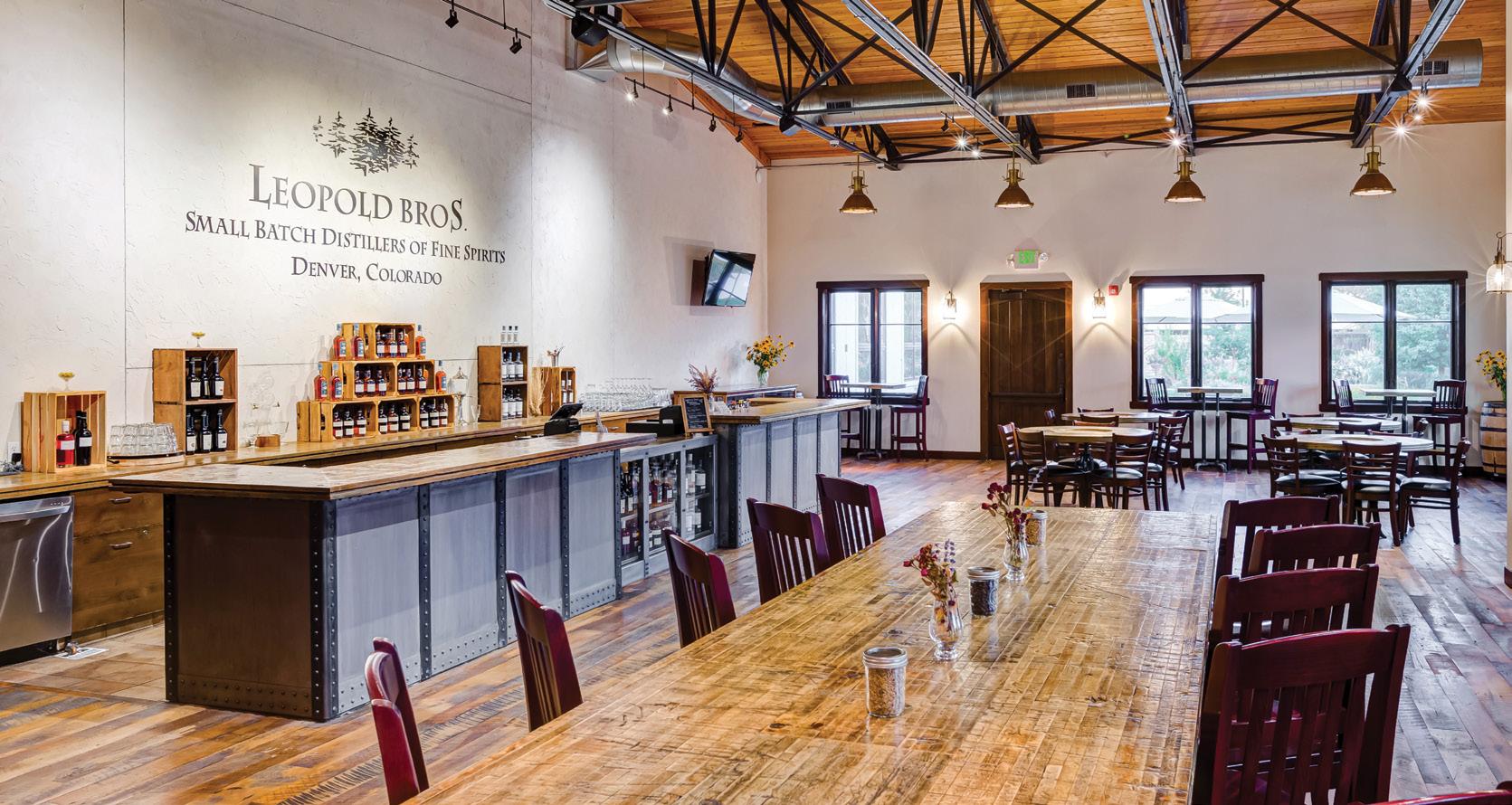

Crafting a Connection
In and around Portland, Oregon, distillers embrace local ingredients, community and a can-do attitude.
BY JOHN HOLL
Cover photography: Shane O’Donnell
60
FEBRUARY 2023 | 3 36
FEBRUARY 2023
CONTENTS

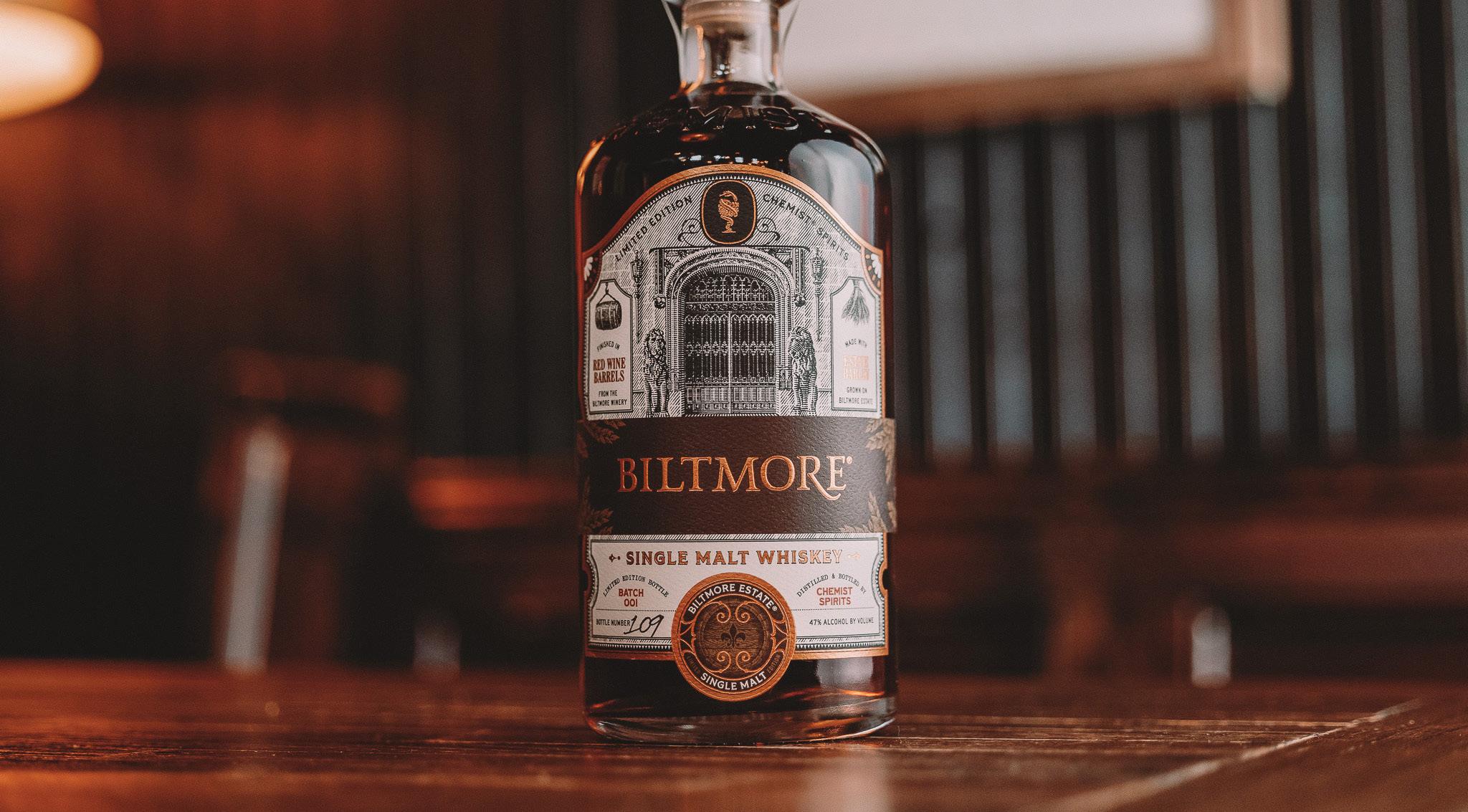
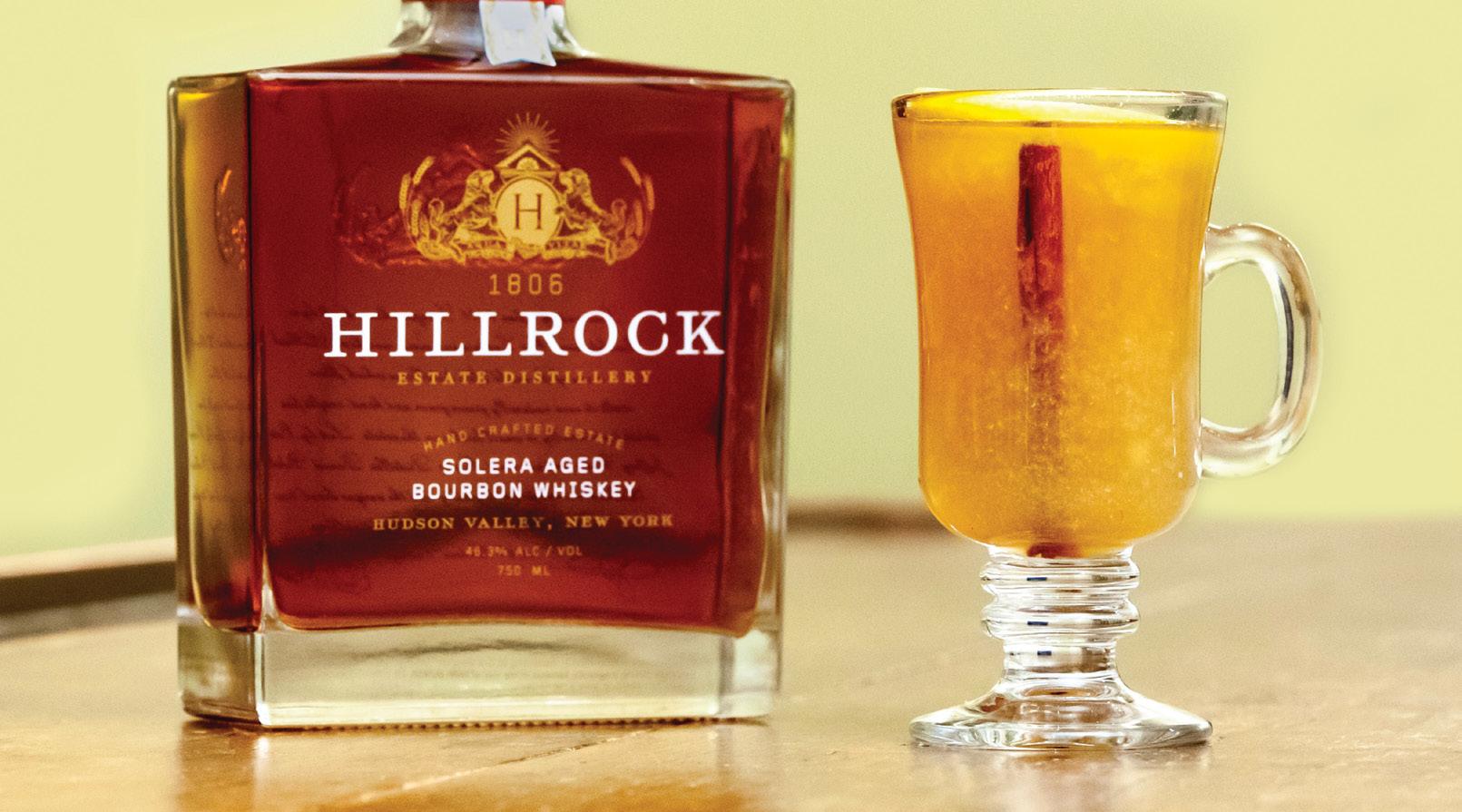
4 | FEBRUARY 2023 CRAFTSPIRITSMAG.COM 10 CEO’s Note 12 President’s Note 14 Editor’s Note 16 Contributors NEW SPIRITS 18 Recent releases from Chemist Spirits, Stone Ledge Spirits Co. and more IMBIBER ’ S BOOKSHELF 22 INDUSTRY UPDATE 24 Inflation Causes Many Distilleries to Raise Prices LEW ’ S BOTTOM SHELF 34 Free ink! BY LEW BRYSON WHAT ’ S STIRRING 55 Flavorful concoctions from some of ACSA’s founding members ANNUAL REPORT 67 ACSA’s year in review SUPPLIER SHOWCASE 80 A roundup of products and services from some notable suppliers and agencies in the world of craft distilling DEPARTMENTS 18 24 55
PACKAGING
82
New Recycling Law
Draws Mixed Reaction
Colorado craft distillers see the need for more recycling but wonder if a new law is the best path forward.
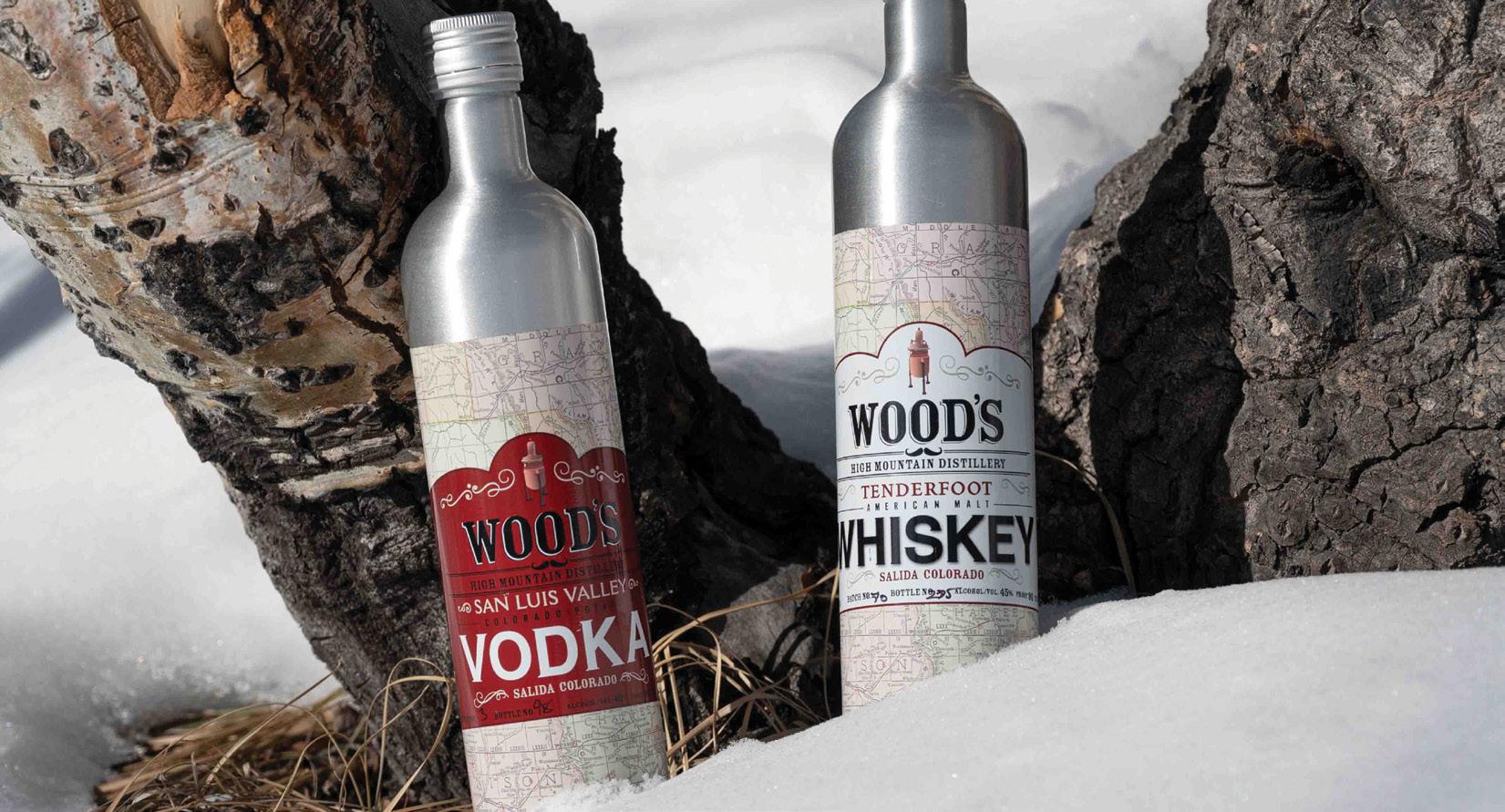 BY ANDREW KAPLAN
BY ANDREW KAPLAN
RAW MATERIALS
86
The Roast of the Town
Espresso liqueurs and coffee-flavored spirits generate a big buzz.
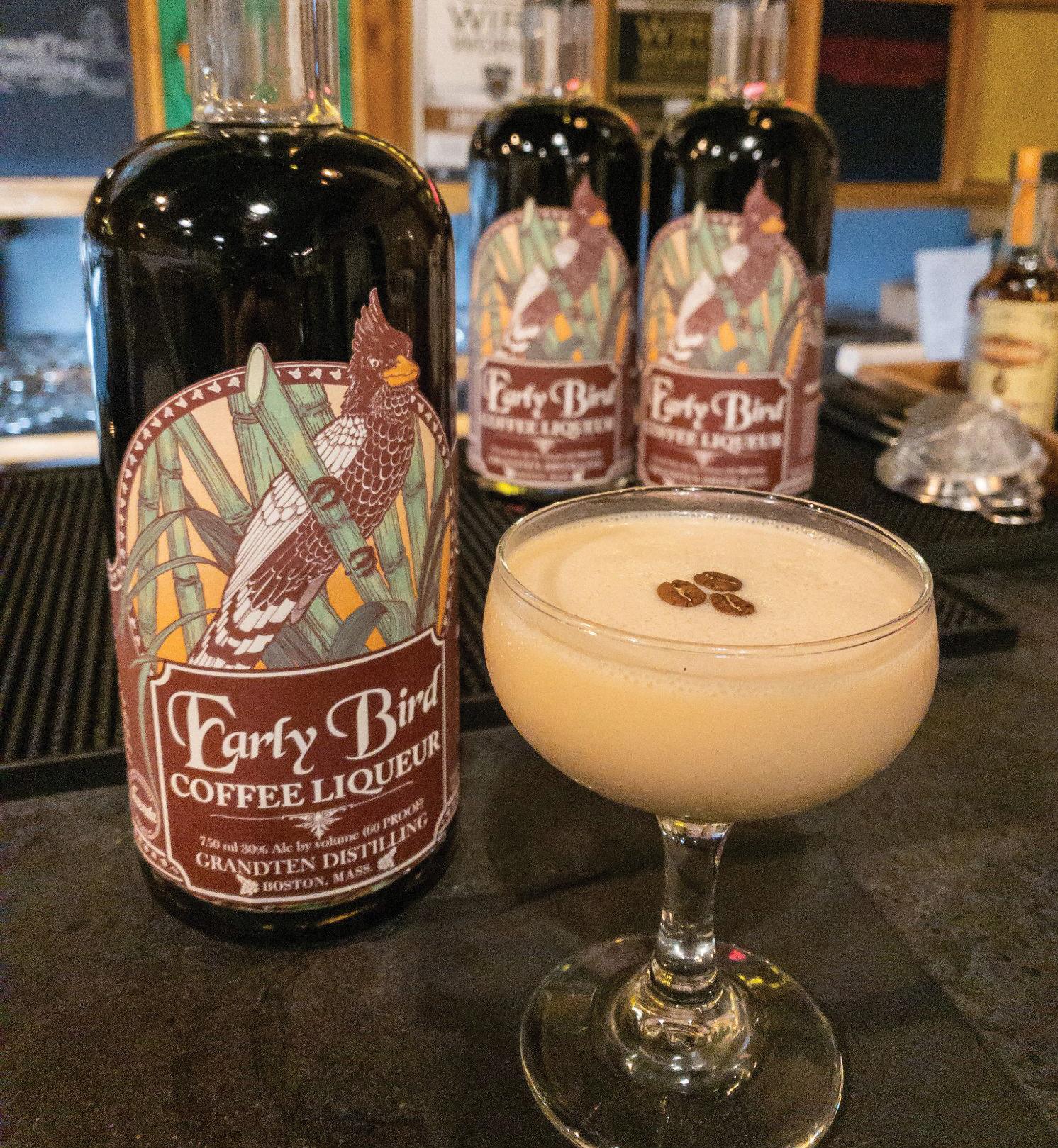 BY KATE BERNOT
BY KATE BERNOT
BUSINESS SENSE
90
Putting People First in Finance
Adopting a people-first strategy
BY TYEE CARR
SALES & MARKETING
92
On Message
Five email campaign strategies
BY KIM NGUYEN
TECHNICALLY SPEAKING
94
Cask Matters
The differences among oak species
BY JASON PARKER
LEGAL CORNER
96
Supplemental Income
Alternative revenue opportunities
BY ASHLEY HANKE
CLOSING TIME
98
Active Craft Distillers by State and Region
CRAFTSPIRITSMAG.COM FEBRUARY 2023 | 5
86 82
CRAFT SPIRITS MAGAZINE
CEO, AMERICAN CRAFT SPIRITS ASSOCIATION | Margie A.S. Lehrman, margie@americancraftspirits.org
EDITOR IN CHIEF | Jeff Cioletti, jeff@americancraftspirits.org
SENIOR EDITOR | Jon Page, jon@americancraftspirits.org
ART DIRECTOR | Michelle Villas
MEDIA SALES REPRESENTATIVE | Annette Schnur, sales@americancraftspirits.org
CONTRIBUTORS | Kate Bernot, Lew Bryson, Tyee Carr, Ashley Hanke, John Holl, Andrew Kaplan, Kim Nguyen and Jason Parker
AMERICAN CRAFT SPIRITS ASSOCIATION
DIRECTOR OF MEMBERSHIP & MARKETING | Ken Brady, kenneth@americancraftspirits.org
EDUCATION MANAGER | Kirstin Brooks, kirstin@americancraftspirits.org
ADMINISTRATIVE ASSISTANT | Albab Melaku, albab@americancraftspirits.org
DIRECTOR OF MEETINGS & EVENTS | Stephanie Sadri, stephanie@americancraftspirits.org
ACSA ADVISORS
STRATEGIC COMMUNICATIONS | Alexandra S. Clough, GATHER PR
LEGAL | Ryan Malkin, Malkin Law, P.A.
PUBLIC POLICY | Jim Hyland, The Pennsylvania Avenue Group STATE POLICY | Michael Walker, The Walker Group, LLC
ACSA BOARD OF DIRECTORS, 2022-2023
PRESIDENT | Becky Harris, Catoctin Creek Distilling Co. (VA)
VICE PRESIDENT | Gina Holman, J. Carver Distillery (MN)
SECRETARY/TREASURER | Jessica J. Lemmon, Cart/Horse Distilling (PA)
EAST
Becky Harris, Catoctin Creek Distilling Co. (VA)
Jessica J. Lemmon, Cart/Horse Distilling (PA)
Tom Potter, New York Distilling Co. (NY)
CENTRAL & MOUNTAIN
Gina Holman, J. Carver Distillery (MN)
Colin Keegan, Santa Fe Spirits (NM)
Amber Pollock, Backwards Distilling Company (WY)
Mark A. Vierthaler, Whiskey Del Bac (AZ)
Colton Weinstein, Corsair Artisan Distillery (TN)
P.T. Wood, Wood’s High Mountain Distillery (CO) VACANT
PACIFIC
Dan Farber, Osocalis Distillery (CA)
Lucy Farber, St. George Spirits (CA)
Jake Holshue, Rogue Ales & Spirits (OR)
Jeff Kanof, Copperworks Distilling Company (WA)
Kelly Woodcock, Westward Whiskey (OR)
EX OFFICIO
Thomas Jensen, New Liberty Distillery (PA)
Thomas Mote, Balcones Distillery (TX)
ACSA PAST PRESIDENTS
2018-2020 | Chris Montana, Du Nord Craft Spirits
2017-2018 | Mark Shilling, Genius Liquids/Big Thirst
2016-2017 | Paul Hletko, FEW Spirits
2014-2016 | Tom Mooney, House Spirits
CRAFT SPIRITS MAGAZINE EDITORIAL BOARD
Lew Bryson, Alexandra Clough, Sly Cosmopoulos, Dr. Dawn Maskell, Teri Quimby
For advertising inquiries, please contact sales@americancraftspirits.org
For editorial inquiries or to send a news release, contact news@americancraftspirits.org
P.O. Box 470, Oakton, VA 22124
© 2023 CRAFT SPIRITS magazine is a publication of the American Craft Spirits Association.
ACSA PAC
Stephen Johnson
FREE TO MEMBERS

Quench your thirst for knowledge in ACSA’s Craft Spirits Classroom.
For more information or to register, visit our website at https://americancraftspirits.org/education/webinars.
KNOWLEDGE IS POWER
Thank You , Sponsors !
ABE Equipment

ABE Equipment will drive cutting-edge innovations and industry-leading service to ensure entrepreneurs can maximize their opportunities to succeed. Our foundation was built on the success of our parent company, Norland International, a leading supplier of turn-key beverage equipment, components, and support services. abeequipment.com
Amoretti
Amoretti specializes in super concentrated natural infusions for artisan craft beverages. Amoretti sources the freshest and tastiest fruits, herbs, spices, chocolates, vanillas and peppers from around the world, paying attention to quality and consistency to ensure an impeccable, creative, consistent brew in every barrel. amoretti.com

The Barrel Mill
The Barrel Mill is a family-owned cooperage in Central Minnesota specializing in premium white oak aging barrels, infusion spirals, and custom wood marketing displays. Our products are made from the finest materials we can find, hand-selected, hand-crafted, and aged to perfection. thebarrelmill.com
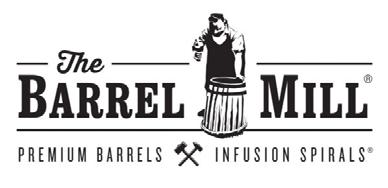
Berlin Packaging
Berlin Packaging, the only Hybrid Packaging Supplier® of plastic, glass and metal containers & closures, supplies billions of items annually, along with package design, financing, consulting, warehousing and logistics services. We bring together the best of manufacturing, distribution & income-adding service providers. berlinpackaging.com

FIVE x 5 Solutions
FIVE x 5 Solutions believes that distillery software should scale with you. We’re more than a service provider: we’re a committed partner in your distillery’s success and take pride in providing the most complete solution for your growing operation. We take your business as seriously as you do. Fx5solutions.com

Glencairn Crystal
Glencairn Crystal is a leading manufacturer of bespoke crystal and glass. For over three decades, this family business, based in Scotland, has gained an international reputation for fine crystal and glassware. Best known for the creation of the Glencairn Glass, the official glass for whisky. glencairn.co.uk
Harvest Hosts
Harvest Hosts connects over 225,000 self-contained RVers to a network of thousands of small businesses (hosts). Hosts simply offer RVers a one-night stay on their property, and, in return, RVers patronize the business while spending the night. Our program is a cost-free opportunity and 100% of the money spent onsite goes straight to the Host. harvesthosts.com

Independent Stave Co.
We’ve been in this industry for over 100 years, during which time we’ve learned a thing or two about what makes a great barrel to age great spirits. Partnering with distillers, we think outside the box to develop new products that push your vision forward. iscbarrels.com
MGP


At MGP, every step of creating a premium distilled bourbon, whiskey, rye, gin and vodka is guided by a passion bordering on obsession. We tirelessly collaborate with our partners, regardless of size, to develop and consistently produce the exact flavor profile that’s right for their brand. And for their discerning consumers. mgpingredients.com/distilled-spirits
Moonshine University

The nation’s premier educational distillery, bringing together specialists from every facet of the industry to provide education, training and professional services to start-ups and existing companies. Moonshine University is housed next door to sister company Flavorman, an international custom beverage development company. moonshineuniversity.com
Park Street
Park Street delivers productivityenhancing and cost-saving back-office solutions, advisory services, working capital, compliance management, export solution, integrated accounting and human resources management solutions. parkstreet.com

Saverglass
Saverglass provides for premium and super-premium spirits, still & sparkling wines and craft beers. Recognized for its innovation, its glass-making expertise and the quality of its glass, products and designs, Saverglass is the partner of choice. saverglass.com

Supercap
Supercap has been producing closures for spirits since 1999. We are present in the United States with a great sales network with partners and agents, thus being able to help and advise you in the choice of the best stopper for your spirits. supercap.it
Tapì
Tapì is an international group specializing in the design and production of miniature packaging design masterpieces. Our closures are based on cutting-edge functionality and technology, with an exclusive style that elegantly showcases each product. tapigroup.com
Thousand Oaks Barrel Co.
Thousand Oak Barrel Co. manufactures barrels to age and serve your spirits. All products offer a variety of options for customizing and branding with your personalized design. 1000oaksbarrel.com
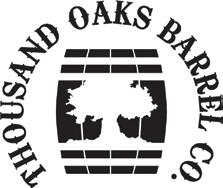
Ultra Pure
Signature Spirits, a division of Ultra Pure, is the leading independent supplier of bulk spirits in the U.S. and has the largest selection of alcohols stocked across its nine warehouses. We supply approximately 1,000 distilleries and brand owners with virtually every type of alcohol. ultrapure-usa.com

The American Craft Spirits Association would like to thank all of our annual sponsors and our key supporters of education. We are grateful for all of your support throughout the year. Cheers!
Briess Malt & Ingredients Co.
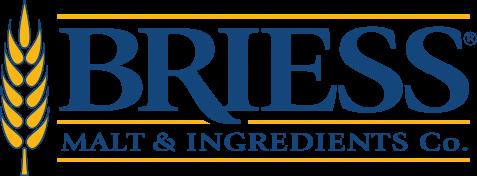
Since 1876, we’ve been supplying the highest quality malts in the industry. We’ve distinguished ourselves by developing the most extensive line of specialty malts made by any malting company in the world. We provide everything from malts to pure malt extracts, brewers flakes and filtering aids. briess.com
BSG Distilling
As the craft distilling industry grows, BSG Distilling has been focused on supplying distillers with the best ingredients from around the world. Today, the craft distilling market trusts BSG Distilling to deliver the finest ingredients at competitive prices, without sacrificing customer service. bsgdistilling.com
CIE
CIE is a state-of-the-art, 75 million wine gallon, beverage and industrial graded, commercial scale, alcohol facility located in Marion, Indiana. CIE supplies pure and denatured alcohols to customers in the spirit, beauty, personal care, medical, food-flavor and industrial markets. cie.us

Fermentis
Fermentis is an agile and expanding company, dedicated to fermented beverages. It is a unit of Lesaffre Group, global key player in yeast for over 160 years. Our roots are strong while having an audacious spirit. As things happen during the fermentation … our goal is to discover them in terms of taste, flavor and pleasure.
fermentis.com/en/
ISTS
ISTS makes workplaces safer, employees ready and compliance uncomplicated. ISTS has extensive experience working with the spirits industry, so our programs are totally customized to address your site. istsky.com

Kason Corporation

Kason Corporation is the industryleading global spent grain processing equipment manufacturer that distilleries can count on for efficiency, cost savings and reducing waste and disposal costs. kason.com
Lallemand Biofuels & Distilled Spirits
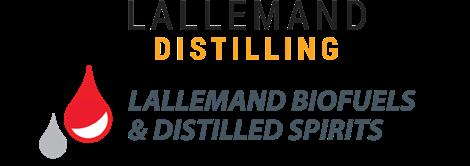
The leader in supplying fermentation products and services to the distilled spirits industry, we specialize in the research, development, production, and marketing of yeast, yeast nutrients, enzymes, and bacteria. lallemanddistilling.com
S PECIFIC brewing distilling
Malkin Law
Malkin Law focuses on serving the needs of the alcohol beverage industry. We regularly assist with licensing, review of industry specific agreements, trade practices and navigating state laws. Malkin Law is also honored to be Legal Counsel for ACSA. malkinlawfirm.com
Soderstrom Architects
Soderstrom Architects’ Ferar Wine & Spirits Studio has been involved in the design and master planning of more than 70 wineries and distilleries. Our studio was founded with a passion for design that conveys the special sense of place inherent in the site. sdra.com
Sovos ShipCompliant
Sovos ShipCompliant has been the leader in automated alcohol beverage compliance tools for more than 15 years, providing a full suite of cloudbased solutions to distilleries, wineries, breweries, cideries, importers, distributors and retailers. sovos.com/shipcompliant
Specific Mechanical Systems
Since 1984, Specific Mechanical Systems has handcrafted brewing and distilling systems for the craft beer and spirits industries, in addition to supplying various industries with complex processing equipment. specificmechanical.com
Steric Systems
The Steric Systems PureSmooth process is a method of “polishing” distilled spirits to reduce alcohol burn, open up and balance flavors, and improve mouth feel. It works on both aged and unaged spirits.
stericsystems.com
Whalen Insurance
Whalen Insurance is a second-generation insurance agency owned and operated by Peter Whalen. He started a program for craft breweries in the mid 1980s and expanded to craft distilleries almost 10 years ago. It provides all property and liability coverages needed to safely operate a distillery. whaleninsurance.com
Wine & Spirits Wholesalers of America
The Wine & Spirits Wholesalers of America (WSWA) is the national trade association representing the wholesale tier of the wine and spirits industry. It is dedicated to advancing the interests and independence of wholesale distributors and brokers of wine and spirits. wswa.org

WV Great Barrel Co.
The best-performing whiskey barrel on the market, precision built in the heart of Appalachia. Infrared toast and controlled char standard on every barrel. wvgbc.com/

A SPIRITED JOURNEY
In February of 2015, my husband Robert and I visited Austin, Texas, to attend ACSA’s 2nd Annual Distillers’ Convention and Vendor Trade Show. As affiliate members, we each wanted to evaluate, from our legal lenses, how we might best support the emerging craft spirits industry. ACSA, then just two years old, drew a couple hundred interested parties to the convention to discuss, among other things, the definition of “craft.” When it was announced that an executive search had begun to hire new executive staff, my husband uttered, “This career position is perfect for you!” Hmmm … was it? I wasn’t looking for a job and did I really want to entertain a career move to a field that was just taking hold? I either have him to thank or to blame for my transition from private practice to joining my third national association, as I became ACSA’s third staff hire. I’m proud to help guide ACSA, which like the spirits industry, has monumentally evolved over the past 10 years.

For example, ACSA began its journey with only two staff members, hosting an annual convention and a spirits competition. While ACSA continues to offer those hallmark events, it quickly became a beacon for shining the light on the importance of safety and solid technical training. Because distillation is both an art and science which can easily go awry, it was important to create and offer professional courses throughout the year. Hence, the Craft Spirits Classroom was born. Similarly, it was clear that convention programming and webinars, while important, weren’t the only method for delivery of relevant, current content. CRAFT SPIRITS magazine was created to ensure industry members received high-quality craft spirit news. It’s hard to remember a time when Craft Spirits Weekly or the Monthly Mash weren’t around to keep our industry members in the know. Packaging awards, our V.I.P. Lounge, podcasts and even a YouTube channel increase member outreach.
While the early association, launched with an elected board of directors in 2013, was and continues to be led by a dedicated body, governance now includes hundreds of industry members who volunteer on over two dozen committees. Three websites and two logos later, we continue to develop collective messaging: “We are Craft!”
The cornerstone of our association is our membership, which grew from about 20 committed businesses to hundreds of producers and suppliers throughout the U.S., with members now producing in all 50 states. In our 10th anniver-
sary year, our membership goal is to reach 1,000 members, reflective of a 3,900% growth since our founding. Dedicated efforts will continue to diversify our base, recognizing the importance of inclusion. For those reasons, ACSA added staff, now operating with seven full-time team members.
From the start, market access has been challenging. With a mission to elevate and advocate for the community of craft spirits producers, we have and will steadfastly continue to fight for our small businesses at the regulatory, legislative and executive levels. Public policy conferences, use of grassroots advocacy platforms, assisting state guilds, and educating and helping to support campaigns of legislators who support our issues remain our top priorities. With FET relief now behind us, it is time to look ahead towards DtC privileges extended in every state and a push to help TTB modernize consistent with our business needs. More reasons to have hired talented consultants to push our agendas rather than be pushed aside.
Hand-picked, supply-side businesses donated ACSA seed money to start our organization and now other Cask and Single Barrel suppliers continue to lend generous support. That number has grown to more than 30 sponsors of ACSA. Without that fiscal contribution, our own progress would have stagnated, leaving us incapable of nimbly responding to unanticipated challenges recently faced from hand sanitizer guidance to supply chain assistance.
We have accomplished lots in just 10 years. I’m smiling at the thought of what the next 10 years will bring. And I, for one, am grateful for having been with ACSA since its early years. I guess I owe my husband a big thank you for that encouragement! ■
Cheers and here’s to celebrating our 10th anniversary!
Margie A.S. Lehrman CEO

10 | FEBRUARY 2023 CRAFTSPIRITSMAG.COM
CEO ’ S NOTE
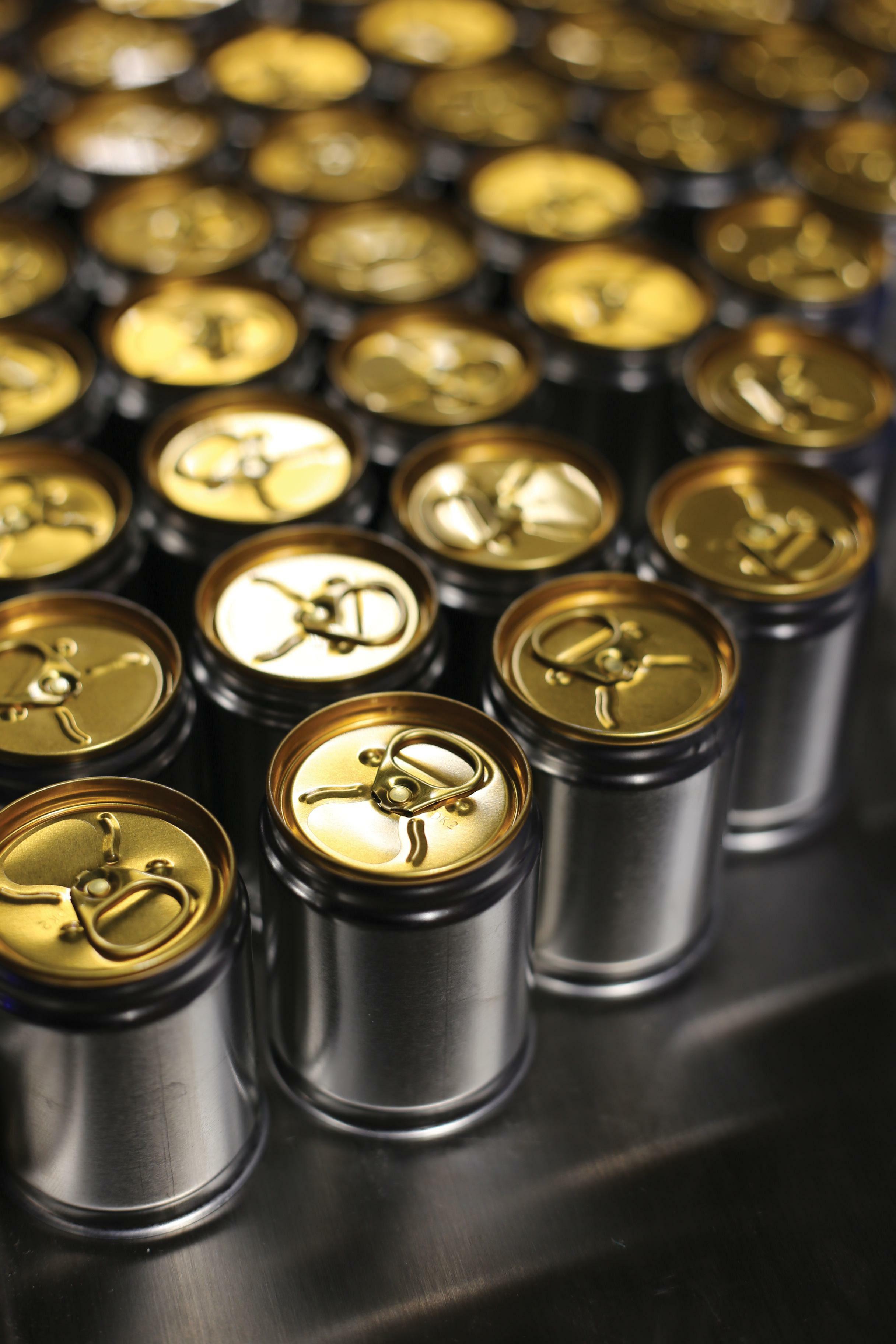
FORWARD TOGETHER
When I think of the transformation of the craft spirits industry over the past 10 years, it really echoes in my own experience.
In 2013, my distillery was in its third full year of production (fourth year since founding) and had grown from a flexwarehouse space focused on regional wholesale production into a larger space with a tasting room as a response to demand from our customers. We watched distillery tourism grow from an occasional visitor to a vital part of our business where we connect with our customers and share our passion and excitement for our products. My business has grown, but we are still very small in comparison to the overall size of the industry and we struggle with the same forces affecting every other craft distiller.
One of my activities as ACSA president has been connecting with new members and older members rejoining. It has been a privilege to talk to those of you taking my calls, telling me about your businesses, and learning about what ACSA can do to help you. The leadership of our organization is made up of independent distilleries of all sizes. We see and experience the struggles you’re facing just to connect your products to the customers who want to buy them. An ever-increasing number of products is colliding headlong with consolidation in the distribution tier to make the on-ramp to distribution and retail sales more like a dead end. We face challenges in staffing—there just aren’t enough people with industry experience to meet the hiring needs of members. And there are always new wrinkles we face in regulation at every level. Our goal is to help you meet all these challenges. We are looking forward on several fronts. We need to build our membership while supporting your needs: We can’t effectively advocate without a broad, supportive membership, and we need to help meet your challenges through strong advocacy and education. We need to increase the diversity
in the industry: Creating innovative products and building a workforce in today’s market means ensuring that the industry reflects the community of our customers. Our STEPUP Foundation is bringing new talent into the industry, and making it clear to folks looking for careers in spirits that we will help them thrive here. The market landscape is changing and creating new hurdles for independent craft distilleries: We need to work at the national level and with our state guilds to build opportunities for craft distilleries to access customers in a modern regulatory framework. We also need to support ACSA itself and ensure it has the resources and staff to do this essential work: When something matters, it’s key to ensure we have the resources to get the job done.
When we are celebrating the 20th anniversary of ACSA, I am confident that the work we’re executing now will be foundational in transforming the landscape of the craft spirits marketplace. Our small businesses and their products will continue to make this the best time in history to be a spirits consumer! ■
Becky Harris President, ACSA President, Catoctin Creek Distilling Co.
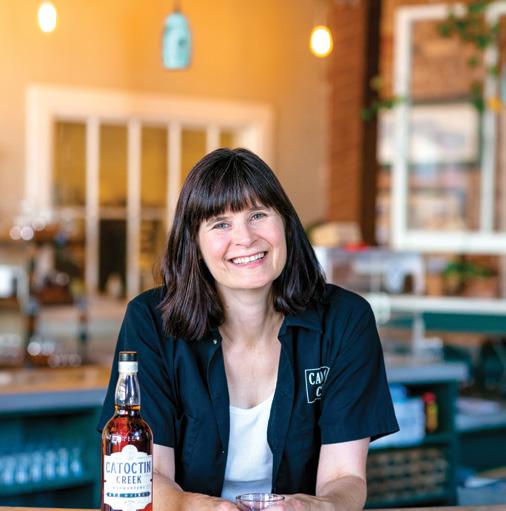
12 | FEBRUARY 2023 CRAFTSPIRITSMAG.COM president ’ s Note
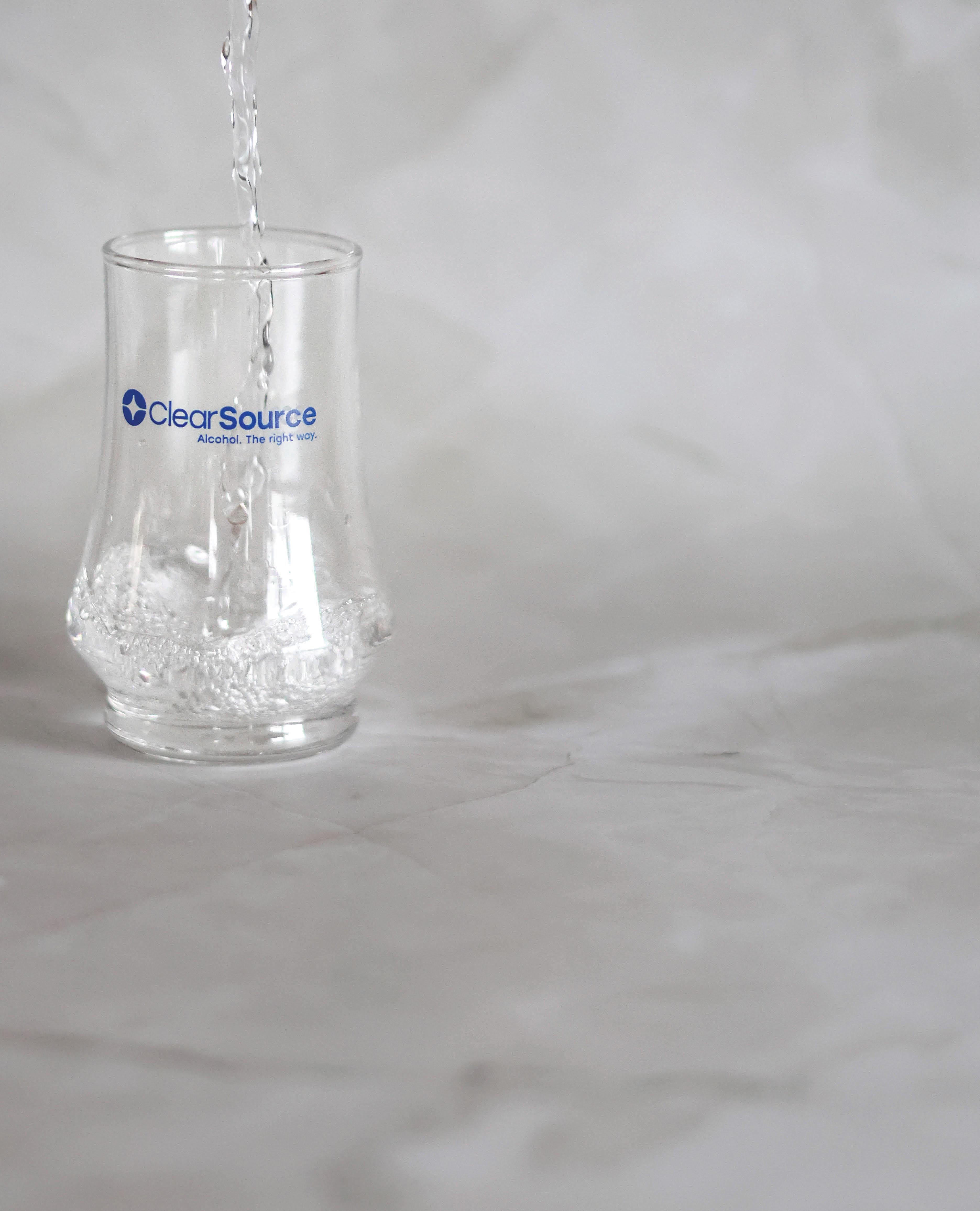




The Clear Choice for Your Grain Neutral Spirit Needs Less than 1 part per million of all impurities combined with no detectable organoleptic characteristics. Produced using #2 yellow dent corn sourced across New York State, using a natural fermentation process. Distilled seven times through nearly 600 feet of distillation, our GNS will never impede your spirits taste profile. clearsourceus.com Medina, New York sales@clearsourceus.com 585.798.6695 Request A Sample
HERE’S WHERE I GET DIRECT
If FET relief was the prevailing government affairs priority for most of ACSA’s first 10 years, the one that’s emerged as a dominant issue at the beginning of the association’s next 10 is DtC spirits shipping (I guess it’s more like dozens of individual issues, as it’s a state-by-state effort, in conjunction with the guilds). And, thanks to the Sovos ShipCompliant Direct-toConsumer Spirits Shipping Report—which Sovos conducted in partnership with ACSA through The Harris Poll—we’ve got a fresh set of numbers to back up what the craft spirits industry has been fighting for all along.
The online surveys of 618 and 588 regular craft spirits drinkers (adults 21 and up who drink craft spirits at least once a month), found that 79% of craft spirits drinkers would like to see laws change in order to expand DtC shipping, beyond the seven states plus the District of Columbia that currently allow it. Nearly as many, 76%, indicated that they’d be more likely to try new craft spirits brands
With nearly eight in 10 of the craft-spirits-drinking population demanding enhanced access to their preferred beverages, logic would dictate that it’s high time for the majority of states to consider modernizing their laws to better align with their voters’ demands.
But, unfortunately, headwinds remain. A recent one revealed itself in the form of a study that suggested that America’s moms have concerns about expanding consumer access to spirits via DtC, primarily because they worry it could facilitate underage drinking. While those instincts are valid and we as an industry and a society must continue to do all we can to ensure that adult beverages stay out of the hands of those under 21, history should put those concerns at ease.
DtC has been a reality for wine for decades and now the majority of states allow some form of direct shipping for wineries. According to another Sovos Report, this time in conjunction with Wines Vines Analytics, in 2021, the last full calendar measured, DtC wine shipments in the
U.S. totaled 8.6 million cases, valued at $4.2 billion—more than triple what it was just 10 years prior. Has there been a corresponding increase in underage drinking in that time period? According to the Centers for Disease Control (CDC)—which, I’ll remind you, has no commercial dog in this race and whose primary directive is to keep the American population healthy and safe—“rates of current and binge drinking among high school students have generally been declining in recent decades.” I lifted that quote right from the CDC website—you can see for yourself!
Wine and beer have been the proverbial canaries in the coal mine for DtC beverage alcohol shipping and they’ve more than risen to the challenge. If they hadn’t, I wouldn’t be wasting any key strokes on this topic in my Editor’s Note. And the craft spirits industry—with plenty of fish to fry in this complex marketplace—wouldn’t be dedicating such resources and efforts to solidifying a robust DtC future.
I hope to still be writing in this space 10 years from now. And when that time comes, I hope that the title of my ACSA 20th anniversary column, detailing the vibrant, safe and orderly DtC spirits market across the country will be “We Told You So.” ■
 Jeff Cioletti Editor in Chief
Jeff Cioletti Editor in Chief

14 | FEBRUARY 2023 CRAFTSPIRITSMAG.COM Editor ’ s Note

Non-GN barley, assuring low levels of Ethyl Carbamate Designed for all-malt whiskeys Sweet & bready, with notes of honey Available in whole kernel and flour Learn more about whiskey malt at BrewingWithBriess.com/Distilling ©2023 Briess Industries, Inc.
Contributors
Lew Bryson has been writing about beer and spirits full-time since 1995. He was the managing editor of Whisky Advocate from 1996 through 2015, where he also wrote the American Spirits column, and reviewed whiskeys. He is currently a Senior Drinks Writer for the Daily Beast, and also writes for WhiskeyWash.com, American Whiskey and Bourbon+. He is the author of “Tasting Whiskey” (Storey Publishing, 2014), a broad survey of the whiskeys of the world, their history and manufacture. He has also written four regional brewery guidebooks.
Kate Bernot is a reporter covering beer, food and spirits. She regularly contributes to Good Beer Hunting and Craft Beer & Brewing; her work has appeared in The New York Times, The Washington Post, Imbibe and elsewhere. She is a BJCP-certified beer judge and the director of the North American Guild of Beer Writers. She lives in Missoula, Montana.
Tyee Carr is a CPA who has served small businesses for over 20 years. He was on the faculty at Portland State University for over a decade and now leads TCA, a CFO advisory and outsourced accounting firm working with small businesses and nonprofits. Tyee is currently the CFO at Westward Whiskey and is inspired to be working with craft spirits.




For nearly 20 years John Holl has been covering the beer industry as a reporter and editor. He is the editor of All About Beer. He also hosts the Drink Beer, Think Beer podcast and he co-hosts Steal This Beer and the BYO Nano Podcast. John reviews beers for Wine Enthusiast Magazine and his work has appeared in the New York Times, Wall Street Journal, Washington Post, Los Angeles Times and NPR. He is the author of several books including the recently published “The Craft Brewery Cookbook.”
Jason Parker is the co-founder and president of Seattle-based Copperworks Distilling Co. With degrees in chemistry and microbiology, he was the first brewer at Pike Place Brewery in 1989. He went on to refine his craft with Fish Brewing Co. and Redhook, and he worked as brewmaster at Pyramid Breweries. He partnered with Micah Nutt to open Copperworks in 2013. Jason served as board member and chair of the Washington Distiller’s Guild and he now serves on the board of directors of the Craft Maltsters Guild.
Ashley Hanke is an attorney at Malkin Law P.A. practicing alcohol beverage and cannabis law. Ashley holds a Bachelor of Arts degree in Legal Studies from the University of Massachusetts, Amherst and a Juris Doctorate from Western New England University, School of Law.


16 | FEBRUARY 2023 CRAFTSPIRITSMAG.COM
Andrew Kaplan is a freelance writer based in New York City. He was managing editor of Beverage World magazine for 17 years and has worked for a variety of other food and beverage-related publications, and also newspapers. Follow him on Twitter @andrewkap.
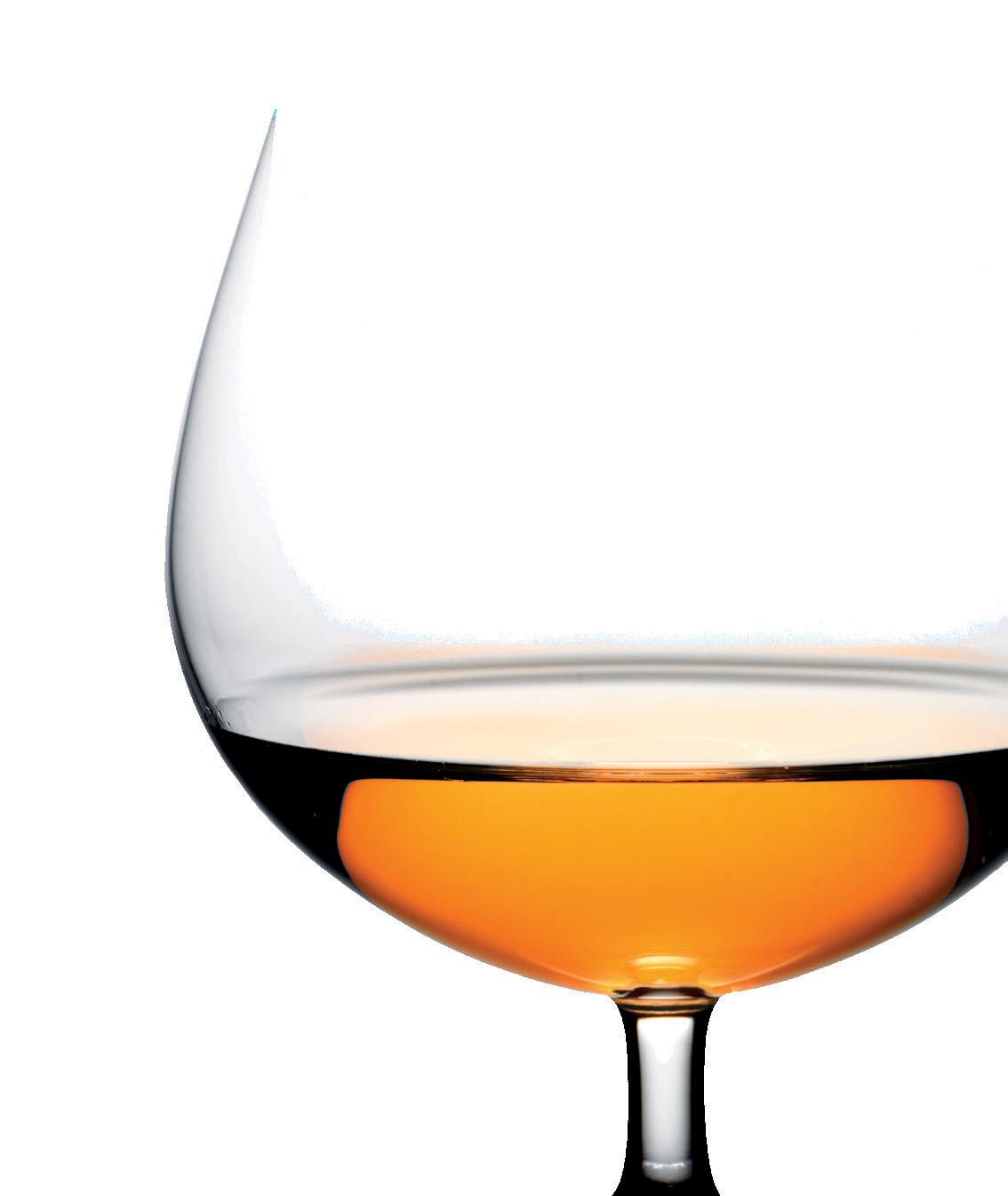


Kim Nguyen is a data-driven digital marketer who has worked in the realm of digital marketing for e-commerce brands for over 10 years in industries ranging from automotives to travel to consumer packaged goods. She now works with brands partnered with Speakeasy Co., a leading integrated direct-to-consumer e-commerce solution for beverage alcohol brands, on their digital advertising efforts to build brand awareness and scale online sales revenue.

Congratulating the ACSA on their 10th anniversary & our
Michelle Villas is an art director with more than 20 years experience in publication design. After spending 16 years working on magazines in New York for a variety of titles, including Beverage World, Michelle headed out to California where she now calls the South Bay home. She is the creative director on a range of lifestyle publications for The Golden State Company. A true typophile, she carries her obsession with fonts into every project.
CRAFTSPIRITSMAG.COM FEBRUARY 2023 | 17 Contributors
wonderful partnership.
MAKE YOUR CHOICE ON FERMENTIS.COM fermentis.com
Also WE are celebrating a 10 year anniversary, but for our E2U™ innovation. With our E2U™ certified yeasts, you can choose to pitch directly or proceed to rehydrate. We guarantee the same results.
Seattle-based Copperworks Distilling Co. has explored new cask finishes in its two latest special releases: Copperworks Rum Cask American Single Malt Whiskey and Copperworks Brandy & Rum Cask Finished Gin. The 100-proof whiskey is the distillery’s first whiskey finished in a Jamaican rum cask, and the 100-proof gin is the first gin from Copperworks to feature the combination of the two cask finishes.
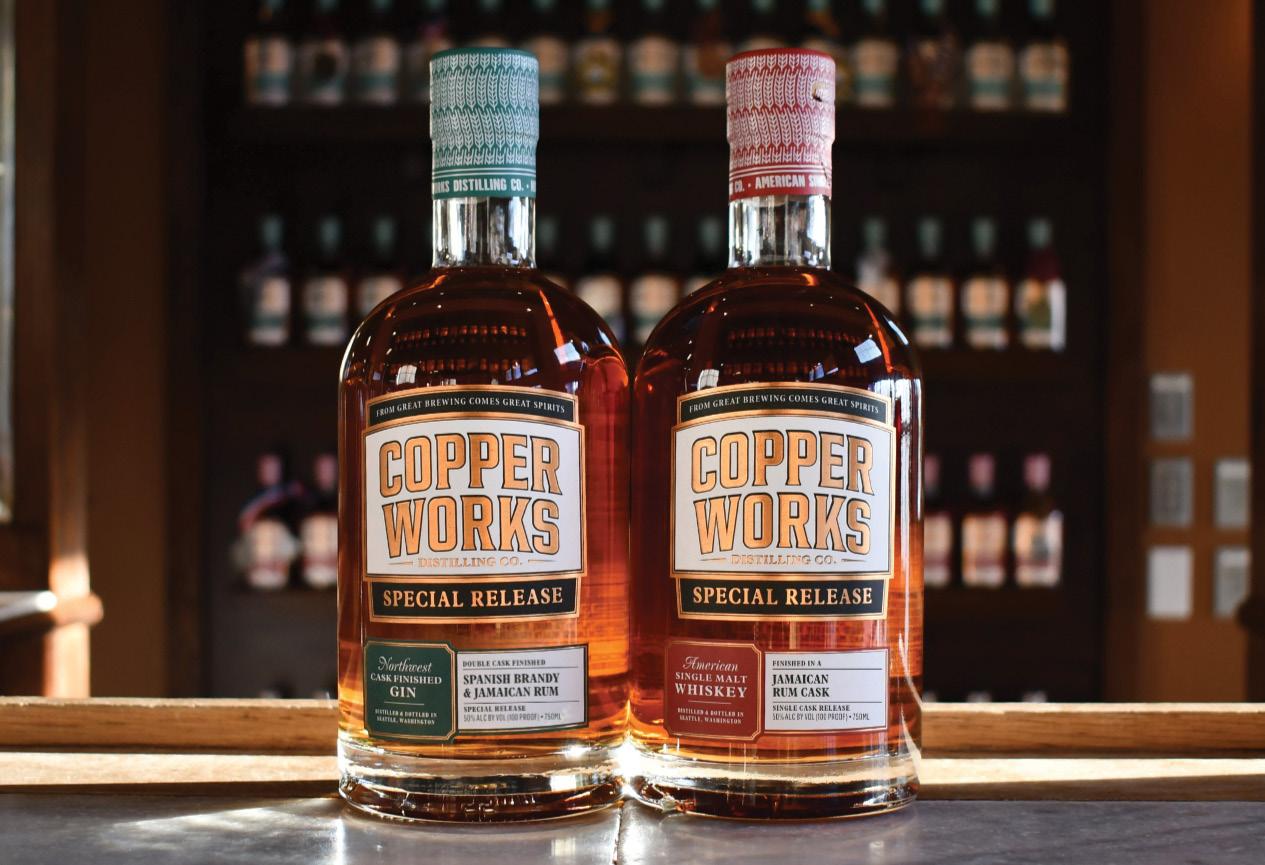
Defiance, Missouri-based Stone Ledge Spirits Co. announced the release of its first aged whiskey: Stowloch The 100-proof spirit is mashed, fermented, distilled, aged and bottled in the Ozark Highlands region; aged at least four years in made-in-Missouri barrels; and uses natural or untreated water that does not contain chlorine or fluoride.
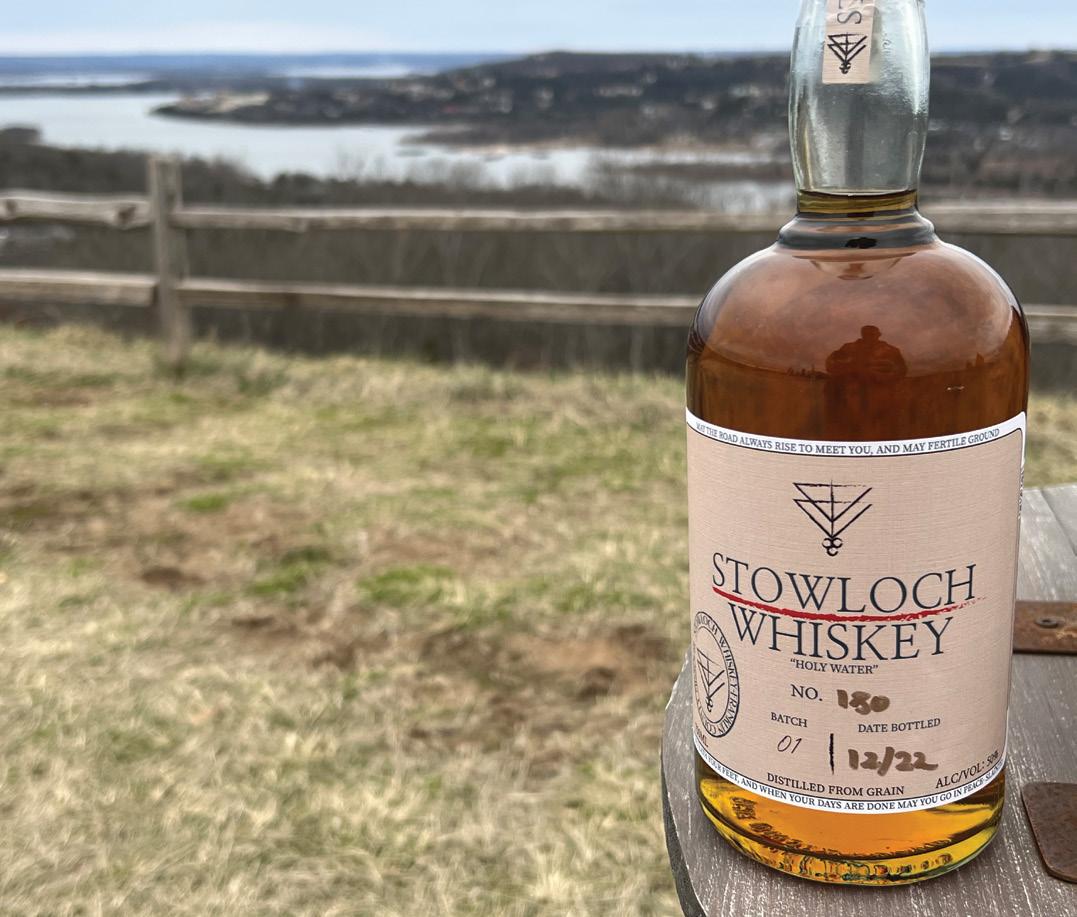
Chemist Spirits of Asheville, North Carolina, has released its inaugural Biltmore Single Malt Whiskey, the next spirit in the distillery’s partnership with the historic estate. Hand crafted with estate-grown Calypso barley aged in new oak barrels and finished in Biltmore Sangiovese barrels for a balanced flavor profile, the 94-proof spirit captures the timeless elegance of America’s finest and most legendary estate.

Austin, Texas-based Still Austin Whiskey Co. announced that its straight bourbon The Musician has a new companion. The Artist is a 100% straight rye whiskey made from Texas grains that’s dedicated to the dreamers, visionaries and artists who have inspired the team. Aged for at least two years and bottled at 99.6 proof, the new flagship rye whiskey represents the culmination of years of effort in which all the ingredients came together perfectly to create a work of art that feels, somehow, effortless.
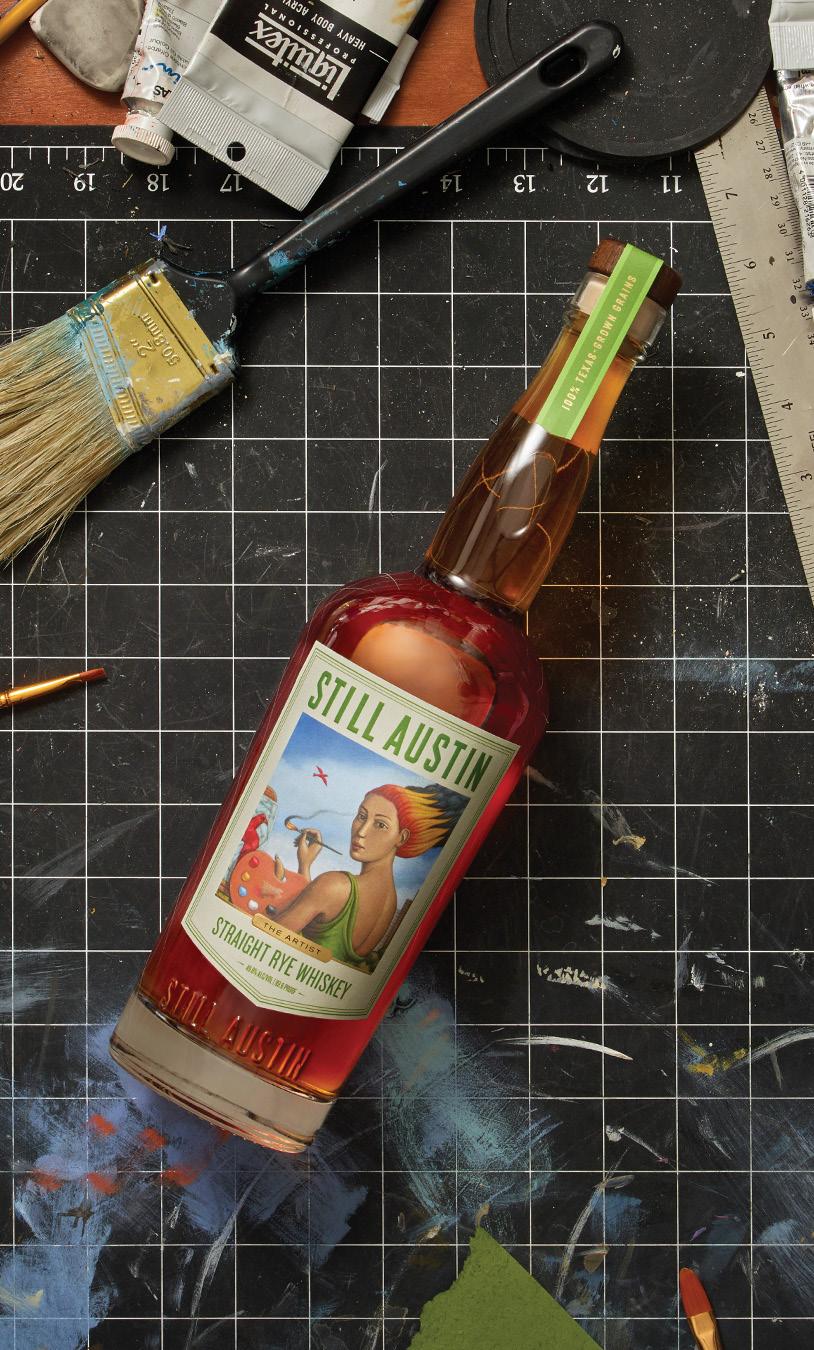
18 | FEBRUARY 2023 CRAFTSPIRITSMAG.COM New Spirits

PROVIDING PACKAGING COMPONENTS SINCE 1980 Roots in the packaging industry stretching back nearly 100 years Custom design and a variety of material options to help you achieve your perfect packaging by working with materials such as glass, ceramics, plastics, metals and wood. (514) 487-6660 | phoenixpackaging.com Packaging solutions that keep your spirits high! CONGRATULATIONS CRAFT SPIRITS ON YOUR 10-YEARS!
Milwaukee-based Central Standard Craft Distillery unveiled the next brandy in its Flannel Series: North Chocolate, a decadent combination of North Wisconsin brandy and dark chocolate. The 70-proof spirit features hints of dry cherry, vanilla and, of course, chocolate.
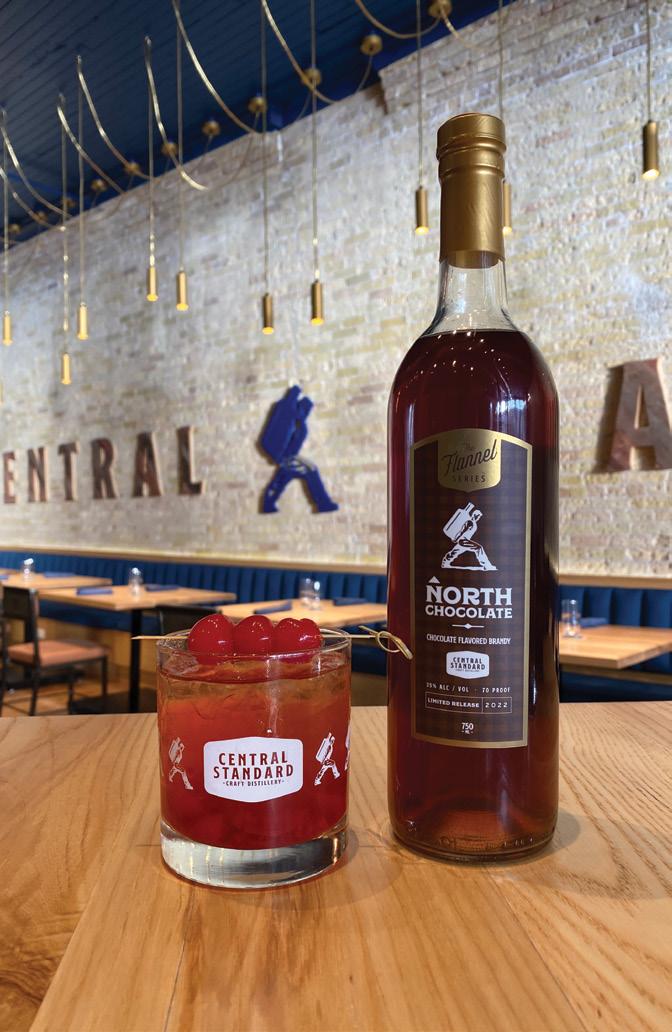
Mike Frugé and his family of fifth-generation rice farmers in Branch, Louisiana, have released a full batch of their new J.T. Meleck Rice Whiskey at 96 proof. The whiskey will now be available year-round at select retailers throughout Louisiana and Arkansas. The Founder’s Small Batch Edition of the whiskey, harvested, distilled and bottled in Louisiana from 100% rice, sold out last year. J.T. Meleck Rice Whiskey is the second rice-based spirit for J.T. Meleck, which began distilling rice vodka in 2018.

Montpelier, Vermont-based Caledonia Spirits launched Barr Hill Tom Cat Kingdom Strength, the first release in Barr Hill’s new Distillery Selection series. Bottled at barrel strength, it is a full-bodied, aged gin, featuring notes of sweet, brown aromatics, hints of vanilla and smoky oak, as well as a touch of juniper that cuts through the bright citrus and cedar notes. This 113-proof Tom Cat shines through any cocktail and gives a luscious finish when enjoyed neat.
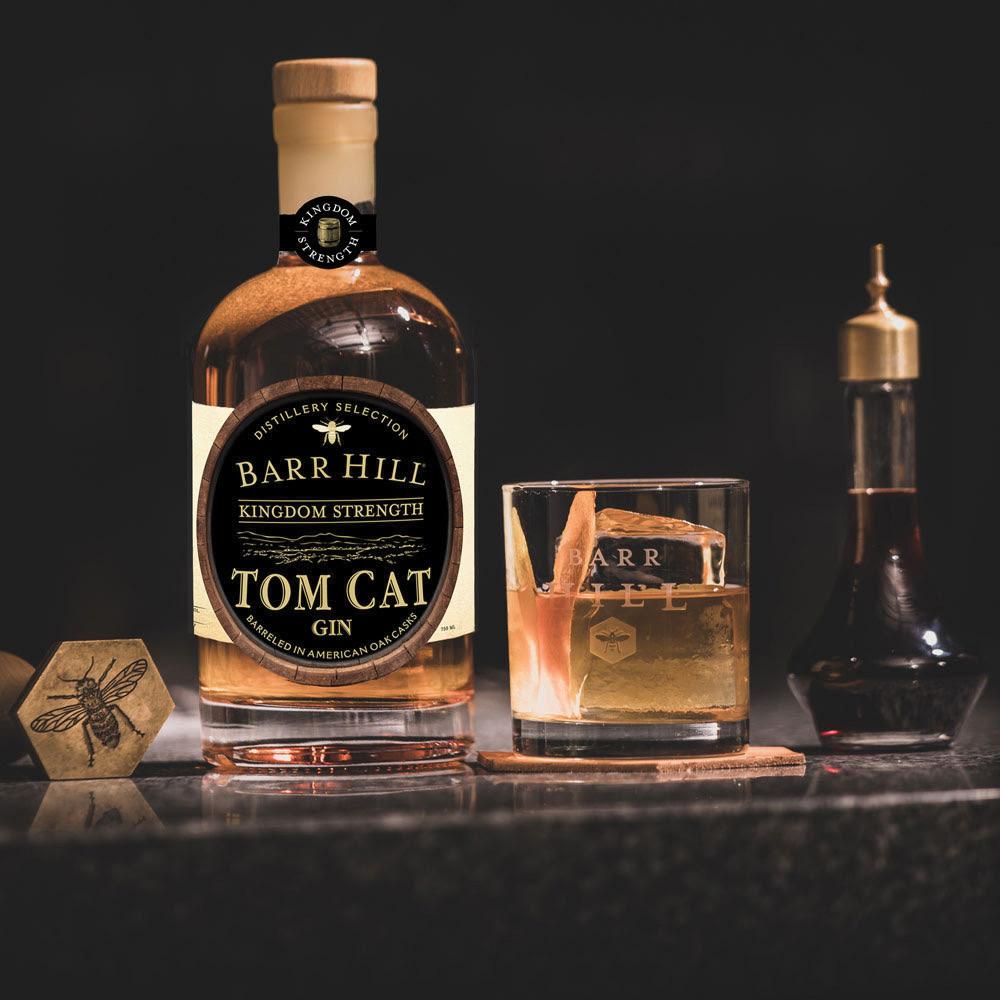
Bend, Oregon-based Deschutes Brewery and Crater Lake Spirits announced the release of a single barrel cask strength Black Butte Whiskey: a limited, special-edition American malt whiskey distilled from the wash of Deschutes Brewery’s famed Black Butte Porter and aged in new char No. 4 American white oak barrels. The resulting 125.8-proof spirit is balanced, yet profoundly complex, featuring strong notes of sweet dark caramel, warm bread and intense vanilla.
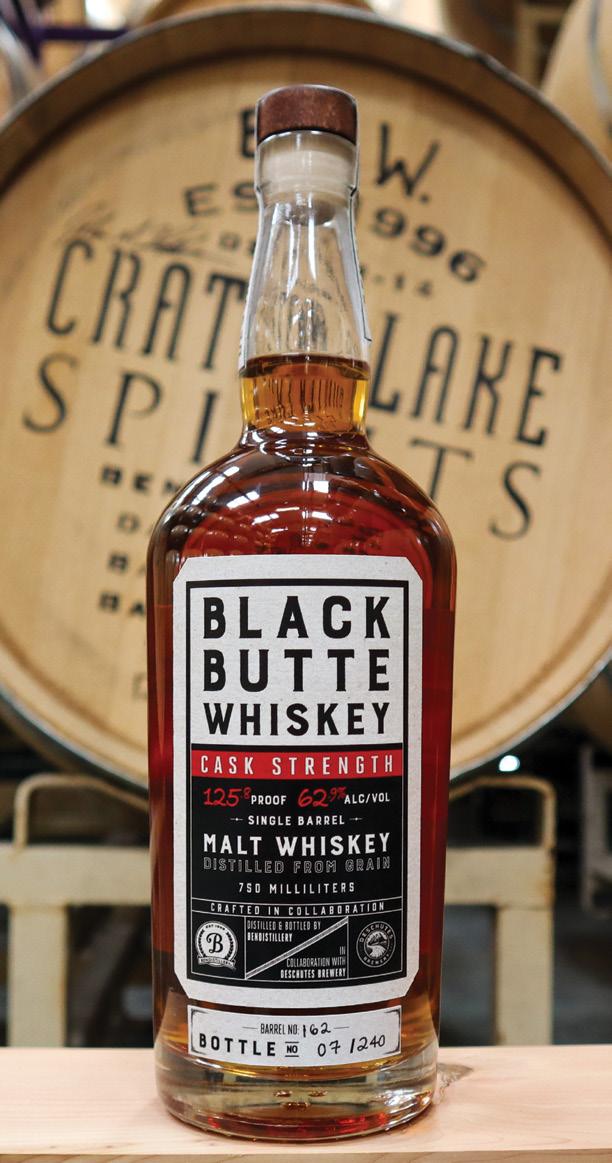
20 | FEBRUARY 2023 CRAFTSPIRITSMAG.COM New Spirits
The soul is in the details.




We’re a branding and design agency built to show brave brands a way forward. We deliver strategy, storytelling and package designs that move products off shelves as fast as they’re stocked.


See more examples of our branding and label design work creaturetheory.com



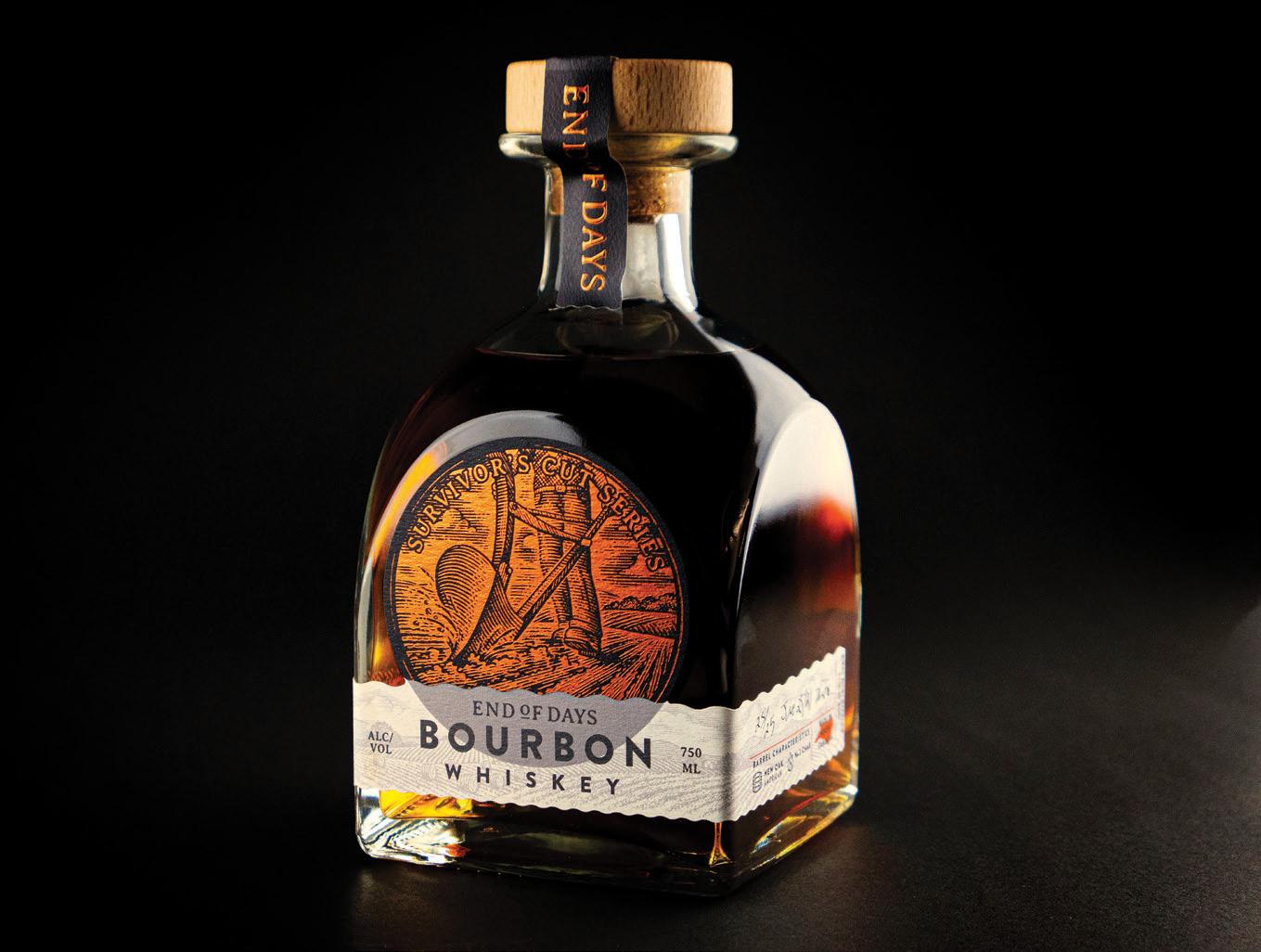
 Photography: Andrew Welch
Photography: Andrew Welch
Holy Waters

Author: Tom Morton
Publisher: Watkins Publishing
Release Date: Nov. 8
Tom Morton, keen motorcyclist, funeral celebrant and whisky aficionado, takes readers on a journey around the globe, exploring the links between famous alcoholic spirits and spirituality. Holy Waters is Morton’s journey to the spiritual heart of whisky, sake, rum, Champagne, beer, mead and a variety of wines. With great insight, humor and for the most part sobriety, he traces the links between brewing, winemaking, distilling and worship, from ancient pagan rites to the most modern Trappist technology.
Our Farm, Your Glass.
Release Date: Nov. 22
This cocktail book from New Tripoli, Pennsylvania-based Eight Oaks Farm Distillery features crew and customer favorites. “We get requests all the time for cocktail recipes, and now folks have a chance to make everything from Tessa’s Tea to the Firecracker, our number-one selling cocktail since 2019,” said Josh Van Den Berg, Eight Oaks’s chief brand officer.

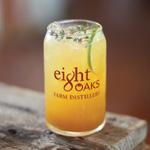
“Over the years we’ve had some great cocktails, and we wanted to take away the mystery for folks, and give them a chance to make their favorites in the comfort of their own home,” added COO Carly Butters Snyder.
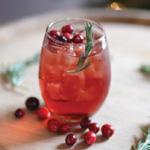


Drinking with My Dog: The Canine Lover’s Cocktail Book


Author: Natalie Bovis

Publisher: Running Press Adult


Release Date: Jan. 17
Bestselling author, award-winning mixologist and passionate animal advocate Natalie Bovis pairs fascinating dog trivia with easy-to-make drink recipes in this unique cocktail book for dog lovers. Readers will find everything they need to know to set up a home bar and mix more than 60 delicious cocktails organized into dog-themed chapters, featuring rescue dogs, famous furbabies, wild dogs and more.
Seattle Cocktails
Author: Neil Ratliff
Publisher: Cider Mill Press
Release Date: Nov. 15
Discover the unique Seattle vibe with delicious recipes from some of the city’s top mixologists and bartenders. Explore the best places to drink in the city with chapters divided by neighborhood and remake your favorite local beverages at home. Enjoy recipes from Emerald City bars that take full advantage of local flair and flavor, with stunning photographs that capture the heart of this colorful port city.
22 | FEBRUARY 2023 CRAFTSPIRITSMAG.COM
Imbiber ’ s Bookshelf FARM DISTI LLERY
DON’T MISS EACH DIGITAL ISSUE OF CRAFT SPIRITS MAGAZINE
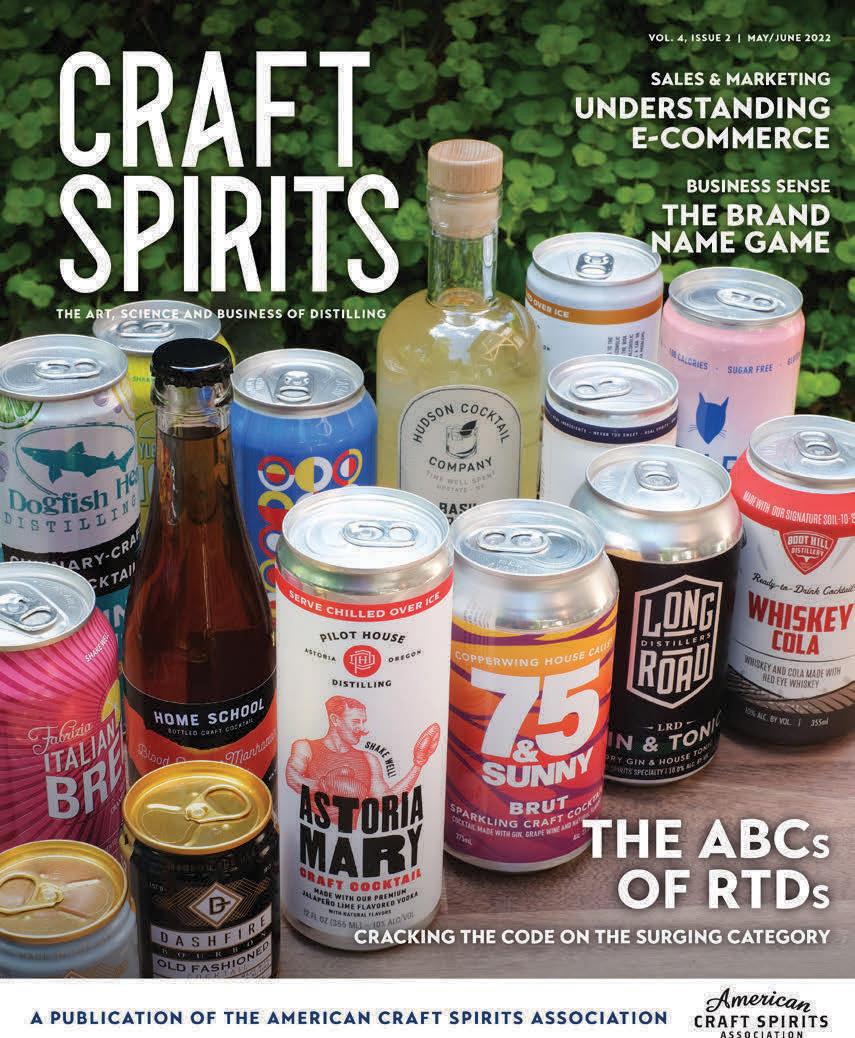


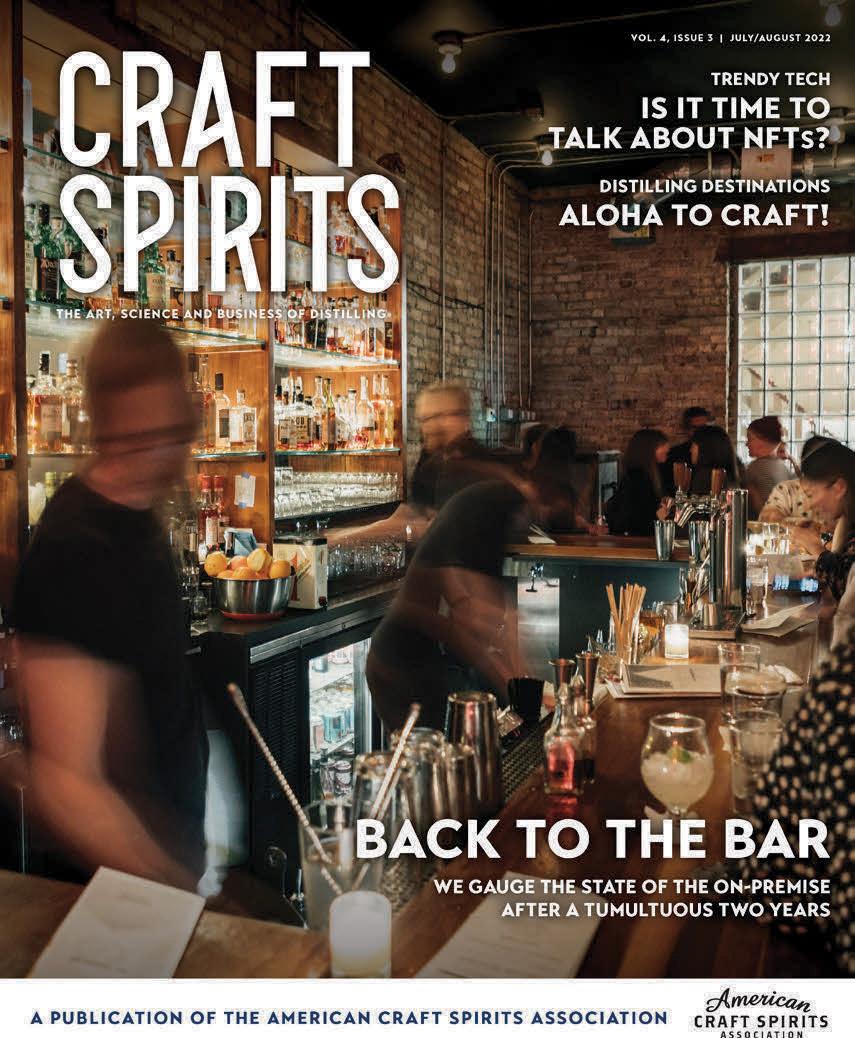

Subscribe for Free at CraftSpiritsMag.com CRAFT SPIRITS magazine is the unparalleled resource for in-depth insight and intelligence for the entire craft spirits universe. The bi-monthly digital magazine from the American Craft Spirits Association features the information and analysis that small, independent spirits producers and allied businesses need to operate in today’s complex craft beverage market.
INFLATION CAUSES MANY DISTILLERIES TO RAISE PRICES
As we approach the third anniversary of the pandemic, guessing when or if inflation will stop skyrocketing seems like a fool’s errand.
What is certain, however, is that inflation has left a substantial mark on craft spirits producers.
In a recent poll conducted by the American Craft Spirits Association, 100% of respondents said inflation impacted their business in 2022 and more than 80% have raised prices on their products.

“Our cost of goods went up 38%, so we put our prices up 10%,” says Colin Keegan of Santa Fe-based Santa Fe Spirits. “Three distributors dropped us immediately, as their costs went up, so they wanted a price reduction from us!”
Name the good or service, and there’s a strong chance that distillers have seen a rise in costs. Raw materials, packaging, shipping/ distribution, equipment and labor are among the most commonly cited areas.
“Inflation is killing small businesses,” says Mark Beres of Flying Leap Vineyards and Distillery in Elgin, Arizona. “We fire our stills using a liquid propane-fueled boiler, and the cost of liquid propane has more than doubled.” Beres adds that some suppliers are adding fuel and compliance surcharges to orders.
In December, Sean Venus of Santa Cruz,
California-based Venus Spirits said that interest hikes and labor increases would likely result in negative growth this year. Venus also cited the rising cost of food as an issue, which was echoed by Jeff Wuslich of Cardinal Spirits in Bloomington, Indiana. Wuslich says a salmon dish at the distillery’s restaurant rose to $26. When he took a closer look at a break-even analysis, he realized it should have actually been $32 and the distillery decided to remove it from the menu.
While it may feel difficult for distillers to raise prices on their spirits, it is necessary to support the people who are responsible for getting those spirits into a bottle in the first place. In a June 2022 email to its customers, Seattle-based Copperworks Distilling Co. announced a 15% increase on its whiskeys and vodka to offset inflation. In addition to mentioning its own team members, the distillery cited a commitment to local farmers and malthouses. “We embrace innovation with unique and interesting flavors, while also providing a positive impact to the local economy, environment, and community,” the distillery wrote. “We feel these benefits are worth the associated [double to triple] cost increase versus purchasing more commonly available commercial barley.”
Despite what seems like neverending skyrocketing costs, distillers are hopeful that a return to normalcy is near.
“We see prices coming back down on many items,” says Mike Brown of California-based Camarillo Barrel Works. “It seems a lot of supply chain issues are being resolved. Transportation costs are also coming down.”
—Jon Page
DUTY DRAWBACK LEGISLATION ABSENT FROM FEDERAL SPENDING BILL
After proposed duty drawback legislation was not included in the federal government’s year-end omnibus spending bill, some members of the craft spirits community are breathing sighs of relief and sounding alarms for future legislation.
Two bills introduced in 2022 would provide drawback (refunds of certain duties, taxes and fees) on whiskies imported into the U.S. when the same or similar products are later exported or destroyed. A similar drawback

is currently available for clear spirits due to 2016 legislation that allowed for drawback for imported spirits that share the same eightdigit Harmonized Tariff Schedule (HTS) code. Currently, whiskies do not share the same code, but S.5187—introduced in December by Sen. Bill Cassidy (R-LA) and Sen. Gary Peters (D-MI)—would amend the HTS to provide a uniform 8-digit subheading number for all whiskies. H.R.6854, introduced in February of 2022 by Rep. Steve Womack (R-AR) and John
Yarmuth (D-KY) takes a different approach but would provide the same end result. In a press release announcing their bill, Womack and Yarmuth said the legislation would prioritize American jobs and economic growth.
But according to a beverage alcohol insider who spoke to CRAFT SPIRITS magazine on background, the legislation will only benefit large multinational companies with large import portfolios. They say it will allow those larger producers to avoid excise taxes and funnel that money back into marketing or price reductions, creating a marketplace disadvantage for craft distillers. And the Congressional Budget Office, in its latest budget and economic outlook, noted that it lowered its projections of receipts from taxes on alcohol and tobacco products from 2022 to 2031 by about $17 billion because of drawbacks.
One producer of craft whiskey, who has closely inspected the bills, told CRAFT SPIRITS, “I don’t understand how something like this could get passed other than as big favors to big donors from big distilleries.”
—Jon Page
CRAFTSPIRITSMAG.COM Industry Update
Here’s to the “can’t sleep until you get it perfect” type.



There’s a different spirit here in Whiskey City, USA. A spirit that’s fueled by the passion and dedication of our people to create masterful whiskey, bourbon and ryes. A spirit of hard work and never settling until we get it just right for our customers. That’s the MGP way. We pour everything we have into helping distillers bring their visions to life and only perfection will do.



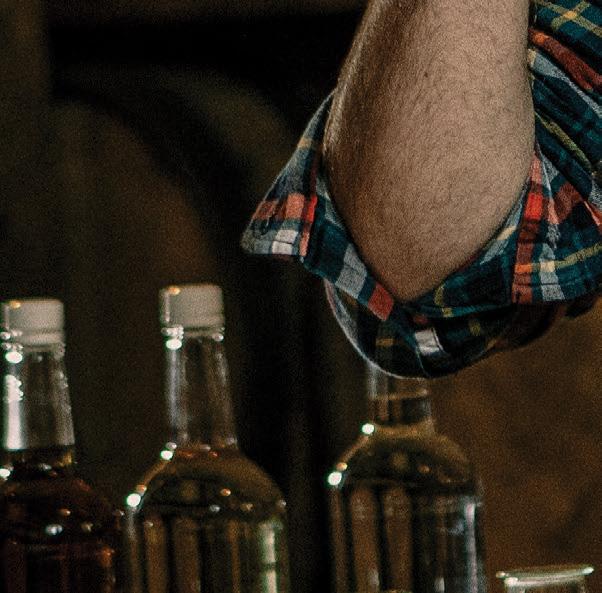


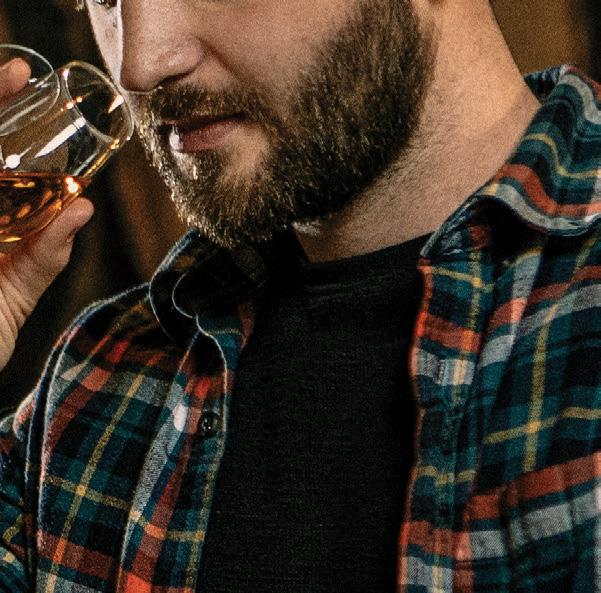
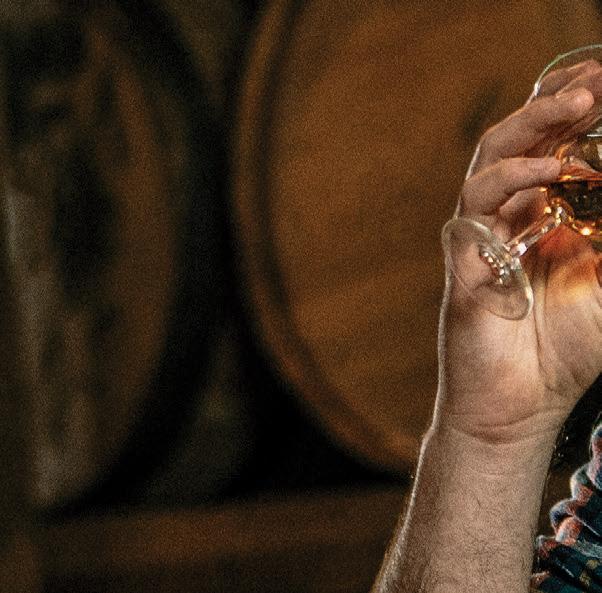




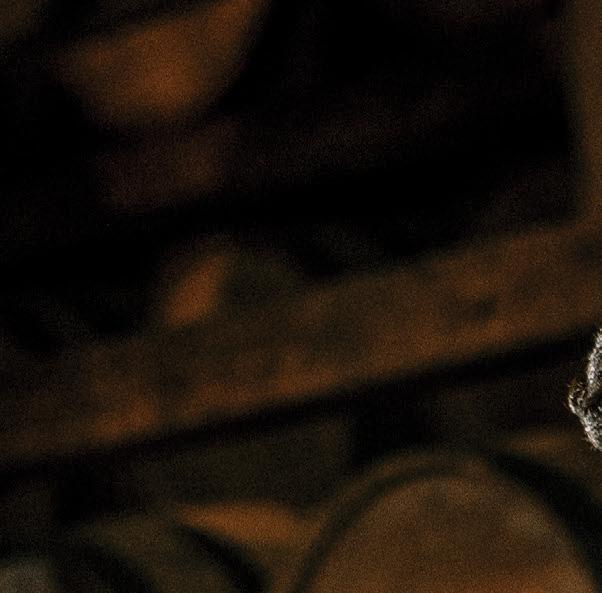

MGPINGREDIENTS.COM/DISTILLED-SPIRITS Atchison, KS | Lawrenceburg, IN
GOOD DEED SPIRITS EXPANDS AVAILABILITY WITH BIG THIRST

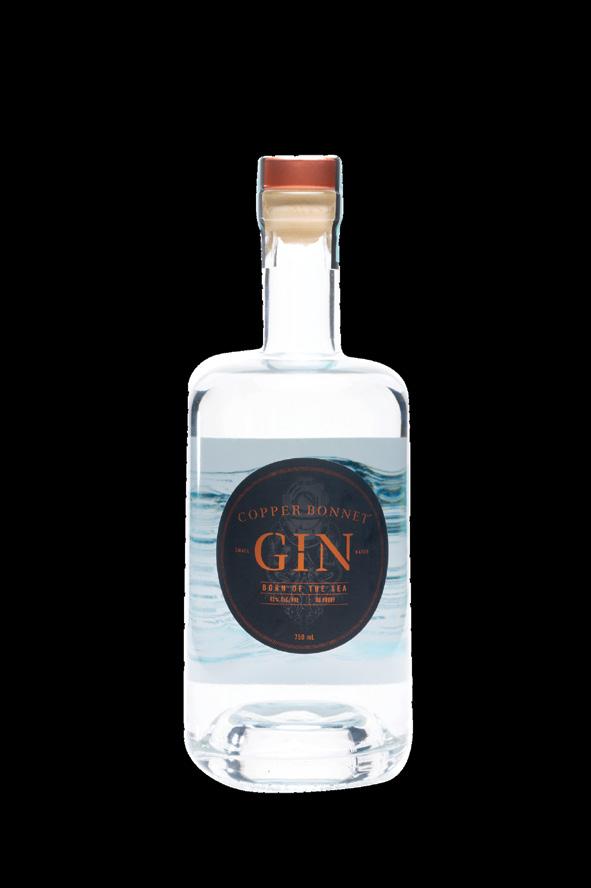

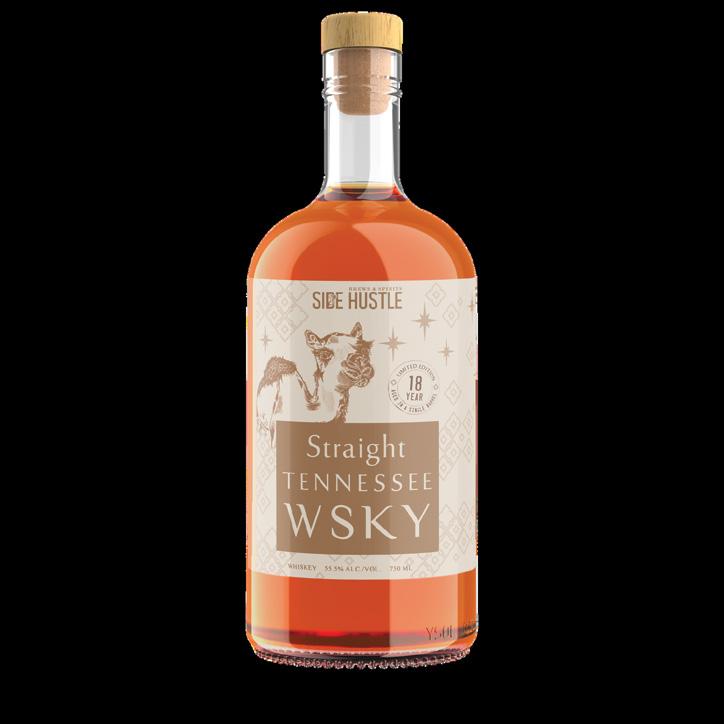

Good Deeds Malt Whiskey, the collaborative benefit whiskey released in 2021, is now available for purchase online with shipping across the U.S. through Big Thirst Inc., a comprehensive e-commerce sales and marketing company. Big Thirst is providing its services to Good Deeds Spirits at no cost to ensure that 100% of proceeds from the sale of the whiskey will benefit The Spirits Training Entrepreneurship Program for Underrepresented Professionals Foundation (STEPUP), the diversity and inclusion initiative founded by ACSA.
Good Deeds Spirits was established in 2021, with the intention of creating interesting, collaborative spirits releases with the goal of raising money to benefit important industry causes. Good Deeds Malt Whiskey— the inaugural, limited-edition malt whiskey—was created as a blend from 10 craft distilleries, all of whom donated a barrel of whiskey for blending, with the purpose of increasing inclusion and diversity in the drinks industry. Fellow distilleries and industry suppliers including Saxco and Tapi provided donations of materials and expertise to contribute to the mission of helping to diversify the industry.
“Collaborating with other distillers on Good Deeds Whiskey is our way of pulling our community together to raise funds and awareness for a program we’re all incredibly excited about,” says Johnny Jeffery, industry consultant, previously general manager, Bently Heritage Estate Distillery. “Expanding our reach by partnering with Big Thirst will better enable people all over the country to purchase this limited-edition whiskey for a good cause. We know this partnership will help us continue to generate revenue for STEPUP and other programs we support.”
“The Big Thirst team shares Good Deeds Spirits’ values of diversity, equity, and inclusion and we’re thrilled to be able to help contribute to STEPUP,” says Matt McGinnis, CEO of Big Thirst. “We are eager to provide our time, and energy, and to offer our online sales platform free of charge to help further the mission of increasing diversity in our industry.”
Good Deeds Malt Whiskey is available for purchase exclusively online at gooddeedsspirits.com for a retail price of $75, with 100% of the bottle price benefiting STEPUP.
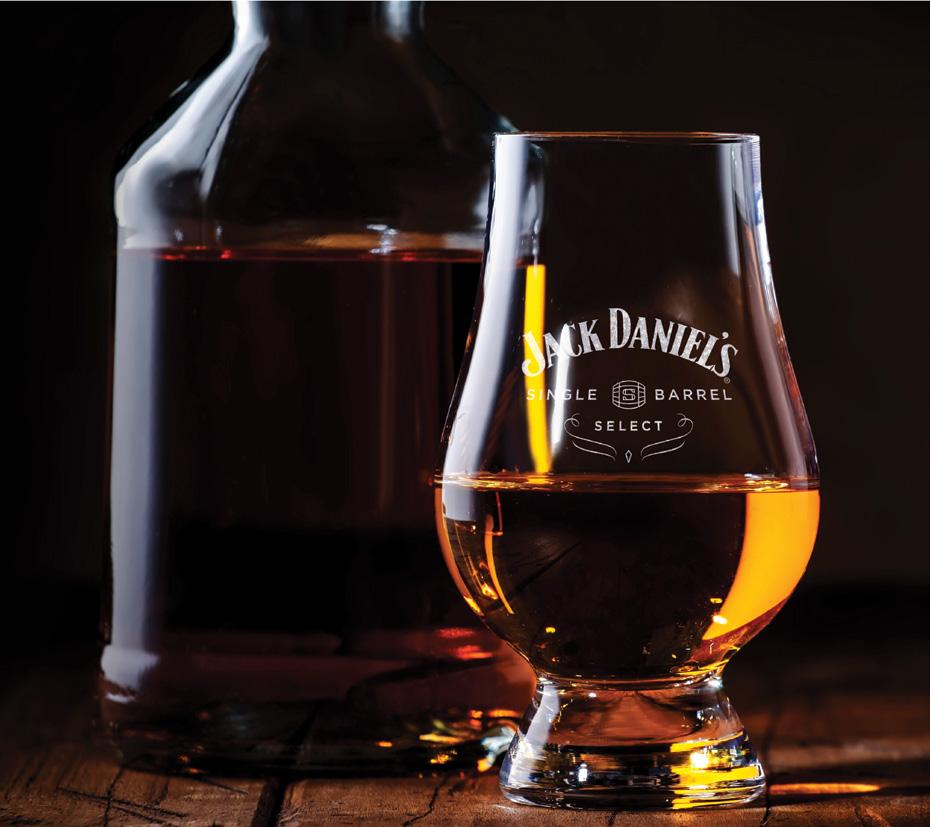
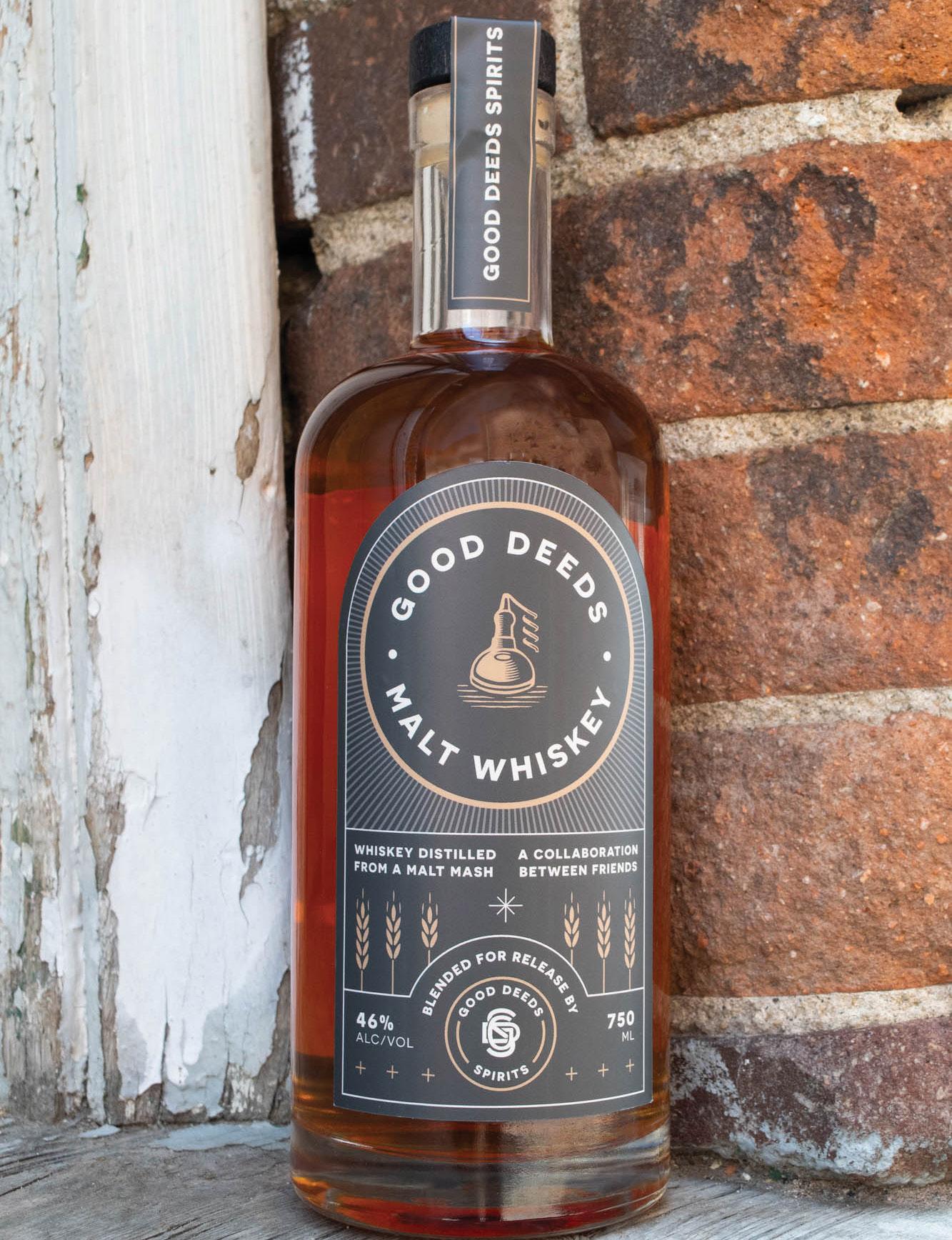
26 | FEBRUARY 2023 CRAFTSPIRITSMAG.COM Industry Update
MARKETING, BRANDING & MORE
Experts in intoxicating beverage.
LOGOS,
KO DISTILLING CONTINUES MARKET EXPANSION IN MICHIGAN, MISSOURI AND MINNESOTA
KO Distilling of Manassas, Virginia, has continued to expand through the Independent Distributor Network (IDN) and has announced partnerships with distributors in Michigan, Missouri and Minnesota.
In 2022, KO Distilling announced that it had aligned with IDN to facilitate expansion outside of its original footprint of Virginia, Maryland, Delaware and the District of Columbia. Initial expansion brought KO’s award-winning spirits to Massachusetts (Ruby Wines) and Connecticut (Slocum & Sons). KO ended 2022 by expanding into Michigan (Imperial Beverage), Minnesota (Vinocopia Inc.) and Missouri (Grey Eagle).

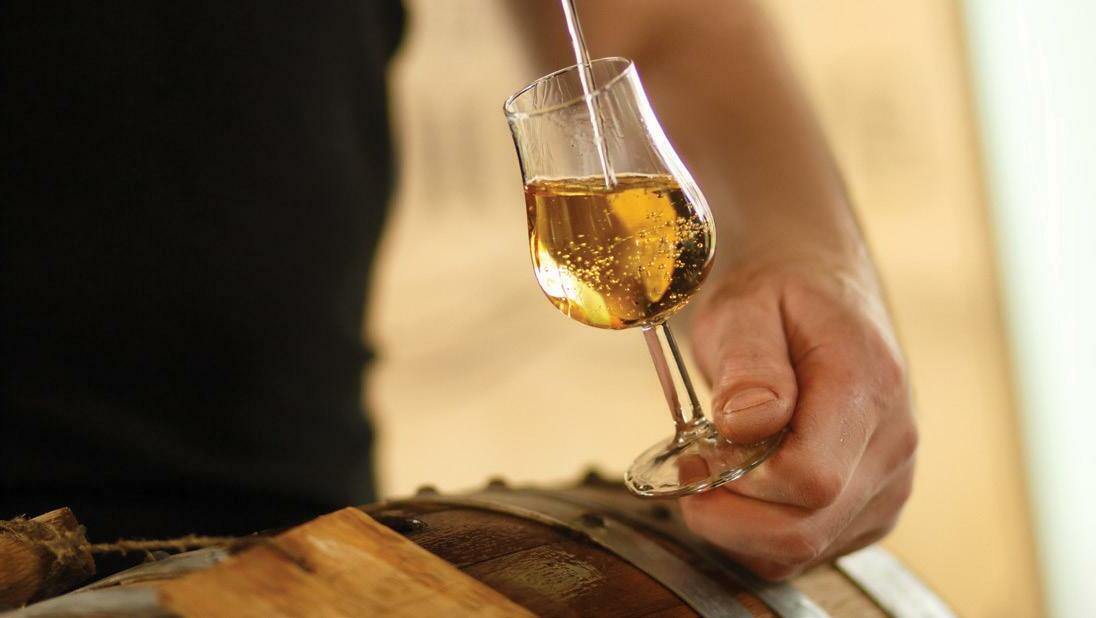
“We’ve been proudly sharing the best of Virginia with whiskey and gin lovers in the region,” said KO CEO Bill Karlson. “Thanks to the talented IDN team, we are seeing that the recognized high quality of KO Distilling spirits is finding new fans in new markets. This is an exciting new chapter in our growth.”


CRAFTSPIRITSMAG.COM FEBRUARY 2023 | 27 Industry Update
XPRESSFILL BOTTLE AND CAN FILLERS are handcrafted and custommade to order in the USA. We offer five types of fillers: Volumetric Filler, Level Filler, Carbonated Beverage, Counter Pressure Filler, and a Hot Fill Level Filler. With ten models to choose from, there is an XpressFill that will fit your needs. Order yours today! BOTTLE FILLING MADE EASY! FILL YOUR PASSION. 844.361.2750 (toll free) sales@xpressfill.com XPRESSFILL.COM XF460 VOLUMETRIC FILL Scan this code to view all of our products!
STEVE MCCARTHY, FOUNDER OF CLEAR CREEK DISTILLERY, PASSES AWAY
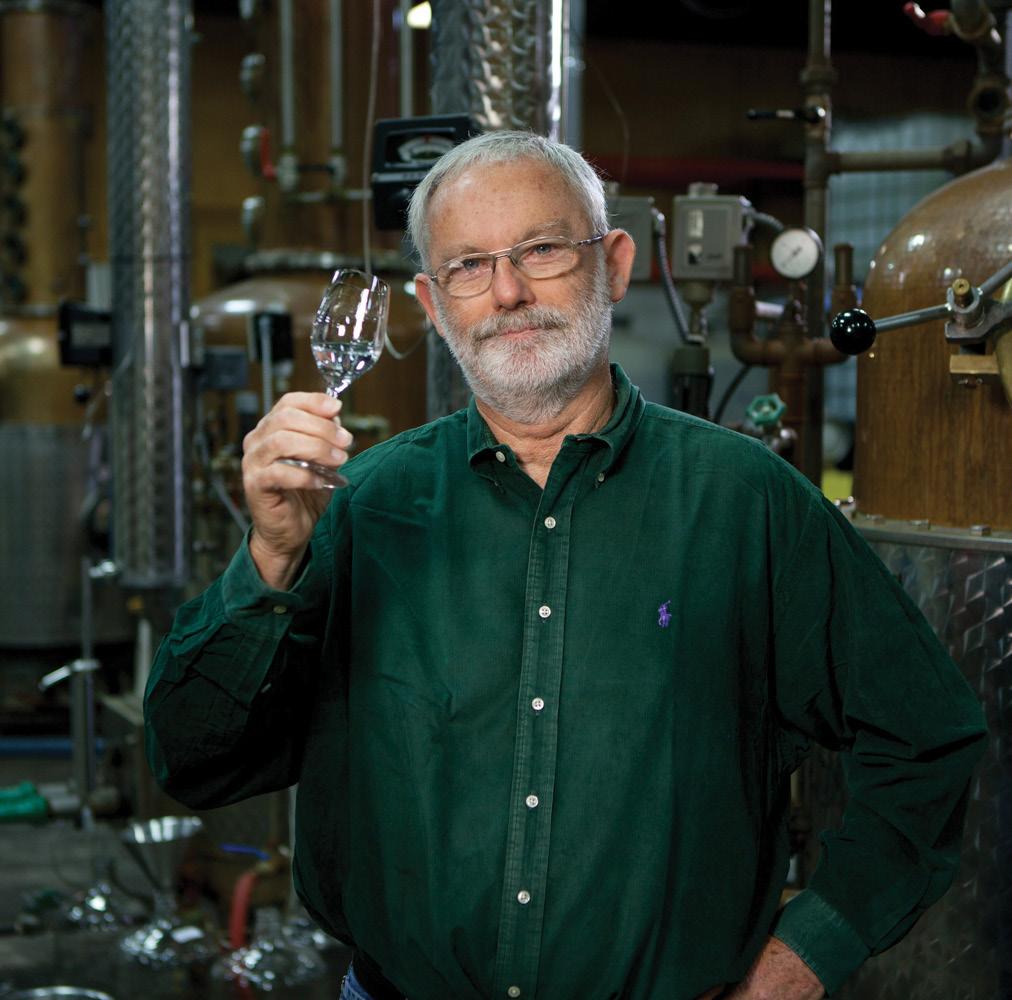
In January, the craft spirits world lost a pioneer when Clear Creek Distillery founder Steve McCarthy died at the age of 79.
One of the first craft distilleries in the U.S., Clear Creek Distillery was founded in 1985 with a vision to use the bountiful fruits of the Pacific Northwest to create fruit-based spirits that rivaled the best of their European counterparts. McCarthy is also credited for creating the first American single malt whiskey: McCarthy’s Oregon Single Malt Whiskey.
McCarthy sold the distillery to Hood River Distillers in 2014.
CRAFT SPIRITS received the following statement from Joe O’Sullivan, Clear Creek’s master distiller.
“Steve McCarthy was one of the largest men in the Pacific Northwest. A fearless adventurer, innovative creator, dedicated craftsman and father to many future distillers. Steve passed away leaving a legacy much bigger than a name on a bottle or a signature on a formula. Both generous and kind, even on his most combative days he was gregarious and dedicated to the people he apprenticed. If there is fire in McCarthy’s, it’s from Steve. If there’s depth in our brandy, it’s because he taught us to find it.
“Steve founded Clear Creek in 1985 as the third craft distiller in the United States, but to anyone who knew him that is only one small detail of a phenomenal man. He remains alive here in our passion for our craft as well as the love this group of disciples have for each other. Please keep his family and friends in your hearts. And if you feel inclined to raise a glass then do so with love, but for this pour please follow his rules. Neat and at room temperature … it is winter after all.”
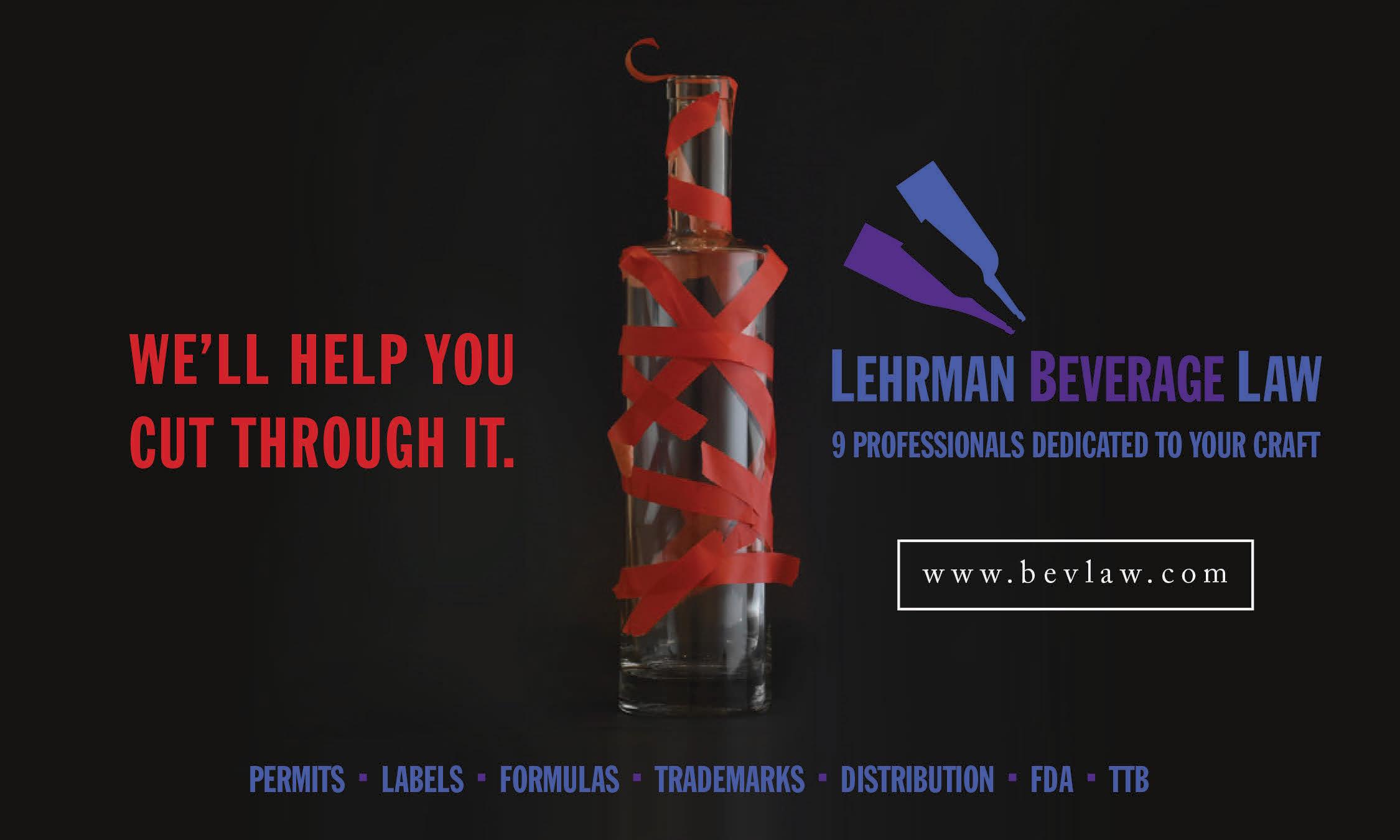
28 | FEBRUARY 2023 CRAFTSPIRITSMAG.COM Industry Update

GARRISON BROTHERS DISTILLERY OPENS FIRST NAMESAKE BAR IN CALIFORNIA

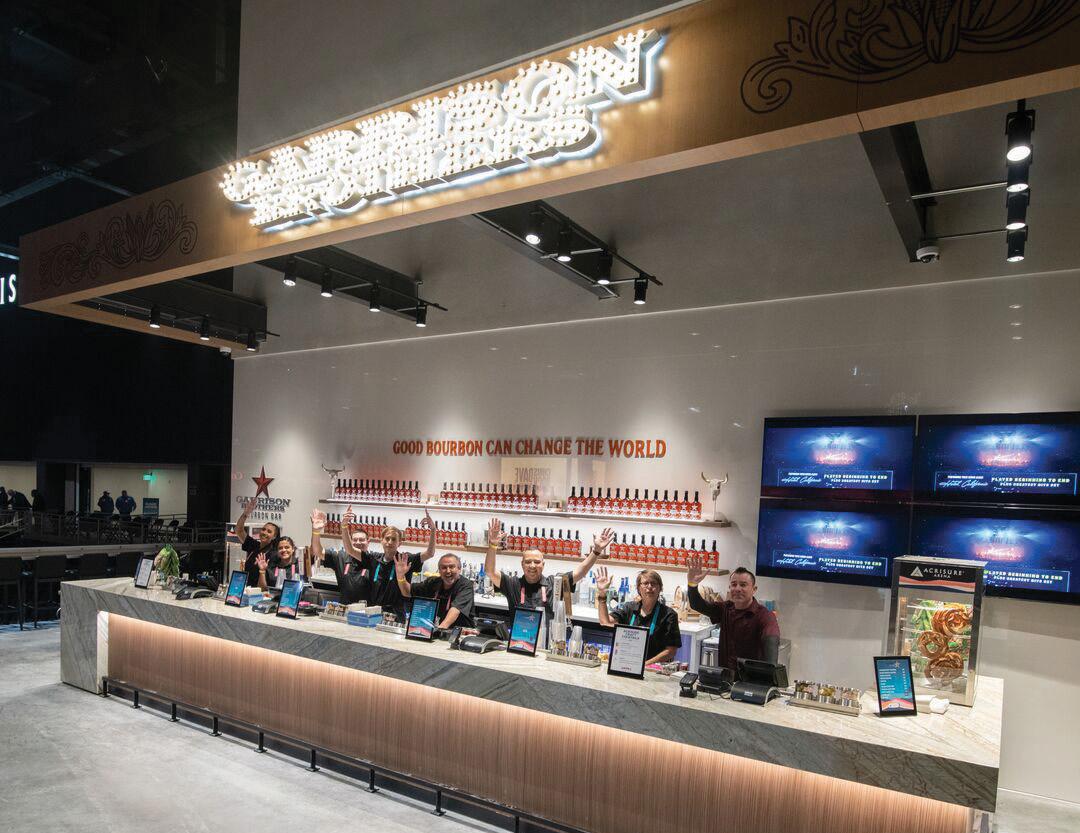
Hye, Texas-based Garrison Brothers Distillery recently announced the opening of Garrison Brothers Bar, located on the main level inside Southern California’s newest sports and entertainment destination, Acrisure Arena in Palm Springs. This is the award-winning bourbon brand’s first namesake bar in California. Acrisure Arena, opened in December, plays host to the Coachella Valley Firebirds (an affiliate of the National Hockey League’s Seattle Kraken) and to concerts, with seating for more than 11,000 fans.
“We could not be more excited to be expanding our Southern California footprint with our first namesake bar inside Acrisure Arena,” said Robert Cordes of Garrison Brothers. “This incredible opportunity for Garrison Brothers would not be possible without the love and support of Californians, up and down the coast. To be opening our first namesake bar in the flourishing greater Palm Springs area is a profound honor.”
The Garrison Brothers Bar at Acrisure Arena is located to the right of the stage and will feature two expressions of the awardwinning bourbon brand including specialty
cocktails and neat pours.
“We’re proud to have Acrisure Arena as the location of Garrison Brothers’ first namesake bar in California,” said John Bolton, general manager of Acrisure Arena. “The bar’s close proximity to the stage offers a premium view, so concert-goers won’t miss any of the action while they’re purchasing Garrison Brothers’ award-winning bourbon and specialty drinks.”
Garrison Brothers first entered Coachella Valley in 2019 and quickly earned legions of local
fans. Over the past three years, the brand has gone from being relatively unknown in the area to being carried across the desert at liquor and grocery retailers, as well as being served at the finest restaurants and bars.

30 | FEBRUARY 2023 CRAFTSPIRITSMAG.COM Industry Update
We Accelerate E-Commerce Sales for Spirits Brands We Accelerate E-Commerce Sales for Spirits Brands GET YOUR BOTTLES MOVING >>> BIGTHIRST.COM
EASTERN KILLE DISTILLERY BREAKS GROUND ON NEW HEADQUARTERS

This January, Eastern Kille Distillery—established in Grand Rapids, Michigan in 2014— broke ground on a new headquarters, production facility, bar and restaurant in Rockford, about 15 miles away from its current location.

The new site includes 3,980 square feet for the restaurant and 7,970 square feet for the distillery. The project is slated to cost $4.2 million and the distillery anticipates creating 15 new jobs.
“It’s exciting to watch the plans come to life,” said Steve Vander Pol, co-owner of Eastern Kille Distillery. “This facility allows us to nearly triple production and continue to expand and age our award-winning barrel portfolio. We remain committed to produce and age all whiskey on site from grain, never sourcing our whiskey.”
Eastern Kille produces a wide range of spirits but focuses primarily on bourbon and rye whiskey. Leading sales for the distillery are its Michigan Straight Bourbon Whiskey and Michigan Straight Rye Whiskey.
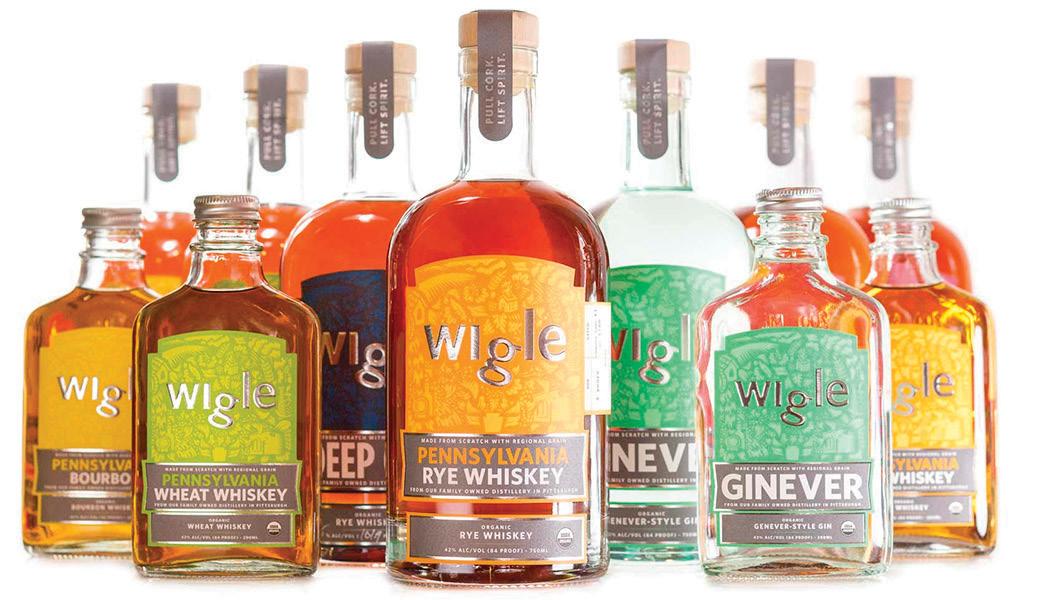
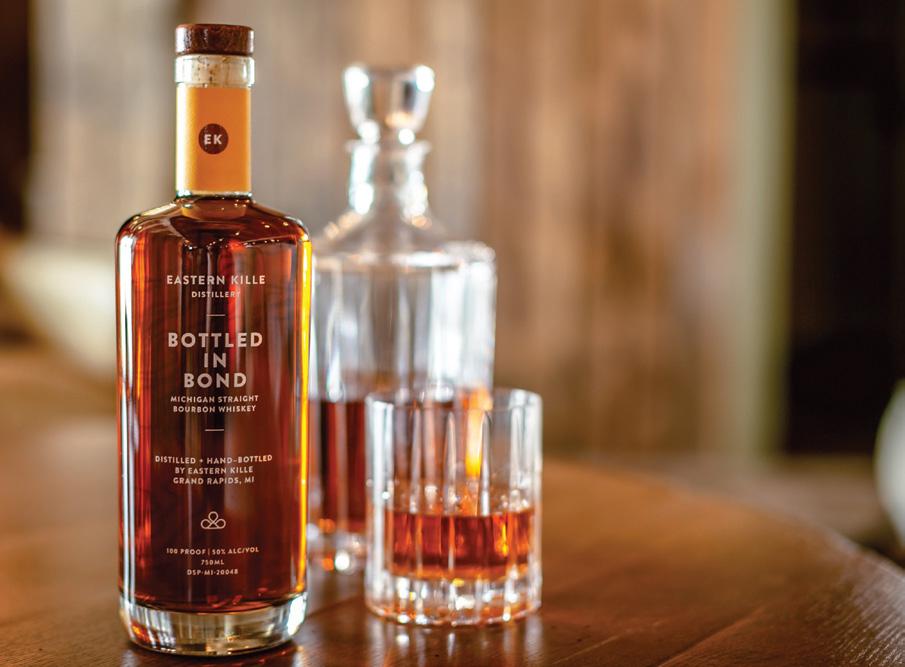
The new distillery is set on 16 wooded acres intended to highlight the natural setting’s impact on whiskey production and will feature
a full kitchen and extensive cocktail garden in the woods.
“The kitchen and customer experience space features incredible views into the natural setting and draws inspiration from Japanese and modern Scandinavian architecture,” shared Vander Pol.
The distillery property is bordered by the White Pine Trail, a 92-mile hiking and biking trail, and features a path through the woods connecting the trail to the outdoor cocktail garden, offering customers a way to reach the distillery and interact with the local environment.
The groundbreaking comes on the heels of the distillery’s September opening of a tasting room on Wealthy Street in Grand Rapids. Its current production facility and tasting room located in downtown Grand Rapids was sold but will be open to the public and operating through Sept. 30.

“This expansion marks another milestone in the growth of Eastern Kille. We plan to continue our investment in West Michigan to meet the growing demand of our customer base here, across Michigan and beyond,” said Vander Pol.
A Great Label Speaks For Itself
Partner
CRAFTSPIRITSMAG.COM FEBRUARY 2023 | 31 Industry Update
phone 412.221.6400
www.blancteam.com
with the Blanc team to achieve a truly unique labelfrom custom manufactured paper stock to foils and embossing - your label will capture the essence of the brand and attract attention. We specialize in working with small batch distilleries and would love to work with you.
START-TO-FINISH CUSTOM LABEL PRINTING
Blanc is a full-service solution to virtually all of your marketing needs.
UNCLE NEAREST PREMIUM WHISKEY CROSSES $100 MILLION SALES MARK
Shelbyville, Tennessee-based Uncle Nearest Premium Whiskey announced in late December that its sales exceeded the $100 million through October 2022, with an on-track forecast to more than double that total by the end of 2023. Its recently expanded 323-acre distillery has already welcomed more than 100,000 guests with that number increasing significantly every week.
The company was founded by its CEO Fawn Weaver in 2017. She was then joined by chief business officer Katharine Jerkens and, shortly after, Victoria Eady Butler, the greatgreat-granddaughter of the company’s namesake, Nearest Green, and four-time Master Blender of the Year recipient. In 2021, Uncle Nearest announced it had become the bestselling Black American-founded, -owned and -led spirit brand in U.S. history. With the most recent announcement, the company has taken on the world’s largest. The company’s whiskey portfolio of seven offerings, available at its distillery in Shelbyville and in all 50 states, territories and districts nationwide, ranges in suggested retail price from $49.99 to $149.
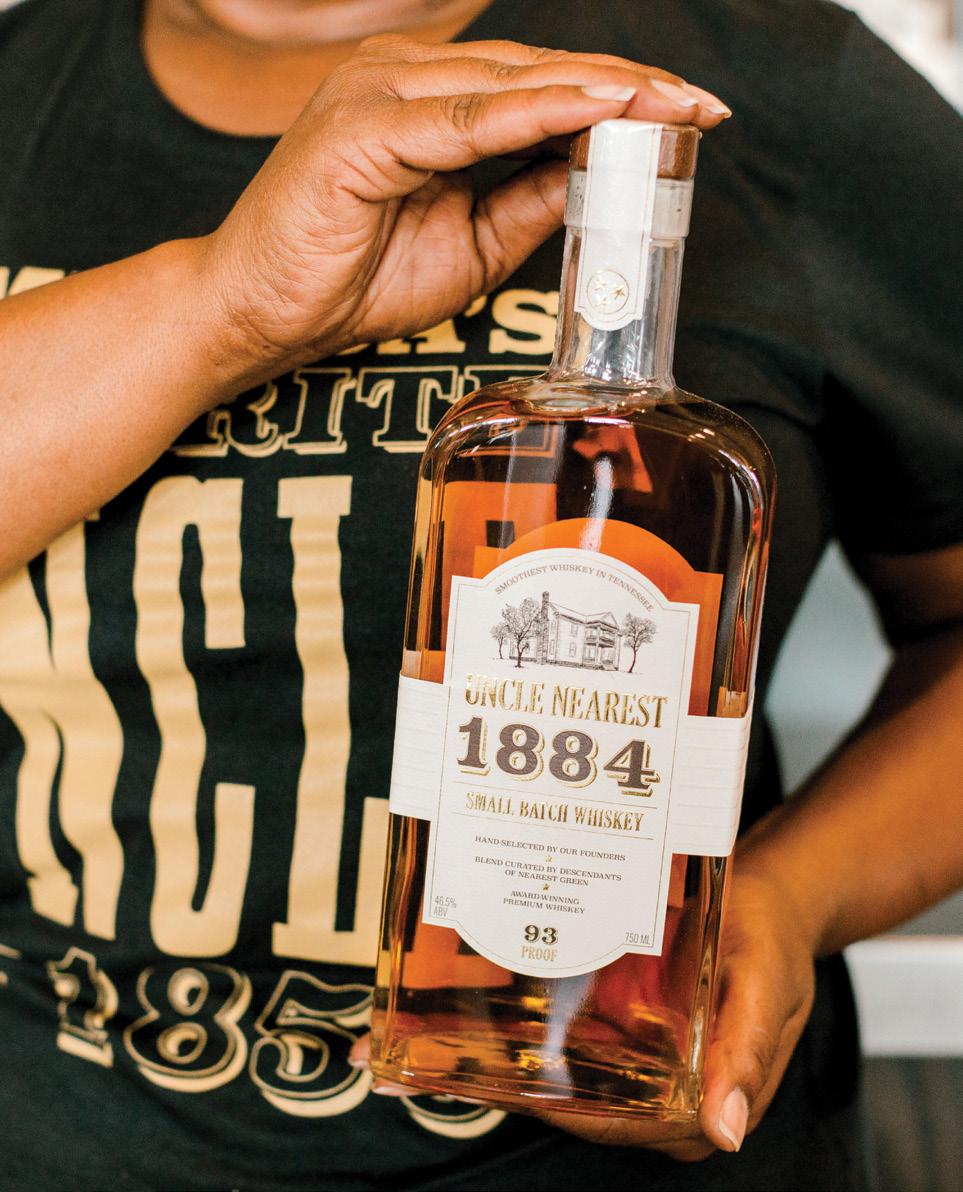
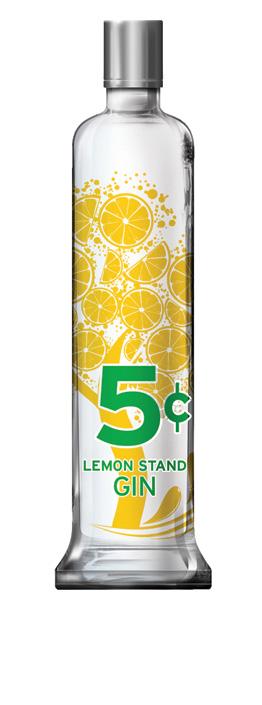

“To reach this and every other milestone on


our horizon, we continue to push nonstop,” said Weaver. “Every penny this company has earned has gone back into the business, as well as to put Nearest Green’s college-age descendants through college and to invest in minority-owned businesses and entrepreneurs through our Black Business Booster program, the Nearest and Jack Advancement Initiative and Uncle Nearest Ventures.
“Every cent we make in the future will continue to do the same. We have an entire generation of women and people of color, who represent 70% of our country but still feel marginalized and underrepresented, counting on us. This group continues to look to Uncle Nearest as proof that anything is possible. We will not let them down. With the support of one of the most loyal consumer bases in spirits, we will continue to do the impossible so they know, as long as they operate in excellence and refuse to give up, they can achieve whatever their heart believes.”
32 | FEBRUARY 2023 CRAFTSPIRITSMAG.COM Industry Update
SCAN TO LEARN MORE! YOUR TURNKEY SOLUTION FOR CANNED RTD COCKTAILS! Unmatched Expertise & Service –Over 150 million cans filled, IHC will guide you through the canning process! Quality – Guaranteed seams, Dissolved O2 analysis, in house lab capabilities! Fl Flexible Can Sizes – 187ml to 19 2 oz, sleek, and slim cans! Materials Sourcing & Co-packing Partners – Whatever your situation we can get you product packaged! PROUDLY PARTNERING WITH MORE DISTILLERIES THAN EVER BEFORE!
RICHARD WOLF, FORMER VP OF BUFFALO TRACE, DIES
In November, the spirits world mourned the passing of Richard Wolf, who was previously a vice president and general manager for Buffalo Trace Distillery before starting Wolf Consulting. He was also a veteran of the United States Marine Corps and once served as chairman of the Kentucky Distillers’ Association’s board of directors.


Wolf was a graduate of Cardinal Newman College in St. Louis, and he earned his MBA from National University in San Diego.

Prior to his experience in spirits, Wolf also cultivated a successful career in the beverage industry with companies such as PepsiCo, Perrier and Dr. Pepper among others.


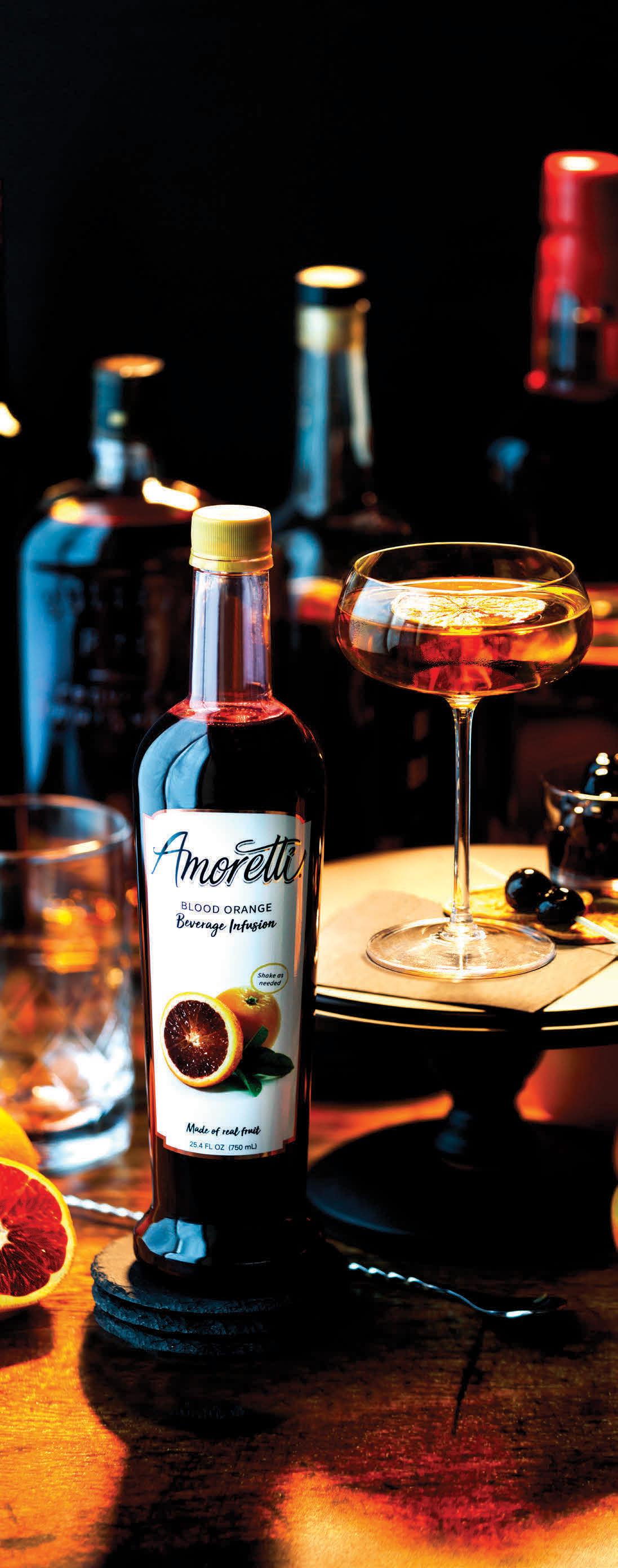
He was a dedicated and loving husband, father and grandfather.


FEBRUARY 2023 | 33 Industry Update USA: 855-855-3505 brewers@amoretti.com www.Amoretti.com Raising the beverage bar
FREE INK!
BY LEW BRYSON
Let’s get you in print, get you some ink. It’s my 21st column for the magazine, you would think I’d have written about it before, this being what I do. I spend most of my working hours writing about distilleries, spirits and the general industry. Let’s put that experience to work for you.

Put aside how dated the terminology is—I can’t get used to the idea of free pixels—free ink is when a publication, print or electronic, written or spoken word, does a story that mentions you. It might be a profile, it might be a review, it might be a podcast interview, it might be literally a mention, but it’s your name, and it’s out there.
Why do you want it? Simple. Free ink is better than paid ink, advertising, and not just because it’s free. No matter how clever, how honest your ads are, or how often they are seen, the consumers know at some level that you’re paying for them. But when a consumer reads a story about you, it feels more honest, like you’re something interesting enough to write about.
Getting a story placed is more like fishing than hunting. It’s about bait, and a hook, not an ambush and a big gun. I’m making the decision on what company, what people, are written about. It’s your job to hook me, with samples, or enticing ideas.
First, make sure you’re at the top of that decision pile. You want to keep your name in front of the editor and the writer; the editor makes the decision, but the writer can be your champion, nudging the editor to do your story.
How do you get there? A good press release is mandatory; there’s plenty of free advice on the web. But, you know? Samples work. It’s not going to guarantee a story, nothing does, but something exceptional, either in flavor or in the story behind how it’s
made, is going to fire imaginations. A new label or bottle? Don’t waste a sample on that. Send a picture.
The thing that’s going to get you a story is something really cool, really interesting. It might be your opening … if you’re the only distillery in the area, or the only brandy distillery with five whiskey makers around. It could be your people; people are inherently interesting. A local history angle might do it, like opening in an historic building. Maybe it’s a problem you solved, and the more that problem involves the world outside your walls, the better.
If you get a response, a nibble, yank that rod! The best companies, or publicists, respond within a few hours, or less. Send details, send images … that’s right, you should have them ready. Do you have sell sheets for your reps to hand out? Make a digital press version, with less pricing and more back story, a few quotes from the founder or distiller that don’t sound fake or overly general, and images of the bottle, maybe the spirit in a glass or a cocktail. Have that ready for each bottling, and all you’ll have to do is drop them in an email. Boom, instant response.
You need that. Writers need it, and believe me, we talk about you all the time. This one’s always late, that one makes up quotes, this one never sends the right stuff, that one never sends anything … but this one’s the best Guess which company gets better coverage, more often?
Then you wait. You can follow up to make sure we got the stuff, but don’t hit us every three days to see if the story’s up; a lot of times it’s completely out of our hands. Guilt doesn’t work either, our editor’s already burned out that response center.
A writer may come back to you with follow-up questions, rewrite questions. That’s
a drop-everything situation; if you can’t do it, someone’s got to, because this is where stories get behind the curve sometimes. There might be plenty of time in the schedule for rewrite, or the editor might be riding the ragged edge of printing deadlines. You don’t want to be the reason the story goes in the next issue … or your brand gets dropped from the round-up.
Did the story run? It doesn’t hurt to ask, you can even ask ahead of time to be notified. Hell, I might even remember. You’ll probably know, though, when all of your friends start asking if you saw the fantastic story featuring you!
That’s the other benefit of free ink. It makes you feel really good. And it doesn’t go away when the ad contract runs out. Enjoy it. ■
34 | FEBRUARY 2023 CRAFTSPIRITSMAG.COM lew ' s bottom shelf
Lew Bryson has been writing about beer and spirits full-time since 1995. He is the author of “Tasting Whiskey” and “Whiskey Master Class.”
Getting a story placed is more like fishing than hunting. It’s about bait, and a hook, not an ambush and a big gun.

The Distillers’ Decade
Celebrating 10 Years of ACSA
 BY JEFF CIOLETTI AND JON PAGE
BY JEFF CIOLETTI AND JON PAGE
It’s a strange paradox that the past decade seems to have gone by in a flash and that it’s only been 10 years, considering everything that’s happened since a scrappy group of distillers banded together to shape the future of the craft spirits industry with the creation of the American Craft Spirits Association (ACSA). For one thing, there were about 650 operating distilleries in the U.S. at the time of the association’s incorporation. That number has grown more than 400% since then.
Back in 2013, few legislators and regulators could even distinguish a distillery from a brewery or winery. And now they regularly engage with our members—not only at our annual Public Policy Conferences and conventions, but at the distilleries themselves. On the regulatory side, that engagement has resulted in dramatic reductions in COLA and formula approval times for the industry. But the greatest reduction has been realized on the legislative side—that of the federal excise tax (FET) from $13.50 to $2.70 per gallon on the first 100,000 proof gallons.
Access to quality, consistent distilling education was also quite limited 10 years ago. And today those new to the industry and seasoned veterans alike can further their learning, not just through ACSA’s expansive curriculum of webinars and convention education (as well as this publication that you hold in front of you), but through a growing number of formalized programs at top universities and institutions that have recognized the strength and longevity of our industry.
Those are just a few of the developments from the past decade that make us doubly excited for what the next 10 years will bring. As we begin ACSA’s second decade, let’s first have a quick look back at the foundation we’ve built during the first 10.
ACSA Begins as ACDA
When a group of craft distilleries sees the need for a nonprofit trade association to represent their needs, ACSA officially incorporates with its initial moniker, the American Craft Distillers Association (ACDA). However, the name doesn’t last for long.

ACDA officially changes its name to the American Craft Spirits Association the following year. In a November, 2014, note to members and industry colleagues, then-president Tom Mooney reflects on the name change, noting that the association had adopted more inclusive membership eligibility criteria after conversations at the convention in Denver. “Most notably, we recognized that independent spirits producers who craft high quality products through methods other than distillation, e.g. by aging and blending whiskey in an innovative manner, are an integral part of our community,” writes Mooney. “Soon after that, we changed our name to the American Craft Spirits Association in order to reflect this newly gained perspective.”
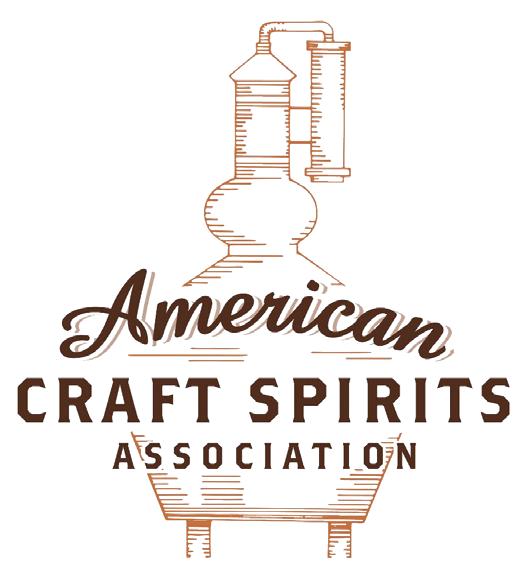
Also in 2013
The association hires its first staff members, executive director Pennfield Jensen and director of operations Leah Hutchinson, who remain with the association until 2015 and 2016, respectively. … The association drafts and adopts its bylaws.
CRAFTSPIRITSMAG.COM FEBRUARY 2023 | 37 | | | | | | 2013
Inaugural Distillers’ Convention and Vendor Trade Show
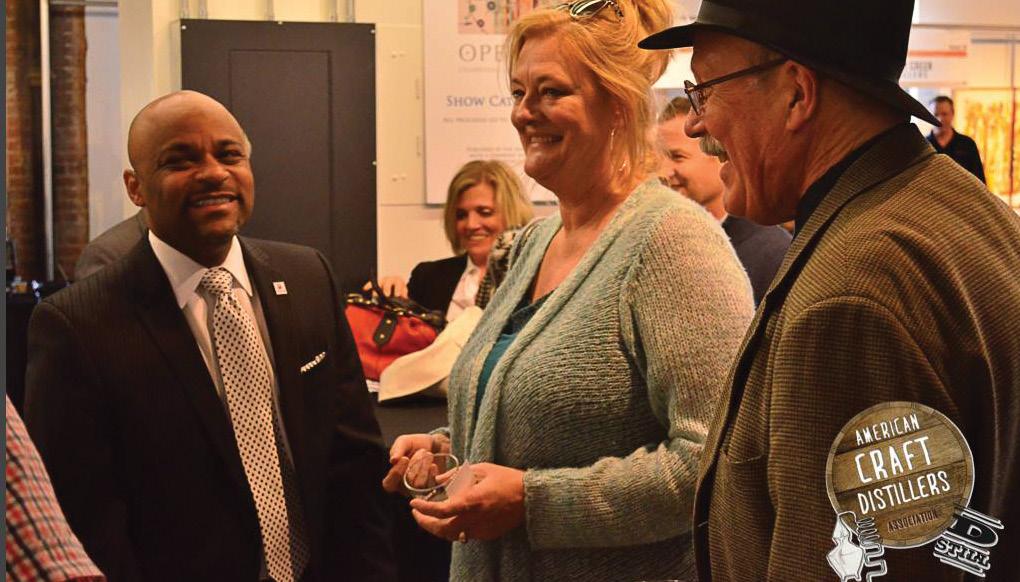
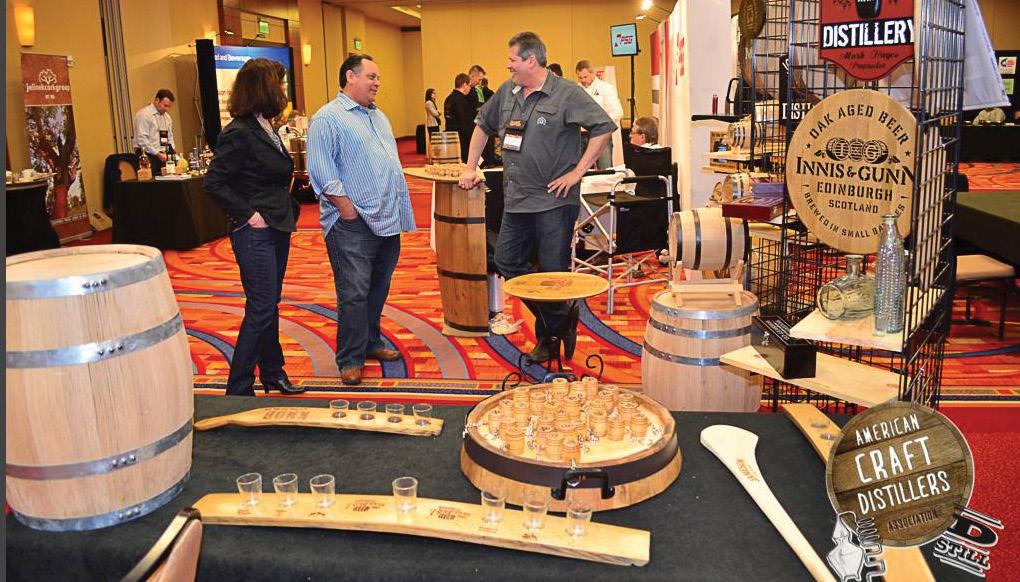
ACSA—then ACDA—hosts its inaugural Distillers’ Convention and Vendor Trade Show, March 13-15, at the Denver Marriott City Center. Prior to the convention, the organization elects its first Board of Directors which includes Nicole Austin, Ralph Erenzo, Ted Huber, Stephen Johnson and Rick Wasmund representing the East; Rory Donovan, Paul Hletko, Todd Leopold, Chip Tate and Andrew Webber representing the Central/Mountain; and Patrick Bernards, Yuseff Cherney, John Dannerbeck, Tom Mooney and Orlin
Sorensen representing the West. The association installs its first slate of officers: Mooney as president, Huber as vice president and Johnson as secretary/treasurer. The convention also provides the first open forum on how to define “craft.”
a major craft spirits competition will be conducted by craft distillers for craft distillers. This judging marks the beginning of a new era in craft spirits: a not-for-profit trade association bringing the highest levels of peer achievement to bear on the ever-increasing quality of American craft spirits.”
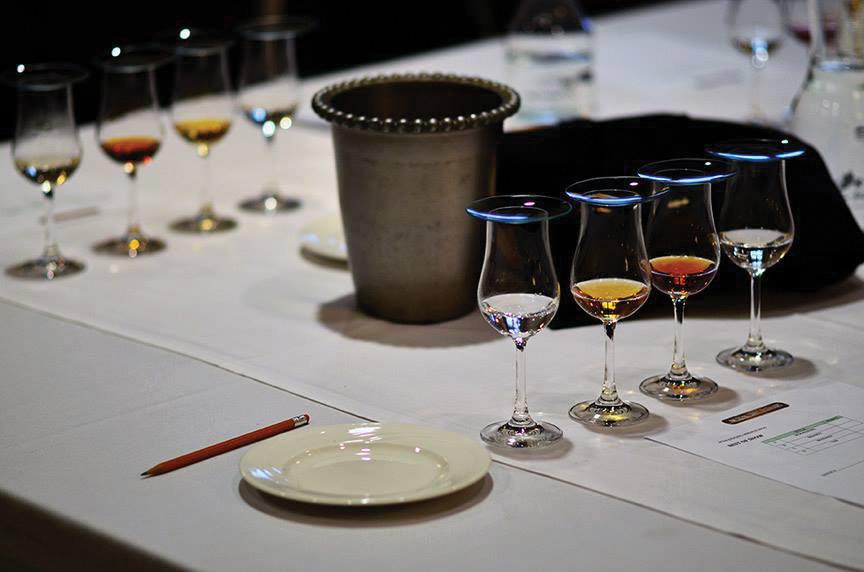
Throughout the years, the competition grows in number of entrants and esteem. Jeff Wuslich of Cardinal Spirits—who has volunteered since the first competition and currently serves as judging co-chair alongside Colton Weinstein—credits former judging chair Maggie Campbell for helping to elevate the competition, which has since been held in Washington, D.C; Los Angeles; Bloomington, Indiana; and Charleston, South Carolina.
“It’s run by peers giving really great feedback to distillers,” says Wuslich. “And I’ve always really loved the way we have a great makeup of judges. We have distillers, media, consultants and retail people to give a full breadth of feedback.”
Also in 2014
First Judging of Craft Spirits
In February of 2014, ACSA hosts its first-ever spirits competition, judging entries from 104 distilleries. A panel of about 20 judges convenes at Starlight Distillery in Indiana and chooses Balcones True Blue Cask Strength Straight Corn Whiskey as Best in Show and Best of Whiskey.

In a Facebook post, ACSA notes that it was the “first time ever
The Board of Directors creates its committees. … The association adopts its code of ethics: “We operate in an honest, transparent and non-deceptive fashion. We inform consumers truthfully and accurately about the sources and methods used to make our spirits through our labels, materials and communications. We expect fair dealings and respect amongst members. We obey all federal, state and local laws.” … The association’s mission statement is born: To promote and protect the craft spirits producers in the U.S.
38 | FEBRUARY 2023 CRAFTSPIRITSMAG.COM | | | | | | 2014
Denver Mayor Michael Hancock with Leah Hutchinson and Pennfield Jensen at ACSA’s first convention
ACSA’s first Judging of Craft Spirits
New Leadership and Public Policy Advisor
On May 19, ACSA’s respective board president and secretary/treasurer at the time, Tom Mooney and Stephen Johnson, along with board member Nicole Austin, meet at Kings County Distillery in Brooklyn to interview finalists for the executive director position, soon to be vacated by the retiring Pennfield Jensen (who would be designated ACSA’s historian). Beverage alcohol industry attorney Margie A.S. Lehrman is the clear favorite. Initially, Lehrman is undecided on her long-term aspirations with the association and asks to join as the interim executive director (she was hired full time in March of 2016).
Lehrman brings with her nearly 20 years of experience at an executive level with national associations, coupled with a background in beer, wine and spirits law at Lehrman Beverage Law, PLLC. She began her career with the Foreign Policy Association in New York City before embarking on a legal career in Washington D.C. in the 1980s. More recently, she was the COO with the American Association for Justice, formerly the Association of Trial Lawyers of America.
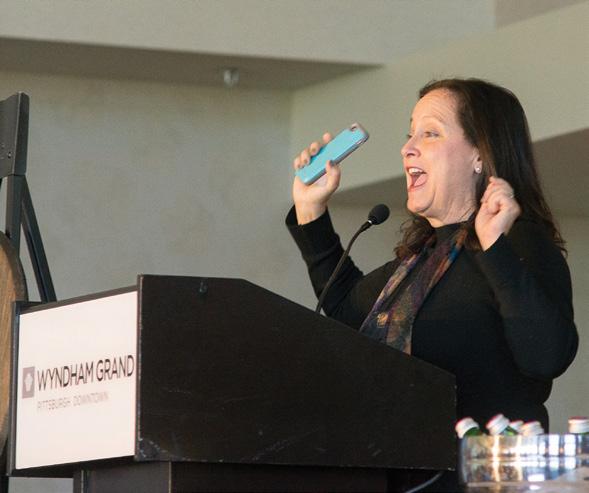
Around the same time, ACSA brings on lobbyist Jim Hyland of the Pennsylvania Avenue Group—who just happened to be Lehrman’s old neighbor—as public policy advisor. When Lehrman sees Hyland at the association’s first joint legislative fly-in with the Distilled Spirits Council of the United States (DISCUS), it helps convince her that the role is a good fit for the long haul and that she wants to be a part of the great things ACSA could accomplish for the industry. In 2019, Lehrman’s title changes to CEO. Hyland remains as the organization’s public policy advisor.
Congress Takes First Step Toward FET Relief

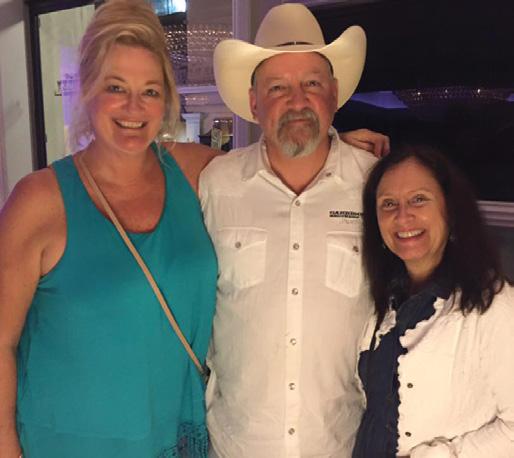
On May 27, U.S. Reps. Todd Young (R-IN) and John Yarmuth (D-KY) introduce HR 2520, the Distillery Fairness and Tax Reform Act. The bipartisan bill, which has the support of the full memberships of both DISCUS and ACSA, provides for a reduced FET rate on the first 100,000 proof gallons of spirits removed from bond to $2.70 from the original full rate of $13.50 per proof gallon. The bill also seeks to reduce the FET rate for all production over the 100,000 pg to $9 per proof gallon.
First Joint Legislative Public Policy Conference with DISCUS
After barely two years of existence, ACSA demonstrates that it is a force in Washington, D.C., in its first joint fly-in with DISCUS in June. Topping the agenda is federal excise tax relief for small spirits producers. As then-board-member Nicole Austin tells us in “The Journey to Permanence: An Oral History of FET Relief for American Craft Spirits Makers” in the March 2021 issue of CRAFT SPIRITS magazine, “D.C. is not cheap. Most of us were shelling out $1,000 every time we went there of our own money. … It was absolutely miserable and sweaty to be walking around D.C., carrying a heavy bag of stuff and trying to look professional when your armpits are disgusting.”
Craft Beverage Modernization and Tax Reform Act Introduced
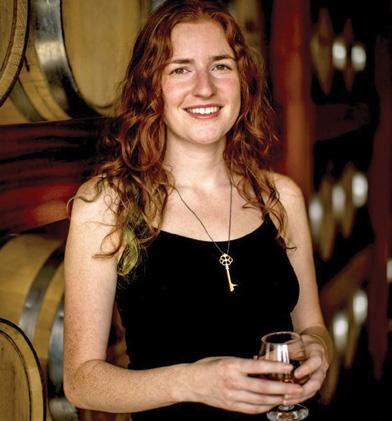

One June 12, following the conclusion of the ACSA and DISCUS flyin, Sen. Ron Wyden (D-OR) introduces S.1562, the Craft Beverage Modernization and Tax Reform Act (CBMTRA). The following month, Rep. Erik Paulsen (R-MN) introduces a companion bill in the House.
Also in 2015
Tom Mooney, Ted Huber and Stephen Johnson are re-elected as president, vice president and secretary/treasurer, respectively. … ACSA hosts its 2nd Annual Judging of Craft Spirits at Starlight Distillery. Best in Show honors go to San Antonio-based Ranger Creek Brewing & Distilling for its .36 Single Barrel Texas Straight Bourbon Whiskey. … ACSA holds its 2nd Annual Distillers’ Convention and Vendor Trade Show in Austin, Texas. … ACSA has a tasting room at Tales of the Cocktail in New Orleans. … ACSA hires Teresa McDaniel as operations administrator. … ACSA hires Alexandra S. Clough as a PR consultant. … While FET relief was not included in an end-of-year tax extenders bill, the industry scores a small victory with a provision allowing distilleries paying less than $50,000 in excise taxes to file quarterly and not have to post a bond with the IRS.
CRAFTSPIRITSMAG.COM FEBRUARY 2023 | 39 | | | | | | 2015
Margie A.S. Lehrman
Jim Hyland
Nicole Austin
Leah Hutchinson, Dan Garrison and Margie A.S. Lehrman
Strategy and Vision
In January, ACSA adopts its first strategic plan; revises its mission statement; and adopts a vision. The revised mission statement is: “To elevate and advocate for the community of craft spirits producers.” And the vision statement is: “The greatest spirits are universally recognized as coming from our member producers, and they are enjoyed responsibly everywhere in the world.”
Webinar Series Launches



In April, ACSA hosts its first webinar: Basic Safety Programming. (Soon after, ACSA hires Kirstin Brooks, who will go on to become education manager, as a grant writer.) Since then, ACSA’s webinar program—Craft Spirits Classroom—has grown to include 110 webinars on topics ranging from Distilling with Heirloom Corn to The Importance of Glassware. In 2018, ACSA begins to offer safety webinars specific to the safety challenges of craft distilleries. Later, during the pandemic, ACSA’s webinar program becomes a go-to resource for pressing topics like hand sanitizer production and regulation. In our 10th anniversary year, ACSA plans to continue to expand and improve our webinar program. If you’ve missed out over the past seven years, our webinars are archived on our website and free to members.
Craft Spirits Data Project

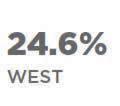


On October 18, ACSA, in conjunction with partners Park Street and IWSR, releases the inaugural Craft Spirits Data Project, highlighting the growth and economic impact of American craft spirits. Among its findings: the number of operating craft distilleries in the U.S. have reached 1,315 (just under half the number in 2022). Additionally, craft volume reaches 4.9 million cases and revenue surpasses $2.4 billion in retail sales. Also that year, the craft spirits industry supports 12,000 full-time employees (just under half of what it is today). Craft exports reach 523,000 cases.


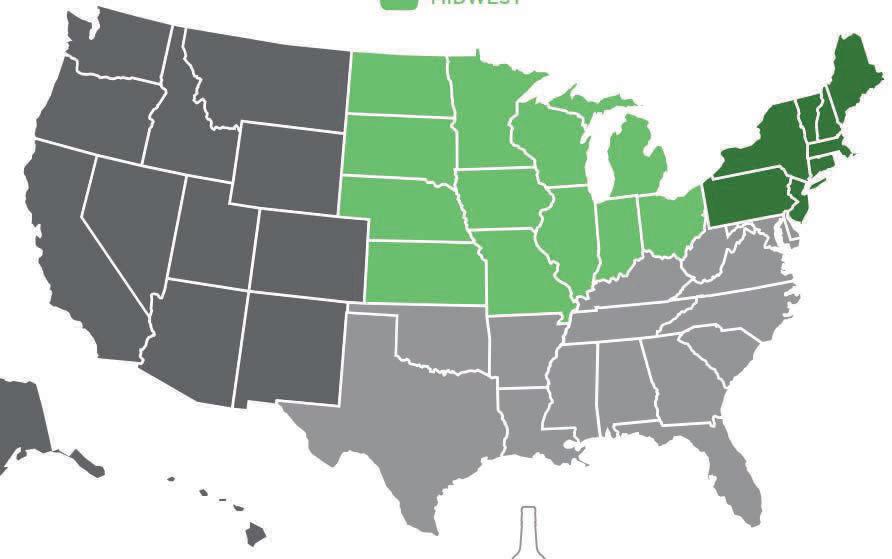

Launch of Digital Newsletters

ACSA begins to expand its digital media offerings with the launch of the Monthly Mash newsletter in November. In addition to the welcome letter from CEO Margie A.S. Lehrman—which becomes a regular feature kicking off each edition—the inaugural Mash includes an update from Capitol Hill, as well as a Q&A with board of directors officers Paul Hletko, Dan Garrison and Stephen Johnson. Two months later ACSA launches Craft Spirits Weekly, edited by new editorial writing and editing consultant Jeff Cioletti (who joins ACSA as its full-time editor in chief in 2019).
Also in 2016
Ryan Malkin joins ACSA as legal counsel. … ACSA holds the 3rd Annual Judging of Craft Spirits competition in February. Pittsburghbased Allegheny Distilling captures Best in Show for its Maggie’s Farm Single Barrel. … ACSA hosts its 3rd Annual Distillers’ Convention and Vendor Trade Show in Chicago. … ACSA announces new appointments to its Board of Directors. Paul Hletko of FEW Spirits, is president; Dan Garrison of Garrison Brothers Distillery is vice president; and Stephen Johnson of Vermont Spirits is secretary/ treasurer. … Together with DISCUS, ACSA holds a joint Legislative Policy Conference in Washington, D.C., in June. … In October, the Craft Beverage Modernization and Tax Reform Act earns a clear majority of support in the U.S. Senate
40 | FEBRUARY 2023 CRAFTSPIRITSMAG.COM | | | | | | 2016
© 2016 # of Active Craft Distillers by State and Region as of August 2016 20 6 12 103 53 10 118 6 19 10 72 10 13 3 6 7 5 30 23 16 23 36 39 2531 71 6 3 11 38 37 17 29 42 32 35 35 46 104 15 16 18 17 10 5 4 25 12 11 19.2% 28.1% 18.6% 34.1% 1,315 Total Distilleries Active Craft Distillers byState 29 Sources: TTB, ACSA, ADI, State ABC boards, state guilds, team analyses
Tom Mooney and Paul Hletko
Distillers Celebrate Partial FET Victory
In late December, ACSA toasts to a reduced FET that gives craft spirits producers parity with wine and beer when Congress passes CBMTRA as part of a larger tax overhaul plan. For the first time, the legislation reduces the FET from $13.50 to $2.70 per gallon for the first 100,000 proof gallons removed from bond per year. The reduction is, however, approved for a two-year period, rather than permanence, despite bipartisan support.


By 2017, former President Donald Trump’s first year in office, CBMTRA bills have 303 co-sponsors in the House and 56 in the Senate, respectively. That year, ACSA also holds its own legislative fly-in to Washington, D.C., with members and suppliers from all over the country.
“This is the largest legislative victory for our industry in modern history,” then-ACSA president Mark Shilling says in 2017. “For years, we have fought for excise tax fairness, and with this change our industry will see immediate benefits, including the ability to hire more Americans and increase production with new equipment. We look forward to reinvesting these critical and long-overdue savings into growing our workforce, production capabilities, and tourism experiences and supporting local agriculture.”
Heartland Spirits Competition
In May, ACSA announces the medalists from the inaugural Heartland Spirits Competition, which is open to U.S. craft whiskeys that incorporate corn in their mash bill (the mix of grains used to make whiskey). The biennial competition is generously sponsored by state corn marketing associations.

In 2017, Best of Show is captured by Fox River Distilling Co. from Geneva, Illinois, which wins for its Bennett Mill Single Barrel Straight Bourbon. Best of State awards are also given to competitors from 10 participating heartland states (there will be 13 heartland states in 2019 and 17 in 2021).
“The state corn marketing associations have supported ACSA and its members to help promote craft whiskey through this important competition,” Margie A.S. Lehrman says in 2021. “We greatly appreciate their continued support and the fact they supply our members with the best corn product in the world.”
Also in 2017
ACSA hosts its 4th Annual Judging of Craft Spirits competition in January at Starlight Distillery Long Road Distillers’ Aquavit claims Best in Show honors. … Also in January, ACSA hires Carason Lehmann, who goes on to become membership & events director. … In February, ACSA holds its 4th Annual Distillers’ Convention and Vendor Trade Show in Nashville, Tennessee. … In April, ACSA announces the appointment of Mark Shilling—who co-founded Austinbased Revolution Spirits—as president. P.T. Wood of Wood’s High Mountain Distillery and Tom Jensen of New Liberty Distillery are named vice president and secretary/treasurer, respectively. … ACSA hires Stephanie Sadri as a convention consultant. … According to the 2017 Craft Spirits Data Project, the craft distilling industry sold nearly 6 million cases in 2016, up 18.5% in volume over 2019. Also, the number of active craft distilleries in the U.S. grew by 20.8% to 1,589. … In November, ACSA holds its 5th Annual Judging of Craft Spirits at District Distilling Co. in Washington, D.C. The awards are to be announced in 2018.
CRAFTSPIRITSMAG.COM FEBRUARY 2023 | 41 | | | | | | 2017
Sen. Ron Wyden and Tom Mooney
4th Annual Distillers’ Convention and Vendor Trade Show
4th Annual Judging of Craft Spirits
ACSA Forms Political Action Committee (PAC)
In early 2018, ACSA forms a PAC to add focus to its legislative goals. A $5,000 check from Todd Leopold of Leopold Bros. in Denver kicks it off.
“FET reduction was the only issue that really mattered at the time to the smaller distillers,” ACSA PAC chair Stephen Johnson would tell CRAFT SPIRITS in 2021. “A handful of the members had plenty of experience pushing the topic in Washington, D.C., and all of us had made at least one trip a year to meet with our elected officials. In short, we knew what to do and decided that ACSA having its own PAC would let the association pursue this original goal on our own terms.”
The ACSA PAC continues to make sure the voice of the craft spirits community is heard on Capitol Hill and in state legislatures. To learn more, visit americancraftspirits.org and log in.

Safety First
Recognizing that its members work in a highly volatile industry with the need to be ever alert to issues of safety, ACSA in early 2018 creates a safety committee. Chaired by Colton Weinstein of Corsair Artisan Distillery, the committee is composed of both distillers and highly regarded professionals in this field, and it is dedicated to helping members operate in a safe environment.
As part of the initiative, ACSA kicks off a series of safety 101 educational courses. In partnership with with Industrial Safety & Training Services (ISTS), the courses in Cincinnati, Ohio, and Long Beach, California, cover a variety of topics to keep distillers safe and to comply with OSHA.

ACSA Members Pour Spirits at Bar Convent Brooklyn
In June of 2018, six member distilleries share their spirits and stories at the inaugural edition of Bar Convent Brooklyn (BCB), the U.S.based version of Europe’s largest bar industry trade show, Bar Convent Berlin. Participating distilleries include Appalachian Gap Distillery, Copper & Kings American Brandy Co., Du Nord Craft Spirits, Hamilton Distillers, Maggie’s Farm Rum and Round Turn Distilling

Also in 2018
In March, ACSA holds its 5th Annual Distillers’ Convention and Vendor Trade Show in Pittsburgh. Results from the 5th annual Judging of Craft Spirits competition are announced, and the Best in Show honors go to Regalo De Vida of Arizona Craft Beverage … In April, ACSA announces the appointment of Chris Montana of Minneapolis-based Du Nord Social Spirits (then Du Nord Craft Spirits) as president. Maggie Campbell of Privateer Rum and Colin Keegan of Santa Fe Spirits are named vice president and secretary/ treasurer, respectively. … In May, ACSA joins forces with DISCUS in Washington, D.C., for a three-day joint Public Policy Conference to rally support for permanent FET relief. … According to the 2018 Craft Spirits Data Project, the craft distilling industry sold more than 7 million cases in 2017 and there are now 1,835 active craft distilleries. … In October of 2018, ACSA holds its 6th Annual Judging of Craft Spirits at Greenbar Distillery in Los Angeles. The awards are to be announced in early 2019. … In early November, the craft spirits community mourns the sudden passing of Dave Pickerell. In addition to serving as an early industry visionary, Pickerell leaves an indelible mark on the entire craft spirits community, and his contribution as a founding affiliate member of ACSA can never be overlooked. … Also in November, the ACSA Board of Directors gathers at House Spirits Distillery (now Westward Whiskey) in Portland, Oregon, where they welcome a special guest: U.S. Sen. Ron Wyden
42 | FEBRUARY 2023 CRAFTSPIRITSMAG.COM | | | | | | 2018
Gary Yurt of ISTS leading a safety course
ACSA Launches CRAFT SPIRITS Magazine
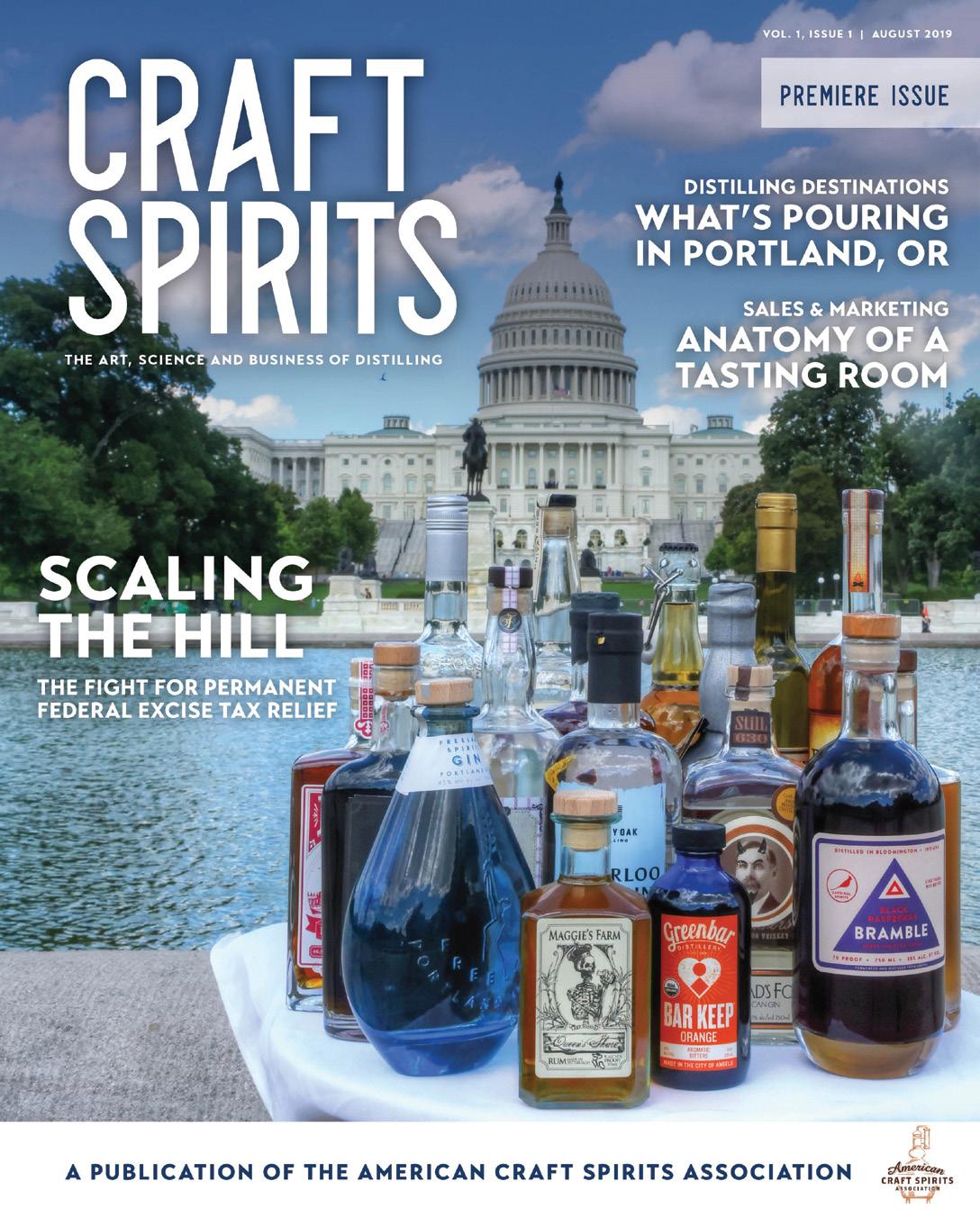
In February, Jeff Cioletti, who, for the past two years worked with ACSA as a freelance editorial consultant, joins ACSA full-time as editor in chief. Two months later, Jon Page joins the team as assistant editor (and by year’s end is promoted to senior editor). Cioletti, who previously served as editor in chief of Beverage World magazine and Page, most recently managing editor of All About Beer magazine, are tasked with launching what becomes CRAFT SPIRITS magazine, ACSA’s official bi-monthly digital publication (with an occasional print edition) exploring the art, science and business of distilling. The first issue arrives in August featuring a cover story on the fight for permanent FET relief. The digital magazine is distributed for free to a database of 18,000 subscribers.
Craft Spirits Producers Get One-Year Extension on FET Relief
With temporary FET relief set to expire on Dec. 31, ACSA board members take a break from their retreat in Baltimore to head to Washington, D.C., on Dec. 11 to make an eleventh-hour push for permanency, or, at least, an extension. About a week later, the Senate and House pass a one-year extension, which the President signs. That extension is set to expire on Dec. 31, 2020.
The extension comes after extensive advocacy and hard work. In July, ACSA once again teams up with DISCUS for the annual Public Policy Conference. More than 200 distillers, industry suppliers and allies from nearly 40 states converge on Capitol Hill to make a case for FET relief.

And in October, ACSA and other beverage alcohol trade groups lead a National Day of Action, when more than 2,000 individuals affiliated with the beverage alcohol industry call their members of Congress to urge support of CBMTRA.
Also in 2019
In February, ACSA holds its 6th Annual Distillers’ Convention and Vendor Trade Show in Minneapolis. Results of the annual Judging of Craft Spirits competition are also announced, and Burrone Fernet from Gulch Distillers earns Best in Show. … In April, Chris Montana, Maggie Campbell and Colin Keegan are re-elected as president, vice president and secretary/treasurer, respectively. … In June, a group of ACSA members pour their spirits at the second annual Bar Convent Brooklyn. Participating distilleries include Cardinal Spirits, Copper & Kings, Golden Moon Distillery, Gulch Distillers, Mad River Distillers, Pennsylvania Pure Distilleries, Round Turn Distilling, Wiggly Bridge Distillery and Wigle Whiskey. … In July, Middle West Spirits of Columbus, Ohio, captures Best of Show for its OYO Sherry-Finished Bourbon at the 2019 Heartland Whiskey Competition. … In October, Cardinal Spirits in Bloomington, Indiana, is the host site for ACSA’s 7th Annual Judging of Craft Spirits. … Also in October, the 2019 Craft Spirits Data Project reveals that there are now 2,046 active craft distilleries in the U.S. and that the craft spirits industry sold nearly 9 million cases in 2018. … In November, ACSA debuts its YouTube video series Craft Spirits TV.
CRAFTSPIRITSMAG.COM FEBRUARY 2023 | 43 | | | | | | 2019
Chris Montana
A Pandemic Begins and the Craft Spirits Industry Rises to the CHALLENGE

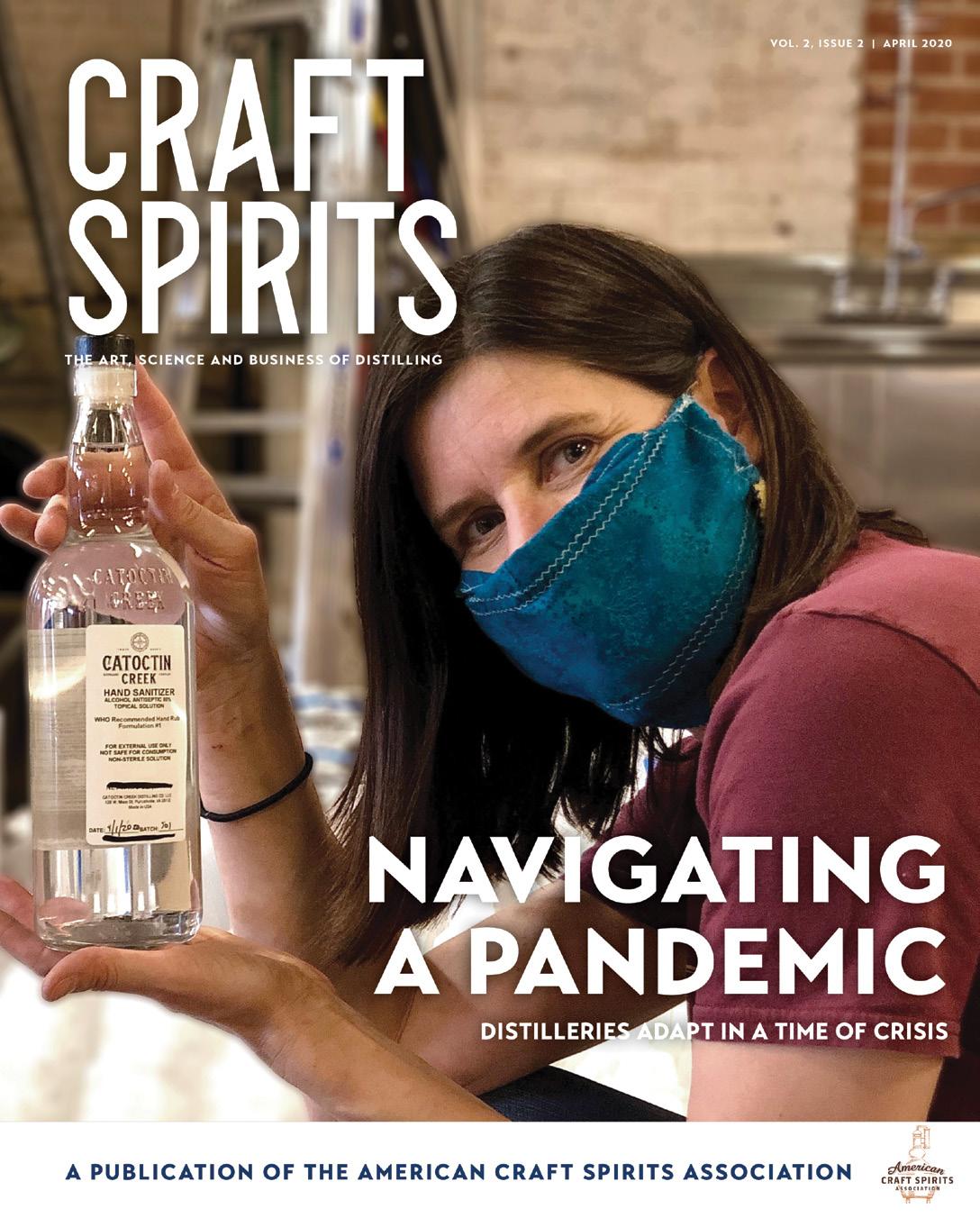
The year begins with some rumblings about a deadly new virus that’s been rapidly spreading through China. Two months later, most of the world, including America, shuts down. It’s a devastating development for the spirits industry, as craft producers are forced to close their tasting rooms for an extended period of time and the on-premise almost entirely grinds to a halt. ACSA itself is forced to cancel its Distillers’ Convention and Vendor Trade Show, scheduled for late March in Portland, Oregon, barely two weeks before it is set to begin.
The supply of face masks and hand sanitizer suddenly is dramatically lower than the demand. Craft spirits producers are uniquely positioned to help out with the latter and practically overnight, American distillers from coast to coast (and beyond) pivot to producing hand sanitizer, making it readily available to health professionals, first responders and their local communities. ACSA begins a covid working group, chaired by Becky Harris of Catoctin Creek Distilling Co., which helps distillers navigate production and regulatory issues.

The covid-19 pandemic also highlights the need for direct-to-consumer (DtC) shipping, as craft producers’ ability to sell bottles on site is greatly diminished. Consumers also are forced to become amateur home bartenders, as their favorite bars are closed or at extremely limited capacity. Many states where DtC wasn’t previously allowed begin to (temporarily, at least) ease such restricts. The same goes for cocktails-to-go. Where permitted—temporarily or permanently—a significant number of craft distillers with tasting room and cocktail programs begin packaging those concoctions for take-away. “Curbside pickup” becomes part of the pandemic-era vernacular.
ACSA creates a DtC committee—chaired by Dan Farber (and later co-chaired by Harris)—and campaign to help distillers message and advocate for legislation within their states.
44 | FEBRUARY 2023 CRAFTSPIRITSMAG.COM | | | | | | 2020
Permanent FET Relief
On December 27, ACSA’s biggest legislative priority becomes a reality when the president signs into law CBMTRA as part of an overall end-of-year omnibus and stimulus package. Had legislators not acted, craft spirits producers’ federal excise taxes would increase 400% on January 1, 2021. Instead, small distillers get to continue paying $2.70 per gallon on the first 100,000 proof gallons removed from bond, the rate that was established when temporary FET relief was enacted on January 1, 2018, and extended on January 1, 2020. Absent of legislative action, producers would have reverted to paying $13.50 on each of those proof gallons.
It represents a landmark victory for the industry. Since 2011, craft spirits producers across the U.S. had rallied together in an effort to push forward long-term FET relief.
“This isn’t just a victory for our industry, but also the peripheral industries we support, including U.S. agriculture and hospitality,” ACSA CEO Margie A.S. Lehrman says on the day of its passage. “Today, we celebrate a major milestone in the fight for parity with craft beer and wine and thank the key Congressional leadership for their tireless efforts.”
Permanent FET relief is the result of a bipartisan effort, championed by Senators Ron Wyden (D-OR) and Roy Blunt (R-MO).
Adds Becky Harris, ACSA president, “This passage is a major, monumental moment and the culmination of nearly a decade of craft spirits advocacy efforts.”
Also in 2020
The newly declared covid-19 pandemic forces ACSA to postpone what would have been the 7th Annual Distillers’ Convention and Vendor Trade Show, March 29-31, 2020. Ultimately, the association decides to host the ACSA Virtual Craft Spirits Summit in August. … On March 30, ACSA virtually presents awards for its Judging of Craft Spirits, during what would have been the 7th Annual Distillers’ Convention and Vendor Trade Show. ChainBridge Distillery takes Best in Show for its Pear Brandy. … In April, ACSA launches the pandemic-era weekly Instagram Live interview show, Craft Spirits Live. … In May, ACSA announces the election of Becky Harris of Catoctin Creek Distilling Co. as the president of the Board of Directors. P.T. Wood of Wood’s High Mountain Distillery and Jeff Kanof of Copperworks Distilling Co. are named vice president and secretary/treasurer, respectively. … In September, ACSA and DISCUS host the annual joint Public Policy Conference, the first time the federal advocacy event is held virtually. … According to the 2020 Craft Spirits Data Project, the number of active craft distillers in the U.S. grew by 10.7% over the last year to 2,265 in August 2020, and the U.S. craft spirits market volume reached more than 11 million cases in retail sales in 2019. … In December, ACSA and CRAFT SPIRITS magazine launch The Craft Spirits Podcast, featuring conversations with craft spirits producers and visionaries. The first guest is Becky Harris.
CRAFT SPIRITS Magazine Launches the Craft Spirits Packaging Awards
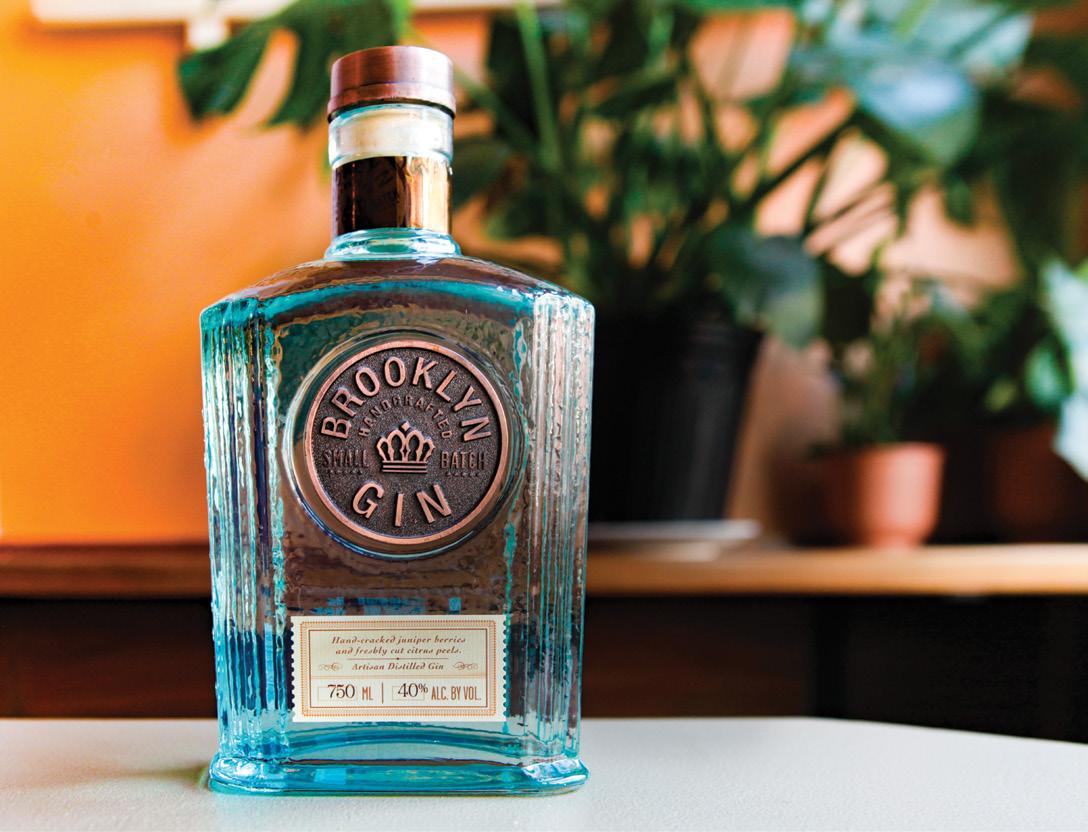
In fall 2020, ACSA and CRAFT SPIRITS magazine introduce the inaugural Craft Spirits Packaging Awards, to celebrate the best in bottle, can, label and closure design across the craft distilling industry. Entries are judged on four criteria: aesthetics, innovation, emotional appeal and brand communication. Independent judges representing different facets of the industry evaluate more than 200 entries from more than 100 companies that entered the first-ever competition, which is generously sponsored by the Glass Packaging Institute CRAFT SPIRITS magazine hosts a virtual awards ceremony in December, presenting gold, silver and bronze medals for brandy, gin, RTD, rum, specialty, whiskey, vodka and best portfolio packaging. Brooklyn Gin is named Best in Show and appears on the cover of the December 2020 issue of CRAFT SPIRITS magazine.

CRAFTSPIRITSMAG.COM FEBRUARY 2023 | 45 | | | | | |
ACSA Hosts First In-person Convention Since Start of Pandemic
In December—after more than a year of being apart and nearly 34 months since its last in-person convention—ACSA hosts its 8th Annual Distillers’ Convention and Vendor Trade Show in Louisville, Kentucky.

During an awards banquet on the final evening of the convention, Jeff Cioletti announces the medalists of the second annual Craft Spirits Packaging Awards, and Scott DeFife, president of the Glass Packaging Institute, announces the Best in Show honoree, Hall of Fame Vodka of Scottsdale, Arizona.
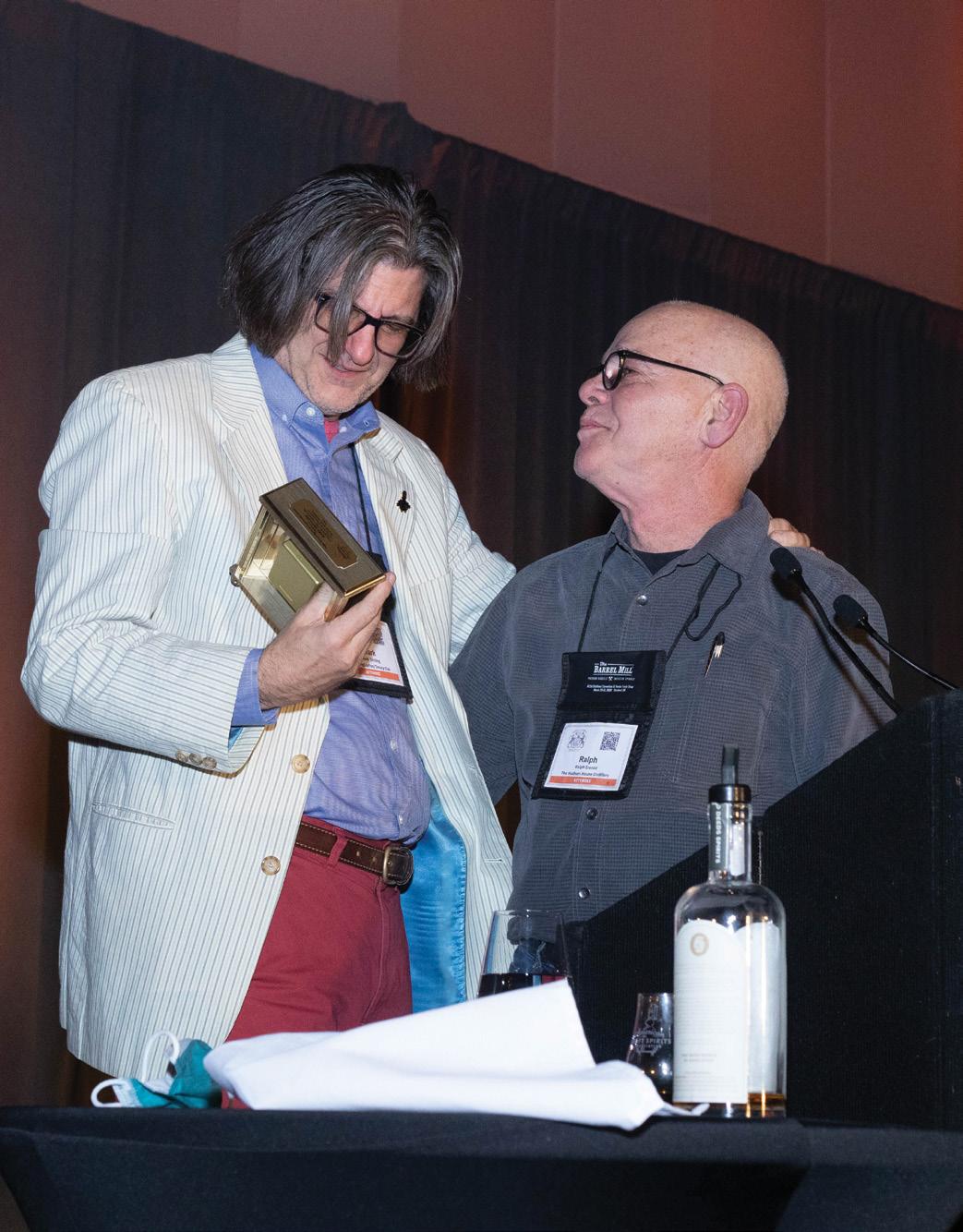
To close the banquet, ACSA honors Mark Shilling, founder of Revolution Spirits and partner at Big Thirst—as well as a past president of ACSA and current chair of the association’s government affairs committee—with the inaugural Gable Erenzo Spirit of Community Award, which recognizes the generosity of spirit, resilience, and resourcefulness to advance the interests of our small business entrepreneurs. This new award is named for the late Gable Erenzo, who was the co-founder (along with his father Ralph Erenzo, and Brian Lee) of Tuthilltown Spirits
Also during the convention, ACSA announces the retirement of operations administrator Teresa McDaniel
Also in 2021
Bolstering its commitment to safety, ACSA announces plans for a fire safety course through the Department of Labor’s Occupational Safety and Health Administration (OSHA) Susan Harwood Grant Training Program. ACSA, in partnership with Industrial Safety & Training Services (ISTS) will develop training for distillery employers and workers, covering fire prevention and protection topics specific to distilling at a craft scale. … In April, ACSA joins dozens of associations in the launch of the Toasts Not Tariffs Coalition to advocate for the permanent removal of all EU, U.K. and U.S. tariffs on beverage alcohol products in connection to the steel and aluminum and WTO Boeing/Airbus disputes. Over the course of the next year, the tariffs are lifted. … In late May, more than 200 craft spirits producers from nearly every U.S. state gather for virtual meetings with Senators and Representatives during the Public Policy Conference held jointly by ACSA and DISCUS … Weldon Mills Distillery of Weldon, North Carolina, claims Best of Show for its Rockfish Whiskey at the 2021 Heartland Whiskey Competition. … In August, ACSA announces the medalists from its 8th Annual Judging of Craft Spirits. Among a pool just shy of 550 entrants, Best of Show goes to Milam & Greene Whiskey Distillery in Blanco, Texas, for its Port Finished Rye. … Also in August, Bar Convent Brooklyn returns and the following distilleries pour their spirits at ACSA’s pavilion: Backwards Distilling Co., Distillery 291, Martin Ryan Distilling Co., New York Distilling Co., Round Turn Distilling, Wiggly Bridge Distillery and Wigle Whiskey. … In December, ACSA and Park Street share insight from the 2021 Craft Spirits Data Project, and despite the negative impact of the pandemic on the global economy, the U.S. craft spirits industry as a whole continued to grow in 2020. The number of active craft distillers in the U.S. grew to 2,290 as of August 2021, and U.S. craft spirits market volume reached more than 12 million cases in retail sales in 2020.
46 | FEBRUARY 2023 CRAFTSPIRITSMAG.COM | | | | | | 2021
Mark Shilling and Ralph Erenzo
ACSA Launches STEPUP Foundation to Promote Diversity in Craft Spirits
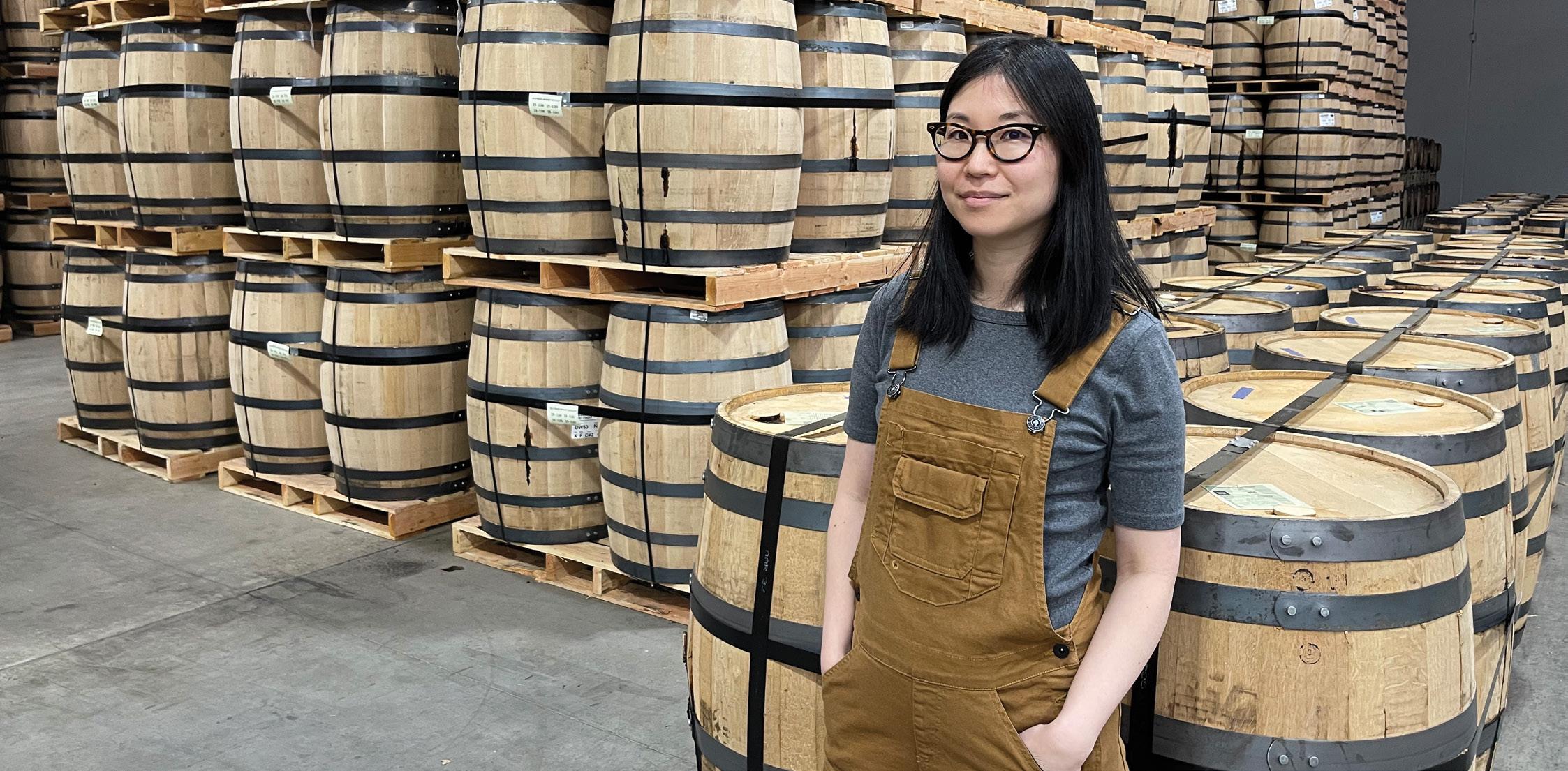
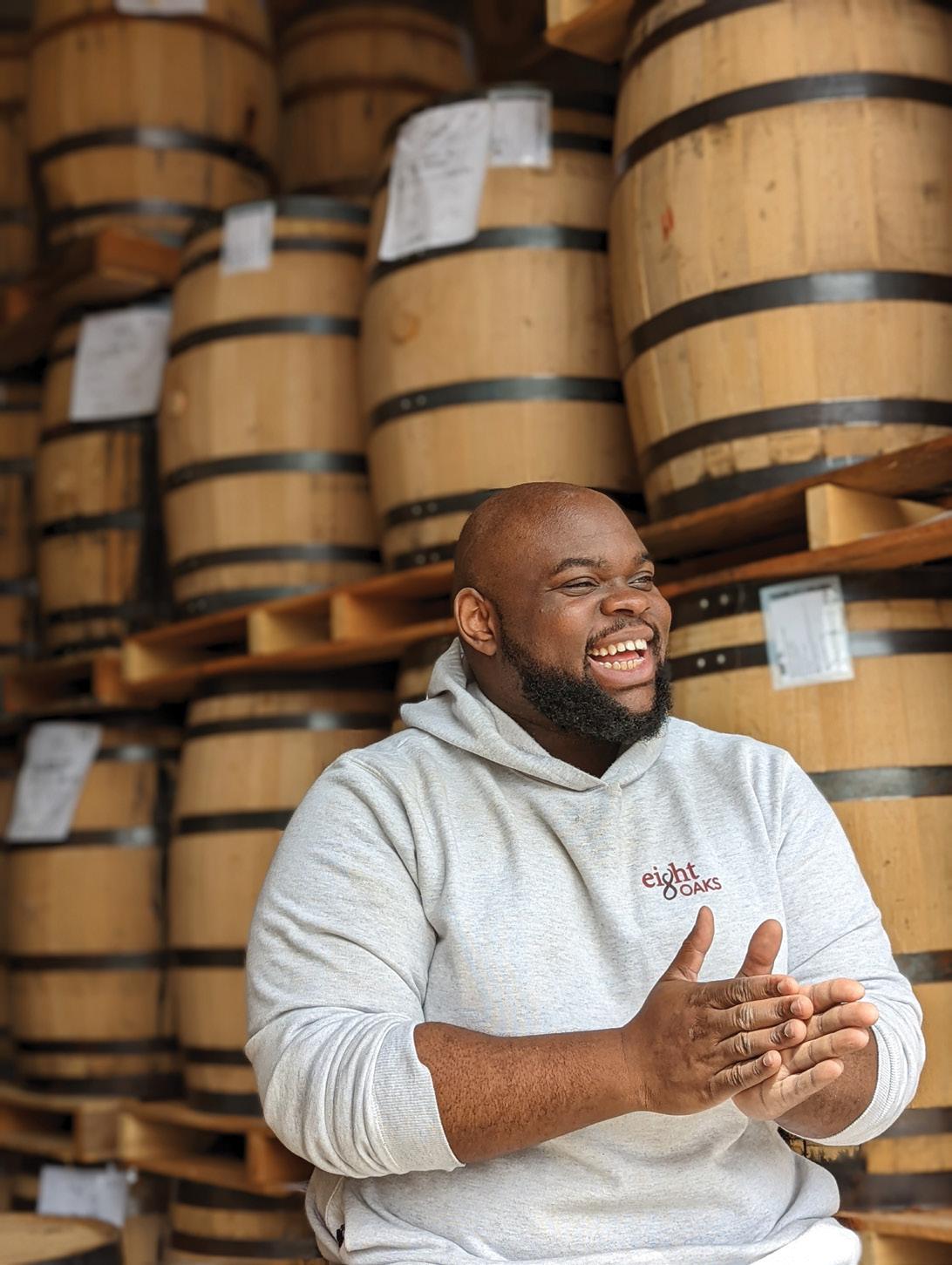
At the December convention in Louisville, following two years of planning, ACSA announces its inaugural class of interns for the Spirits Training Entrepreneurship Program for Underrepresented Professionals (STEPUP Foundation). STEPUP is a diversity initiative that aims to provide underserved and underrepresented individuals with training, encouragement, and opportunities to enter the craft spirits community through a comprehensive year long, immersive internship program.
The first interns are Yakntoro “Yaki” Udoumoh and Erin Lee. The first STEPUP mentors are Chris Underwood and Sailor Guevara. The inaugural class of participating distilleries includes Eight Oaks Farm Distillery, Westward Whiskey and multiple Diageo distilleries. The 2022 participating distributor is Republic National Distributing Co.
STEPUP’s Board of Directors includes David Cid, Becky Harris (secretary), Julie Kinch (treasurer) Margie A.S. Lehrman (president), Chris Montana, Ingrid Wetzell and Underwood. Nicole Austin is on the advisory board and Sharli Ward serves as the foundation’s executive assistant.
During the convention, attendees learn about Good Deeds Spirits, a collective of distillers who created Good Deeds Malt Whiskey, a limited-release blend of whiskey from nine craft spirits producers. Distillers from the group pour samples of the whiskey, of which 100% of the proceeds will benefit STEPUP.
CRAFTSPIRITSMAG.COM FEBRUARY 2023 | 47 | | | | | |
Yakntoro “Yaki” Udoumoh
Erin Lee
ACSA Makes History with Women-led Board

The re-election of Becky Harris of Catoctin Creek Distilling Co. as president and the election of Gina Holman of J. Carver Distillery and Jessica J. Lemmon of Cart/Horse Distilling as vice president and secretary/treasurer, respectively, marks the first time in history that a national drinks trade association is fully led by women-identifying officers. In addition to completely filling the top three positions, women account for 40% of the board seats. It’s Harris’s second consecutive term as president, having been initially elected in 2019.
STEPUP Announces Second Class
In November, ACSA and STEPUP announce the second class of interns, mentors and participating distilleries, along with several new funding partners for 2023.
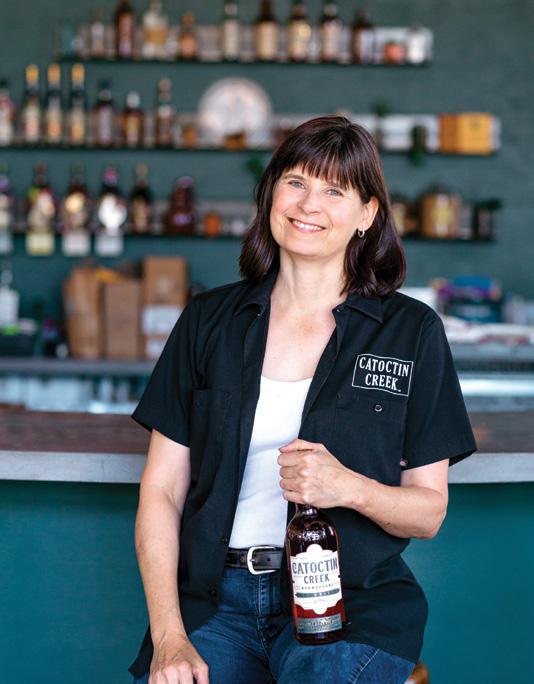
The interns are Amy Salter and Ashley Grayson; mentors include Darci Stuhlman and Nicole Shriner; participating distilleries are Sagamore Spirit Distillery, New Riff Distilling and Glacier Distilling Co.; and the participating distributor is RNDC

As the program gears up for its second year, the organization welcomes Infinium Spirits and Beam Suntory as Keystone donors. St. George Spirits joins as a Foundation level sponsor, and Fast Penny Spirits and Sagamore Spirit Distillery join at the Bricklayers level.
Also in 2022
ACSA appoints seasoned strategic hires to help guide the organization into its next phase of growth. Michael Walker joins as state policy advisor; Kenneth Brady is named full-time director of membership and marketing; Stephanie Sadri joins full-time as director of meetings and events; Albab Melaku joins as administrative assistant; and Annette Schnur comes on as media sales representative. ACSA also announces the departure of Carason Lehmann, who served ACSA for more than six years. … In April, 30 judges taste their way through hundreds of spirits across all major categories for ACSA’s 2022 Judging of Craft Spirits competition at High Wire Distilling Co. in Charleston, South Carolina. … In July, ACSA hosts its 9th Annual Distillers’ Convention and Vendor Trade Show in New Orleans. Medalists from the Judging of Craft Spirits competition are announced, and Starlight Distillery’s Carl T. Single Barrel Bourbon Whiskey claims Best of Show honors. … In September, more than 200 distillers from nearly every U.S. state connect virtually with federal lawmakers and regulators during the spirits industry’s annual Public Policy Conference. … In December, results from the inaugural Sovos ShipCompliant DtC spirits shipping report, conducted in partnership with ACSA, reveal that 80% of regular craft spirits drinkers want the ability to purchase craft spirits via DtC shipping to their home. … In December, ACSA and Park Street present highlights from the 2022 Craft Spirits Data Project. The U.S. craft spirits market volume reaches more than 13 million cases in retail sales in 2021, and the number of active craft distillers in the U.S. grows by 17.4% over the last year to 2,687, as of August 2022.
ACSA celebrates its 10th anniversary, kicking off a year-long commemoration with the Distillers’ Convention and Vendor Trade Show in Portland, Oregon. Cheers to the next 10 years!
48 | FEBRUARY 2023 CRAFTSPIRITSMAG.COM | | | | | | 2022
| | | | | | 2023
(Clockwise from top): Jessica J. Lemmon, Becky Harris and Gina Holman
Where S cience Meets Ar t
Yeast, Nutrients, and Process Aids







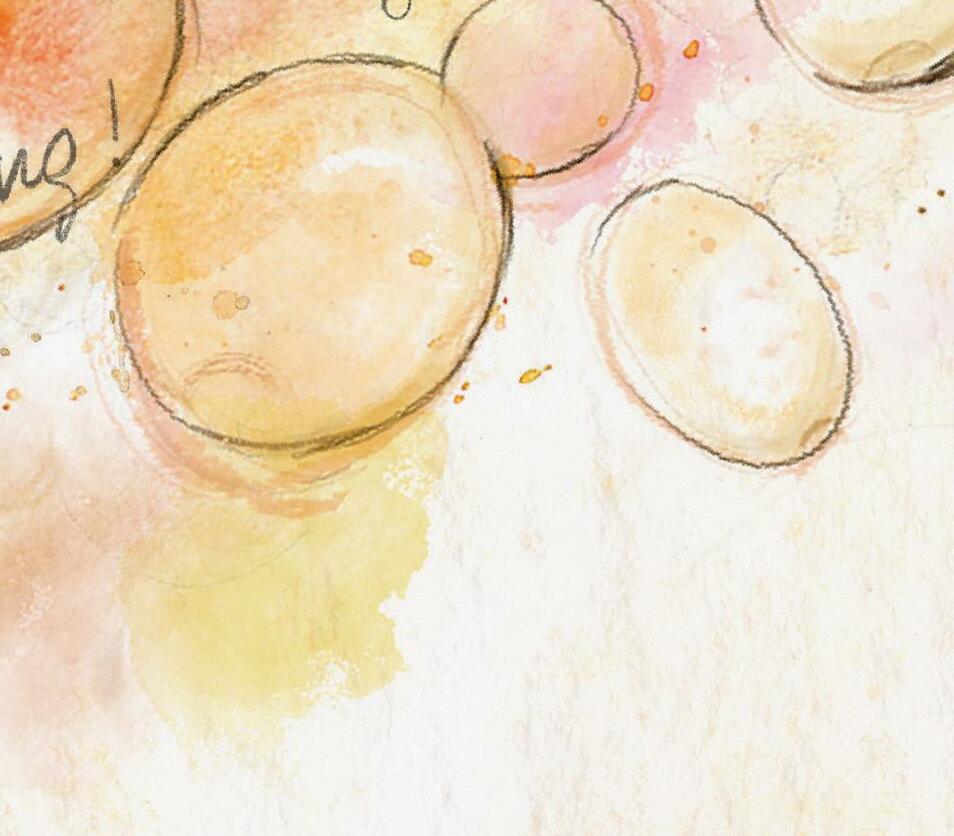

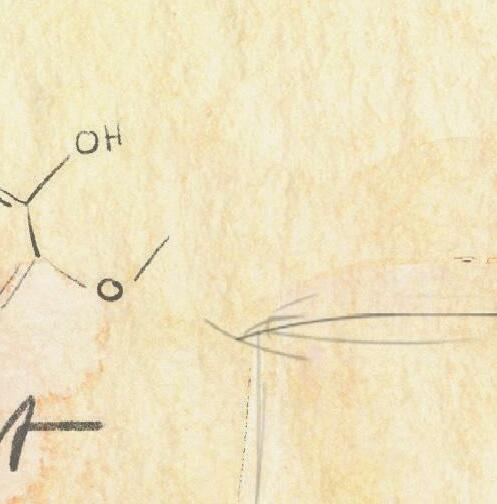







At La l l e m a n d D i s t i l l i n g, o u r s i n g l e s o u rce p h i l o s o p hy p rovi d e s t h e h i g h e s t q u a l i t y i n g re d i e nt s, t a i l o re d te c h n i c a l s e r v i ce a n d e d u c at i o n , a n d i n d u s t r y l e a d i n g expe r i e n ce to s u p p o r t yo u r n e e d s. Yo u r spir i t s a re o u r p a s s i o n , yo u r nee d s a re o u r m o t i vat i o n .













Contac t us to learn more today.


w w w.lallemanddistilling.com





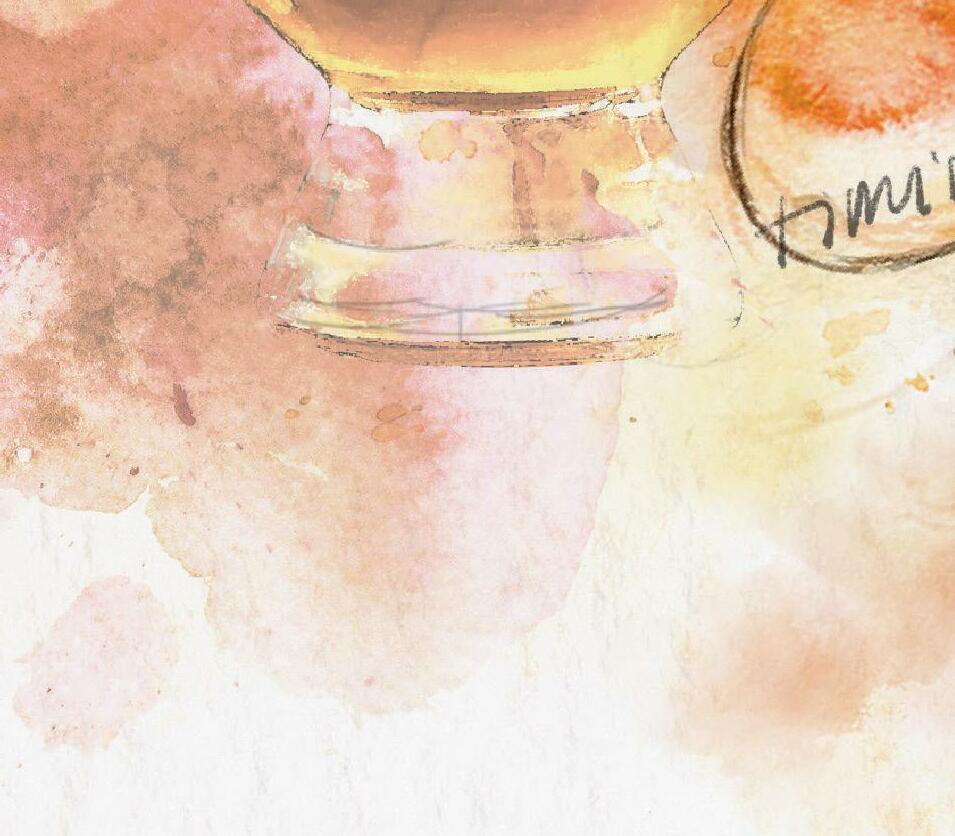
© 2022
A Strong Foundation
In 2013, two dozen distilleries joined together to create the American Craft Spirits Association. A decade later, nearly all of them are still going strong and some of them have been acquired by larger companies. We recently checked in with many of these founding members to shine a little light on the distilleries that inspired thousands others to light up their stills.
ACSA FOUNDING MEMBERS
Asheville Distilling Co. (Asheville, North Carolina)
Balcones Distilling (Waco, Texas)
Black Dirt Distillery (Pine Island, New York)
Captive Spirits (Seattle)
Copper Fox Distillery (Sperryville, Virginia)
Corsair Distillery (Nashville, Tennessee)
Dark Corner Distillery (Greenville, South Carolina)
FEW Spirits (Evanston, Illinois)
Garrison Brothers Distillery (Hye, Texas)
Hillrock Estate Distillery (Ancram, New York)
House Spirits/Westward Whiskey (Portland, Oregon)
Leopold Bros. (Denver)
New York Distilling Co. (Brooklyn, New York)
Peach Street Distillers (Palisade, Colorado)
Prichard’s Distillery (Kelso, Tennessee)
Rogue Spirits (Newport, Oregon)
Santa Fe Spirits (Santa Fe, New Mexico)
Spring44 Distilling (Loveland, Colorado)
Starlight Distillery (Borden, Indiana)
Sun King Spirits (Indianapolis)
Tito’s Handmade Vodka (Austin, Texas)
Treaty Oak Distilling Co. (Dripping Springs, Texas)
Tuthilltown Spirits Distillery (Gardiner, New York)
Widow Jane Distillery (Brooklyn, New York)
Tuthilltown Spirits Distillery
Gardiner, New York hudsonwhiskey.com
Founder: Ralph Erenzo and Brian Lee
Year founded: 2003 (William Grant & Sons bought the Hudson Whiskey brand in 2010 and acquired the distillery in 2018.)
Most important things to know about Tuthilltown Spirits Distillery, according to Erenzo: That it was the purest form of a bootstrapped operation.

Biggest lessons learned since you started: It is possible to change a situation. Not just at the local level, but at the state level and the national level. It is possible to do that and we’ve demonstrated it over and over again [as an industry.]
Advice for startup distilleries today: Read the law. Get your state code, read it, then read it again, because it’s incomprehensible the first read, in most cases. Keep reading it. Then read the federal law. That’s crazy complicated and it’s a huge volume of materials. But the fact is that if you are not familiar with the law, you will trip on your own shoelaces over and over again.
Prichard’s Distillery
Kelso, Tennessee
prichardsdistillery.com
Founder: Philip Prichard

Year founded: 1997
Flagship spirit: Sweet Lucy Bourbon Liqueur
Most important things to know about Prichard’s: [We were] the
50 | FEBRUARY 2023 CRAFTSPIRITSMAG.COM
Paying tribute to ACSA’s founding members
Ralph Erenzo
first legal distillery in Tennessee in almost 50 years. As such, Prichard’s Distillery was Craft before Craft was Cool!”
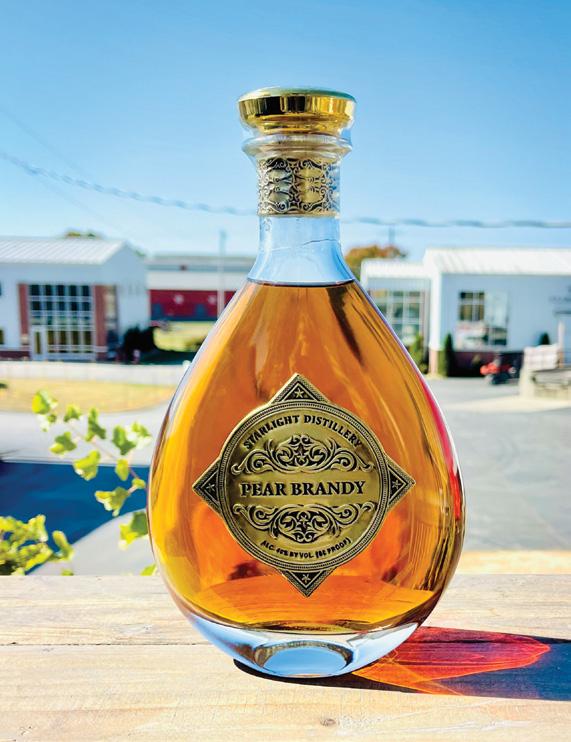
Biggest lessons learned since you started: The way to make a small fortune in the distilling business is to start with a big one. This is a highly capitalintensive business!

Where do you see your distillery 10 years from now: Now 83 years old, I suspect the business will have evolved into more of a corporate management.
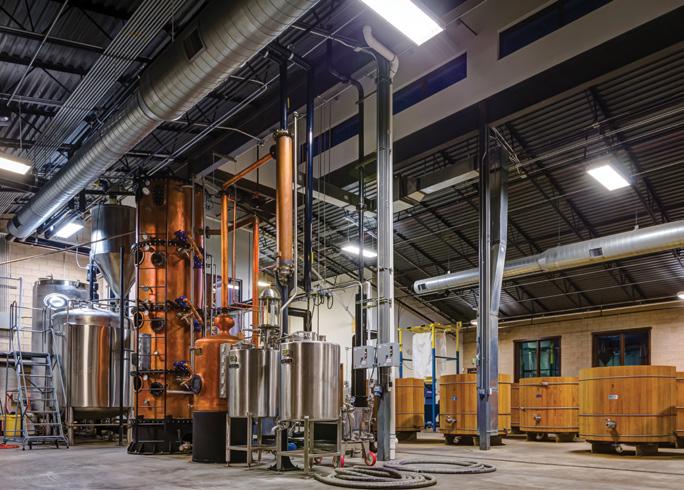
Advice for startup distilleries today: First, make sure you have sufficient capital to sustain operations. Second, with the merger and acquisitions of many wholesale distributors, the three-tier system is not necessarily favorable to smaller start-up distilleries. Finally, the control states system generally favors larger, more established distilleries unless it is considered local to that particular state.
Starlight Distillery
Borden, Indiana
huberwinery.com/starlight-distillery
Founders: Ted Huber and Greg Huber
Year founded: 1998
Flagship spirit: Carl T. Bourbon
Most important things to know about your distillery: We were founded on a seventh-generation, family-owned farm with distillation roots going back to 1843. We are one of the original farm-to-bottle craft distilleries, growing everything from grapes to apples to corn and rye. At our distillery, we grow, mill, mash, distill, age and bottle on property. We are one of the Midwest’s largest destination distilleries and our attendance last year was just shy of 700,000 guests.
Biggest lessons learned since you started: The three-tier distribution system is complicated and you need to be prepared to allocate time and resources. It’s critical to have a resource dedicated to compliance and national distribution. Having an on-site tasting room for tours and cocktails gives the ability to introduce new and experimental products directly to the consumer. You must accept the fact that you can’t do everything in your business and you need to make the investment in your leadership.
Where do you see your distillery 10 years from now: Growing to over 40 states and five countries.
Advice for startup distilleries today: For the most part, our product development and test marketing of products was done many years prior to the startup of our distillery. Have a good story that shows your passion and involvement with your brand and a story that is true to your offerings. Figure out who you are and write your story and brand accordingly.
Leopold Bros. Denver leopoldbros.com
Founders: Scott and Todd Leopold

Year founded: 1999
Flagship spirit: Three Chamber Rye
Most important things to know about your distillery: We’re family owned and our employees are our number one priority. We pay well above the market rate for wages and take care of our people.
Biggest lessons learned since you started: Not knowing what you don’t know can be helpful because I don’t think we would have started the business if we knew that we’d be the lowest person on the payroll for 10-plus years.
Where do you see your distillery 10 years from now: Releasing a lot of long-aged spirits. We’re adding a second three-chamber still and if we have our way that will be it. We’re happy with the size of our staff, we’re making beautiful spirits and we’re being more creative than ever.
Advice for startup distilleries today: Make sure that this is really what you want to do. The odds of this making you rich are not high. There’s so much that is just off the spreadsheet and you never know what could be a hit spirit.
Rogue Ales & Spirits
Newport, Oregon
rogue.com
Founders: Jack Joyce, Rob Strasser and Bob Woodell
Year founded: 1988 (the company) and 2003 (distillery)
Flagship spirit: Dead Guy American Single Malt Whiskey
Most important things to know about your distillery: We have an onsite cooperage where we make unique barrels to age our whiskeys. We brew all of our own wash at the Rogue brewery located next door. We distill 100% of our own whiskey, on site in small batches. Our Dead Guy Stout Cask Finished Whiskey has won best craft distilled whiskey twice at the San Francisco World Spirits Competition.
Biggest lessons learned since you started: Making whiskey takes time and patience! We’re 20 years into our journey and feel like we’re still just getting started.
Where do you see your distillery 10 years from now: Continuing our pursuit of being a world-class American single malt whiskey producer and continuing to push the boundaries of what a small batch, authentic whiskey producer can be.
Advice for startup distilleries today: Release quality products that fit a market need. Create excitement, demand and a solid foundation in your home market before expanding.
CRAFTSPIRITSMAG.COM FEBRUARY 2023 | 51
Todd and Scott Leopold
House Spirits (now Westward Whiskey)
Portland, Oregon
westwardwhiskey.com
Founders: Thomas Mooney and Christian Krogstad
Year founded: 2004
Flagship spirit: Westward Whiskey
Most important things to know about your distillery: Though we have always deeply respected the history and tradition of whiskey-making around the world, we sought to make something entirely new.
Biggest lessons learned since you started: Invest in your people and don’t be afraid to quit.
Where do you see your distillery 10 years from now: We’re looking forward to continuing to do much of what we’re already doing—in that we’re drawing from whiskey tradition but continuing to forge our own path. We’re proud of the innovation behind our core whiskey range and our quarterly Westward Whiskey Club releases, and look forward to sharing our spirits with even more fans in new and existing markets.
Advice for startup distilleries today: Don’t be afraid to ask for help and guidance. At the same time, don’t believe that you need to do what’s been done—there is no one recipe for success, and doing what someone else has already done is a recipe for disaster.
Peach Street Distillers
Palisade, Colorado
peachstreetdistillers.com
Founders: Bill Graham, Dave Thibodeau and Rory Donovan
Year founded: 2005
Flagship spirit: 5 year Colorado
Straight Bourbon
Most important things to know about your distillery: We are Colorado’s oldest continuously operated independently owned distillery.
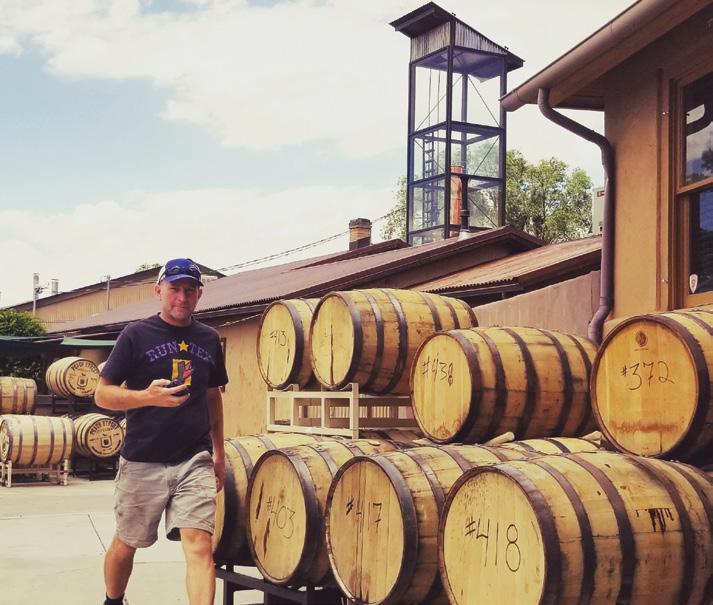
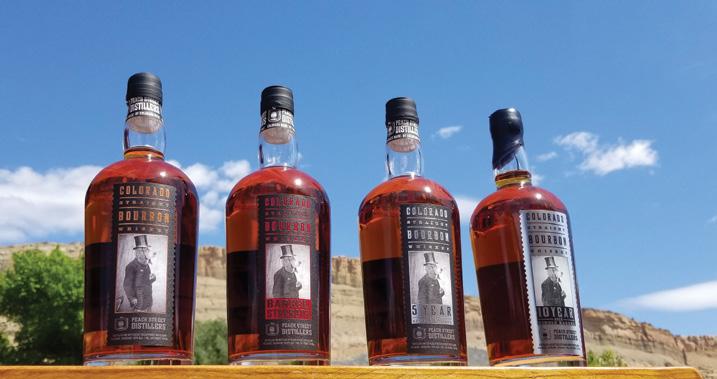
Biggest lessons learned since you started: Using cash flow to fill barrels and subsequently
rickhouses full of barrels is really hard to do.
Where do you see your distillery 10 years from now: I hope that after the first 18 years now we can continue on the same path of older barrels produced in house, be they whiskeys or brandies. Our vision for the next 10 years from a production perspective is unchanged and soon will include 15- and 20-year-old offerings. The front of house is always dynamic and changing, so trying to maintain a lead here rather than playing catch-up would be the goal, but it does move quickly.
Advice for startup distilleries today: The past now is done, and in order to strive forward a niche should be carved out before opening. What makes you unique? If the plan is to just do what the other craft gal or guy is doing, then it’s going to be harder than it needs to be. New blood needs to be new.
Garrison Brothers Distillery
Hye, Texas garrisonbros.com
Founder: Dan Garrison
Year founded: 2006
Flagship spirit: Small Batch Texas Straight Bourbon Whiskey
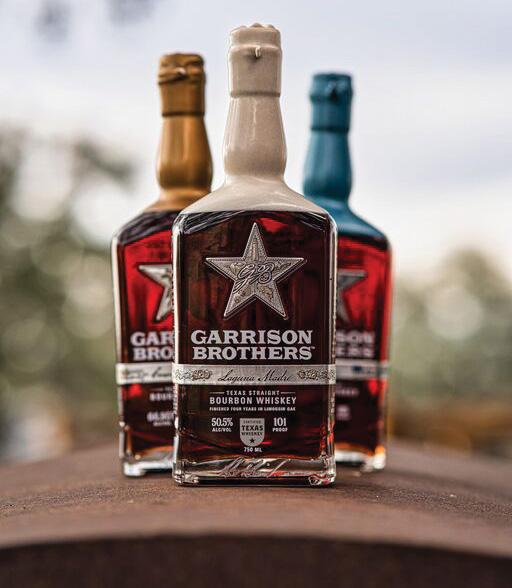
Most important things to know about your distillery: We are real and we are authentic and we believe we are making the best bourbon in the world.
Biggest lessons learned since you started: Raise more money because, if you’re going to remain independent, you’re going to need it.
Where do you see your distillery 10 years from now: In Hye, Texas, greeting a quarter million visitors a year and selling bourbon nationwide and all over the Western Hemisphere.
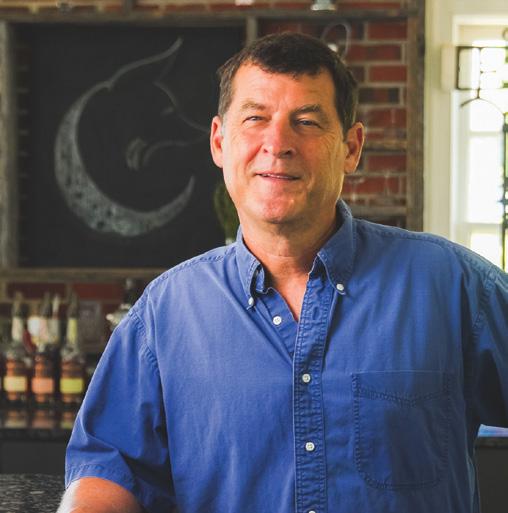
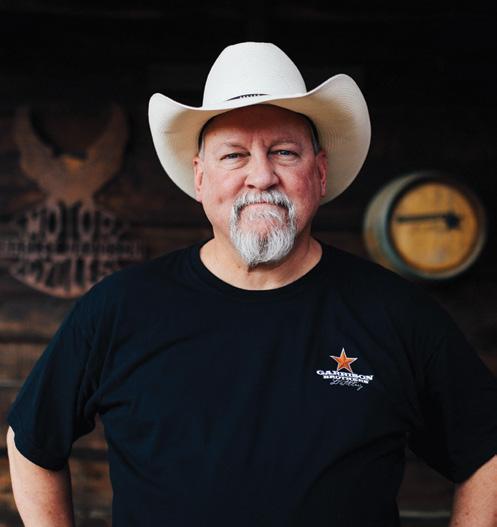
Advice for startup distilleries today: Raise more money because, if you’re going to remain independent, you’re going to need it. Learn to love your distributor.
Copper Fox Distillery
Sperryville and Williamsburg, Virginia copperfoxdistillery.com
Founder: Rick Wasmund
Year founded: 2005
Flagship spirit: Copper Fox Original Single Malt Whisky
Most important things to know about your distillery: We began with the idea of making whisky differently and ultimately creating something that I wanted that did not exist! We were the first North American distillery to build

52 | FEBRUARY 2023 CRAFTSPIRITSMAG.COM
Tom Mooney
Dan Garrison
Rick Wasmund
Davy Lindig
a traditional malt floor and kiln since the repeal of Prohibition. With a growing need for additional malting, distilling, and storage capacity, we purchased the former Lord Paget Motor Inn complex from the city of Williamsburg in March 2015.
Biggest lessons learned since you started: I have always tried to be open to learning new ways of doing things. Make sure you have enough resources to devote to marketing!
Where do you see your distillery 10 years from now: We will continue to produce high-end specialty whiskies with unique flavor profiles to be enjoyed by whisky aficionados worldwide.
Advice for startup distilleries today: Be prepared for everything to cost more and to take longer than you think.
Balcones Distilling
Waco, Texas balconesdistilling.com
Head distiller: Jared Himstedt
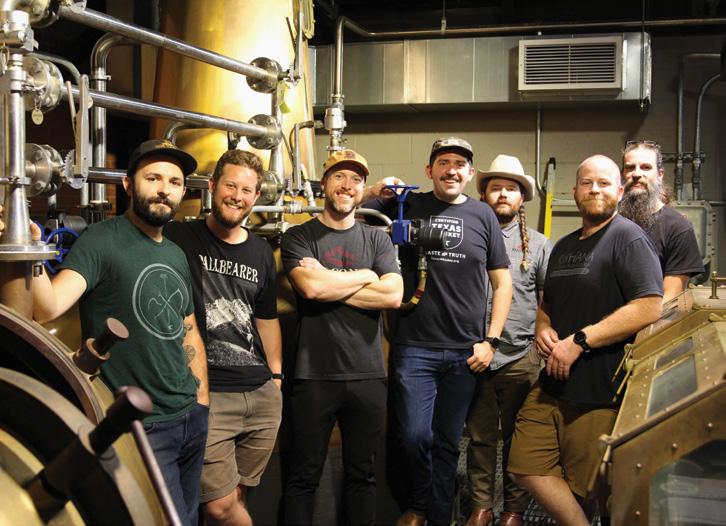
Year founded: 2008 (Balcones was acquired by Diageo in 2022. The distillery is now an alumni member of ACSA.)
Flagship spirit: Texas Single Malt
Most important things to know about your distillery: We run all production exclusively through Forsyths pot stills and age all barrels without any temperature or humidity control.
Biggest lessons learned since you started: Let growth happen organically. You have to be proactive, but forcing opportunities is often a recipe for disaster.
Where do you see your distillery 10 years from now: Continuing to preach the gospel(s) of Texas whisky and American single malt!
Advice for startup distilleries today: Don’t chase trends! Focus on an area that inspires you and make the best spirits possible. Then work on articulating your story to help people understand why what you’re doing matters.
Corsair Distillery
Nashville, Tennessee corsairdistillery.com
Founders: Darek Bell, Amy Lee Bell and Andrew Webber
Year founded: 2008
Flagship spirits: Corsair Gin, Corsair Triple Smoke Whiskey and Corsair Dark Rye Whiskey
Most important things to know about your distillery: We like to take risks.
Biggest lessons learned since you started: Perseverance is the key to everything!
Advice for startup distilleries today: Start larger than you think you need to be. Scale quickly.
Hillrock Estate Distillery

Ancram, New York hillrockdistillery.com
Founders: Jeffrey Baker and Cathy Franklin
Year founded: 2010
Flagship spirits: Solera Aged Bourbon, Double Cask Rye and Estate Single Malt
Most important things to know about your distillery: Hillrock Estate Distillery is located on our farm in the heart of the historic Hudson Valley highlands, two hours north of New York City. Established in 2010, we are proud to be one of the few field-to-glass whiskey distilleries in the world, and the first U.S. distillery since Prohibition to traditionally floor malt and hand craft whiskey on site from estate-grown grain. Our copper pot distillation system was designed by Dave Pickerell and custom made in the U.S. by Vendome.
Biggest lessons learned since you started: Assemble a top quality team and listen to expert advice. Dave Pickerell’s guidance was critical in establishing protocols, training staff, etc. and enabled us to avoid many potential problems and paved the way for making world class whiskies. Passion and control are critical. Hillrock’s loyal customers recognize our commitment to quality and passion for making truly unique, terroir based whiskies. Without outside partners or debt, we have been able to stay true to our passion and commitment to quality.
Where do you see your distillery 10 years from now: Hillrock will be a major international field-to-glass spirits brand, recognized for the highest quality, terroir-based spirits. That will mean expansion of domestic and offshore distribution beyond our current states in the U.S., as well as additional expansion of production capacity.
Advice for startup distilleries today: Identify an underserved market opportunity and think big. Success will depend on the quality for your idea and the team assembled for the endeavor. Make sure you are properly capitalized and have the staying power required to build a viable operation that can compete with today’s established players in the sector.
Santa Fe Spirits
Santa Fe, New Mexico santafespirits.com
Founder: Colin Keegan
Year founded: 2010
Flagship spirit: Colkegan Mesquite Smoked American Single Malt
Most important things to know about your distillery: We inhabit the region in which we live through our commitment to using regional flavors and ingredients and our active involvement in the community. We pride ourselves on the care we put into making our
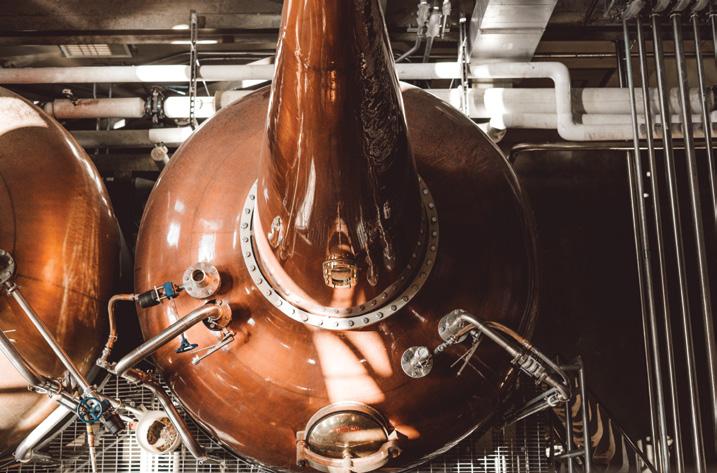
CRAFTSPIRITSMAG.COM FEBRUARY 2023 | 53
Jeffrey Baker and Cathy Franklin
spirits, and the fact that we don’t take shortcuts.
Biggest lessons learned since you started: Have a plan, but don’t etch it in stone. Everything is more complicated than you anticipate.
Where do you see your distillery 10 years from now: We see our Colkegan line of American single malts having national recognition and distribution, our distillery having gone through another round of expansion, and keeping our title of the best/oldest/most relevant distillery in New Mexico. Most of all, we see that we are still here in 10 years.
Advice for startup distilleries today: Really think about access to market. Why would people buy your spirits over others? There are a bunch of others telling the same story, what sets you apart? Yes, invest in distillery software to help navigate all the reporting. Think seriously about running a shoe store or starting an alpaca ranch instead.
FEW Spirits
Evanston, Illinois fewspirits.com

Founder: Paul Hletko
Year founded: 2011 (FEW is part of Samson & Surrey, which was acquired by Heaven Hill Brands in 2022. FEW is now an alumni member of ACSA.)
Flagship spirit: FEW
Straight Bourbon Whiskey
Most important things to know about your distillery: FEW strives to be a creative and artistic distillery, with an unnatural lack of fear of innovation. We want to distill the greatest whiskey on the planet, with the greatest team of co-workers in the business.
Biggest lessons learned since you started: When we started, there was no ACSA available to help us learn any lessons, so all the lessons got learned the hard way, and they’re all big lessons. Cash flow, HR challenges, distributor selection and management, sales, marketing. … They’re all big lessons!
Where do you see your distillery 10 years from now: I think FEW will continue to build our name and will hopefully be widely seen as one of the premiere distilleries on the planet.
Advice for startup distilleries today: It is incredibly difficult, but you can do it. Pick a strategy and focus on it.
New York Distilling Co.
Brooklyn, New York nydistilling.com
Founders: Tom Potter, Allen Katz and Bill Potter
Year founded: 2011
Flagship spirits: Ragtime Rye and Dorothy Parker Gin
Most important things to know about your distillery: We love trying to bring a little New York sass and swagger to our spirits.
Biggest lessons learned since you started: Restlessness is a virtue. So is patience.
Where do you see your distillery 10 years from now: Would love to see our bottles peeking out at us from cool bars and stores all over the world.
Advice for startup distilleries today: Join the ACSA and be welcomed by your tribe.
Spring44 Distilling
Loveland, Colorado spring44.com
Founders: Jeff Lindauer, Jeff McPhie and Russ Wall
Year founded: 2012
Flagship spirits: Spring44 Gin and Spring44 Vodka

Most important things to know about your distillery: The most meaningful differentiator for our product is our water. An 80-proof bottle is 60% water, so arguably it’s an important ingredient and a lot of people have to take stuff out, buffer, condition, etc. We do nothing to alter the fresh water flowing from our spring, other than filter out large particulates. Our artesian spring is on an 11,000-foot mountain at 9,000 feet.
Biggest lessons learned since you started: This business is built a brick at a time. … It’s not by leaning on a distributor. They’re very important and those relationships are super key, but the business gets built one bottle at a time.
Where do you see your distillery 10 years from now: We want to build a national brand. We’re in the process of that and we’re feeling good that our brand is resonant now in disparate markets.
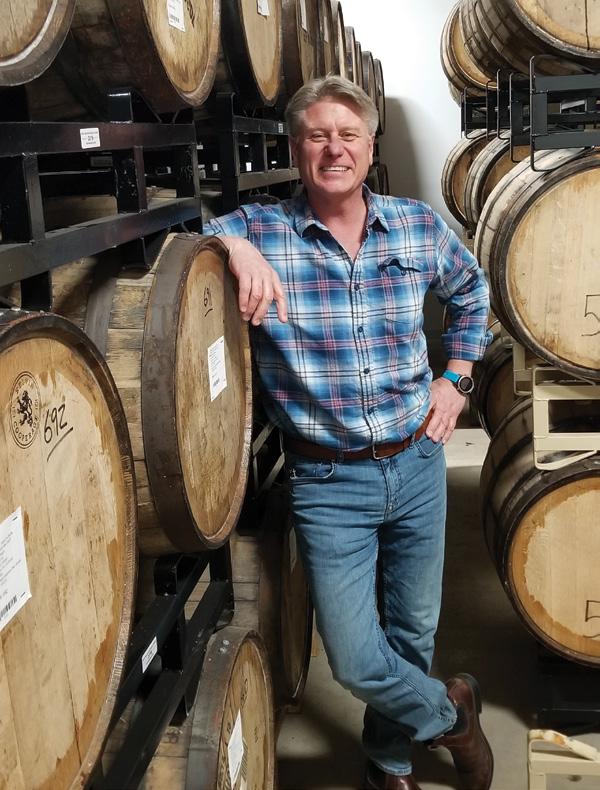
Advice for startup distilleries today: Double the amount of capital that you think you need and triple the amount of time that you think is going to take to achieve your volume objective.
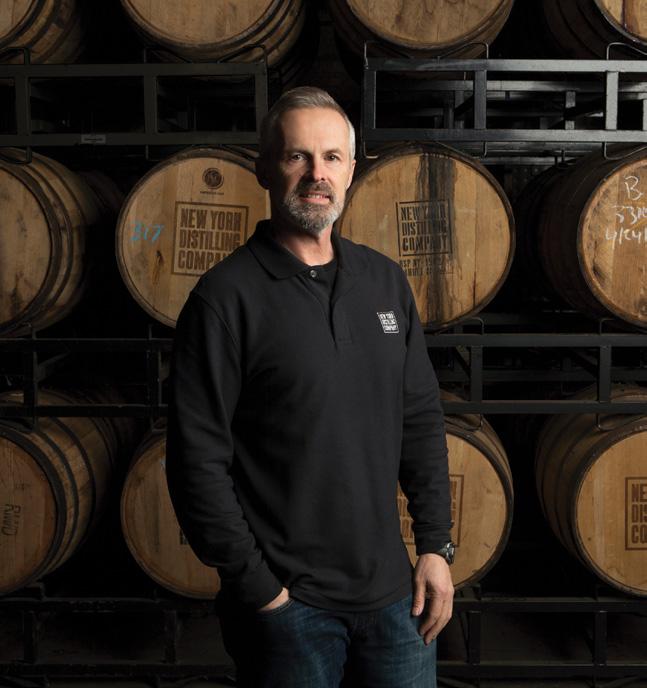
54 | FEBRUARY 2023 CRAFTSPIRITSMAG.COM
Colin Keegan
Tom Potter
DRINKS TO SAVOR FROM ACSA’S FOUNDING MEMBERS
Fireside Old Fashioned
Featuring dashes of cinnamon, allspice and mole bitters, this Old Fashioned from Hye, Texas-based Garrison Brothers Distillery will bring plenty of warmth to even the coldest winter day.
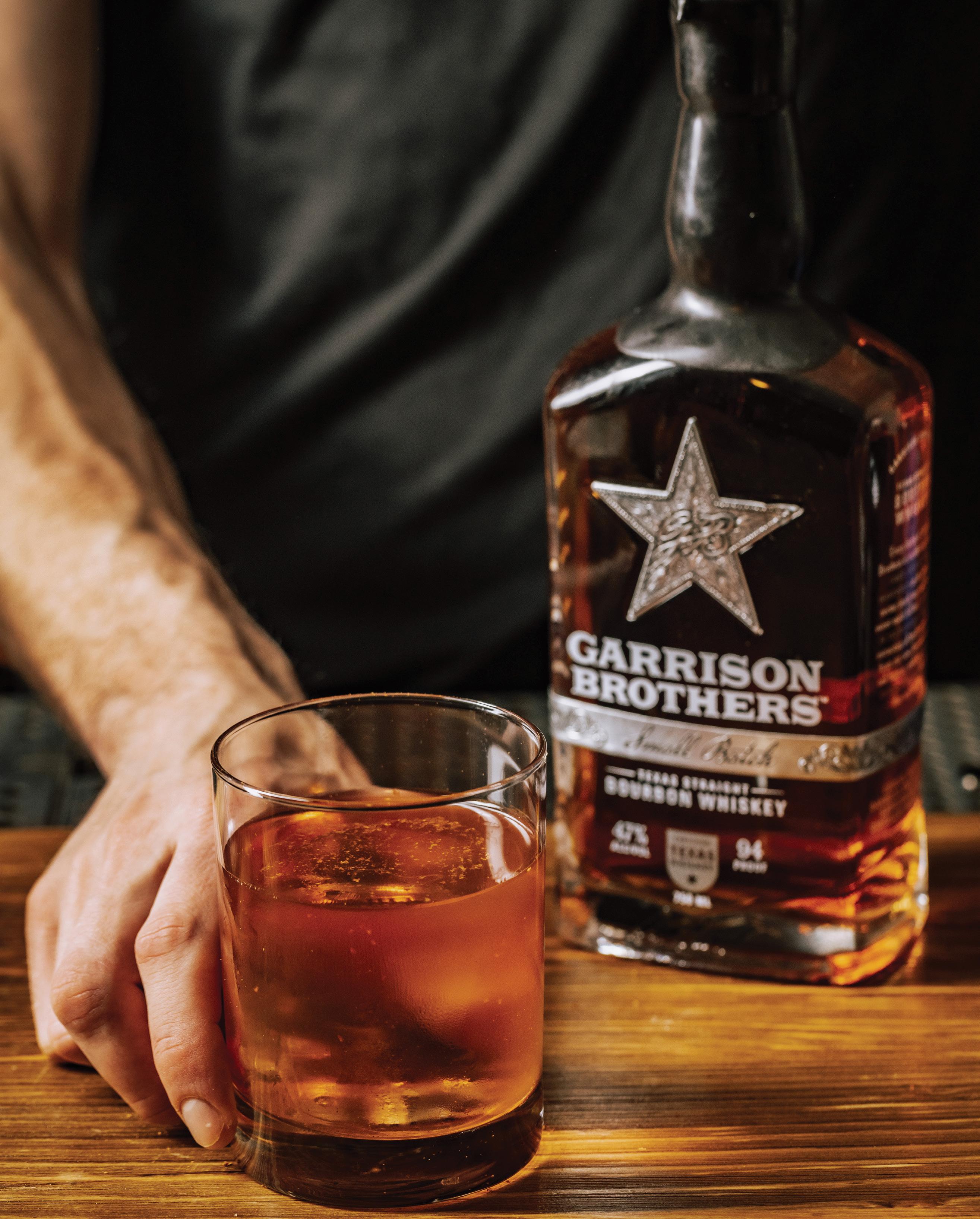
Ingredients
2 ounces Garrison Brothers HoneyDew Bourbon
1/4 ounce spiced cinnamon syrup
Spoonful of allspice dram
2 dashes Bittermens Mole Bitters
2 dashes Peychaud’s Bitters
Directions
Add all ingredients to a mixing glass and add ice. Stir until chilled, then strain into a rocks glass over a large cube. Garnish with grated cinnamon.
WHAT ’ s Stirring
Bee Hive
Created by bartender David Stallings, this cocktail features Santa Fe Spirits’ Colkegan Unsmoked Single Malt.
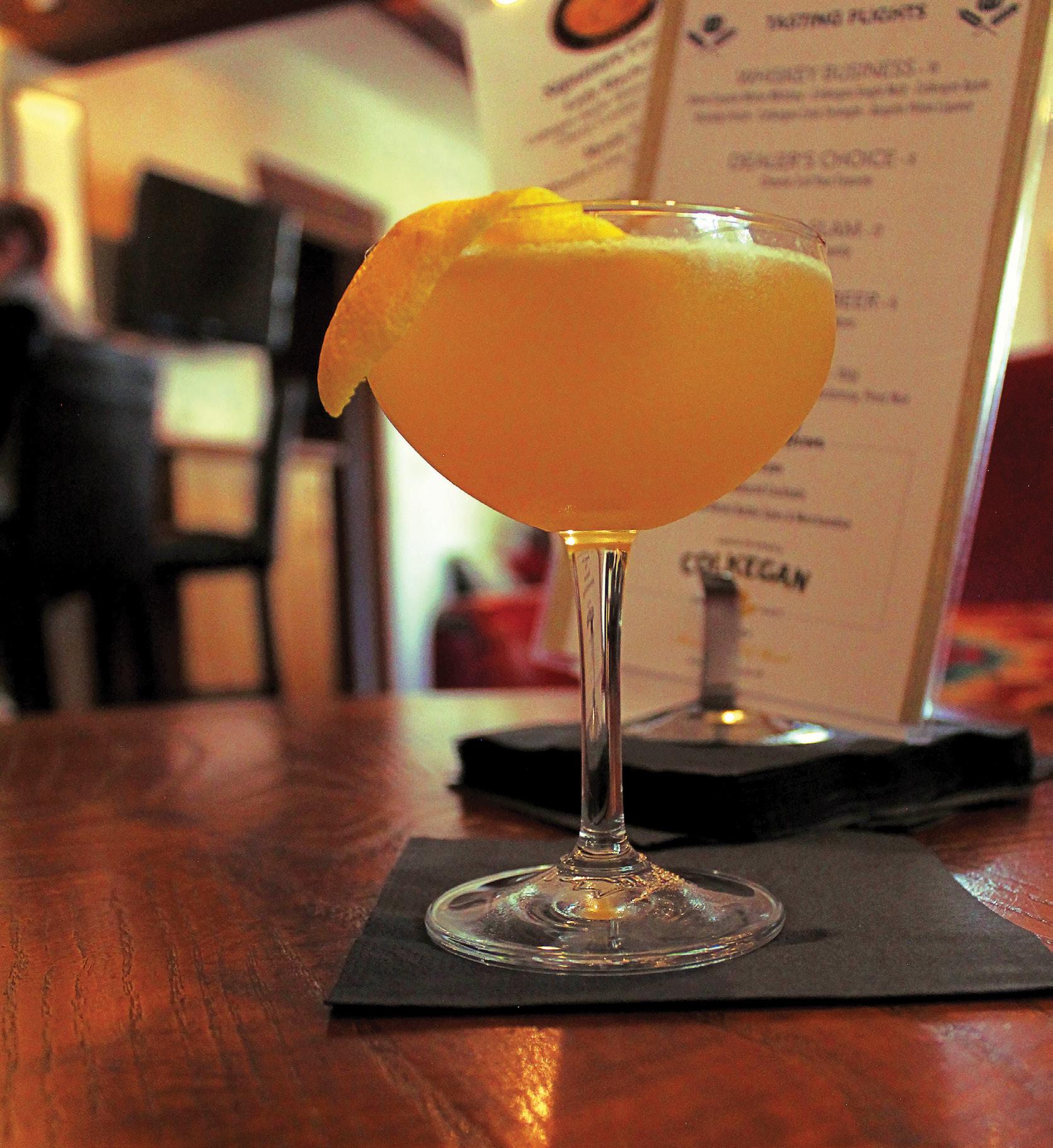
Ingredients
1 3/4 ounces Colkegan Unsmoked Single
Malt
1/2 ounce lemon juice
3/4 ounce honey simple syrup
2 dashes of ginger syrup
Directions
Combine ingredients in shaker glass with ice and shake vigorously. Strain into a coupe glass and garnish with lemon peel.
Rick’s Roy
This cocktail from Copper Fox Distillery in Sperryville, Virginia, is a twist on the classic Rob Roy, created for Copper Fox founder Rick Wasmund by good friend and brand ambassador Jon Arroyo. Copper Fox currently has a newly released Amaro Y Arroyo, which is Arroyo’s recipe. A more widely available option for the cocktail would be Averna.
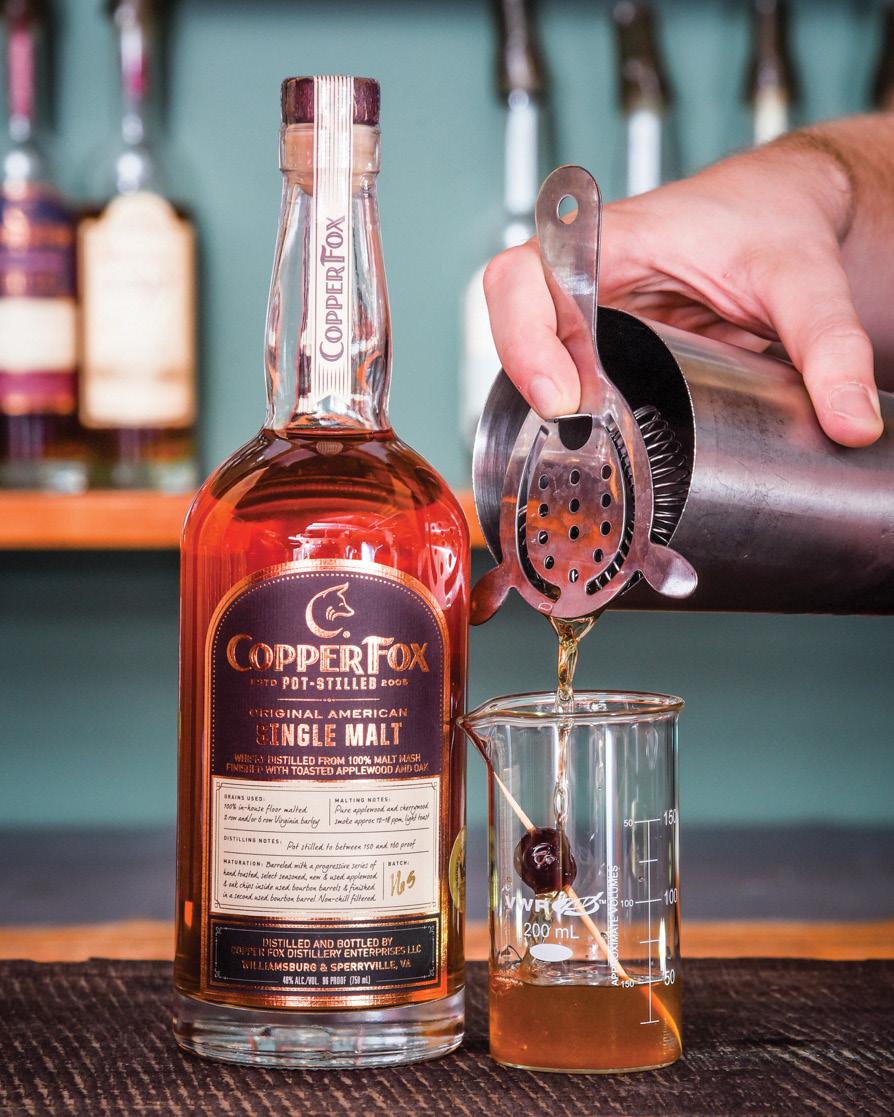
Ingredients
1 1/2 ounces Copper Fox Original Single Malt Whisky
1/2 ounce Copper Fox Amaro Y Arroyo
1/4 ounce B&B
Directions
Add all ingredients and ice in a mixing glass. Stir and strain into a rocks glass with a rock and garnish with an orange peel.
56 | FEBRUARY 2023
Hillrock Hot Toddy

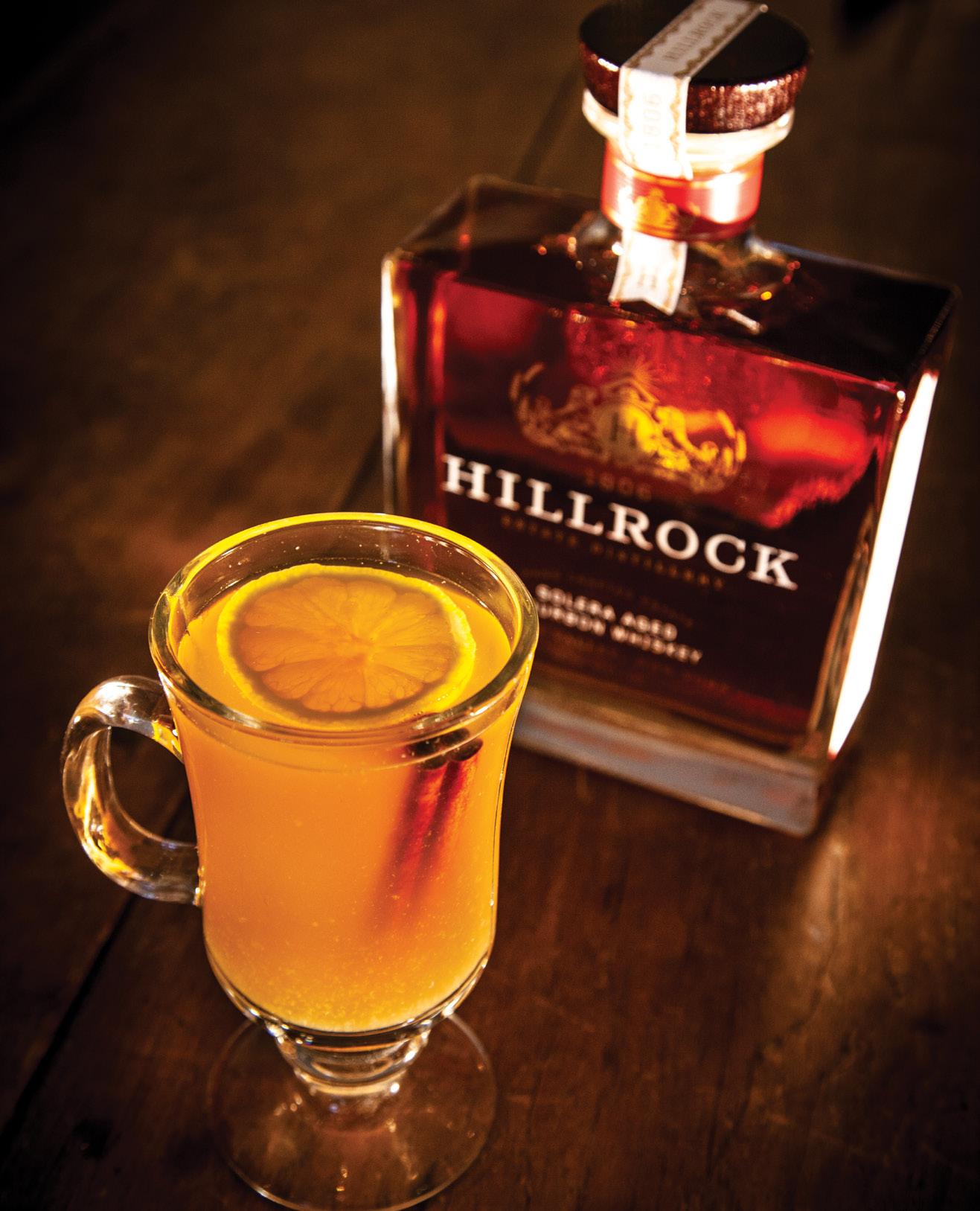
This Hot Toddy from Ancram, New York-based Hillrock Estate Distillery features the distillery’s Solera Aged Bourbon.
Ingredients
1 1/2 ounces Hillrock Solera Aged Bourbon
1 ounce fresh lemon juice
1 ounce honey syrup (made with honey, chamomile, ginger and lemon syrup)
4 ounces boiling hot water
1 lemon
Directions
Warm up your mug by rinsing it with boiling water (this way, the mug will not cool the contents of the cocktail). Combine all ingredients directly in a mug, topping off with boiling water. Stir together and garnish with lemon wheel and cinnamon stick.
Penny Ceiling
This cocktail from Waco, Texas-based Balcones Distilling is a play on the Penicillin. If you don’t have a bottle of Brimstone available, a peated scotch like Ardbeg 10 can work, too.
Ingredients
1 3/4 ounces Balcones Lineage Single Malt
3/4 ounce lemon juice
3/4 ounce honey simple syrup (Texas wildflower honey if you’ve got it)
3 dashes Peychaud’s Bitters
1/4 ounce Balcones Brimstone
Directions
Shake all ingredients (besides the Brimstone) in a cocktail shaker with ice. Strain contents over a large ice cube in a rocks glass and float Brimstone on the back of a bar spoon into the glass. Garnish with lemon peel. (Flamed if you’re feeling fancy.)
FEBRUARY 2023 | 57
Peach Street Black Manhattan
The team at Peach Street Distillers in Palisade, Colorado, would normally prefer to drink their bourbon neat, but for a great cocktail they offer this drink, which includes their in-house amaro.

Ingredients
2 ounces Peach Street Colorado Straight Bourbon
1 ounce Peach Street Amaro
2 dashes Angostura Bitters
Directions
Add bourbon, amaro and bitters to a mixing glass filled with ice and stir. Strain into a glass and garnish with an orange peel.
Winter White Tea & Thyme
Teas are a natural friend to many spirits, and Loveland, Colorado-based Spring44 Distilling often chooses white tea, as it is the least processed of teas. Add to your favorite spirit, sweeten and enjoy the best of toddies during the cold months of winter.
Ingredients
2 ounces Spring44 Vodka, Spring44 Honey Vodka or Spring44 Gin
6 ounces brewed and cooled white tea
1 ounce lemon juice
Honey, to taste
Directions
Add all ingredients to a mixing glass with ice and stir. Strain into a rocks glass and garnish with a sprig of thyme.

58 | FEBRUARY 2023 CRAFTSPIRITSMAG.COM
The Ragtime Gold Rush
This cocktail from New York Distilling Co. of Brooklyn, New York, features the distillery’s flagship rye, which hints at tropical notes with plum aromas and a delicious crème brûlée and warm oak flavor.

Ingredients
3/4 ounce lemon
3/4 ounce honey (or honey syrup)
2 ounce Ragtime Bottled in Bond Rye
Directions
Shake all ingredients and serve on the rocks.
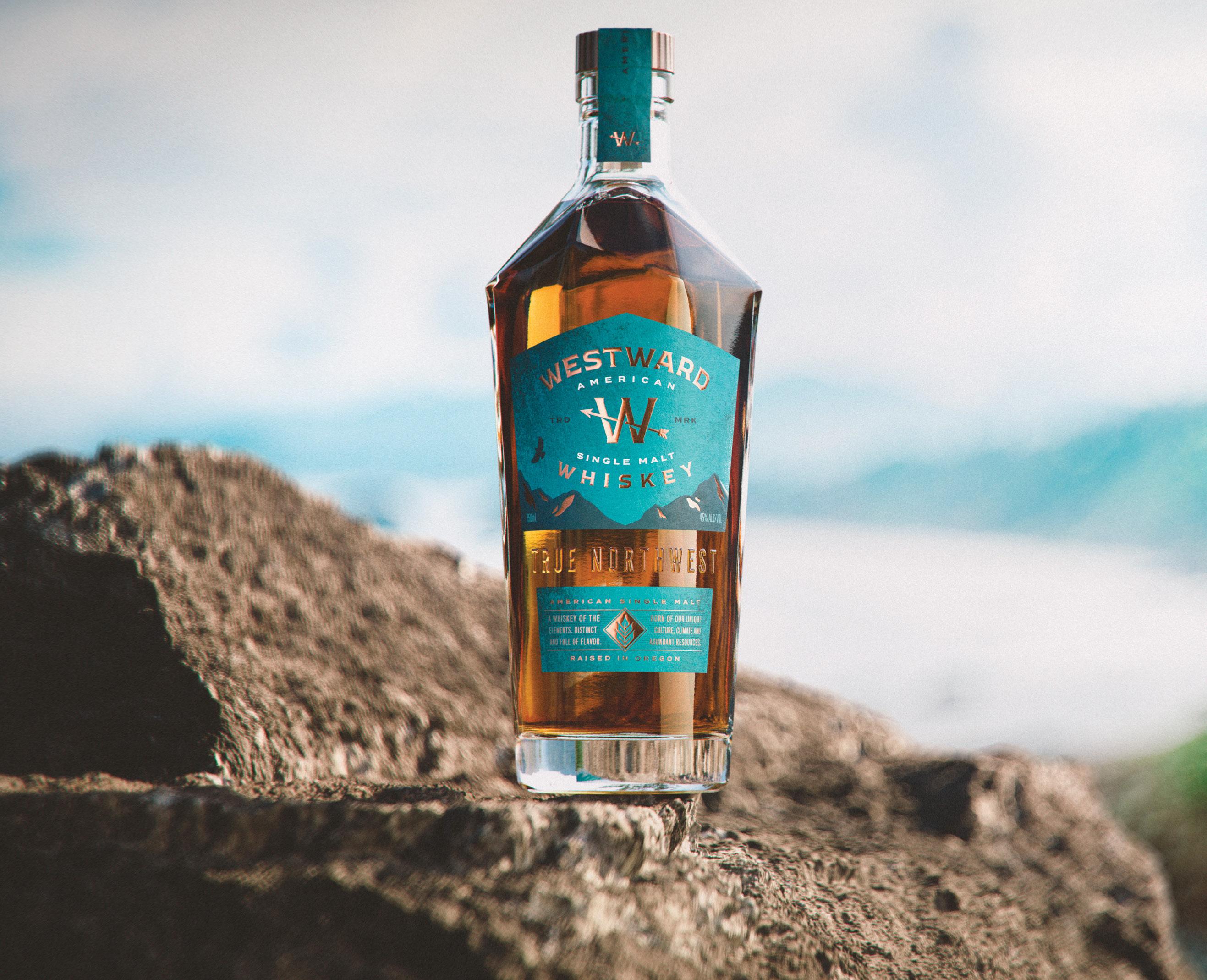

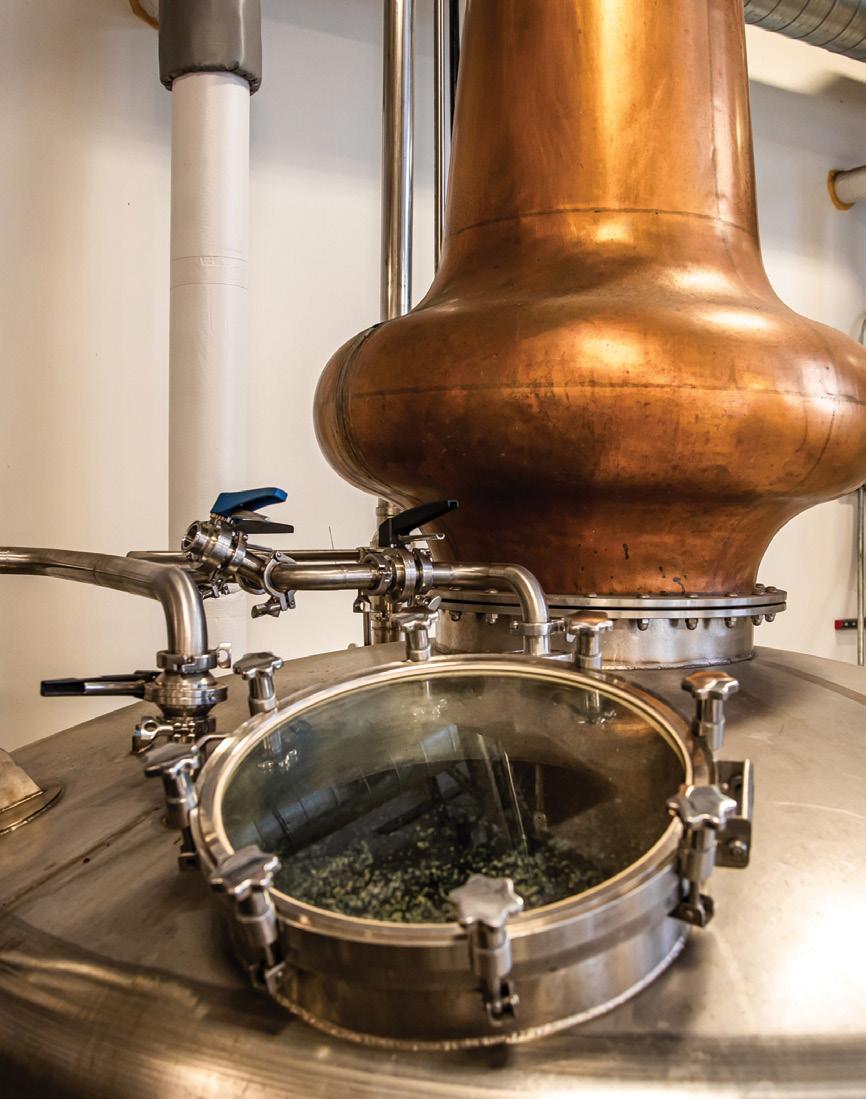
Distilling Destinations
Founded in 2004, Westward Whiskey is a leading producer of American single malt whiskey.
Crafting a Connection
BY JOHN HOLL
Portland, Oregon, has long been a destination for artists and creators. The city’s vibrant culture brings visitors in search of deeper experiences with food and drink, most notably wine from the nearby Willamette Valley and beer made with locally harvested hops.
The craft spirits scene in the Pacific Northwest can be traced back nearly 40 years, but it has come into its own in recent years, playing into local ingredients, ingenuity and tradition. As of 2022, Portland had at least 14 distilleries within the city limits.
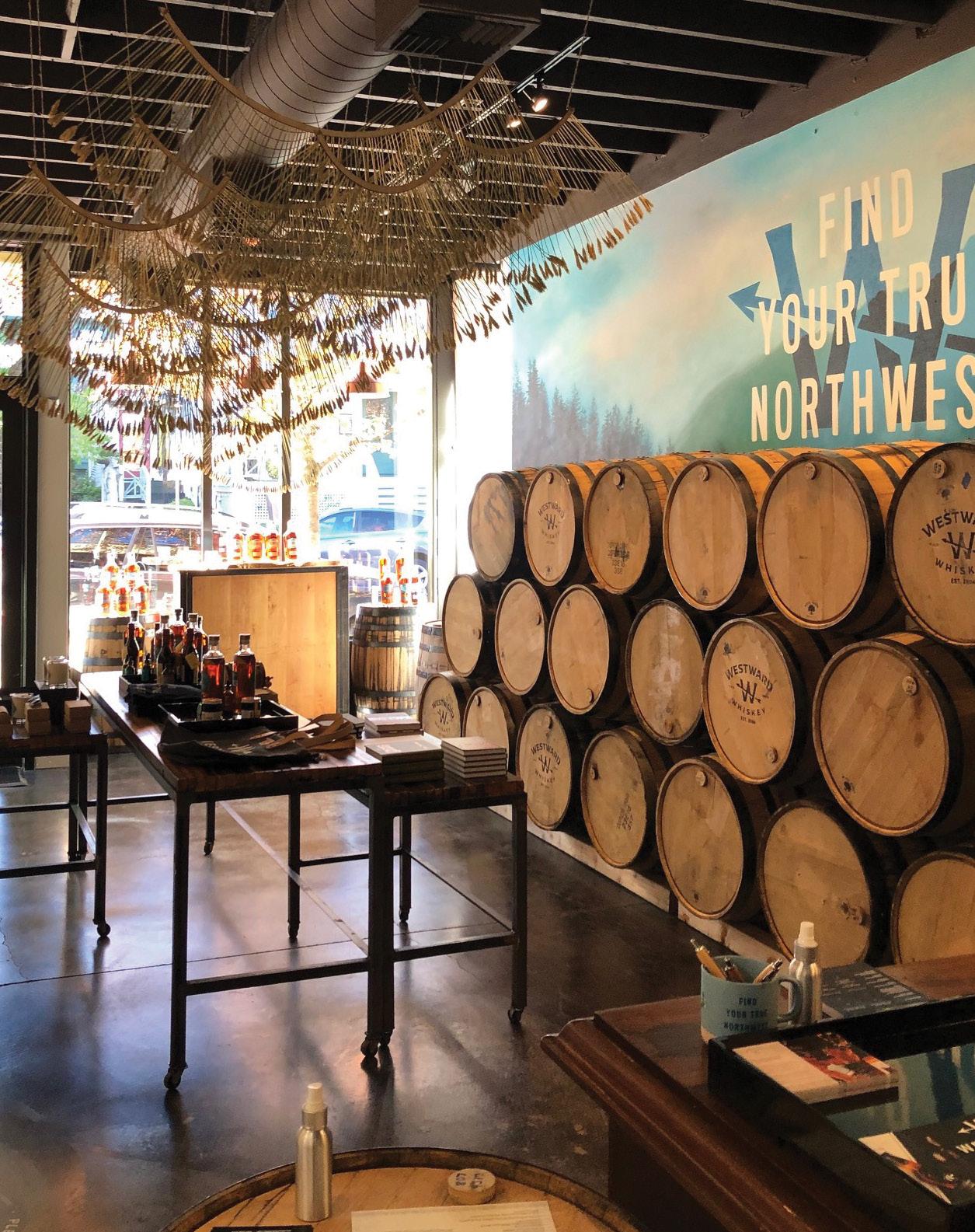

The results are not unlike the city itself: unique and often hard to explain unless you experience it first-hand.
“The confluence of craft brewing, winemaking and craft distilling has led to an amazing skill set in the area that makes for an interesting collaborative ethos,” says Stephen Hopkins of The Aimsir Distilling Co. “Our Rosé Gin quite literally could not have existed in any other area.” The same is true, he says for the distillery’s cold brew bourbon, which sources coffee from a local roaster.
Local ingredients are everywhere. While the city itself is often the draw, craft distillers are quick to mention the larger region, especially the Willamette Valley with its orchards, farms,
vineyards, hop fields, and other agricultural efforts as a strong reason spirits have thrived.
“To distill down the fruit bowl that is the Northwest and offer it to the larger world is just doing our part for the Pacific Northwest, and [we] hope people enjoy it,” says Joe O’Sullivan the master distiller of Clear Creek Distillery, which was founded in Hood River in 1985. “More than that though, I hope we motivate others to look toward their own farms, orchards and forests and do the same … if only so I might taste the uniqueness of this diverse country.”
People in Oregon are huge supporters of local products and goods, says Christina Cary, the marketing operations manager at Astoria-based Pilot House Distilling, which also operates a tasting room in Portland (Newportbased Rogue Ales & Spirits operates a tasting room in Portland, as well). “When it comes to ingredients, we support local as much as possible,” says Cary. Pilot House was the first craft distillery to create a canned cocktail that went to the market in Oregon, Cary adds. The distillery’s Astoria Mary captured best of readyto-drink honors in the American Craft Spirits Association’s 2022 Judging of Craft Spirits.
No matter the time of year, visitors to Portland should hit the road and explore the
FEBRUARY 2023 | 61
In and around Portland, Oregon, distillers embrace local ingredients, community and a can-do attitude.
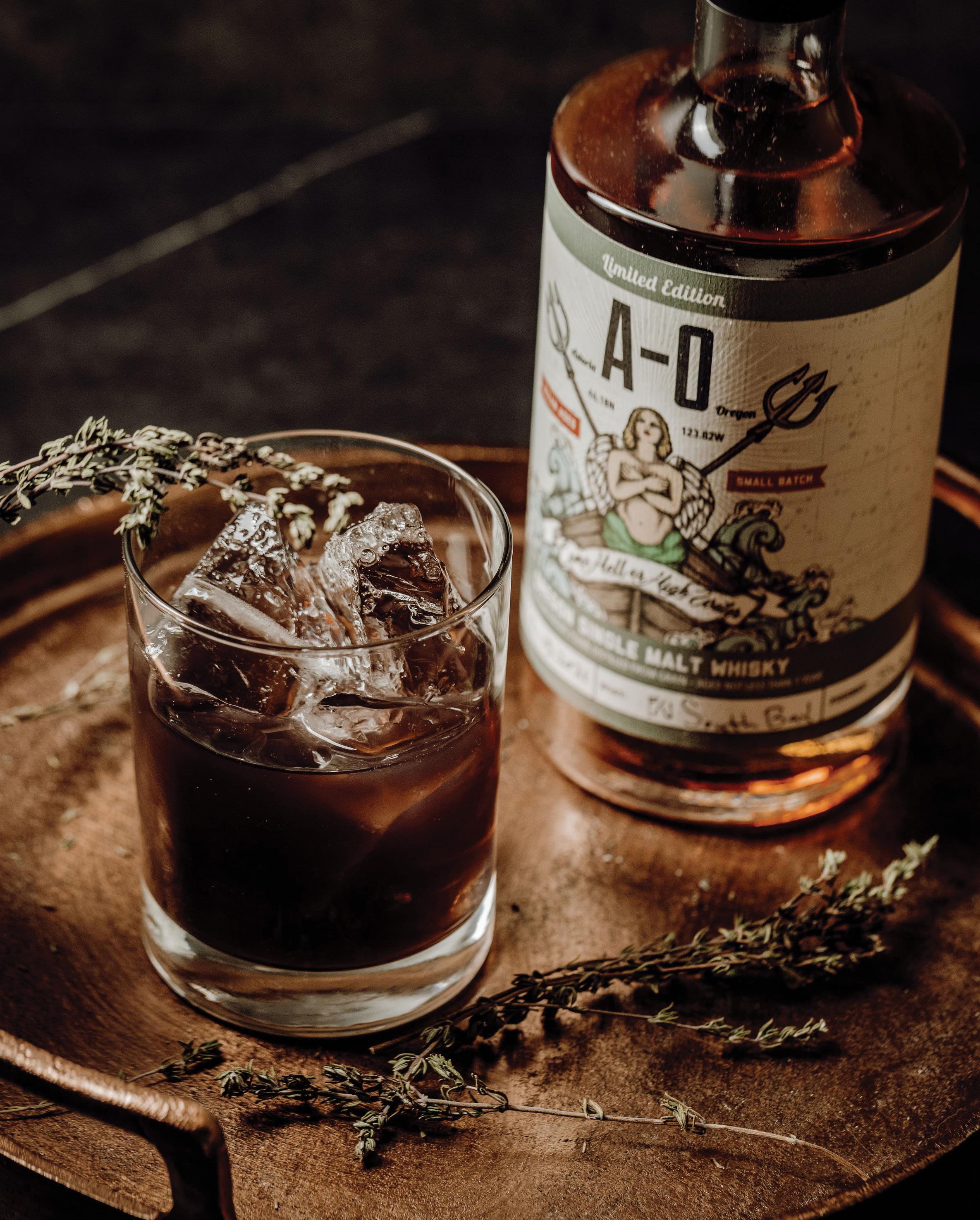 Astoria-based Pilot House Distilling operates a tasting room in Portland.
Astoria-based Pilot House Distilling operates a tasting room in Portland.
mountains and valley, stepping in the soil for a better understanding of how distillers approach their craft and have created a connection with the land.
“We’re blessed to live in a rich agricultural region,” says Tom Burkleaux, the co-founder of New Deal Distillery. “We have access to Oregon wheat, rye and corn. In the Columbia Gorge, orchards grow pears and apples. In the Willamette Valley, we have a thriving wine industry. Distillers from all over the state have easy access to wine for brandies. From this bounty we can create spirits that reflect the region.”
He notes that Portland is already known for culinary tourism, with one of the most creative food scenes in America and the locally distilled craft spirits have become part of those efforts.
Andy Garrison, the head distiller of Stone Barn Brandyworks says it can add layers of complication and expense when it comes to working with local ingredients. As one of the smallest distilleries in the city, Stone Barn is only open by appointment and Garrison says this helps create a more personal tasting experience but also allows him to tell the story of fruit.
“We pull the map out and can show them where the 15 pounds of pears in that bottle of brandy were all grown by a third-generation Oregon orchard in Salem,” he says. “Or that the berries in the Haskap Liqueur are a variety unique to Oregon developed by a legendary Oregon State University professor of horticulture.”
It adds a narrative to the product which Garrison believes helps consumers understand well-known fruits better but also learn about more unusual fruits like quince.
While ingredients are important, there is also the human experience that Portland thrives on.
“Almost anything you can think of making, you’ll find someone setting up shop in Portland,” says Molly Troupe, the master distiller and partner at Freeland Spirits. “Due to this environment, you have a lot of people who are interested in creative endeavors, trying new things and supporting small businesses, like craft spirits.”
The insular nature of Portland means that regular restaurants—not just bars-in-theknow—are likely to stock a wide range of bottles from local producers, and ready-todrink cocktails and specialty offerings are easily found on shop shelves.
There is collaboration, as well, among beverage producers, focusing on not just
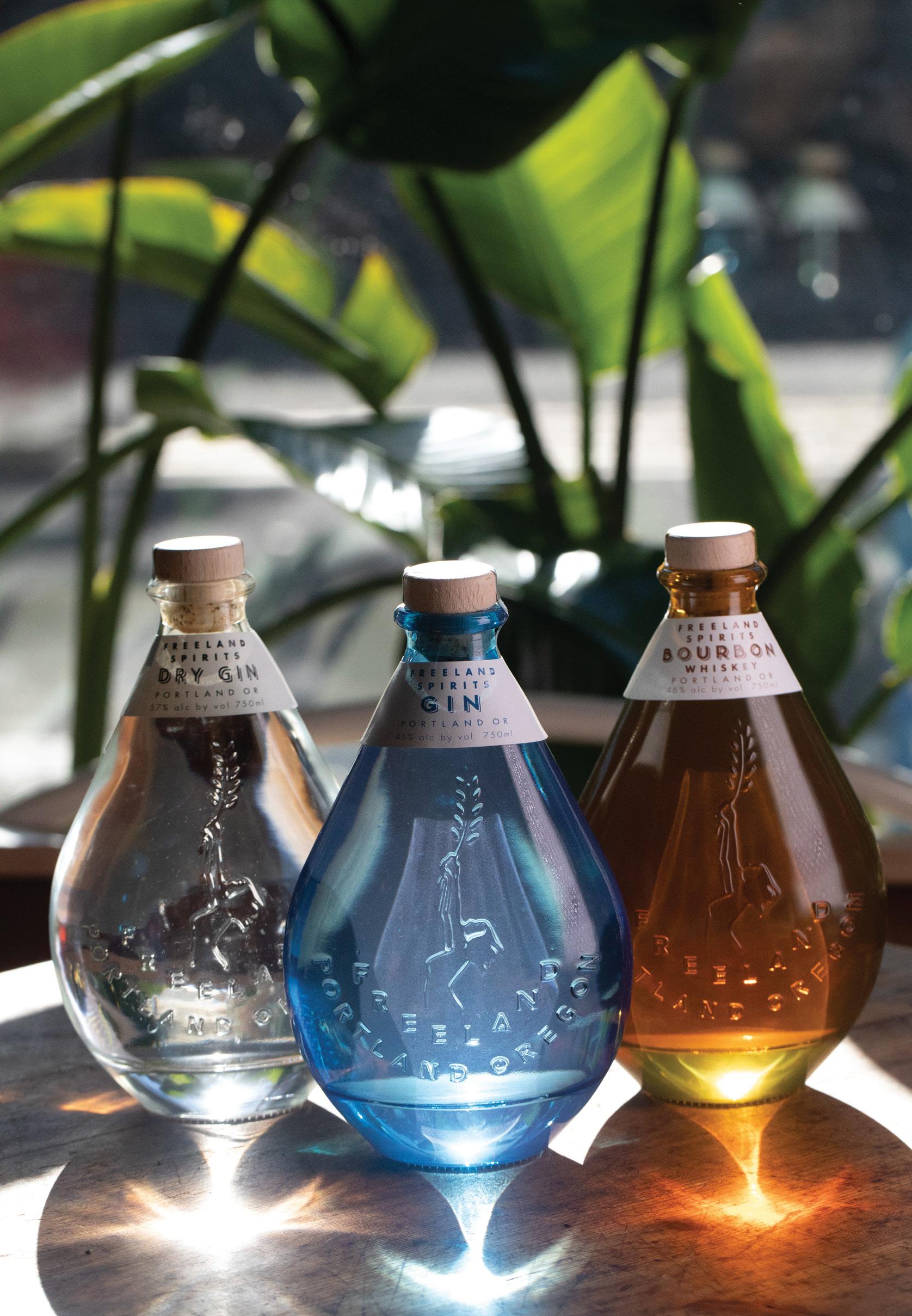
CRAFTSPIRITSMAG.COM FEBRUARY 2023 | 63
“Almost anything you can think of making, you’ll find someone setting up shop in Portland. Due to this environment, you have a lot of people who are interested in creative endeavors, trying new things and supporting small businesses, like craft spirits.”
—Molly Troupe of Freeland Spirits
products, but people.
“We work hard to partner with other businesses and people who think like this to help make our products,” says Kelly Woodcock, vice president of guest experience and whiskey club at Westward Whiskey. “You see this in the wineries we choose to work with for our Pinot Cask, the breweries we exchange barrels with for our Stout Cask, and the way we treat our fellow co-workers.”
Community is talked about a lot in Portland. It’s not just a buzz word or a marketing idea, but a true sense of place. Throughout the beverage industries, among artists, chefs and residents there is a strong sense of togetherness.
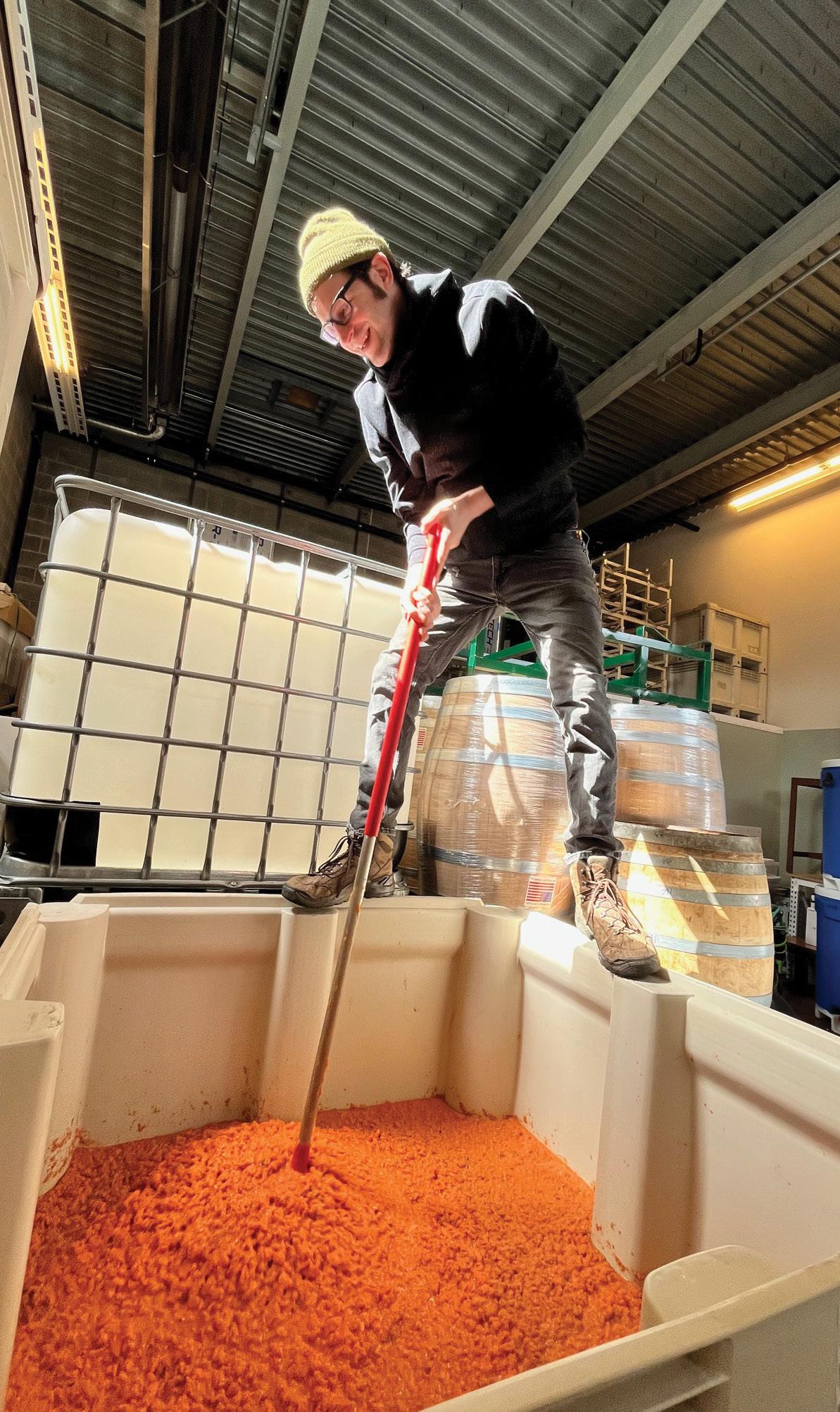

Portland is a destination, and among those who live and work in the city there is communal admiration and strength.
“I’m always so impressed by what Portland distilleries are able to achieve, but more than anything I’m appreciative of the friendship we show each other,” says O’Sullivan. “Without a doubt, the standards we have set and the innovations we have made are a direct response to this community. If there’s one thing I hope consumers see in our bottles and in our cups, is that the rise of Portland as a distilling city has and will always be a team effort.” ■
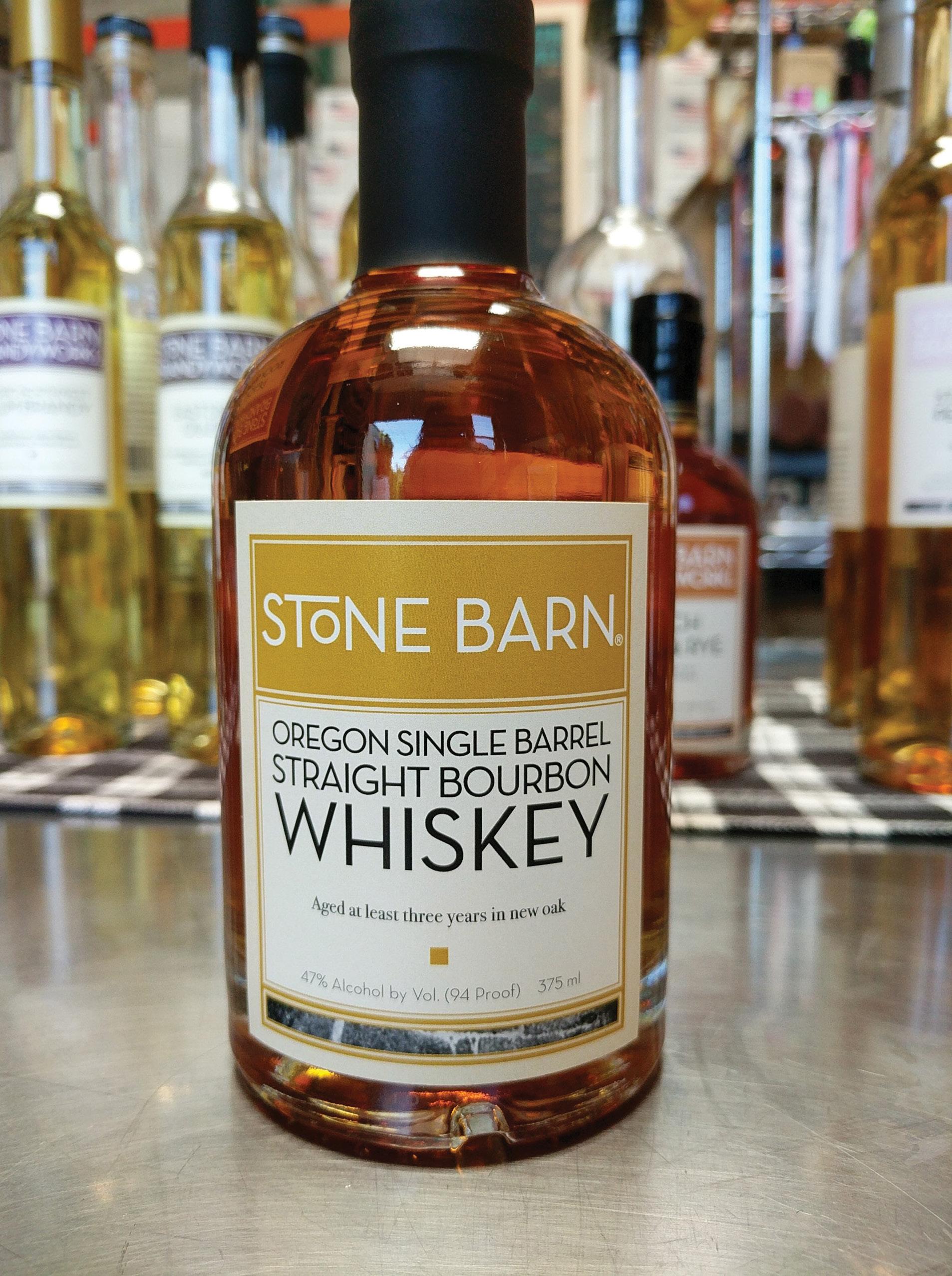 Andy Garrison of Stone Barn Brandyworks punching down carrots
Erika Degens of Stone Barn Brandyworks processing rhubarb
Andy Garrison of Stone Barn Brandyworks punching down carrots
Erika Degens of Stone Barn Brandyworks processing rhubarb


 Tom Burkleaux of New Deal Distillery
Tom Burkleaux of New Deal Distillery
An internship program that is a STEP above the rest
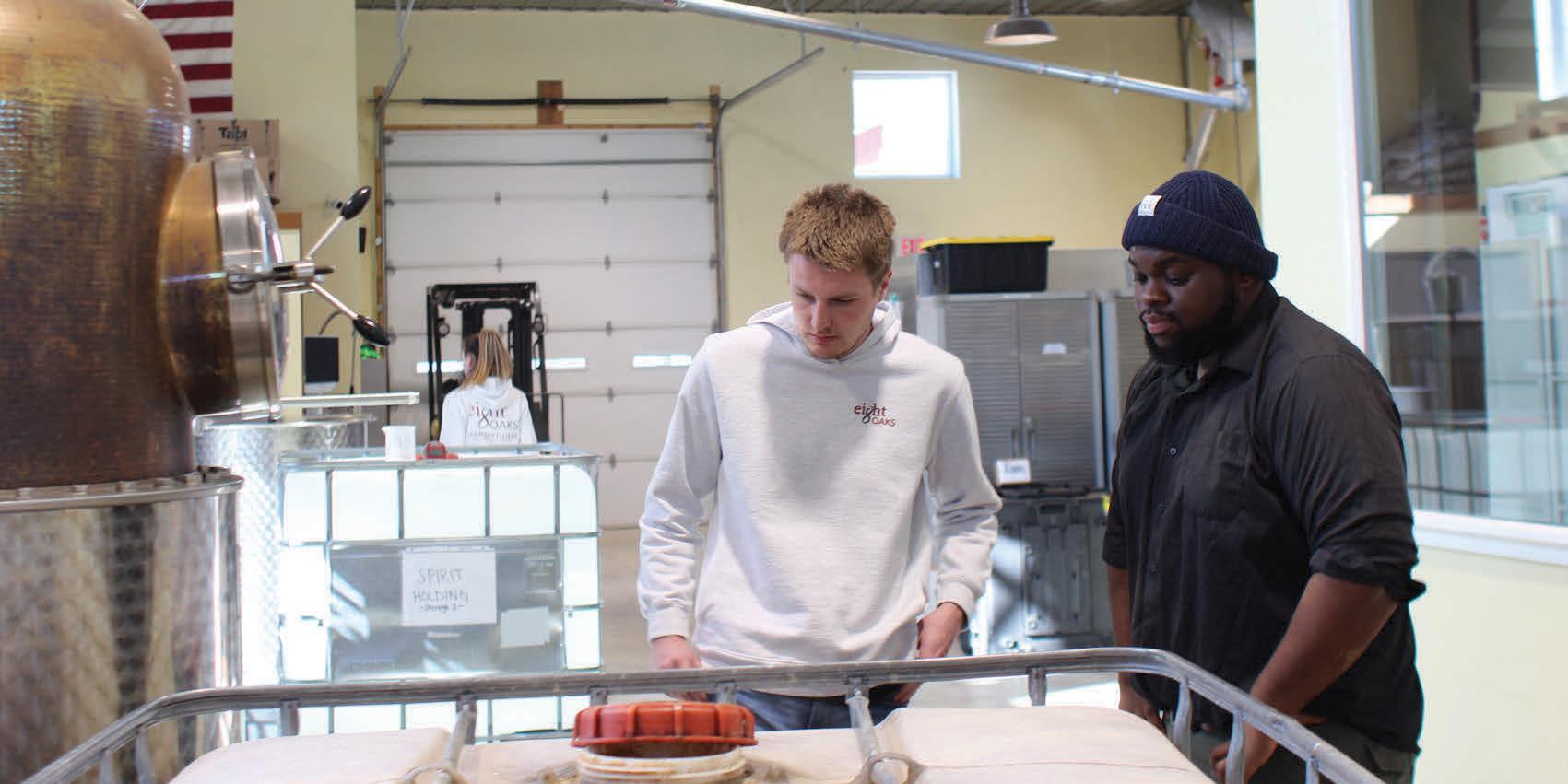
Partnering with member distilleries and wholesalers throughout the United States, we provide a comprehensive training program and provide job exposure for those of different races, color, national origins, abilities, genders, and sexual orientations.


LEARN MORE AT STEPUPINTERNSHIP.ORG
It’s time to STEPUP!
2022 ANNUAL REPORT



ACSA Board of Directors,
2022-2023
PRESIDENT
Becky Harris
Catoctin Creek Distilling Co. (VA)
VICE PRESIDENT
Gina Holman
J. Carver Distillery (MN)
SECRETARY/TREASURER
Jessica J. Lemmon
Cart/Horse Distilling (PA)
EAST
Becky Harris
Catoctin Creek Distilling Co. (VA)
Jessica J. Lemmon
Cart/Horse Distilling (PA)
Tom Potter
New York Distilling Co. (NY)
CENTRAL & MOUNTAIN
Gina Holman
J. Carver Distillery (MN)
Colin Keegan
Santa Fe Spirits (NM)
Amber Pollock
Backwards Distilling Co. (WY)
Mark A. Vierthaler
Whiskey Del Bac (AZ)
Colton Weinstein
Corsair Artisan Distillery (TN)
P.T. Wood
Wood’s High Mountain Distillery (CO)
VACANT
PACIFIC
Dan Farber
Osocalis Distillery (CA)
Lucy Farber
St. George Spirits (CA)
Jake Holshue
Rogue Ales & Spirits (OR)
Jeff Kanof
Copperworks Distilling Co. (WA)
Kelly Woodcock
Westward Whiskey (OR)
EX OFFICIO
Thomas Jensen
New Liberty Distillery (PA)
Thomas Mote
Balcones Distillery (TX)
EXECUTIVE STAFF
Margie A.S. Lehrman
Chief Executive Officer
Ken Brady
Director of Membership & Marketing
Kirstin Brooks
Education Manager
Jeff Cioletti
Editor in Chief
Albab Melaku
Administrative Assistant
Jon Page
Senior Editor
Stephanie Sadri
Director of Meetings & Events
Annette Schnur
Media Sales Representative
COMMITTEE CHAIRS
POLITICAL ACTION COMMITTEE
Stephen Johnson
MEMBERSHIP
Becky Harris
Catoctin Creek Distilling Co. (VA)
Jeff Kanof
Copperworks Distilling Co. (WA)
CONVENTION
James Montero
Dogfish Head Distilling (DE)
Lee Wood
Wood’s High Mountain Distillery (CO)
JUDGING
Colton Weinstein
Corsair Artisan Distillery (TN)
Jeff Wuslich
Cardinal Spirits (IN)
TECHNOLOGY
Mike Blaum
Blaum Bros. Distilling Co. (IL)
Molly Troupe Freeland Spirits (OR)
ELECTIONS
Renee Bemis
Driftless Glen Distillery (WI)
EDUCATION
Lucy Farber
St. George Spirits (CA)
Courtney McKee Headframe Spirits (MT)
Amber Pollock
Backwards Distilling Co. (WY)
ETHICS
Thomas Jensen
New Liberty Distillery (PA)
GOVERNMENT AFFAIRS
Mark Shilling
Genius Liquids/Big Thirst (TX)
STATE GUILDS
P.T. Wood
Wood’s High Mountain Distillery (CO)
Gina Holman
J. Carver Distillery (MN)
FINANCE
Jessica J. Lemmon
Cart/Horse Distilling (PA)
DEVELOPMENT
Tom Mooney House Spirits (OR)
SAFETY
Colton Weinstein
Corsair Artisan Distillery (TN)
MENTORSHIP
Jake Holshue
Rogue Ales & Spirits (OR)
DtC
Dan Farber
Osocalis Distillery (CA)
Becky Harris
Catoctin Creek Distilling Co. (VA)
ADVISORS
STRATEGIC COMMUNICATIONS
Alexandra S. Clough GATHER PR
LEGAL
Ryan Malkin
Malkin Law, P.A
PUBLIC POLICY
Jim Hyland
The Pennsylvania Avenue Group
STATE POLICY
Michael Walker
The Walker Group, LLC
ACSA is grateful to its many volunteers who offer their time, talent and resources to advance the craft spirits industry. We are also thankful to the many committee members not listed on these pages who regularly provide thought leadership to address the concerns of small producers of craft spirits throughout the U.S.
68 | FEBRUARY 2023 CRAFTSPIRITSMAG.COM
The Year in Review
Who We Are
The American Craft Spirits Association is the only registered national nonprofit trade group representing the U.S. craft spirits industry. Members vote for the 15 democratically elected representatives who make up the Board of Directors, and this Board collectively works to govern the ACSA in a transparent, responsive manner and in accordance with our bylaws. As we mark our 10th anniversary, we invite you to read this 2022 Annual Report and let us know what you think. Your insight is critical as we move forward as an organization and as an industry.
Member Owned
Membership in ACSA is open to anyone, although Voting Members must be independent licensed distillers with a valid DSP, subscribe to ACSA’s Code of Ethics, have no more than 50% of the DSP owned (directly or indirectly) by a producer of distilled spirits whose combined annual production of distilled spirits from all sources exceeds 750,000 proof gallons removed from bond, and annually produce fewer than 750,000 proof gallons removed from bond (the amount on which excise taxes are paid).
In case terms, 750,000 proof gallons is 315,451 9-liter cases (12 750 ml bottles) of 100-proof spirit. A DSP may not be a Voting Member if another producer of distilled spirits whose combined annual production of distilled spirits from all sources exceeds 750,000 proof gallons removed from bond and directly or indirectly holds an ownership interest of greater than 50% of the DSP.
History-Making Board Elections
In April of 2022, ACSA’s Board of Directors election marked a first in drinks industry history, as a 100% women-identifying-led board began to steer a national trade association. Additionally, women currently comprise 40% of the elected Board of Directors, which welcomed three new and two returning members.

Becky Harris of Catoctin Creek Distilling Co. in Purcellville, Virginia, was re-elected as president; Gina Holman of J. Carver Distillery in Waconia, Minnesota, was elected as vice president; and Jessica J. Lemmon of Cart/Horse Distilling in Edinboro, Pennsylvania, was elected as secretary/treasurer.
The newly elected Board Members include Lucy Farber of St. George Spirits in Alameda, California; Mark A. Vierthaler of Whiskey Del Bac in Tucson, Arizona; and Kelly Woodcock of Westward Whiskey in Portland, Oregon. Jeff Kanof of Copperworks Distilling Co. in Seattle and Amber Pollock of Backwards Distilling Co. in Casper, Wyoming, were also reelected to the board.
Departing the board after the completion of their terms were Ryan Christiansen of Caledonia Spirits in Montpelier, Vermont, and Molly Troupe of Freeland Spirits in Portland, Oregon. We’d like to extend our thanks to Ryan and Molly for their years of service to the board and their ongoing contributions to ACSA.
Moreover, we extend our gratitude to P.T. Wood of Wood’s High Mountain Distillery in Salida, Colorado, and Kanof, whose terms as vice president and secretary/treasurer, respectively, expired. Each helped guide the association, as a part of its executive leadership team, during particularly trying times due to covid-19. Their business acumen and responsiveness to unprecedented demands, kept not only this trade association afloat, but aided in securing covid-related relief for our industry.
(Left to right) Margie A.S. Lehrman, Jessica J. Lemmon, Becky Harris and Gina Holman cut the ribbon to open the trade show floor at ACSA’s 9th Annual Distillers’ Convention and Vendor Trade Show.
2022 Craft Spirits Data Project
Number of Craft Spirits Producers in the U.S.
At a media event in early December at New York Distilling Co. in Brooklyn, New York, ACSA and Park Street revealed that the number of operating craft distilleries in the U.S. had increased 17.4% to 2,687 (as of August 2022). That was among the many data points in the latest edition of the Craft Spirits Data Project (CSDP), an ongoing, joint effort between ACSA and its hand-picked partner, Park Street. Additionally, CSDP reported that overall craft spirits volume increased 10.4% to nearly 13.3 million 9-liter cases, while revenue surged 12.2% to $7.5 billion. U.S. craft spirits share of the total U.S. spirits volume reached 4.9%, up from 4.7% the previous year, while revenue share reached 7.5%, up from 7.1%.
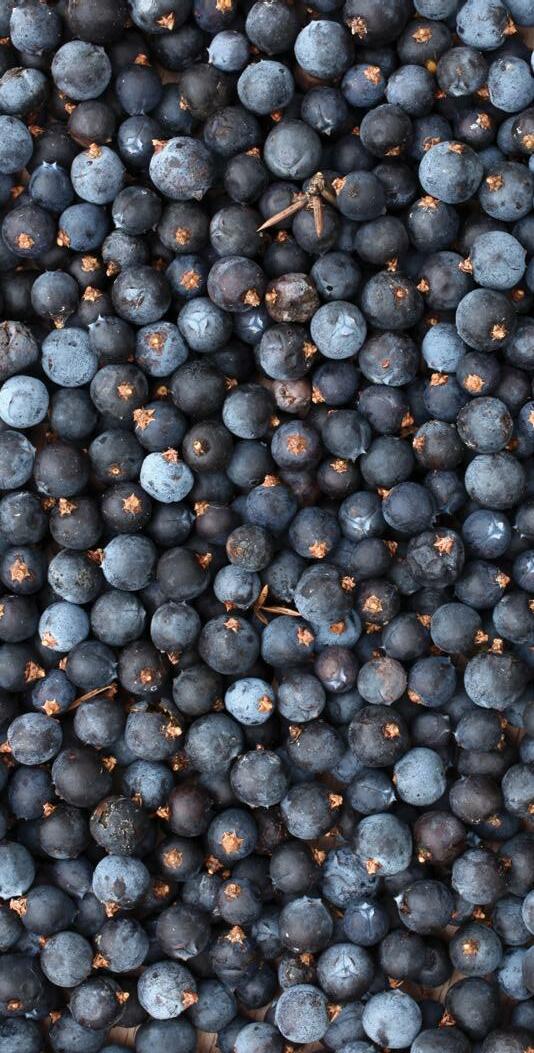
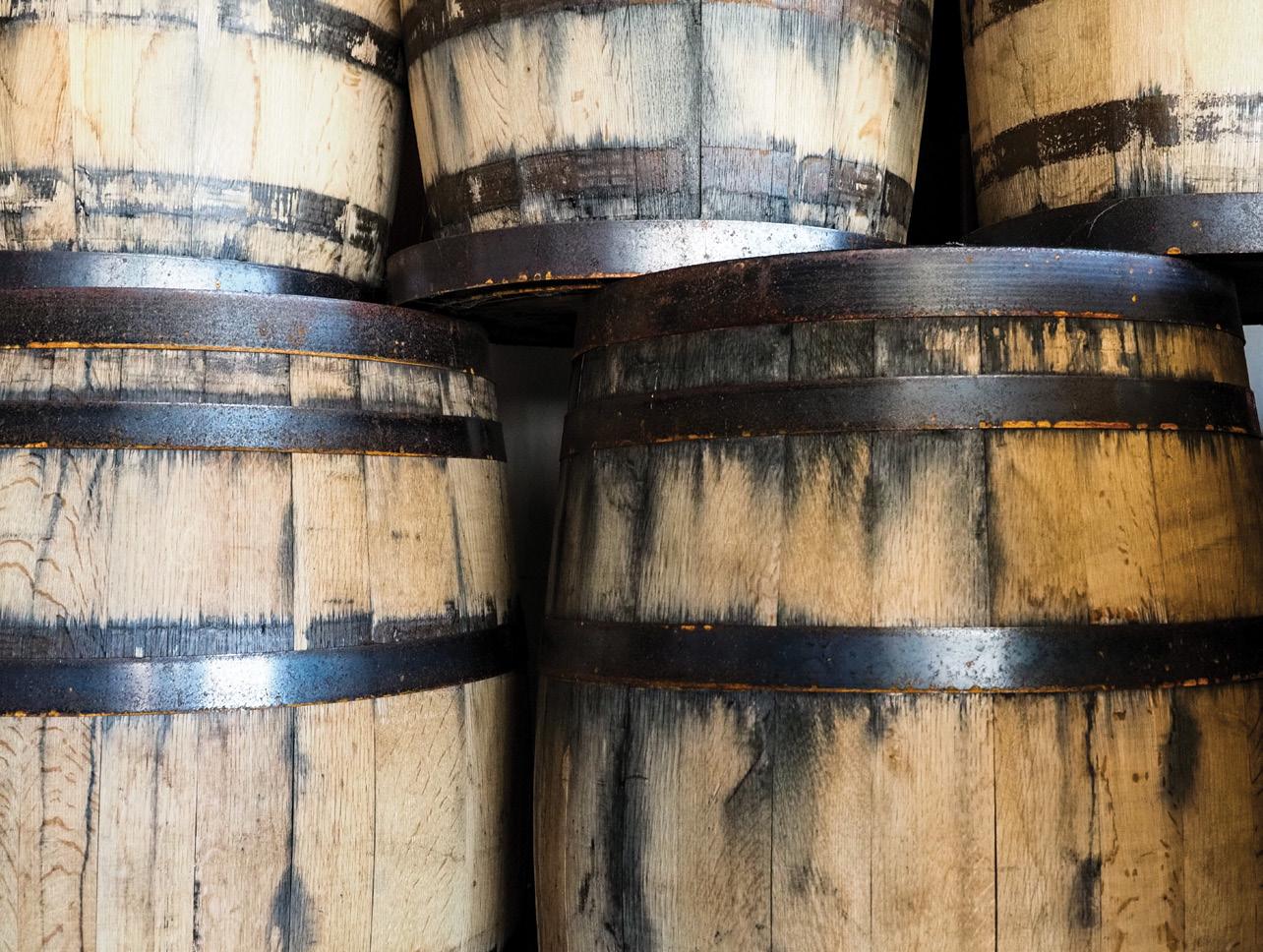
The Project also found that craft distilleries’ sales were almost evenly split between home state/tasting rooms (46.7%) and other states (53.3%) in 2021, the last full calendar year measured, underlining the fact that direct shipping remains an important and critical opportunity for continued craft distillery growth.
Further, craft spirits exports increased 58% to 164,000 9-liter cases.
U.S. Craft Spirits Volume Millions of 9-liter Cases
Craft Spirits Value

CRAFTSPIRITSMAG.COM
2010 204 2011 280 2012 455 2013 656 2014 906 2015 1,163 2016 1,439 2017 1,748 2018 2,001 2019 2,197 2020 2,279 2021 2,450 2022* 2,687
Billions 2010 1.5 2011 2.0 2012 2.5 2013 3.1 2014 3.9 2015 4.9 2016 5.8 2017 7.2 2018 9.0 2019 11.2 2020 12.0 2021 13.3 *As of August 2022 2010 0.7 2011 0.8 2012 1.0 2013 1.3 2014 1.8 2015 2.4 2016 3.0 2017 3.7 2018 4.8 2019 6.1 2020 6.7 2021 7.5
U.S.
$
DtC Efforts
ACSA continues to actively fight for modernizing the spirits marketplace by advocating for directto-consumer (DtC) shipping of distilled spirits. In December, the inaugural Sovos ShipCompliant Direct-to-Consumer Spirits Shipping Report—in which ACSA is a partner—revealed 8 in 10 regular craft spirits drinkers want the ability to purchase craft spirits via DtC shipping to their home. As part of the report, The Harris Poll conducted online consumer surveys of 618 and 588 regular craft spirits drinkers, defined as adults 21+ who drink craft spirits at least once per month. The survey found that regular craft spirits drinkers report that they would be more likely to try and to purchase craft spirits from out-of-state distilleries if they could have them shipped directly to their home. Seventy-three percent of regular craft spirits drinkers want to purchase craft spirits via DtC in the future, with 74% desiring to try new products that are not available locally. Additionally, 71% of regular craft spirits drinkers say they have tried a craft spirit while traveling that they wish they could purchase, but it is not available near their home.
“Direct-to-consumer shipping is poised to be a major imperative step in the evolution of the spirits marketplace, especially for craft distilleries,” said ACSA CEO Margie A.S. Lehrman.


Also in 2022, ACSA joined forces with a group of national trade associations representing distillers large and small to launch Ship My Spirits, a grassroots coalition with the goal of allowing DtC shipping rights.
9th Annual Distillers’ Convention and Vendor Trade Show in New Orleans
In July, hundreds of members of the distilling community gathered in New Orleans to learn, network and celebrate the craft spirits industry at ACSA’s 9th Annual Distillers’ Convention and Vendor Trade Show. Over the course of dozens of hours of educational sessions, we learned new tips and strategies to help our small businesses thrive. On the trade show floor, attendees explored the latest offerings and products designed for producers of craft spirits. At several on- and off-site events, attendees and exhibitors mingled and made or strengthened lasting relationships.
After official words of welcome from Ernest P. Legier Jr.—Louisiana’s Commissioner of Alcohol and Tobacco Control—ACSA CEO Margie A.S. Lehrman presided over a membership town hall on the first evening of the convention featuring ACSA board and committee members.
In his keynote address titled “Distilling Mental Health & Crafting Support in Volatile Times,” Matt Vogl (CEO, VXVY Mental Health, Inc.) shared his own personal story of attempted suicide and navigating the challenges of accessing support for mental health. Vogl offered practical advice to those experiencing depression and to those who suspect someone close to them may need support.
After the town hall, attendees paraded from the Ernest M. Norial Convention Center to nearby Mardi Gras World for a welcome party with live music and cocktails.

On our trade show floor, exhibitors from around the world displayed their products and discussed their services with craft distillers, distillery
employees and distilleries in planning.
The convention featured nearly 40 hours of educational sessions in three tracks (technical, sales/marketing and business/finance) with three difficulty levels (advanced, intermediate and suitable for all). We also hosted a New Distillery Start-Up 101 Pre-Convention Class, as well as panels for the American Single Malt Whiskey Commission and Women of the Vine & Spirits.
At our ACSA PAC welcome reception at Happy Raptor Distilling, we raised our glasses to toast our ongoing legislative efforts to strengthen the business climate for the craft spirits industry. Our guest speaker was Walt Leger, president-elect and current executive vice president and general counsel at New Orleans & Co. Leger, who also served for 12 years in the Louisiana House of Representatives. He discussed the importance of building relationships with local and state elected officials, and he urged distilleries to be a force for good in their communities.
Also at the convention, ACSA unveiled a refreshed logo.
CRAFTSPIRITSMAG.COM FEBRUARY 2023 | 71
9th Annual Judging of Craft Spirits
In July, ACSA announced the medalists and Best in Show honoree of our 9th Annual Judging of Craft Spirits during an in-person awards dinner and banquet during our Annual Distillers’ Convention and Vendor Trade Show in New Orleans. Medalists were hand-selected among a pool just shy of 450 entrants.
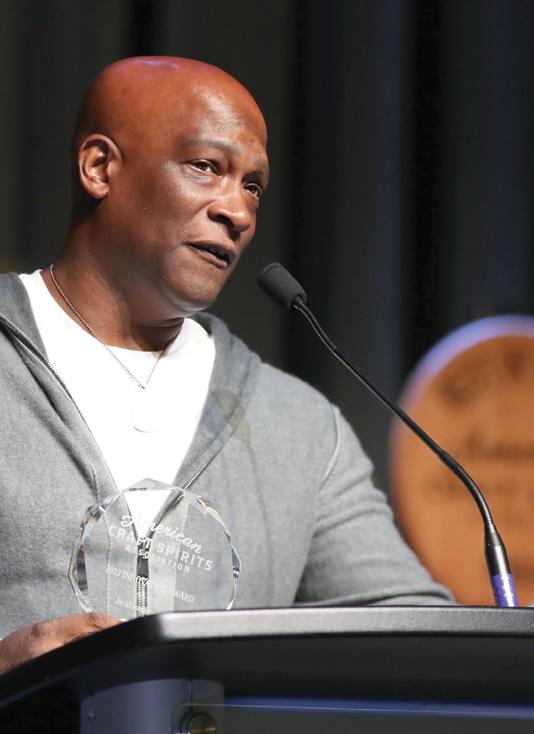

During the event, ACSA proudly bestowed the evening’s ultimate honor, the Best in Show award, to Starlight Winery & Distillery of Borden, Indiana, for its Carl T. Single Barrel Bourbon Whiskey.
This year, entries were submitted from 37 states and Washington, D.C., in seven main categories: brandy, distilled specialty spirits, gin, ready to drink (RTD), rum, vodka and grain spirits, and whiskey. In addition to Best in Show, Best of Class and Innovation distinctions, the judging panel awarded 15 gold, 104 silver and 159 bronze medals.
The 2022 Best of Class distinctions, the highest honor in each of the seven judging categories, were awarded to a mix of both established, award-winning distilleries and younger newcomers. Winning distilleries also receive hand-carved barrel heads courtesy of Thousand Oaks Barrel Co.
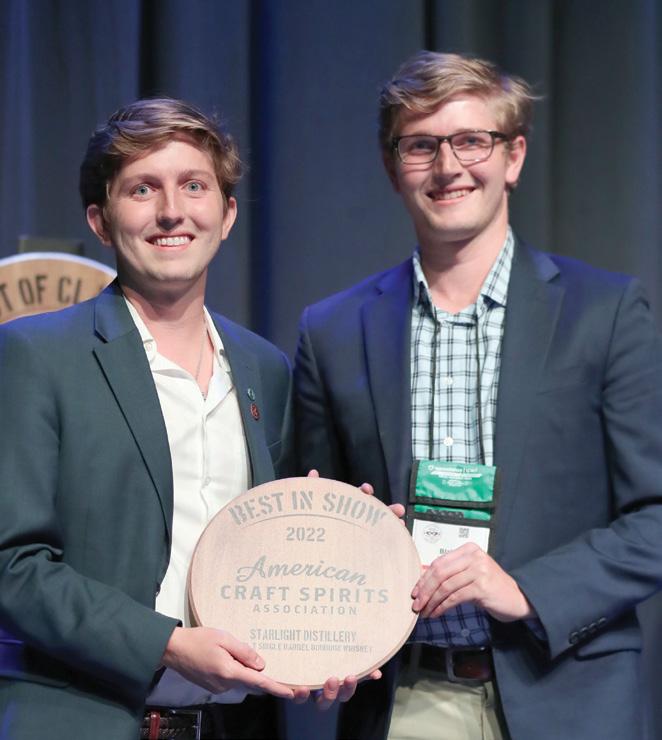
Best of Class winners in each category included:
Brandy: Wigle Peach Brandy, Wigle Whiskey (PA)
Distilled Specialty Spirits: Wigle Amaro Vermut, Wigle Whiskey (PA)
ACSA Members Support Proposed Addition of American Single Malt Whisky to TTB’s Standards of Identity
In response to a call for comments from TTB on its proposal to add American Single Malt Whisky to the standards of identity for distilled spirits, ACSA CEO Margie A.S. Lehrman in September wrote that the association overwhelmingly supports the proposal. “We view this effort to add American Single Malt to the Standards of Identity as helpful to the community of craft spirits producers,” Lehrman wrote. “We recognize and fully support the efforts of the American Single Malt Whiskey Commission to listen and learn from its members, many of whom are also members of ACSA, to aid in shaping this added Standard of Identity. When surveyed, our members also overwhelmingly supported the addition of American Single Malt, as proposed by TTB, to the Standards of Identity.”
Gin: Jaggerbush, Lawrenceville Distilling Co. (PA)
RTD: Astoria Mary, Pilot House Distilling (OR)
Rum: White Rum, Oxbow Rum Distillery (LA)
Vodka and Grain Spirits: Sweet Blend Vodka, Delta Dirt Distillery (AR)
Whiskey: Carl T. Single Barrel Bourbon Whiskey, Starlight Distillery (IN)
Innovation: Sorel, JackfromBrooklyn (NY)
The complete list of winners is available on the ACSA website. ACSA would like to thank our judging competition sponsor Glencairn; host site High Wire Distilling Co. of Charleston, South Carolina; and our panel of 30 judges along with judging co-chairs Colton Weinstein and Jeff Wuslich.
ACSA Hosts Fire Prevention and Protection Course

On Aug. 31, ACSA hosted a fire prevention and protection class at Watershed Distillery in Columbus, Ohio. The class was funded by the United States Department of Labor Occupational Safety and Health Administration’s (OSHA) Susan Harwood Training Grant program, which provides training and education programs for employers and workers on the recognition, avoidance and prevention of safety and health hazards in their workplaces.
The seven-hour class was developed and presented by Industrial Safety & Training Services. Topics covered in the class included combustible dust; housekeeping; hot work operations; flammable liquids and gasses; flammable liquid and chemical storage; equipment and machinery; hazard recognition and identification; electrical hazards; OSHA, NEC and NFPA guidelines; and emergency action plans, among other safety topics. An ad-hoc committee including Colton Weinstein, Ann Kanof, Matt Stinchfield and Kirstin Brooks helped develop the course.
Attendees came from Ohio, Michigan, Tennessee, Kentucky, Pennsylvania, New York and Washington, D.C. All materials developed through the grant will be available for free on the OSHA website as well as ACSA’s website. This was ACSA’s pilot year in the grant, and ACSA hopes to expand the grant program over additional grant cycles to further develop the course and reach more distilleries across the United States.
72 | FEBRUARY 2023 CRAFTSPIRITSMAG.COM
Jackie Summers of Sorel
Harvey and Thomas Williams of Delta Dirt Distillery
Christian and Blake Huber of Starlight Distillery
STEPUP Foundation Announces Second Class
In November, ACSA and The Spirits Training Entrepreneurship Program for Underrepresented Professionals (STEPUP Foundation) announced the second class of interns, mentors and participating distilleries, along with several new funding partners for 2023.
STEPUP is a diversity initiative that aims to provide underserved and underrepresented individuals with training, encouragement, and opportunities to enter the craft spirits community through a comprehensive year-long, immersive internship program. The inaugural class, including Erin Lee and Yakntoro “Yaki” Udoumoh, completed their internship in 2022. Now in its second year, STEPUP will continue to engage diverse applicants and help those of different races, color, national origins, abilities, genders and sexual orientations to acquire the skills and experience they need to succeed in the industry.
The STEPUP internship program is primarily funded through Cornerstone partners and other major donors. As the program gears up for its second year, the organization welcomes a host of generous new donations from partners across all tiers of the industry and distillers small and large. Infinium Spirits has signed on as a Keystone donor and committed to $300,000 over three years, marking STEPUP’s second Keystone donor behind Beam Suntory, which joined earlier in 2022 and donated $100,000. St. George Spirits has joined as a Foundation level sponsor with a $40,000 pledge, and Fast Penny Spirits and Sagamore Spirit Distillery have joined at the Bricklayers level. These new contributors join STEPUP’s existing donors like Diageo North America, which serves as a Cornerstone Partner and has made a $1.2 million commitment over three years. To learn more about our tiers of support, visit stepupinternship.org/donors
2023 STEPUP Interns
Amy Salter has been in the restaurant industry since graduating from Le Cordon Bleu in 2007. Her experience includes everything from managing a pizzeria owned and operated by people with hearing loss to consulting with several restaurants and breweries.
A Cicerone Certified Beer Server and Certified Tourism Ambassador, Ashley Grayson has been in the hospitality business for 15 years. The Ohio-based based bartender’s affinity for designing and developing menus and signature cocktails led her to STEPUP.
2023 STEPUP Mentors
Darci Stuhlman is passionate about diversity, empowerment and inclusion, which is her focus in her current role at TKT & Associates—a leading provider of diversity management, innovative workforce and outsourcing solutions.
Nicole Shriner brings a unique combination of education and hands-on industry experience with a Doctor of Philosophy in Chemical Engineering and track record of working with brewery and distillery producers. As a current owner of consulting company Effervescent Solutions in Lansing, Michigan, she continues to focus on fostering quality and growth in the fermented beverage industry.
2023 Participating Distilleries
Sagamore Spirit Distillery (Baltimore)
Serving as the program’s host distillery for 2023, Sagamore Spirit is driven to craft the world’s best rye whiskey. As a champion of American rye whiskey and inspired by Maryland rye, its mission is to establish Sagamore Spirit as the premier distiller of modern American spirits.
New Riff Distilling (Newport, Kentucky)
Located a stone’s throw from downtown Cincinnati in Newport, Kentucky, New Riff Distilling was founded in 2014. The independent and family-owned distillery is “A New Riff On An Old Tradition.” Focused on bourbon and rye whiskey, New Riff balances traditions like sour-mash Kentucky whiskey-making with inventive riffs on process, design and recipes, including one of the most robust single barrel programs in the industry.
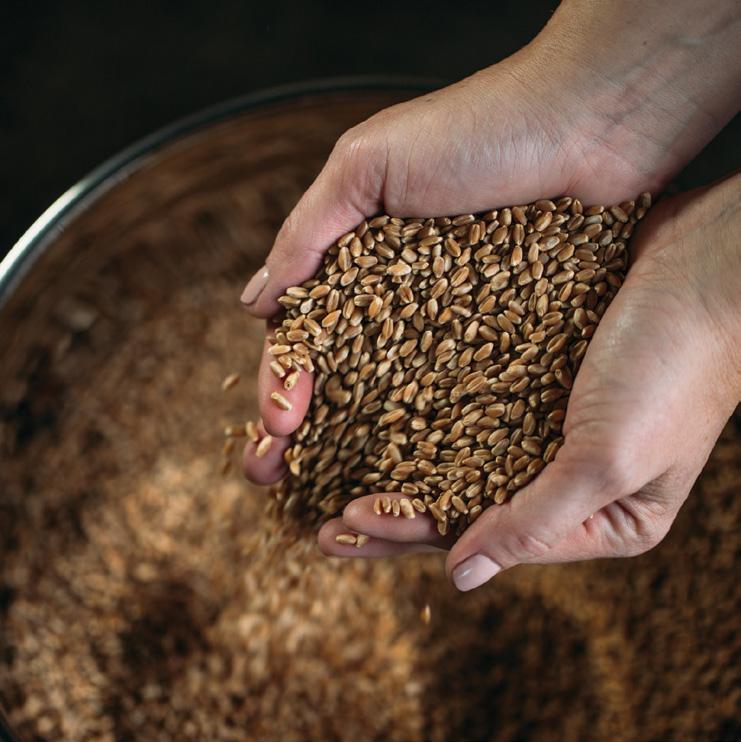
Glacier Distilling Co. (Coram, Montana)
Glacier Distilling Co. was conceived during a snowstorm. In the Montana ethos of preparedness and self-reliance in the winter of 2009-2010, a group of friends wondered where they would get their whiskey come Armageddon. As a result, one of them started a distillery. Glacier Distilling Co. first released an un-aged rye whiskey that could be produced and sold in a matter of months, instead of years.
2023 Participating Distributor
Republic National Distributing Co.
As a top wine and spirits distributor in the nation, Republic National Distributing Co.’s (RNDC) national reach helps suppliers by building strategic relationships with on- and off-premise customers to elevate its brands and reach its target consumers. RNDC currently operates in 38 states and the District of Columbia.
To learn more about STEPUP and its leadership, visit stepupinternship.org stepupinternship.org
CRAFTSPIRITSMAG.COM FEBRUARY 2023 | 73
@stepupinterns @stepupinternship STEPUPinternship stepup-foundation
ACSA Returns to D.C. with DISCUS in Joint Virtual Public Policy Conference
More than 200 distillers from nearly every U.S. state connected virtually with federal lawmakers and regulators in September during the spirits industry’s annual Public Policy Conference, jointly hosted by ACSA and the Distilled Spirits Council of the United States (DISCUS). Throughout the course of more than 120 virtual meetings with lawmakers, craft spirits producers addressed issues important to the distilled spirits sector, including two major priorities:
The Distilled Spirits Industry’s Positive Economic Impact
The more than 2,600 distilleries nationwide contribute to the vibrancy of the manufacturing, hospitality, tourism and agriculture industries. The economic activities of exporting, importing, and sale and distribution within the U.S. support about 1.7 million jobs. U.S. distilled spirits exports alone totaled $1.6 billion last year and distillers paid nearly $6.9 billion in FET.
The United States Postal Service (USPS) Shipping Equity Act (H.R. 3287/S. 1663)
If passed, the bill would enable the USPS to ship beverage alcohol products where direct-to-consumer (DtC) shipping is permissible by law. DtC shipping serves as an important complement to the traditional three-tier system of beverage alcohol distribution and providing the DtC option through the Postal Service, where allowed, supports consumer choice and small distilleries. The bill also provides for regulations that will allow USPS to safely deliver beverage alcohol to adult consumers with the appropriate ID checks and verifications in place to prevent
New Faces at ACSA
Throughout 2022, ACSA made several strategic hires, helping to lead the association through its next decade of growth and service to the country’s craft spirits community.

Michael Walker was named state policy advisor. In his role, Walker identifies state legislative issues and liaises with state distillery guilds to develop legislative strategies. Walker joined ACSA’s legislative team with nearly 25 years of experience at the intersection of the public and private sectors, including more than 11 years serving in the legislative and executive branches of government. Most recently, he served for well over a decade with Constellation Brands as VP of its external affairs/public affairs department.
underage access. Additionally, enacting the USPS Shipping Equity Act could generate an estimated $190 million annually for the USPS.
Before the meetings with U.S. Senators and Representatives commenced, two of the spirits industry’s allies on Capitol Hill, Rep. Dan Newhouse (R-WA) and Sen. Gary Peters (D-MI, reaffirmed their support in separate pre-recorded messages. The group also had the opportunity to get some clarity on the regulatory side of the federal government, thanks to a panel of officials from the U.S. Alcohol and Tobacco Tax and Trade Bureau (TTB). In a session moderated by Alex Castle, master distiller and senior vice president of Old Dominick Distillery (Memphis, Tennessee), members of TTB’s leadership team reiterated their commitment to enhancing the “TTB customer experience,” noting that TTB is targeting a 70% reduction in filing burdens and redundancies. TTB officials also touted improvements in processing turnaround times.
Shannon Mustipher, author of “Tiki: Modern Tropical Cocktails,” winner of the Tales of the Cocktail Pioneer Award and inductee into the Dame Hall of Fame, led the evening’s toast.
Additionally, ACSA and DISCUS presented World Central Kitchen (WCK), founded in 2010 by chef José Andrés, with the inaugural Humanitarian Spirit Award for its work on the frontlines providing meals in response to humanitarian, climate and community crises. Karen Peraza, WCK’s manager of corporate and foundation relations, accepted on behalf of the organization.
The Public Policy Conference would not have been successful without the support of sponsors Arryved, Five x 5 Solutions, Wine & Spirits Shippers Association Inc. and Thoroughbred Spirits Group.
Board of Directors Refreshes Strategic Plan
Additionally, Kenneth Brady was named director of membership and marketing and is responsible for nurturing and growing ACSA’s community of members and sponsors while also developing and executing a marketing vision for the association. Brady joined ACSA at the same time as Albab Melaku, who wears many hats as ACSA’s administrative assistant. Melaku comes to ACSA from the real estate industry.
Stephanie Sadri also joined the ACSA team full-time as director of meetings and events. She is a familiar face within the craft spirits community, as Sadri has managed the logistics of ACSA’s events—including the annual Distillers’ Convention and Vendor Trade Show and Public Policy Conference—for several years as an employee of global meeting planning company Helms Briscoe.
We also welcomed Annette Schnur as ACSA’s media sales consultant. Schnur brings decades of experience in media sales and is responsible for selling advertising for CRAFT SPIRITS magazine and its associated platforms.
In bittersweet staffing news, two long-time ACSA team members departed in the past year. Operations administrator Teresa McDaniel retired in 2022 after seven years with the association, and Carason Lehmann, who served for more than six years with the organization, departed in October to enter a new chapter in her career.
In September, the ACSA Board of Directors refreshed and voted on its strategic plan. The 2022 strategic plan, revised from its former version in 2020, is the association’s latest guiding document and directive to ACSA Board of Directors, committees and staff. The purpose of the strategic plan is to set a course for the association as a whole, but also to make the staff and committees more nimble.
Our thoughtful, visionary board arrived at a consensus as to ACSA’s priorities, namely:
1: Build and Support Membership
2: Increase Diversity
3: Improve Market Landscape
4: Develop Organizational Sustainability
Our resources will be devoted to measuring our success across those major areas.
74 | FEBRUARY 2023 CRAFTSPIRITSMAG.COM
Michael Walker
ACSA Supports TTB’s Proposed Rule to Eliminate Existing Standards of Fill
In a July letter to the U.S. Alcohol and Tobacco Tax and Trade Bureau (TTB), ACSA expressed support for TTB to eliminate the existing standards of fill for wine and distilled spirits, except to maintain in the regulations a minimum standard of 50 milliliters for both wine and distilled spirits and a maximum standard of fill of 3.785 liters for distilled spirits. In a poll of our members, nearly 80% of respondents were in favor eliminating the existing standards of fill. TTB issued a notice of proposed rulemaking concerning the standards of fill in late May, with comments due in July.
Continued Support on Hand Sanitizer
At the end of 2021 and in early 2022, ACSA was offering distillers instruction on how to close the books on hand sanitizer ahead of a U.S. Food and Drug Administration (FDA) deadline to cease production and distribution of hand sanitizer.
Despite delisting products, deregistering companies and deactivating labeler codes, in the summer some distilleries received what appeared to be audits from the FDA regarding formulation. Through letters and meetings with the FDA, ACSA urged the federal government to cease and desist any audits of craft distillers that produced hand sanitizer solely during the early stages of the pandemic due to a nationwide shortage. In September, the FDA confirmed that these letters are not audits but simply “informational requests,” which they continued to send throughout the year.
If you receive a letter from the FDA about hand sanitizer you produced in the early stages of the pandemic, please let us know. We’re here to help and walk you through the steps we would advise you to take. You’ve got our support and you’re not alone so please contact sanitizer@americancraftspirits.org. Our team will quickly respond to your email.
U.S. & U.K. Reach Deal to End Tariffs on Whiskey

In March, the Toasts Not Tariffs Coalition, which includes ACSA, raised a glass to the Biden Administration for negotiating a successful end to the harmful tariffs impacting the entire U.S. alcohol sector. U.S. Secretary of Commerce Gina Raimondo and United Kingdom Secretary of State for International Trade Anne-Marie Trevelyan announced the agreement to remove the retaliatory tariffs on American whiskeys during a meeting at the U.S./U.K. Dialogue on the Future of Atlantic Trade, held in Baltimore. Since the imposition of the 25% retaliatory tariff on American whiskeys in June 2018, exports to the U.K., the U.S. spirits industry’s fourth-largest market, had declined by 42%, from $150 million to $88 million (2018-2021). With the removal of these tariffs on American whiskey, no more retaliatory tariffs remain on U.S., U.K. and EU distilled spirits and wines.
Craft Spirits Classroom: Quenching Your Thirst for Knowledge
In collaboration with the Education and Safety Committees, ACSA continued to build upon our foundation of educational programming by hosting 10 webinars in 2022. Some of this year’s most popular webinars included:

- ABCs of RTD QA: Creating Shelf-Stable Canned and Bottled Cocktails with Lee Egbert (Dashfire), Larry Cary (Pilot House Distilling) and Kris Bohm (Distillery Now Consulting)
- U.S. Rum: Getting Candid About Cane with Jordan Cotton (Cotton and Reed), Tim Russell (Maggie’s Farm Rum) and Matt Street (Oxbow Rum Distillery)
- Starting Distillery Quality Programs with KassaDee Herring (Bently Heritage Estate Distillery)
CRAFTSPIRITSMAG.COM FEBRUARY 2023 | 75
CRAFT SPIRITS Magazine Enters Fourth Year
The November/December 2022 issue of CRAFT SPIRITS magazine marked a milestone for ACSA’s official publication. It was the 20th edition of the digital magazine, which has been published bi-monthly since August 2019. The issue’s cover story, “Navigating the ‘Non-Premise,’” explored the growth of e-commerce and what it means for the future of spirits retail. Other top features from the year included the following:
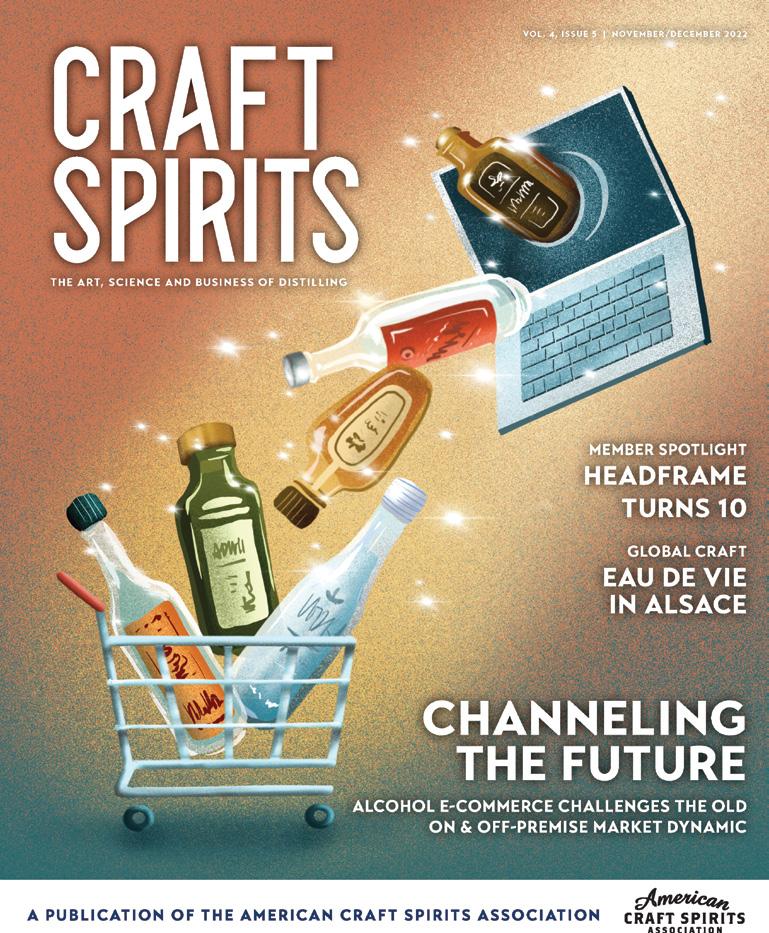
- September/October: “Gin’s Next Chapter,” detailing the category’s biggest opportunities and obstacles
- July/August: “A Gathering Opportunity,” exploring the state of the on-premise
- May/June: “Ready to Disrupt,” on the skyrocketing RTD category
- March/April: “Seeding a Revival,” a deep dive into the experimental spirit of heirloom rye whiskey producers
- January/February: “They’ve Got the Look,” spotlighting all of the medalists in the 2nd Annual Craft Spirits Packaging Awards
Speaking of the Craft Spirits Packaging Awards, we presented the medals in-person for the first time at ACSA’s 8th Annual Distillers’ Convention and Vendor Trade Show in Louisville, Kentucky in December 2021—ACSA’s first in-person convention in nearly three years. Judging for the 3rd Annual Craft Spirits Packaging Awards took place in November 2022, with our independent panel of judges evaluating all entries submitted between August and October. Medalists in the 3rd annual competition, announced at ACSA’s 10th Annual Distillers’ Convention and Vendor Trade Show in Portland, Oregon, will be showcased in the March/April 2023 issue of CRAFT SPIRITS
ACSA Joins Amicus Curiae Briefs
In 2022, ACSA joined other trade groups in expressing industry views through amicus curiae briefs. In September, ACSA joined as amicus curiae in support of the petitioner in “Jack Daniel’s Properties, Inc. v. VIP Products LLC.” The central issue on petition to the United States Supreme Court is a trademark one, specifically asking the Court to determine whether a “humorous” use of someone else’s trademark on a commercial product is subject to a “likelihood-of-confusion” evaluation or rather, should it receive First Amendment protection from a trademark-infringement claim?
magazine.
On the audio front, the Craft Spirits Podcast finished its second successful year with its 29th episode in December.
As the industry has fully returned to in-person events, the CRAFT SPIRITS magazine team has been getting out in the world, leading a conference presentation on craft spirits packaging at Luxe Pack New York in June and speaking on a global craft spirits-themed panel at Bar Convent Berlin in October. All current and back issues of CRAFT SPIRITS magazine are available digitally at CraftSpiritsMag.com/archives.
VIP Products, LLC manufactures and sells a Bad Spaniel’s dog toy which looks surprisingly like a bottle of Jack Daniel’s. The Ninth Circuit Court of Appeals tossed out a lower court ruling, holding that “humor to an infringing consumer good entitles that good to broad protections from infringement liability and renders the good ‘noncommercial’ for trademark dilution purposes.” The ruling both conflicts with other circuits’ trademark jurisprudence and the Court’s own intellectual property rulings. The case has broad implications of how our community of trademarks can be misused by others. And, if the appeals court decision stands, it substantially erodes our spirits industry’s ability to self-regulate. Specifically, it diminishes our ability to make sure that all advertising that uses trademarks associated with our brands is done responsibly, without promoting harm to public health or safety.
The petition for a writ of certiorari was granted in late November with the additional briefs due on the merits in January and February 2023.
And in December, ACSA joined another amicus curiae brief in the United States Court of Appeals for the Eight Circuit in the matter of “Major Brands, Inc. v. Mast-Jagermeister US, LLC and Southern Glazer’s Wine & Spirits of Missouri, LLC.” In that appeal, the industry groups joined to support an appeal from a district court jury decision which ultimately extended Missouri’s franchise law, finding a franchise agreement in a case where there was no written contract between the producer and the distributor, the manufacturer had no control over the distributor, and the distributor was non-exclusive. This monopoly/ franchise protection case is important because if this holding remains, it will set a dangerous precedent in other states to extend monopoly protection laws.

CRAFTSPIRITSMAG.COM


THERE IS STRENGTH IN MEMBERS The American Craft Spirits Association (ACSA) is the only national association of craft distillers created and governed by craft distillers. We Are Craft! Our mission is to elevate and advocate for the community of craft spirits producers. WHY JOIN? • Build long-term relationships and enhance industry connections • Help cultivate a competitive landscape for craft distillers • Learn from industry thought leaders • Increase market access TAKE ADVANTAGE OF MEMBERSHIP ONLY OPPORTUNITIES BY JOINING TODAY! A: P.O. Box 470, Oakton, VA, 22124 E: membership@americancraftspirits.org W: americancraftspirits.org
Thank You to Our Sponsors!
We would like to express our sincere gratitude to all of our donors and sponsors, whose generous support enables us to move the craft spirits industry forward.
ABE Equipment
Amoretti
The Barrel Mill
Berlin Packaging
Briess Malt & Ingredients Co.
BSG Distilling
CIE
Fermentis

FIVE x 5 Solutions
Glencairn Crystal
Harvest Hosts
Independent Stave Co.
ISTS
Kason Corporation
Lallemand Biofuels & Distilled Spirits
Malkin Law
MGP
Moonshine University
Park Street
Saverglass
Soderstrom Architects
Sovos ShipCompliant
Specific Mechanical Systems
Steric Systems
Supercap
Tapi
Thousand Oaks Barrel Co.
Ultra Pure
Whalen Insurance
Wine & Spirits Wholesalers of America
WV Great Barrel Co.
A Toast to 2023
As we celebrate our 10th anniversary in 2023, we are eager to continue our mission of elevating and advocating for the community of craft spirits producers. Here’s to a safe, successful and spirited 2023!
americancraftspirits.org
@CraftSpiritsUS
@CraftSpiritsUS
AmericanCraftSpiritsAssociation
american-craft-spirits-association-acsa
AmericanCraftSpiritsAssociation

78 | FEBRUARY 2023 CRAFTSPIRITSMAG.COM
“THE ACSA GUIDE TO STARTING AND OPERATING A DISTILLERY” E-BOOK
Coming this spring, ACSA is launching “The ACSA Guide to Starting and Operating a Distillery.” The peer-reviewed guide is a comprehensive compendium of expert insights detailing all of the tools and techniques that new distilleries need to get their businesses up and running and help ensure a prosperous future.
Topics include:
• The Fundamentals of Distilling
• Funding a Start-Up Distillery and Other Key Financial Considerations
• Crafting a Business Plan

• Distillery Location Selection
• Distillery Architecture & Construction
• Distribution Contracts
• Self-Distribution
• Tasting Room Management
• Developing a Brand
• Sales, Marketing & Social Media
• Working with TTB
• State-by-State Compliance
• Distillery Safety Packaging And much more!
Visit americancraftspirits.org to pre-order your copy today!
NOW AVAILABLE
PRE-ORDER:
FOR
SUPPLIER SHOWCASE
A roundup of products and services from some notable suppliers and agencies in the world of craft distilling
Briess Malt & Ingredients Co.

The best handcrafted spirits start with the finest handcrafted ingredients. Briess offers high-quality, consistent Whiskey Malt you can count on batch after batch. Its Whiskey Malt is a non-GN producer, assuring low levels of ethyl carbamate. Sensory evaluation will bring out sweet and bready character, with notes of honey. Available as whole kernel or flour. Check out their full line of handcrafted distilling ingredients at brewingwithbriess.com/ craft-distilling.
site. The Whiskies page offers multiple ways to easily find and purchase a whiskey. Each whiskey has its own page and includes downloadable PDFs for the Smooth Ambler sales team, consumers and retailers. The sleek new interface simplifies the path to purchase, marries its merch store with the main site, and provides differentiation between each whiskey family.

The company’s capabilities include brand strategy, story development, naming, logos, packaging, custom bottles, print and digital. cfnapa.com @cfnapa
Creature Theory
Creature Theory is a branding and design agency built to show brave brands a way forward.
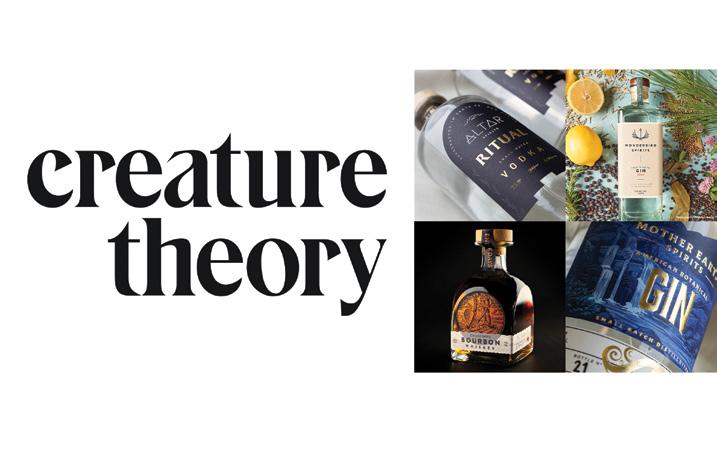
Humans are intuitive, visual creatures. Creature Theory looks at everything through the lens of what makes a brand authentic and emotive. For independent companies and Fortune 500 enterprises, our identities, visual systems and brand narratives establish a powerful ownership space and leadership presence in the marketplace.
Endless West
Endless West offers bulk spirits by the tote or tanker in the style of tequila, whiskey, rum, brandy, gin, vodka and more. Its wide range of ready-to-go brands and products will help you fill portfolio gaps or respond to market demand. The company creates bespoke solutions for private label products and its cutting-edge technology lets the team be fast, nimble and wildly cost-effective. Recently, Endless West assisted a 50,000-case whiskey brand with supply and consistency issues. The producer was blending multiple inputs for its finished product. In four months, Endless West flavor-matched the finished profile and Endless West’s product goes straight into the bottles, saving blending time and tank space for other projects. As a result, the cost of goods dropped by 42% and the company has a guaranteed and consistent supply that’s ready on its timeline. Go beyond the boundaries. endlesswest.com

CF Napa Brand Design
Smooth Ambler came to CF Napa Brand Design to revamp the website for its family of whiskies. Most of its website traffic is from mobile devices, so it was imperative that the site was user-friendly on smaller screen sizes. The new site needed to move toward a minimalist look.
CF Napa took a mobilefirst approach to the redesign, utilizing a simplified, collapsible menu.
The navigation was mirrored on the home page, giving the users many ways to explore the
Creature Theory crafts dynamic, storydriven brand strategies, visual identities and package designs. The agency is tailored for ambitious marketers who need creative solutions with a minimum of fanfare, complexity or ego. They’re your special ops team, delivering world-class brand materials that move products off shelves as fast as they’re stocked.
They love to partner with founders, brand managers and marketers that need creative, story-driven branding and design solutions that turn heads and stir souls.
Got a brand challenge or opportunity? Hit them up at hello@creaturetheory.com
MGP
MGP is a leading producer of premium distilled spirits. They’re passionate makers of fine bourbon and rye whiskeys, gins and vodkas, which are carefully crafted through a combination of art and science backed by more than 170 years of experience.
They work in partnership with their customers to create premium spirits for a mixed base, including major national and international brands, as well as craft distillers.
Among their key capabilities is expertise in helping customers create proprietary
80 | FEBRUARY 2023 CRAFTSPIRITSMAG.COM
SPONSORED CONTENT
customized whiskey and bourbon formulations, as well as custom gin formulations. They have a highly experienced and knowledgeable staff who take great pride in accurately and consistently meeting customers’ precise formulation requirements and producing exceptional quality, effectively partnering with customers in developing custom formulations unique to their individual brands. Additionally, their inventory of aged whiskeys is deep and variable, offering a broad spectrum to build upon for any brand.
Visit mgpingredients.com/distilled-spirits for more.



Mile Marker and Dashfire
Mile Marker and Dashfire specialize in canning and packing in small packages. They have been a leader in the 100-mL canned cocktail and spirit co-packing space for almost four years and deliver stress-free high quality packaging standards. With experience from their own investments in the beverage world as a micro distillery, they know what you need. They know canning, co-packing, and packaging design and will help you take your product development and canning aspirations to the next level.
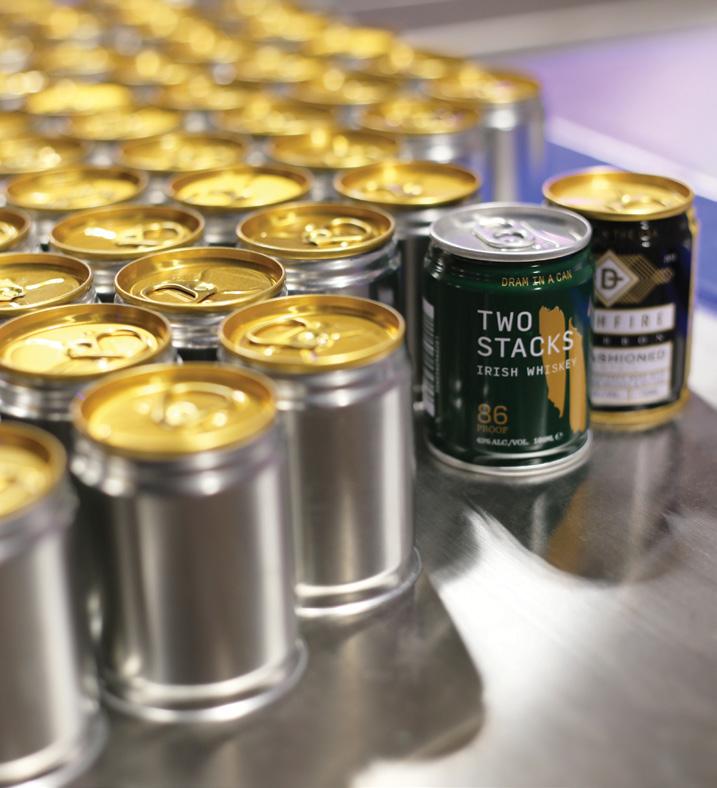
Phoenix Packaging
For more than 40 years, Phoenix Packaging has worked to realize each client’s unique vision to best represent its story through its unique branding imagery. They provide clients with options produced by hundreds of manufacturers throughout the world. The choices of materials range from glass, ceramic, plastics, paper, aluminum and other metals. They help to coordinate everything from bottle design, manufacturing, decoration, value added enhancements and decorative presentation packaging through logistics to ensure timely deliveries. Their goal is to produce your vision and provide you with packaging that helps you achieve success.
Thoroughbred Spirits Group
Thoroughbred is your trusted advisor in the spirits industry. For more than 10 years, Thoroughbred has guided entrepreneurs to success with the experience and expertise needed at every step. Thoroughbred is a full-service spirits consulting and design firm dedicated entirely to helping new and established spirit companies flourish. The company works hand-in-hand with entrepreneurs and leadership teams in building distilleries and brands entirely from the ground up and revamp established companies for growth or acquisition. For all needs, from the go/no-go decision process, strategic planning, packaging design, distillery engineering, and master distiller services, to route-to-market strategy and valuation or investment presentations, Thoroughbred can help. Meet your partner in the spirits industry. tbspirits.com
CRAFTSPIRITSMAG.COM FEBRUARY 2023 | 81
NEW RECYCLING LAW DRAWS MIXED REACTIONS
Colorado craft distillers see the need for more recycling but wonder if a new law that makes them pay is the best path forward.
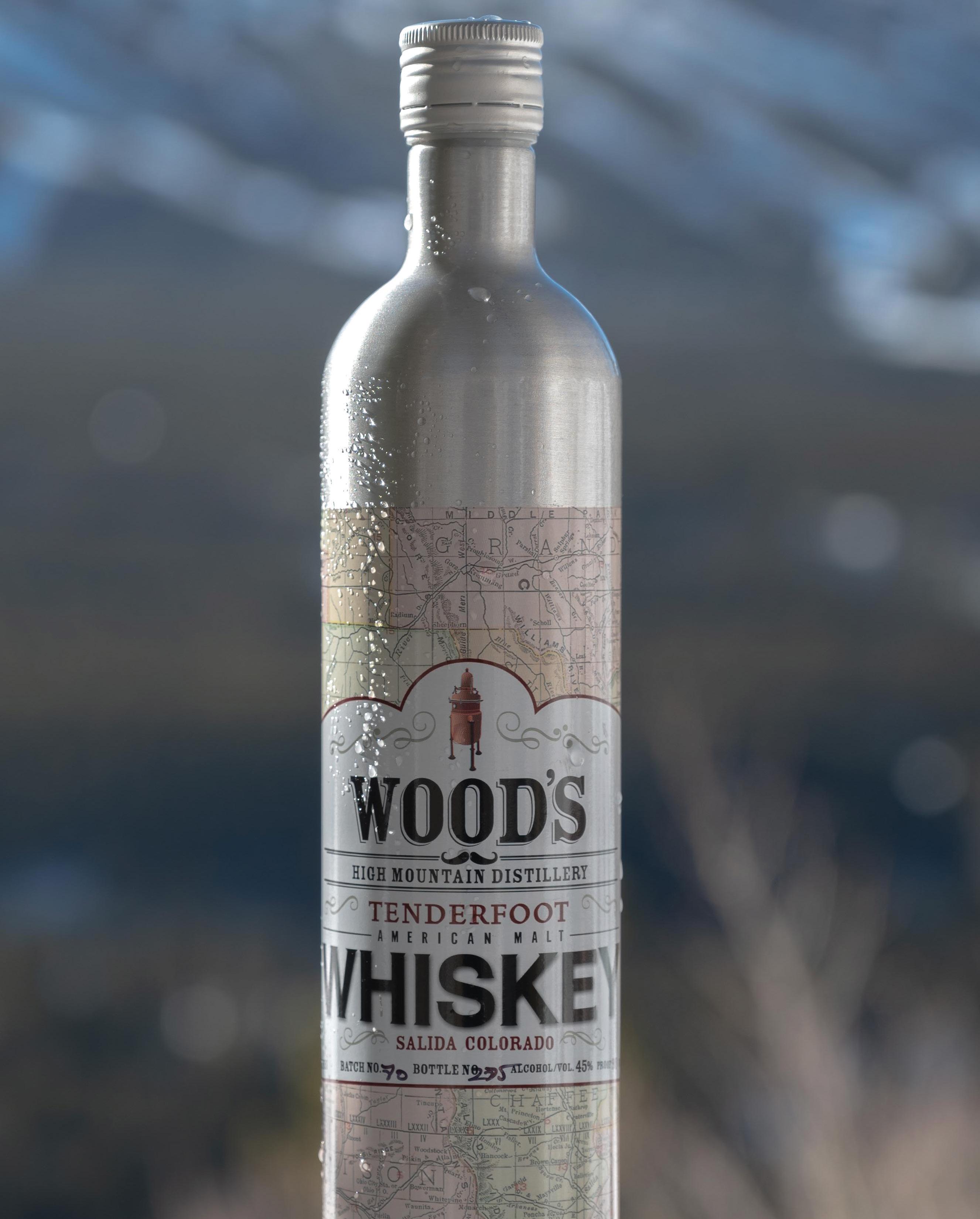 BY ANDREW KAPLAN
BY ANDREW KAPLAN
packaging
Colorado craft distillers appear to have a love-hate relationship with their state’s new extended producer responsibility (EPR) recycling law.
The legislation, the Producer Responsibility Program for Statewide Recycling Act, was passed in May and shifts the cost of funding recycling programs in the state to manufacturers, including possibly craft spirits companies doing business in Colorado. Similar laws have already been passed in Maine, Oregon and California, and 16 other states looked at such bills last year, with as many as 10 expected to take them up in 2023. There have also been some conversations about a federal law.
Proponents see it as a way to boost very low recycling rates in Colorado, which stood at just 15% in 2020, less than half the national average. “These EPR laws are just saying if you’re costing more to society you’ll have to pay more into the system,” says Scott Cassel, CEO of the Product Stewardship Institute, a Boston-based nonprofit that advocates for the responsible management of products from design to end of life. “So, it’s providing an incentive to do the right thing.”

Some craft distillers, however, have mixed feelings. While they support the idea of raising recycling rates—especially with shortages of aluminum and glass over the past several years—some object to the idea of the cost for such a program being forced upon them.
“The alcohol beverage industry is more proactive in sustainability arguably than any other industry in Colorado,” says Stephen Gould, founder and master distiller of Golden Moon Distillery in Golden. He voiced the industry’s concerns to legislators during the crafting of the law. “The intent is this is

supposed to spur recycling. But there is no map to do that. There’s only a map to create a new organization that is funded by industry to assess fines and taxes on industry.”
Gould, who is also a board member for government affairs for the Colorado Distillers Guild, says one saving grace is that they were able to get payments from distillers to kick in only for companies with annual gross revenues over $5 million (not including onpremise alcohol sales). “Most of us are not at the $5 million level at this point here in Colorado,” he says.
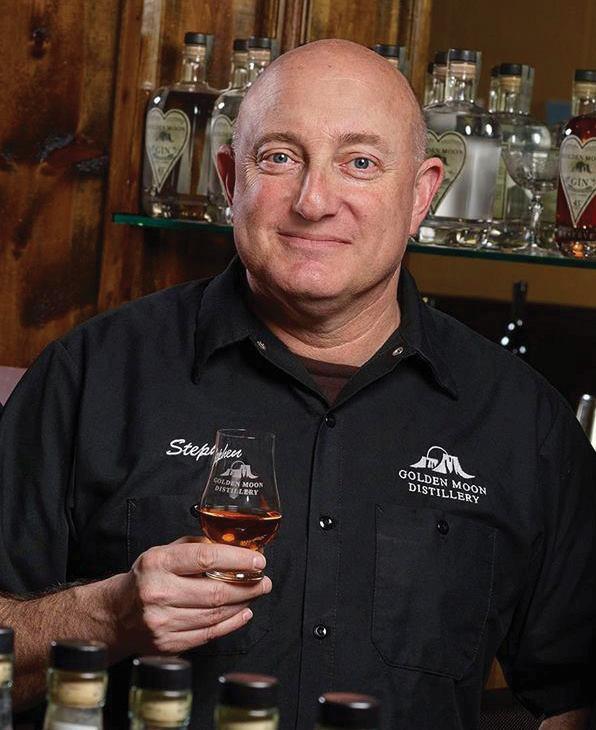
The American Craft Spirits Association is tracking these EPR proposals and will be formulating a position on these EPR laws as state legislatures begin their sessions starting in January 2023, according to Michael Walker, who has been recently retained by the organization as state policy advisor. “We certainly have seen an uptick in the number of EPR proposals over the last few years so we will be digging deeper to figure out where we stand on it,” he says.
Walker points out some states that have proposed new EPR laws provide exemptions for products covered in the state’s bottle deposit law.
“For example, California passed an EPR law last year, but made exceptions for those products within the beverage container recycling program,” he says. “Analyzing the benefits and costs associated with a particular state’s bottle deposit program versus uncertainty around how these EPR laws could impact craft distillers will be a topic of conversation moving forward.”
With finer details still needing to be ironed out over the next couple of years, the new Colorado law as of now requires companies
CRAFTSPIRITSMAG.COM
“Will it work in the long run and be beneficial or detrimental to business, particularly small distilleries? The devil’s going to be in the details there.”
—P.T. Wood of Wood’s High Mountain Distillery on a new recycling law in Colorado
Stephen Gould
P.T. Wood
OTHER DEVELOPMENTS IN SUSTAINABLE PACKAGING
The long-term goal of Colorado’s EPR law is to create a more stable supply of packaging materials. That’s an important goal because craft distillers report that it is still very hard to find some greener packaging materials today due to the ongoing supply chain disruptions.
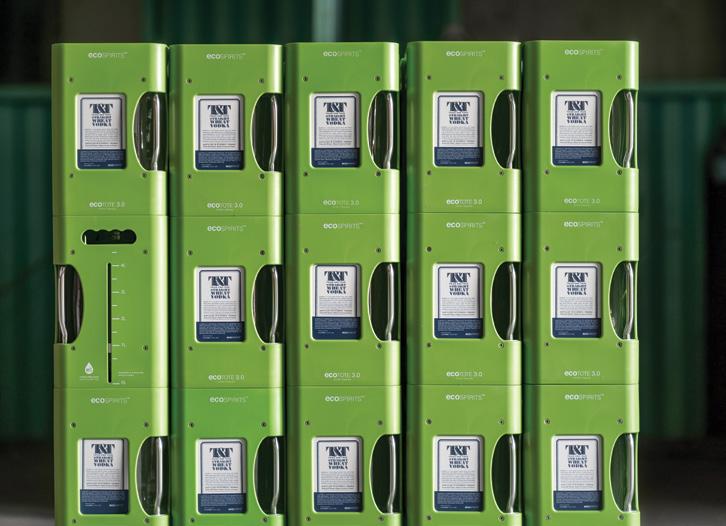
“During the last 18 months to two years, packaging in particular from the supply chain side has gotten very, very challenging,” says Nels Wroe of Dry Land Distillers. “We find ourselves scrambling just to find packaging that will even work.” One example, he says, is Dry Land has been using synthetic cork closures because it is unable to find a supply of the all-natural closures it prefers to use.
David Schuemann, owner and creative principal of CF Napa Brand Design, says despite such challenges, craft brands are finding ways to green their packaging. For example, he has noticed some shifting to direct-to-can printing instead of printing to plastic sleeves to cut down on waste. “There’s been a real consumer-driven pushback against the plastic,” he says. “We probably have seven can projects in-house right now, and not one of them is using a plastic sleeve. They’re either using a paper label or they’re direct printing. That’s a pretty dramatic shift, it’s almost a 180.”
Here are some other ways craft distillers and suppliers are striving to make their packaging more sustainable today despite the ongoing challenges:
DISTILLERS
Blackleaf Organic Vodka
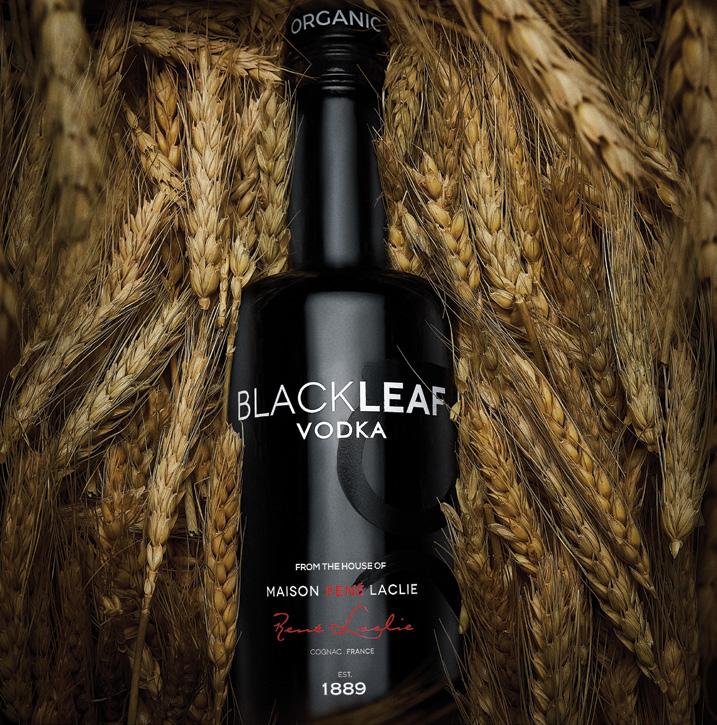
This Washington, D.C.-based brand is embracing sustainable packaging by using organic inks with no toxins to decorate its bottle and by utilizing a bottle with a thin base. The reduced use of glass and lighter weight of the bottle reduces the environmental impact as it is transported around
the world. “We intentionally created a brand that aims to be better for the environment but doesn’t compromise on aesthetics,” says Kevin Larkai, founder and CEO. “We also believe this to be a competitive advantage as consumers are increasingly more eco-conscious.”
Wood’s High Mountain Distillery
Wood’s is using aluminum “Backcountry Bottles” for its vodka and whiskey. Co-founder P.T. Wood describes the resealable bottle’s eco-advantages as: “lighter to ship, easier to move, the bottles themselves are a lot thinner so you can get more on a pallet. And aluminum is easily recyclable, so we think it’s a great thing.” Wood also says the bottles are a better fit than glass for the outdoors environment where the distillery is located.
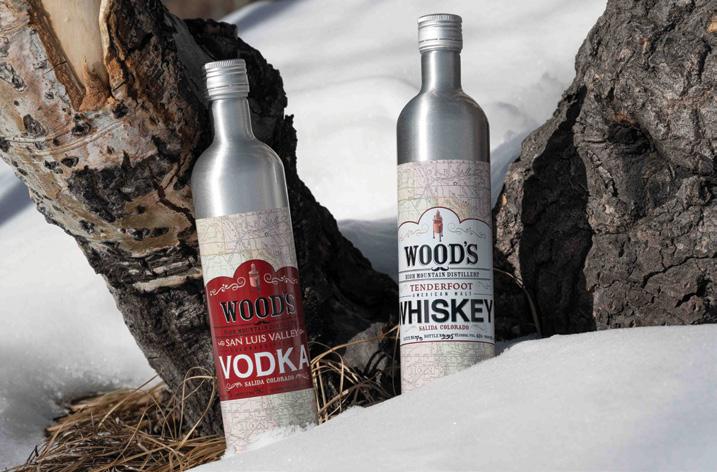
where they are processed into a fully reusable 4.5-liter ecoTOTE format for delivery to bars, restaurants and hotels. Once in the venue, spirits and wines are transferred from ecoTOTE to serving format using SmartPour technologies. Once empty, ecoTOTEs are returned to an ecoPLANT, where they are sanitized, refilled and sealed, in line with the standards of leading international distillers and wine makers. More than 1,000 leading bars, restaurants and retailers have adopted the technology, including Michelin-starred restaurants, World’s 50 Best and Asia’s 50 Best Bars and iconic hotels. Coverage is expected to grow to 25 countries worldwide by early 2023.
Montanya Distillers
Crested Butte-based Montanya Distillers prides itself on being eco-conscious with its packaging in a variety of ways, including not using any plastic in its packaging. “Many companies use a plastic shrink capsule over their cork to attach the cork to the glass bottle. It is not recyclable. We don’t do this,” says owner Karen Hoskin. “Instead, we use an over cork tab, some people call it a tax stamp, which affixes the cork to the glass without plastic.”
Montanya also pays careful attention to the paper it uses. Adds Hoskin: “The inserts into our cartons, namely shelf-talkers and any product promotions, are printed by Greenerprinter, which meets an incredibly high standard for sustainable printing process. I think it is often overlooked how much paper distillers and their marketers produce and hand out. It should be attended to with the same commitment.”
SUPPLIERS ecoSPIRITS
ecoSPIRITS’ patent-pending system of closed loop technologies allow spirits and wines to be transported in bulk to local markets,
Fishbone
The Fishbone Can Carrier is a completely plastic-free alternative to six-pack and fourpack plastic rings suitable for ready-to-drink products from craft distillers. The company says the carrier is biodegradable and uses only minimal resources while also providing billboarding space for a brand and marketing.
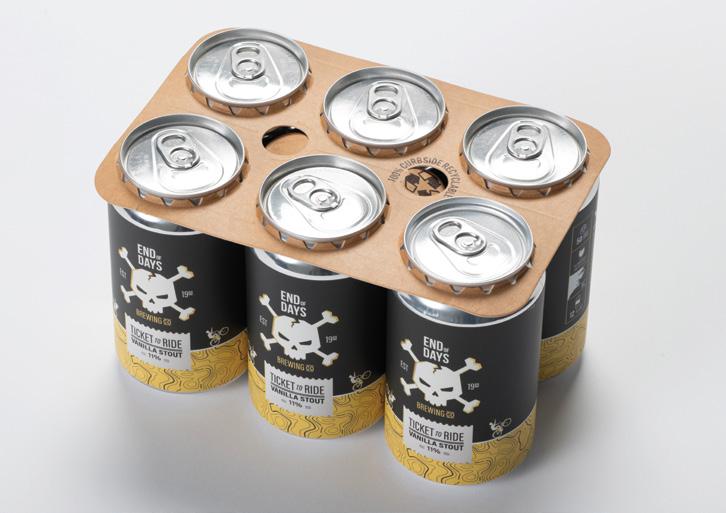
Tapi
Closure supplier Tapi has introduced NEOS technology which reduces a product’s carbon footprint by adopting polymers from a renewable source. Tapi is also continually researching methods and developing options that feed recycled raw materials into its standard product line, reducing the percentage of virgin material used and giving used raw materials a second life.
84 | FEBRUARY 2023 CRAFTSPIRITSMAG.COM
selling consumer-facing packaging and printed paper into the state to fund and manage a coordinated, statewide recycling system for all residents by joining a producer responsibility organization (PRO). The PRO is described as an independent nonprofit organization that will consult with an advisory board of recycling experts and is overseen by the Colorado Department of Public Health and Environment.
Producers will pay annual membership dues to the PRO based on the amount and type of packaging or paper used. Proponents say the dues are structured to incentivize companies to reduce unnecessary packaging and use more recyclable materials and materials with more recycled content.

There is also an option for individual producers to submit their own plan to fund and manage their own packaging in lieu of joining the PRO.
By July 1, 2025, a producer cannot sell or distribute products in Colorado unless they participate in the producer responsibility program and must pay the producer responsibility dues on “covered materials” annually to the PRO by Jan. 1, 2026, and each year thereafter. Producers will also need to keep records to document compliance with the act and rules.
If a violation occurs, penalties start at $5,000 per day per violation initially and increase to $20,000 per day for the first day of a third or subsequent violation, and $6,000 for each day after.
The law includes all consumer-facing printed paper and packaging (metal, glass, cardboard, paper, foam, plastic or other materials), regardless of recyclability, as well as single-use food serviceware. It does not include business-to-business materials, packaging used in transportation or distribution that does not reach a consumer, or packaging sold out of state.
“This sort of producer responsibility legislation has been in place around the world for more than 20 years,” says Kate Bailey, strategic advisor for Eco-Cycle, a member of Recycle Colorado, who worked on crafting the law. “It’s a very well-proven, effective strategy, it’s just slow to come to the U.S. It’s a way of investing in and improving recycling so that companies can have a more stable supply of raw materials to make their products. It’s really about building a resilient domestic supply chain and that circular economy to help support U.S. manufacturing.”
Some Colorado craft distillers are adopting a wait-and-see approach.
“Overall, the idea is a good one,” says P.T. Wood, co-founder of Salida-based Wood’s High Mountain Distillery, who is also a county commissioner and former mayor. “We’re in kind of this recycling desert where it’s really hard and expensive to recycle.” He points out that details will be hammered out over the next five years or so. “Will it work in the long run and be beneficial or detrimental to business, particularly small distilleries? The devil’s going to be in the details there. If it’s executed well, it will go a long way towards helping us. If it’s executed poorly then it’s just this unfunded mandate that puts a lot of burden on producers.”
Adds Nels Wroe, co-founder of Dry Land Distillers in Longmont, “In principle, we’re absolutely supportive of the goals of the program but this is throwing us into a bigger mix, a broad-based program looking at more than just craft distillers. So, it’s one more thing to worry about when in general many of us are already looking at sustainability in our packaging on our own and using the things that they’re trying to mandate.”
“Everybody wants to be green,” adds Gould, “and unfortunately politicians are greenwashing bad legislation. Because no one wants to go against recycling.” ■
CRAFTSPIRITSMAG.COM FEBRUARY 2023 | 85
THE ROAST OF THE TOWN
Injecting third-wave coffee culture into the world of craft cocktails, espresso liqueurs and coffee-flavored spirits generate a big buzz.
BY KATE BERNOT
“The only thing that’s made a bigger comeback than the espresso martini in the last few years is the QR code,” jokes Buzzy Sklar, CEO of Miami’s Tropical Distillers, which produces the J.F. Haden’s line of liqueurs.
Launched last summer, J.F. Haden’s Espresso Liqueur capitalizes on Americans’
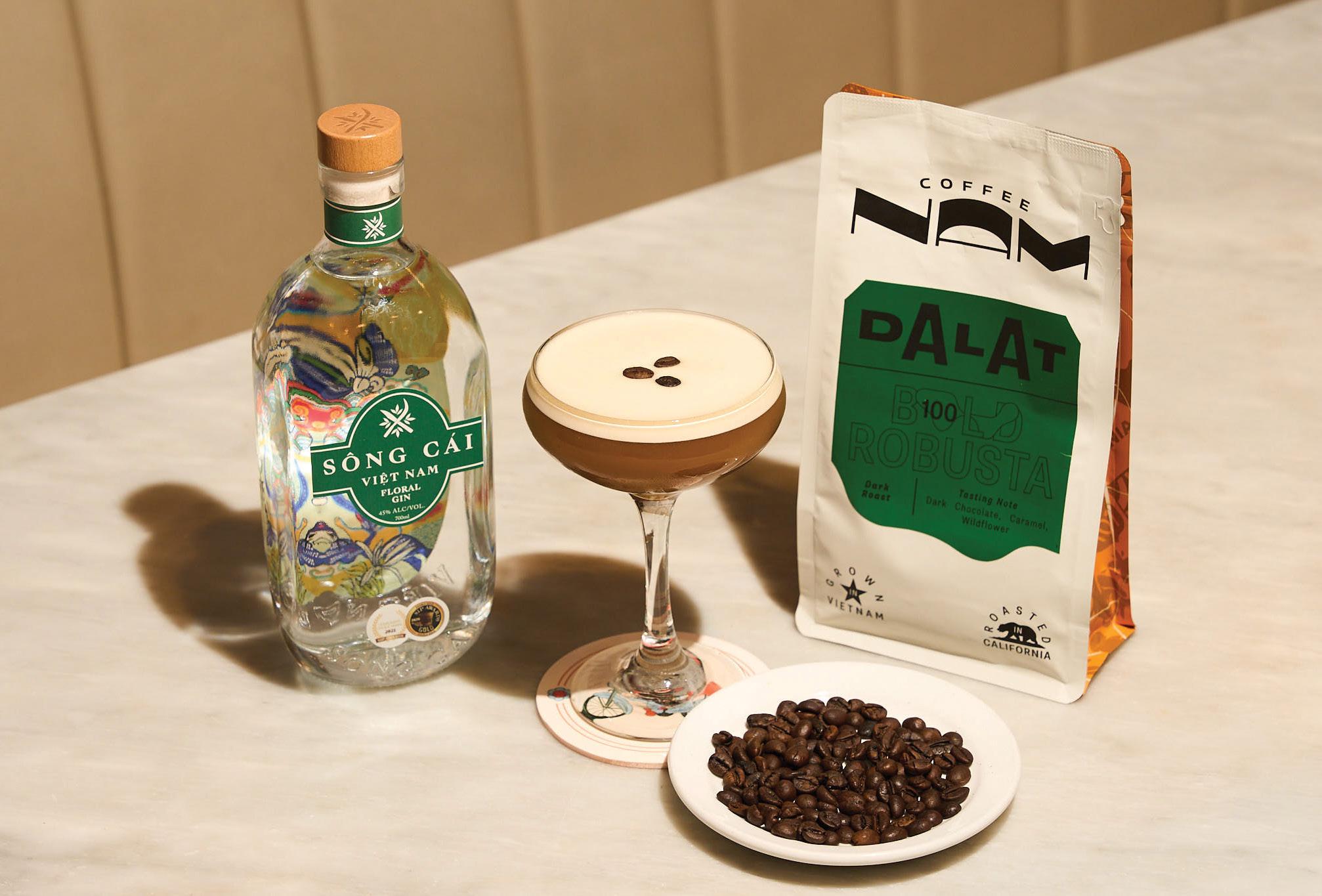
renewed appreciation for that 90s-era cocktail. In early December, data from hospitality insights company CGA showed the retrocool espresso martini had cracked the top 10 list of most-ordered cocktails in the U.S. bars and restaurants.
At Poka Lola Social Club in Denver,
bartender Ryan Williams estimates the staff shakes up 40-50 espresso martinis per day in addition to other coffee-based cocktails. That kind of volume makes it impossible for Poka Lola’s bartenders to pull espresso or brew and chill fresh coffee; instead, they’ve turned to the widening field of specialty
86 | FEBRUARY 2023 CRAFTSPIRITSMAG.COM Raw Materials
coffee liqueurs to mix with fat-washed vodka, tequila, even amari.
“Last Saturday when we opened up, our first order was for 15 espresso martinis,” Williams says. “Well-made products have allowed us to serve as many coffee cocktails to as many people as we have.”
This more diverse field of espresso liqueurs—as well as coffee-flavored rums, vodkas and whiskeys—is emblematic of a new wave of craft coffee spirits that are betting on a more expansive and creative future for coffee cocktails. They foresee a long-term marriage of U.S. third-wave coffee culture with the craft spirits movement.

“In the future, I think you’ll see bartenders using coffee as an ingredient and a flavor rather than only in espresso martinis,” says Tom Baker, founder of Australian coffee liqueur brand Mr. Black, which was acquired by Diageo in September. “Like limes, coffee will be a fundamental flavor of the drinks world.”
In 2021, coffee liqueurs held 7% of the total dollar sales of liqueurs in the U.S., according to Serina Aswani at drinks market analysis firm IWSR. The value of the coffee liqueurs market in the U.S. grew nearly 2% in 2021 versus 2020, and value is forecast to grow at a CAGR of 1% through 2026.
To become as ubiquitous as limes or tonic behind the bar, coffee liqueurs and coffee-flavored spirits need to continue expanding their appeal. Craft coffee spirits are doing this in a few ways: broadening the applications and occasions for coffee cocktail and spirits consumption; educating drinkers and bartenders about new classic cocktail variations including the coffee Negroni and coffee Old Fashioned; leaning into coffee’s cultural variations and flavors; and putting an emphasis on quality bean sourcing and roasting techniques.
The first objective—to broaden the occasions for coffee spirits—is perhaps what separates the new opportunities in the category from those that came before. Again, thank the espresso martini. Its revival opened the door for coffee-flavored drinks beyond sweet, hot dessert coffees. Herbal, spicy and citrus flavors are all rotating into coffee cocktails—sometimes simultaneously. At Dive Cocktail Lounge in Sarasota, Florida, bartender Arch Bernard makes a drink called the Sophisticated Coffee Cocktail using cold brew concentrate made from local O&A Coffee, Amaro Dell’Etna, Cynar and mole bitters. Today, the burgeoning array of espresso- and coffee-flavored spirits spans liqueurs, vodka, rum, amari, tequila and more, meaning coffee shows up in drinks hot and cold, shaken and
stirred, consumed as shots or sipped slowly over an ice cube.
“People now know that there’s a spectrum between Kahlua and Mr Black, not only a spectrum of perceived quality but a spectrum of flavors,” says Dan Q. Dao, a food and drinks writer and the founder of District One Studios. “You can get something more vanillaforward or something more roasty. There are just more options.”
This appreciation of coffee’s myriad flavors and textures is happening equally among consumers and bartenders. Dao says the rise of combination coffee shops/cocktail bars and
hospitality spaces that transition uninterrupted from day to night has put mixologists and baristas behind the same bar. There, they’re having conversations about how to best mingle the varied expressions of specialty coffee with craft spirits.
“The all-day space has created avenues for coffee experts to be talking to bar experts or working in the same sphere,” Dao says. “These combinations are organically happening.”
The team behind Mr Black has worked with bartenders to promote new riffs on classic cocktails that feature its product, including the Margarita Negra, which is just what it
CRAFTSPIRITSMAG.COM FEBRUARY 2023 | 87
To become as ubiquitous as limes or tonic behind the bar, coffee liqueurs and coffee-flavored spirits need to continue expanding their appeal.
sounds like. Baker says coffee liqueurs and spirits brands play up different facets of coffee beans’ complexity. A green, vegetal coffee links up naturally with mezcal, while a light and citrusy coffee roast is a fit for a coffee-added gin and tonic. Working with specialty, often local roasters, distilleries are seeking out custom blends or even singleorigin beans with specific flavors, acidity levels and astringency.
This nuance is only possible in an era where specialty coffee and highquality beans are available and appreciated. Jacksonville, Florida-based Manifest Distilling’s single-origin coffee liqueurs—so far released in Colombian and Guatemalan varieties, with an Ethiopian in development— are near the apex of this specialization. But they’re complicated and still expensive to make, admits Manifest president and cofounder David Cohen.
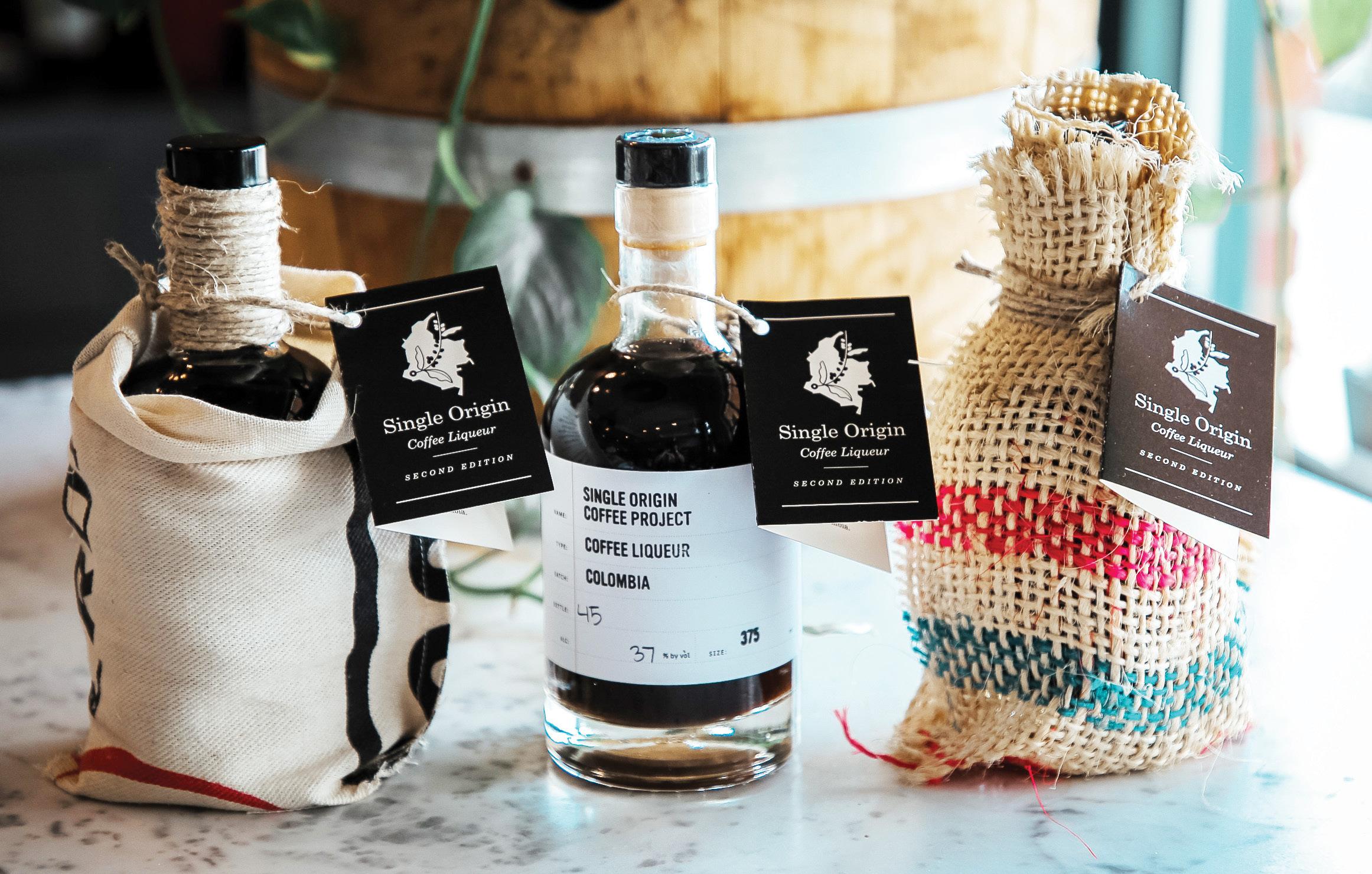
“It’s about having a really efficient brew process. We don’t make the same amount of money we’d make selling a bottle of vodka, but the margins are still okay,” he says. “The quality of the coffee bean doesn’t need to be winning any awards because it’s not being served by itself. Instead, it’s about supporting
direct-trade coffee farmers and making a great end product, but the beans can’t be the cream of their crop.”
While some distillers set themselves apart with the provenance of their beans, others evoke geography in a different way. Coffee cultures vary around the world and even within the U.S.—think of New Orleans’ chicory coffee or Australia’s flat whites. Some distilleries and bartenders play up those cultural associations to help set their creations apart from the widening selection of other coffee alcohol brands.
Dao is credited with inventing the Vietnamese Espresso Martini, which uses Vietnamese-American drink brands Sông Cái Distillery and Nam Coffee and a small amount of condensed milk. And J.F. Haden’s leans into Miami’s Cuban-American tradition of colada, evoking the city’s ventanas (coffee windows) on its labels and celebrating its local coffee supplier, Per’La Specialty Roaster.
“We all have a different flavor to us— Borgetti is more Italian; we’re more Cuban. There’s a wide lane for all of us,” Sklar says. “Growth in the coffee cocktail arena is just getting started. It’s not just the Dude drinking White Russians anymore.” ■
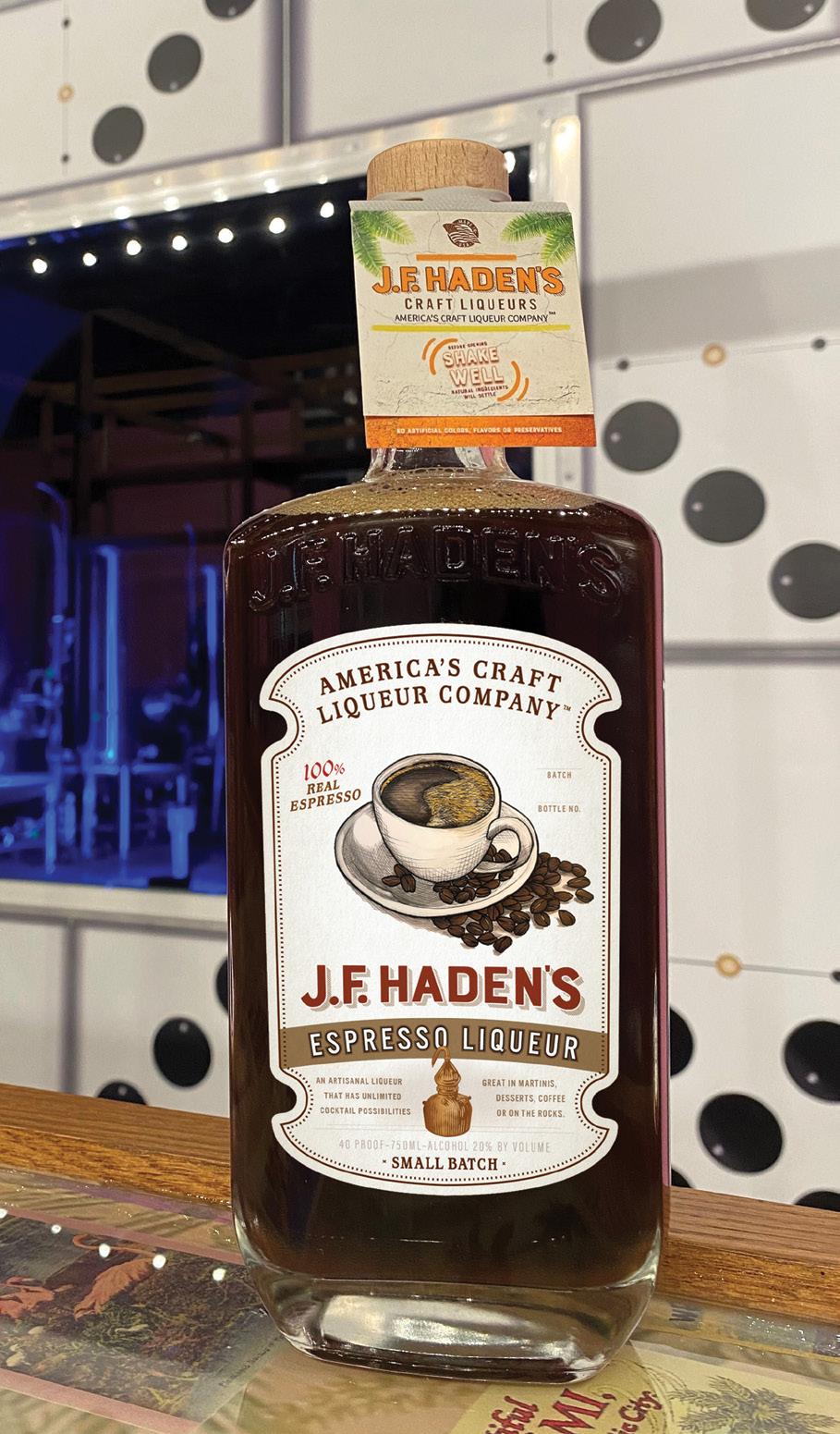
CRAFTSPIRITSMAG.COM

Listen wherever you find your podcasts or visit craftspiritsmag.com CONVERSATIONS WITH ICONS AND INNOVATORS IN THE WORLD OF CRAFT DISTILLING
PUTTING PEOPLE FIRST IN FINANCE
BY TYEE CARR
There has been a lot of focus from the tech community on fly-by-night accounting services, to convince businesses that finance and accounting functions can be simply automated, eliminating the cost of human expertise on your team. This idea can be particularly seductive in industries like craft spirits, where significant equipment, facility and labor costs necessarily take budget priority over the finance function. I am not a luddite by any means. I’m a strong advocate for digital bill pay, expense reporting and cloud-based information systems. However, without a peoplefirst strategy to manage the finance function, fully realizing the benefits of the information systems you invest in will be challenging. The right people will be able to leverage tools at the right stage in your business, increasing productivity, while holding the line on cost.
Managing the finance function of your operation in a cost-comparable way takes people, processes and tools, in that order.

Processes and tools do not replace expertise. They scale existing expertise and small operations frankly don’t need scale. Also consider that software engineers may not have the expertise to build solutions that completely fit the needs of the craft spirits industry. When you reverse the order outlined above, you are often letting the tools define your processes.
I do recommend utilizing software for basic accounting and production management to track necessary data for compliance with the U.S. Alcohol and Tobacco Tax and Trade Bureau (TTB). A point-of-sale software for tasting rooms and e-commerce operations may also be helpful. Small business, off-theshelf versions of these tools are readily available and should be cloud-based to allow easy access for team members, owners and outside accountants. Although using a mix of these tools will require some manual processes and reconciliations between systems, it’s usually a more cost-effective solution for small businesses (less than $5 million in size) than implementing a higher-end, customized system, such as an enterprise resource planning (ERP) system. The people with expertise in the business’s inputs, processes and outputs will be able to effectively manage the finance function without having to implement these higher-end customized systems.
When determining how much a business should spend on the accounting/finance function, consider the size of the operation. Your
budget, and therefore what to expect from your finance function, should be proportional to the size of your business. The relative size of a business is usually measured by sales, or top-line revenue, in a business funded from its own operating cash flow. Alternatively, investor-backed operations may be running at a loss as they are able to operate at a larger scale than the current demand for their products. In such cases, top-line revenue would underestimate the size of the operation.
So who are the right people?
When seeking accounting help, a four-year accounting degree has been the historic minimum. However, the number of accounting degree graduates has been decreasing in recent years and you may have to consider alternatives to this criteria such as candidates with related degrees and/or related work experience. While qualified candidates don’t need to be accounting experts—you can lean on your outside certified public accounting (CPA) firm that provides tax return services for more complex matters—they should have a strong grasp of accounting fundamentals. Inventory and cost accounting are foundational to craft spirits, so make sure to ask candidates about their experience in these areas. It may be surprising, but many accountants have never had experience with inventory or cost accounting!
Certifications such as CPA, chartered financial analyst (CFA), and certified management accountant (CMA) are generally not
90 | FEBRUARY 2023 CRAFTSPIRITSMAG.COM
Business Sense
Managing the finance function of your operation in a costcomparable way takes people, processes and tools, in that order.
Managing finances requires strong processes and tools, but distilleries should adopt a people-first strategy.
required but may be an indication of quality and commitment. A situation where a CPA with public accounting experience is highly recommended is if your business is subject to significant financial compliance requirements and/or audits. This situation may arise depending on your investors. It’s also helpful to consider the flexibility of people. If your operation could use a part-time employee for accounting data entry, perhaps you also have a part-time need for an office manager. Or perhaps your organization is large enough to require a part-time head of finance and a part-time operations leader. Someone with the right experience may be able to fill dual roles.
When thinking about your accounting team, beware of title inflation. A growing business needs room to add more experienced team members in the future. Avoid making your accounting manager with 5-8 years of experience, your CFO. Heads of finance have decades of experience and you may need that kind of wisdom someday. It would be awkward if an otherwise devoted employee already has the title!
Small organizations generally don’t need a CFO, but if you have crossed the $10 million
threshold, it’s probably time to consider this role. Not all CFOs are accountants. Many come from banking or corporate finance with little accounting experience. I think it’s a mistake for most growing businesses in craft spirits to be captivated by a candidate with large corporate or investment banking experience. This is a great background if the task is raising money or leading a large corporate team. Even if you have specific transactions in mind, like a plan to acquire or be acquired in the near future, that expertise could be brought in on a temporary, transactional basis. As a CPA I’m undoubtedly biased, but I recommend choosing a CFO with strong accounting and operational experience. Accounting and particularly cost accounting are essential to the financial analysis of a growing producer of anything.
Finally, consider outsourcing. Outsourcing can be a powerful and cost-effective alternative to rounding out your finance team by providing you broader coverage of varying skill levels on “fractional” bases. With this strategy, you can gain CFO and/or finance director experience on your team without the expense of full-time salaries.
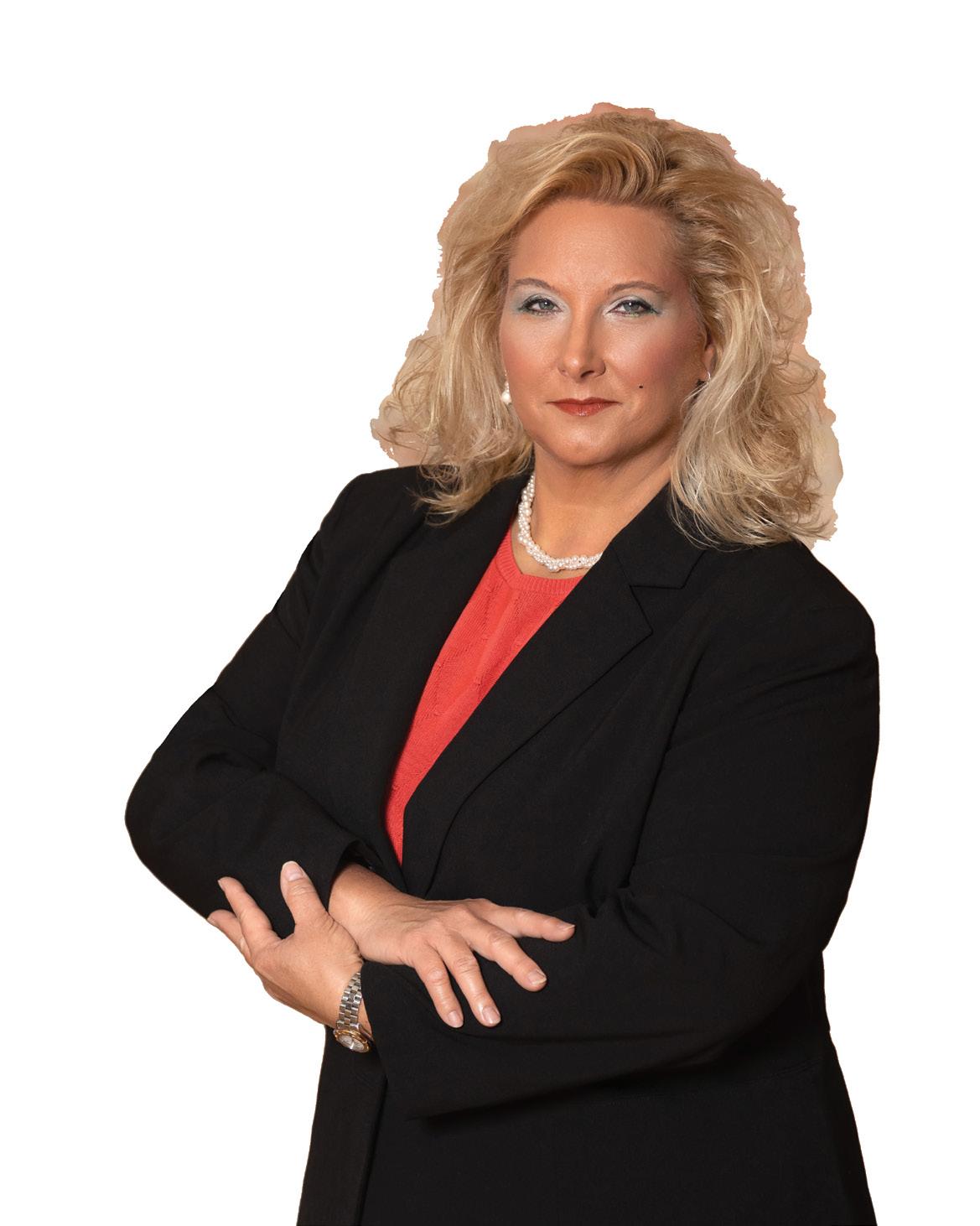

You can embark on an endless quest when
it comes to seeking information to run your business and the promise of financial automation has routed many entrepreneurs down this path. However, more data doesn’t necessarily provide more knowledge or more wisdom in making decisions. A people-first strategy will help keep you nimble as your business grows, while allowing you to focus on what’s important to your craft spirits business. ■
Tyee Carr is a CPA who has served small businesses for over 20 years. He was on the faculty at Portland State University for over a decade and now leads TCA, a CFO advisory and outsourced accounting firm working with small businesses and nonprofits. Tyee is currently the CFO at Westward Whiskey and is inspired to be working with craft spirits.

CRAFTSPIRITSMAG.COM FEBRUARY 2023 | 91
QUIMBY CONSULTING CONGRATULATES ACSA ON ITS 10TH ANNIVERSARY
ON MESSAGE
Five email campaign strategies to implement this year
 BY KIM NGUYEN
BY KIM NGUYEN
It’s no secret that digital marketing easily surpasses traditional media in both minimum investment and aggregation of actionable data. When developing any marketing strategy, brands must consider multiple channels to ensure a strong digital ecosystem that is not only cohesive, but effective. Among those channels, email marketing has reigned as a pillar to plan for, and with the increasing concerns with digital privacy, it is here to stay.
Consumers are shifting more of their buying behaviors online, and with this shift, they have also matured in their expectations of email marketing. Potential customers are more protective of their information and have been less likely to subscribe without an incentive or offer. And even if you get a user to subscribe, the next hurdle is ensuring that emails are opened and read. So how do brands stand out in the noise of the continually expanding promotional inbox?
SEGMENT AND PERSONALIZE
The more personalized the email, the more likely your reader will stay subscribed. Make your brand more human and relatable
by dedicating one person within the company who will be the face and voice of the brand. This could mean updating your email’s From name to this person, for example: Max at Webflow.
You can also automate personalization in the content of the email itself, by leveraging dynamic tags to pull in your subscriber’s first name, last name, and any other details provided upon subscribing (for alcohol brands, users will often also provide a birth date).
You also have the ability to make your emails more useful through allowing the personalization of email content type and cadence. If you have several types of emails that you send on a regular basis, allow users to segment themselves into receiving only the ones they’re most interested in. For example, allow segmentation based on news about your tasting room and company, discounts and promotions, or for announcements of limited product releases.
You can also adjust the number of emails sent. Typically brands will send a monthly or semi-weekly update, but if you have more to share, it’s possible to schedule emails weekly.
Allow users to dictate how often they receive messaging from you to avoid unsubscribes.
GET CREATIVE WITH YOUR SUBJECT LINES
Your email’s subject line is like giving a first impression to someone you’ve just met. If the subject line of an email is uninteresting, it’s easy to dismiss. Get personal, use humor or emojis, and generally make people curious enough to open and read your email.
If you’re unsure of what works, conduct an A/B test of multiple subject line strategies each time an email is sent. This will help you determine which type of subject line works best for your subscribers. In a study conducted by Hubspot, brands that A/B test their emails enjoy a 28% higher return than brands that do not.
Unsurprisingly, the length of an email subject line can also determine the effectiveness of it. A study from a digital automation platform, Marketo, finds that 41 characters (or 7 words) seems to be the sweet spot for email subject line length to generate the highest combined open and click-through rates.
92 | FEBRUARY 2023 CRAFTSPIRITSMAG.COM Sales & Marketing
BE INTERACTIVE
Static emails are so 2010. Interactive emails include elements that users can manipulate from within the email without having to click through to another page or leave their inbox. This can include swip ing through a carousel of images within the email itself, videos that users can play directly in the content, or sliders to manipulate for product reviews.
LEVERAGE AI TOOLS
Artificial intelligence (AI) is no longer a thing of the distant future. It’s here, and we can leverage AI in email marketing. Some platforms have their own proprietary AI tools that allow senders to use machine learning to optimize for best send times to maximize open rates, decrease unsubscribes and increase click-through rates.
For example, Mailchimp and Klaviyo, two of the largest email marketing providers, give small businesses the ability to personalize product recommendations for shoppers, as well as forecast behavioral targeting to maximize conversions through email.
DESIGN FOR MOBILE
According to Statistica, nearly 55% of global website traffic is now being generated from mobile devices. On top of that, the majority of consumers are now checking their inboxes on their phones (41%), rather than on desktop devices (39%).
By designing emails mobile-first, brands can get a leg up in terms of both engagement and opportunities for conversion. According to a study by Mailchimp, launching a mobile-responsive email can increase unique mobile clicks by 15%.
Remember, the goal for any email campaign is to drive potential customers back to your website to re-engage or complete a purchase. It’s important to prioritize your most important link as early in the email as possible. Based on the same study from Mailchimp, click rates drop significantly the lower they are in the email content.

THE TAKEAWAYS
The only way to make an email marketing strategy impactful to your bottom line is investing the time and energy to do it right. If your brand has the ability to allocate the necessary time and resources to plan and execute a proper email marketing program, it’ll easily become one of your best performing channels to engage with and retain your most loyal fans for years to come. ■
Kim Nguyen is the director of marketing for Speakeasy Co. She is a datadriven digital marketer who has worked in the realm of digital marketing for e-commerce brands for over 10 years in industries ranging from automotives to travel to consumer packaged goods.

CRAFTSPIRITSMAG.COM FEBRUARY 2023 | 93
The more personalized the email, the more likely your reader will stay subscribed.
CASK MATTERS
Understanding the differences among oak species
BY JASON PARKER
So much chemistry happens when whiskey sits in a cask that it’s tempting to simply call it magic and give up trying to understand how flavors develop. That would be a mistake. By understanding some of the key transformations that occur during whiskey maturation, you can manage the process to optimize desired flavors and time spent in the cask.
In fact, there are at least six key factors you can control as part of whiskey cask maturation: oak species; barrel size and stave thickness; stave seasoning; toast and char profile; spirit entry proof; and warehouse conditions. In this article, we’ll explore the choice of oak
species and its contributions to the flavor of the finished product.
FACTOR NO. 1: CHOICE OF OAK SPECIES
Oak (Latin genus: Quercus) has long been the preferred wood of coopers for producing tight (e.g., non-leaking) casks. Oak has a straight grain and an internal structure that makes the wood water-tight. Radial medullary rays—long bands of tight wood that arrange like spokes radiating from the center of the tree to the bark, are not found in other tree species. The rays create barriers to liquid passage and add strength to the wood. Furthermore, pores
present in the sapwood and used to carry water and nutrients between the leaves and roots are filled with a compound called tyloses when the sapwood becomes heartwood. Tyloses blocks the pores contributing further to the water-tight properties of the cask.
There are three main sources of oak used in the construction of casks: American white oak, French white oak and Eastern European white oak
AMERICAN WHITE OAK (QUERCUS ALBA)
Found in a much greater abundance than French white oak, American white oak is generally three to five times less expensive than French white oak. American white oak also contains more tylosis than the other two sources, is less porous and the heartwood more dense than French or Eastern European white oak. Since the wood can be quarter sawn rather than split, more of the wood is usable for the construction of water-tight casks.
American white oak is also lower in phenolic compounds and higher in vanillin and oak lactones than either French or Eastern European white oak, which means whiskey makers may prefer to use American white oak to soften and tame the highly alcoholic drink. However, wine makers often prefer the tannins of French or Eastern European white oak, which have similar tannin profiles to each other, and are famous flavor contributors to many wine styles.
American white oak is found throughout the eastern United States, with some cooperages favoring trees from the Ozark region of the central U.S. due to their slow growth; fine grain; tall and straight wood with more extractives than trees from further north; and less whitewood than trees from the deep south.

FRENCH WHITE OAK (QUERCUS PETRAEA L. AND QUERCUS ROBUR)
Quercus petraea and Quercus pedunculata are the predominant species of French white oak. Both of these species contain less tyloses than American white oak, so must first be split in half and then in quarters following
CRAFTSPIRITSMAG.COM Technically Speaking
Oak has a straight grain and an internal structure that makes the wood water-tight.
MEDULLARY RAYS
the grain before being cut into stave blanks. Without this first step, the staves may not be water-tight. Splitting oak rather than quartersawing, like is done for American white oak, leads to less usable wood
Quercus petraea L., also known by its common name of sessile oak, grows to be tall and straight, Sessile oak is favored over Quercus pendunculata due to its finer grain, which leads to less wasted wood and more watertight casks.
EASTERN EUROPEAN WHITE OAK (QUERCUS PETRAEA L. AND QUERCUS ROBUR)
Just like French white oak, Eastern European white oak are the two same species. And just like French white oak, Quercus petraea L. is the preferred species due to its tighter grain and straighter, taller growth pattern.
OTHER OAK SPECIES

Mizunara oak or Japanese oak (Quercus crispula), which grows throughout Northeast Asia, is much more porous than the three primary oaks used—American, French and Eastern European white oak. The trees do not

grow straight and they have a higher water content than the more common species. As a result, there is a lot of wasted wood when making casks from Mizunara oak. Mizunara oak trees are frequently not harvested until around 200 years old, and then the wood is sold at a public auction. This drives up the cost of casks produced by Mizunara oak to astronomical figures.
However, Mizunara oak does have flavors the other species of oak do not, which is one of the reasons it is sometimes used. Flavors are reported to be sandalwood, coconut, spice and Japanese incense. Mizunara oak is used primarily by Japanese distillers, but some Scottish and American distillers who can source the wood are releasing small quantities of whiskey aged in Mizunara oak.

Oregon white oak or Garry oak (Quercus garryana) is another species of oak with limited range and that is difficult to use. It grows in the Pacific Northwest, between southern California and British Columbia. It is slow growing (which is good for forming dense, water-tight staves), but generally neither as tall or as straight as American, French or Eastern European white oak species.
Many Oregon white oak stands throughout its growing region have been protected, in part to preserve the stands of trees, and also to preserve and protect the habitat of a variety of plant and animal species that depend on the trees for their habitat. Flavors and aromas contributed by Oregon white oak are said to include molasses, clove and dark fruit. Choosing the right cask starts by choosing the wood the cask is made of. In a future installment, we’ll discuss cask size, stave thickness options and their impacts on flavor. ■
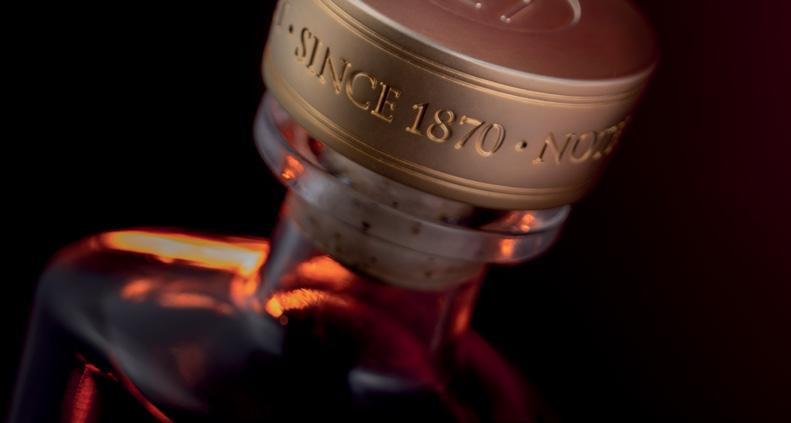
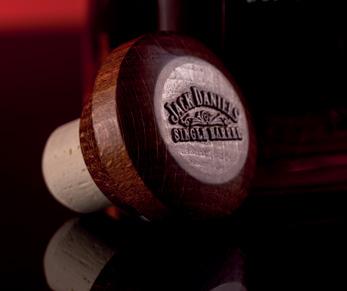
CRAFTSPIRITSMAG.COM FEBRUARY 2023 | 95
(+1).502.337.3966
Jason Parker is the co-founder and president of Seattle-based Copperworks Distilling Co. This column is derived from two presentations he presented at ACSA conferences which are available as recordings at americancraftspirits.org
SUPPLEMENTAL INCOME
Alternative revenue opportunities for existing distillers
BY ASHLEY HANKE
Many craft distillers with the necessary infrastructure, equipment, space and manufacturing knowledge have found ways to supplement their revenue stream. Some examples include tasting room sales; the provision of warehousing services; production of bulk spirits for medicinal, scientific and industrial purposes; providing distillery tours; hosting private events; and engaging in contract production and alternating proprietorships. Additionally, with the rise in popularity of low-alcohol and dealcoholized beverages, which are still produced at licensed distilleries due to the various distilling operations involved—such as reverse osmosis and vacuum distillation—craft distillers have been able to contribute to the market demand for such products using their existing space, equipment and expertise to produce these beverages. In addition to the above-mentioned activities, craft distilleries do not need to limit themselves to distillation activities, as there has also been an increased demand for manufacturers and co-packers with an existing infrastructure to perform manufacturing or copacking of traditional non-alcoholic beverages, such as flavored seltzers, fortified mineral waters, tonics and sodas. And, although there are many state-specific regulatory considerations that must be explored, federally, with the prior authorization of the U.S. Alcohol and Tobacco Tax and Trade Bureau (TTB), there is nothing that prohibits distillery proprietors from generating additional revenue by producing or packaging non-alcohol food products regulated by the U.S. Food and Drug Administration (FDA) at or adjacent to their existing plant.
BUSINESS ADVANTAGES
Established distillers that branch out into nonalcohol production or co-packing will likely benefit from lower overhead production costs when compared to businesses starting from scratch, due to existing production space, overlap in production equipment, general manufacturing and formulation experience,
Established distillers
branch out into non-alcohol production or co-packing
and experience operating in a highly regulated environment and working with state and federal regulators. In fact, some of the early U.S. distilleries were regulated more like food manufacturing plants, providing distillers with invaluable skill sets for producing and co-packing FDA-regulated products. This was certainly the case for many distilleries established in the early 2000s when state and local officials were less accustomed to regulating distilleries and may have overcompensated by imposing stricter requirements on distilleries as if they were food processing establishments. In many instances, distilleries were required to adopt systems in a similar manner to food manufacturing plants, operating under the same general principles of the FDA’s Good Manufacturing Practices, storage systems, equipment maintenance, OSHA Process Safety Management Standards, recommended fire protection practices, and establishing various quality assurance mechanisms. The strict regulatory oversight may have been both costly and seemingly burdensome at the time, but distilleries that were regulated in this manner may also benefit from operating more like a commercial kitchen and learning to adhere to Good Manufacturing Practices, which eventually became the norm for many early distillers. Strict regulation, coupled with an overlap in working with some of the same regulatory agencies, such as the Department of Health, the Department of Agriculture, local zoning offices, and commonly undergoing various audits and inspections certainly gives
existing distillers a leg up when branching out into the production or co-packing of FDAregulated products.
Additionally, for craft distillers considering expanding their portfolio of beverage offerings to include FDA-regulated beverages, existing sales and marketing experience coupled with greater flexibility in channels of trade and distribution should elicit a sigh of relief from distillers accustomed to strict three-tier distribution requirements, as the elimination of these requirements equates to a significant increase in marketplace availability by having the flexibility to sell online, at unlicensed retail locations, and directly to consumers. And while some DSP proprietors find that sticking to alcohol beverage production keeps things consistent while avoiding additional regulatory requirements that may be imposed upon food manufacturers, others view the ability to produce FDA-regulated products as a goal rather than an imposition, due to being able to sell these products directly to consumers.
THE LOGISTICS
· A distillery’s bonded premises is the premises of a distilled spirits plant, as described in the application for registration, on which the conduct of distilled spirits operations is authorized.
· A general premises is any business office, service facility or other part of the premises described in the notice of registration other than bonded premises. A person may not use the general premises of a distilled spirits plant
96 | FEBRUARY 2023 CRAFTSPIRITSMAG.COM Legal Corner
that
will likely benefit from lower overhead production costs when compared to businesses starting from scratch…
for any operation required to be conducted on bonded premises.
· Generally, a person may not conduct any business or operation on the premises of a distilled spirits plant unless the business or operation is authorized by the notice of registration on file with TTB. Otherwise, the proprietor must use the bonded premises of a distilled spirits plant exclusively for distilled spirits operations.
· A TTB officer may authorize the conduct of a business other than that of a distiller, warehouseman or processor on the premises of a distilled spirits plant if certain criteria are met. This determination is fact-specific, permission is granted on a case-by-case basis, and the proprietor must receive approval from the appropriate TTB officer before operating the other business. The approval will specify whether the other business may be conducted on the bonded premises or on the general premises.
· If the DSP proprietor intends to conduct any other business on the distilled spirits plant premises, the following information must be submitted with the application:

- A description of the business
- A list of buildings and equipment that will be used and
- A statement of the relationship of the business to the distilled spirits operations at the plant. The DSP proprietor must furnish any additional information needed by TTB to determine if the application for registration should be approved.
Therefore, distillery proprietors have a few options for producing FDA-regulated products at or adjacent to their existing facility. First, distillery proprietors may request permission from the TTB to carry on an additional business activity at the DSP premises. Based on the fact-specific request for permission, the TTB will specify whether the other business may be conducted on the bonded premises or on the general premises. Alternatively, proprietors can amend their DSP registration and diagrams to carve out separate space for manufacturing or co-packing operations of FDA-regulated products which is not located on the bonded premises or general premises, but rather, adjacent to the existing distillery with certain physical separation mechanisms in place as required by the TTB. Lastly, with permission, DSP proprietors may be able to alternate their existing bonded premises to produce non-beverage products in accordance with 27 CFR § 19.143. Before alternating the premises, proprietors must file and
receive approval of the necessary registration. Alternate methods and procedures will be evaluated and approved on a case-by-case basis by the TTB.

OTHER CONSIDERATIONS
Additional considerations when manufacturing or co-packing FDA regulated non-alcohol products are state dependent, but usually include registration or licensure as a food processor/manufacturer with Department of Agriculture, FDA Food Facility Registration, adherence to OSHA and FDA requirements and food safety procedures, state and local health department inspections and sign-offs, obtaining a business license, and FDA labeling regulations, among others. ■
CRAFTSPIRITSMAG.COM FEBRUARY 2023 | 97
Ashley Hanke, Esq. is an attorney at Malkin Law, P.A., a Miamibased law firm specializing in the alcohol beverage industry.
ACTIVE CRAFT DISTILLERS BY STATE AND REGION

According to the 2022 Craft Spirits Data Project, produced by ACSA and Park Street, the number of active craft distillers in the U.S. grew by 17.4% over the last year to 2,687 as of August 2022. Active craft distillers are defined as licensed U.S. distilled spirits producers that removed 750,000 proof gallons (or 394,317 9L cases) or less from bond, market themselves as craft, are not openly controlled by a large supplier, and have no proven violation of the ACSA Code of Ethics.
The top five states by number of craft distilleries—California (225), New York (199), Texas (173), Pennsylvania (156) and Washington (117)—make up 32.4% of the U.S. craft distiller universe, and the next five states—Colorado (112), Michigan (103), North Carolina (93), Oregon (86) and Florida (85)—comprise an additional 17.8% of the market. The remaining states represent 49.8% of the market.

98 | FEBRUARY 2023 CRAFTSPIRITSMAG.COM closing time


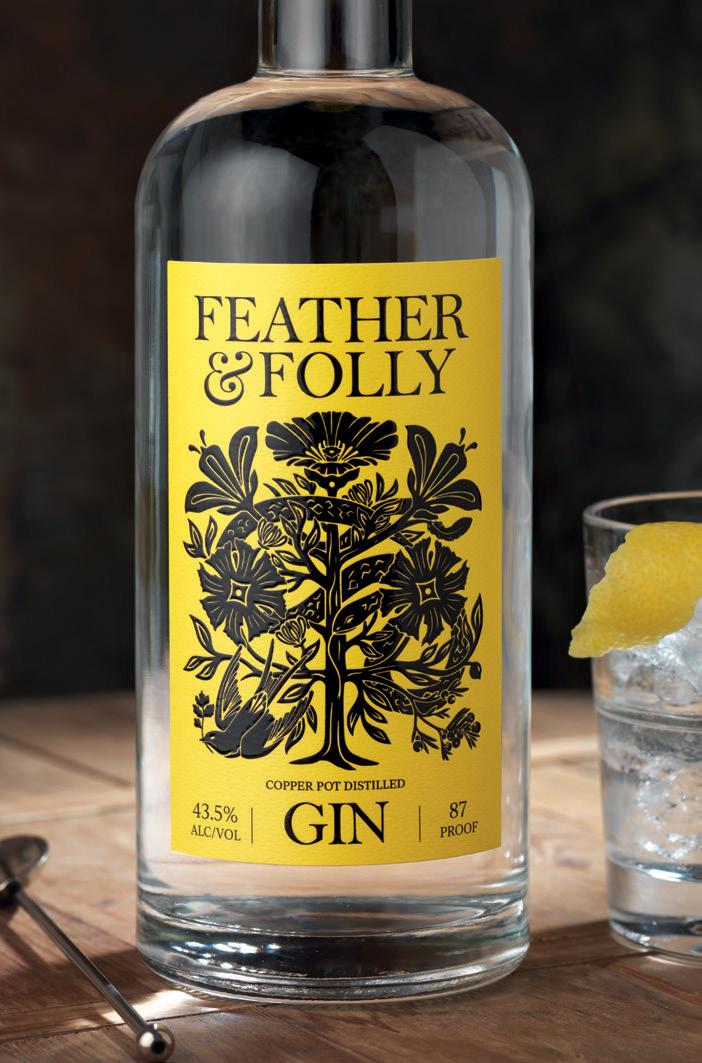


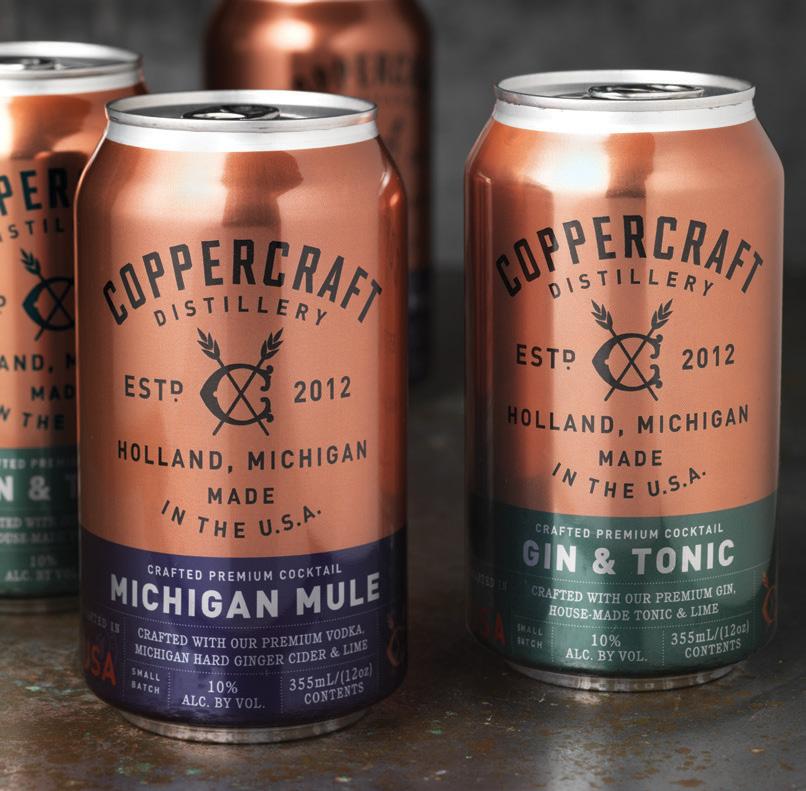
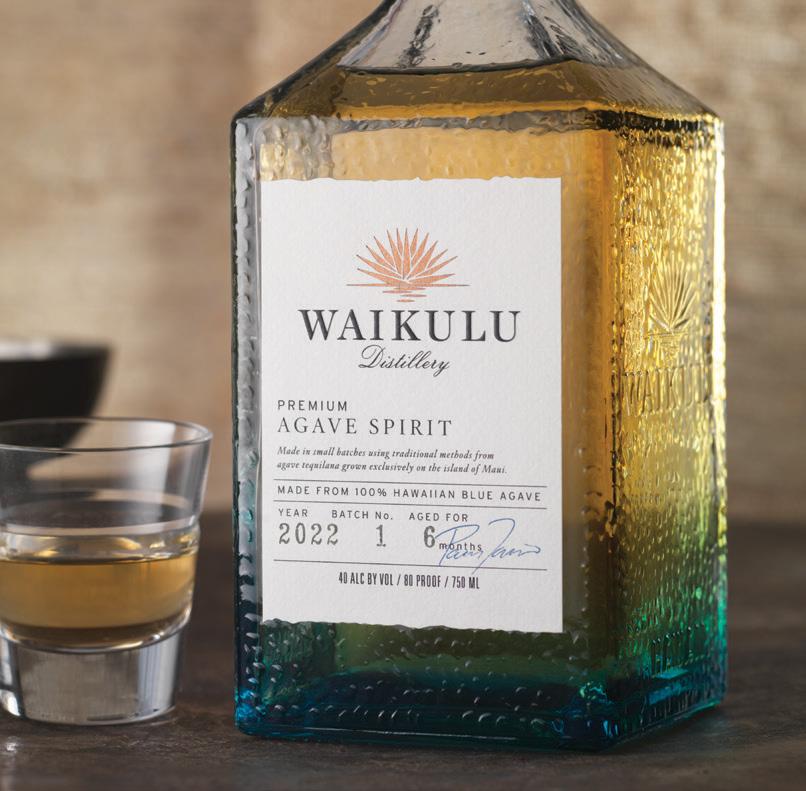
BRAND STRATEGY | STORY DEVELOPMENT | NAMING LOGOS | PACKAGING | CUSTOM BOTTLES | PRINT | DIGITAL DRINK WITH YOUR EYES ® 2787 NAPA VALLEY CORPORATE DR, NAPA, CALIFORNIA 94558 T | 707 265 1891 WWW.CFNAPA.COM














 BY ANDREW KAPLAN
BY ANDREW KAPLAN
 BY KATE BERNOT
BY KATE BERNOT





























 Jeff Cioletti Editor in Chief
Jeff Cioletti Editor in Chief































 Photography: Andrew Welch
Photography: Andrew Welch







































































 BY JEFF CIOLETTI AND JON PAGE
BY JEFF CIOLETTI AND JON PAGE















































































































 Astoria-based Pilot House Distilling operates a tasting room in Portland.
Astoria-based Pilot House Distilling operates a tasting room in Portland.



 Andy Garrison of Stone Barn Brandyworks punching down carrots
Erika Degens of Stone Barn Brandyworks processing rhubarb
Andy Garrison of Stone Barn Brandyworks punching down carrots
Erika Degens of Stone Barn Brandyworks processing rhubarb


 Tom Burkleaux of New Deal Distillery
Tom Burkleaux of New Deal Distillery




































 BY ANDREW KAPLAN
BY ANDREW KAPLAN

















 BY KIM NGUYEN
BY KIM NGUYEN
























